More than 50,000 non-teaching staff in Public Secondary Schools have gone without salaries and allowances since the onset of Covid-19 in March 2020. The Kenya Union of Secondary Schools’ Non-Teaching Staff (KUSSNTS) Secretary General Nahashon Ndiemae said most recently said that the union had written to the Ministry of Education seeking an urgent intervention as the school workers are suffering.
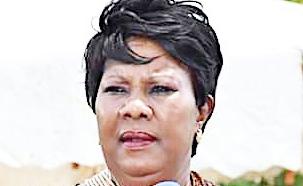
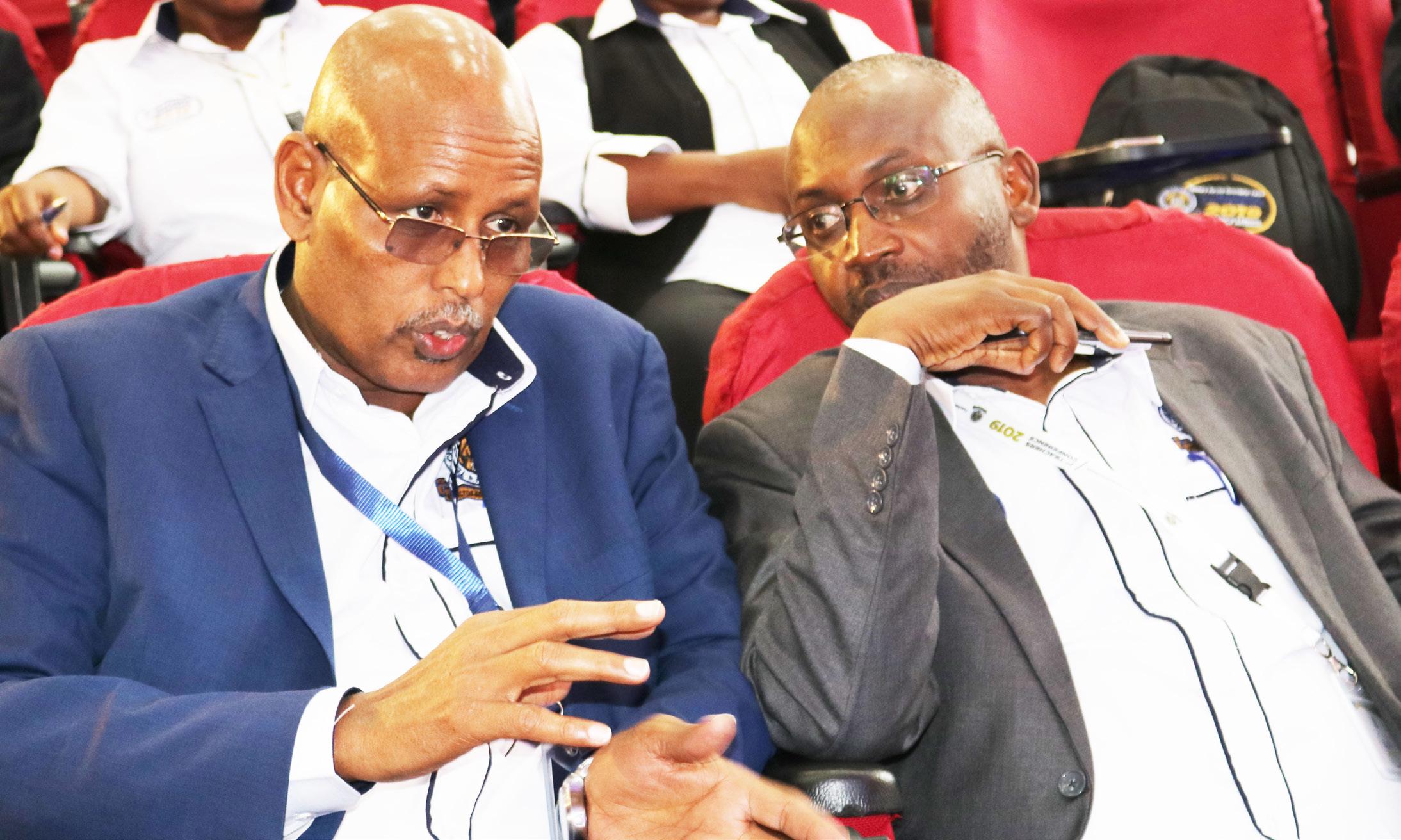
TSC shocker for jobless teachers
Teachers employers now requires trained tutors to obtain post-training certificate to be employed
Why
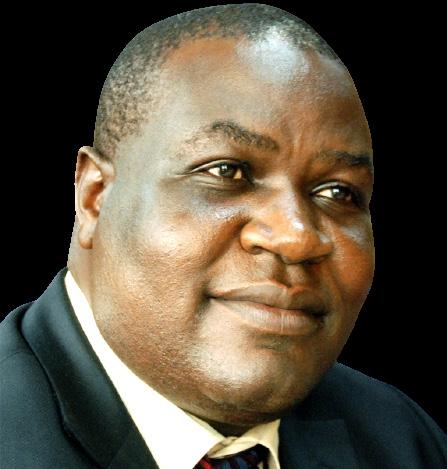
The Bestselling Newspaper on Education VOL 250 KSH 70 JUNE 1 - JUNE 14, 2021 www.educationnews.co.ke News
STORY PAGE 16 powers boards Curriculum for adult education out soon » Page 29 2020 KCSE analysis of top schools , students
salaries
Page 3 » Page 2 » Page 2 » Page 3 UASU polls: Kubasu goes for top seat 400 poly tutors sent home without benefits
Back Page The special report highlights a comprehensive coverage of how schools and candidates performed in the 47 counties.
»
Court battles over unpaid school workers’
»
»
Varsities get more cash for statutory payments
» Pages 4, 6, 17, 32, 33,34 & 40
Early Learning and Basic Education PS, Dr.
Jwan.
Teachers Service Commission Director Administrative Services, Ibrahim Mumin and his Quality Assurance and Standards, Dr Reuben Nthamburi counterpart during a previous teachers’ conference in Mombasa.The commission plans to introduce tight rules on joining the teaching profession.File/Photo
Julius
Uhuru
of TSC members
is delaying hiring
Florence Mutua,vvv Chairperson, Education committee.
Why appointment of TSC commissioners has been delayed
The President will now constitute another selection panel to fill the positions vacated by Beatrice Adu, Mbarak Twahir, Kinoti Imanyara, Tache Gollo and Albert Ekirapa whose terms ended on March 19 since they were appointed in 2015.
By Roy Hezron
The remaining five vacant positions for members to the Teachers Service Commission (TSC) might take long to be filled as government tries to ensure term of senior management of constitutional or statutory bodies does not end at the same time.
In a confidential letter addressed to Speaker of the National Assembly Justin Muturi dated April 27, 2021 and received a day later a copy of which Education News has seen; Head of Public Service Joseph Kinyua informed the parliamentary departmental committee on Education and Research that the process will allow continuity of service delivery and effective succession.
“The Executive Office of the President fully acknowledges the unique role of TSC within our national life. Noting the imperative of ensuring succession management and continuity of service delivery, it has been the practice of His Excellency the President to stagger appointments to crucial constitutional or statutory bodies so as to en-
sure that at no time do all the terms of office of the senior management lapse concurrently,” said Kinyua in the letter.
Kinyua further added that filling of the remaining positions was to proceed after conclusion of appointment of the chairperson of the Commission Dr. Jamleck Muturi and Timon Oyucho as a member of the Commission.
“It is in keeping with that sound and prudent practice that further nominations with respect to the TSC have been held in abeyance pend ing the conclusion of ongoing appointment process for the two nominees that are currently before Parliament,” added Kinyua.
The National Assembly approved Dr. Muturi and Oyucho on April 28, 2021 as the Commission’s
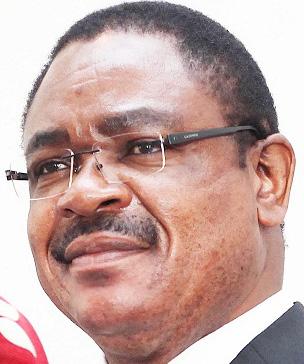
Chairperson and member during a special sitting, and later sworn in on May 3, 2021 at the Supreme Court as after the President gazetted their appointment on April 30, 2021; and they are expected to be in office to May 2027
TSC had only two commissioners since March after five Commissioners retired, making it difficult for the commission to carry out its mandate key being initiating discussions of the teachers Collective Bargaining Agreement (CBA) because the current
Mbage Njuguna Ng’ang’a and Leila Abdi Ali, were appointed by President Uhuru Kenyatta in May 2020 to represent Central and North Eastern regions respectively, hence their term in office will end May 2026. Their recruitment followed the retirement of
Commissioners Cleophas Tirop (Rift Valley), Salome Gichura (Central) and Saadia Abdi Kontoma (North Eastern) in 2019 after the end of their six-year terms.
The President will now constitute another selection panel to fill the positions vacated by Beatrice Adu, Mbarak Twahir, Kinoti Imanyara, Tache Gollo and Albert Ekirapa whose terms ended on March 19 since they were appointed in 2015.
The remaining five vacant positions will represent Rift Valley, Western, Nairobi and Cost since Eastern, Central, North Eastern and Nyanza already has representatives.
Considering the position of the government and also following the laid down procedures contained in the TSC Act of 2012, the remaining five members which are currently vacant can be filled between July and August this year, hence their term running to between July and August 2027.
The commission was fully constituted in March 2015 following the recruitment and appointment of the chairperson and commissioners, a process that began in October 2012.
Although the 2010 Constitution is silent on the specifics of the tenure of the TSC commissioners, the Teachers Service Commission Act 2012 affirms that they will serve a fixed 6-year term.
Govt set to increase varsity budgets
By Alfred Musembi
The National Treasury has proposed to increase budget allocation to top six public universities for recurrent expenditure for the year starting July.
Budget estimates currently before Parliament for debate shows that the recurrent budget for the country’s top six varsities will increase by Sh22. 7 billion to Sh46.98 billion from Sh24.28 billion in the year ending next month.
Recurrent budget foots expenses that include payment of salaries and allowances for permanent staff, wages for casual employees, employer contributions and payment of interest among others.
The varsities are the University of Nairobi (UoN), Moi University, Jomo Kenyatta University of Science and Agriculture, Kenyatta University, Egerton University and the Technical University of Kenya (formerly Kenya Polytechnic).
The increase in the allocation of monies used for payment of staff salaries and allowances and purchase of goods and services comes at a time the institutions are trapped in funding struggles that have seen them fail to remit more than Sh34 billion in statutory deductions for employees.
The cash-strapped universities have consequently failed to remit statutory deductions that include Pay As You Earn (PAYE), National Hospital Insurance Fund (NHIF),
National Social Securities Fund (NSSF), pension schemes, insurance premiums and Sacco contributions.
But now the universities will get a reprieve if Parliament approves budgetary allocations for the recurrent expenditure in the year starting July.
But the National Assembly committee on Education chair, Florence Mutua remains coy on the proposals amid fears that Parliament can shoot them down when the budget comes up for debate and approval.
“Until the final report is adopted, those are just estimates. We actually need more so that the pending statutory bills can be paid,” Mutua said.
The University of Nairobi will be the biggest beneficiary in Trea-
sury’s proposed recurrent for the public varsities.
Nairobi University’s allocation for recurrent budget has more doubled to Sh13.23 billion from Sh5.93 billion in the current year ending next month, followed by Kenyatta University whose budget will rise to Sh8.807 billion from Sh4.12 billion.
The Jomo Kenyatta University of Science and Technology will be the third biggest beneficiary after Treasury proposed Sh8.77 billion in the year starting July from Sh4.39 billion while the Nakuru-based Egerton University will get Sh4.026 billion from Sh2.09 billion.
The recurrent budget for Moi
“Several universities have already written to us and requested for additional funding amounting to Sh20 billion,” Treasury Principal Secretary Julius Muia told the National Assembly Committee on Education in December last year.
Funding for universities has been hit hard by the sharp decline of students enrolling for the parallel degree programme courses over the past three years that generated billions for the institutions.
The number of students qualifying to join universities with C+ has dropped to 125, 463 last year from 169, 492 in 2015.
The top universities had by end
from Parliament to increase tuition fees.
Vice chancellors proposed that tuition fees be increased to Sh48, 000 from the current Sh16, 000 for fresh students to ease cash flow challenges that have affected service delivery.
The National Treasury had backed the push, setting the stage for the first major shake-up of university fees since the end of free university education in 1991 and introduction of the student’s loans scheme-Higher Education Loans Board (HELB) in 1995.
Parliament however rejected the plan and instead asked universities
Budget estimates currently before Parliament for debate shows that the recurrent budget for the country’s top six varsities will increase by Sh22. 7 billion to Sh46.98 billion from Sh24.28 billion in the year ending next month.
University will rise to Sh6.93 billion from the current Sh4.83 billion if parliament approves the proposals.
Maseno University will get Sh3.51 billion in the year starting July up from Sh2.003 billion while the Technical University of Kenya allocation for recurrent budget has been increased to Sh2.85 billion from Sh1.88 billion.
The increase is a reprieve for the public universities that had in December last year written to the Treasury seeking additional Sh20 billion in the wake of the economic disruptions occasioned by the Coronavirus pandemic.
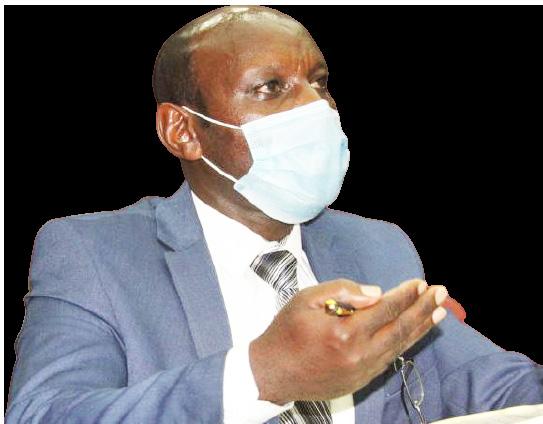
of last year failed to remit employee dues amounting to Sh34 billion, painting the grim picture of institutions in dire financial state.
A report tabled in Parliament last year showed that UoN tops the list with Sh5.5 billion in unpaid statutory dues while Jomo Kenyatta University of Agriculture Technology (JKUAT) and the TuK come in second at Sh3.5 billion each, while Kenyatta University at Sh2.7 billion.
The proposal to increase the recurrent budget for the public universities come at a time the institutions has unsuccessfully sought approval
to work with the national government to explore ways of increasing the allocation to the Higher Education Loans Board— the agency that disburses loans on behalf of the government with the aim of supporting more students.
“Any review of fees should take into consideration the performance of the economy at that time, given the effects of COVID-19 on the economy,” Mutua said.
Faced with the funding crisis, the universities froze hiring and slowed down on expansion plans as they struggle with huge debts.
EDUCATION NEWS JUNE 1 - JUNE 14, 2021 2
Jamleck Muturi John, TSC Chairperson during his vetting at Parliament Buildings recently.
Dr. Simon Nabukwesi, PS for University Education.
Court battles loom over unpaid salaries for 50,000 school workers
By Roy Hezron
More than 50,000 non-teaching staff in Public Secondary Schools have gone without salaries and allowances since the onset of Covid-19 in March 2020.
The Kenya Union of Secondary Schools’ Non-Teaching Staff (KUSSNTS) Secretary General Nahashon Ndiemae who spoke to Education News most recently said that the union had written to the Ministry of Education seeking an urgent intervention as the school workers are suffering.
“Other workers were not recalled back to work after the schools were reopened while others have salary arrears accruing from March 2020”, said Ndiemae.
He added that “Since the phasing out of the GP 33 in 1991 under which non-teaching staff were engaged in permanent and pensionable terms, and the consequent gazettment of the Education Act regulations legal notice no.
the Principal Secretary, State Department for Early Learning and Basic Education Dr. Julius Jwan to find out if the matter has reached his desk for redress, he said it has not but he has notified Director, Secondary Education to check and inform him.
“This has not reached my office. But, I have alerted Director, Secondary to check and let me know,” said Dr. Jwan in a short message when Education News reached him for comment.
According to Ndiemae, among the challenges that Secondary Schools’ non-teaching staffs encounter includes low pay, lack of job description, lack of appointment letters, long working hours, lack of job security, unsafe working conditions, lack of retirement package, denied allowances, mistreatment, lack of scheme of service, and frustration and dismissal when one joins a trade union.
“Non-teaching staff are not represented in the BOMs which is composed of Principal, two teachers, the Church, community, six parents, the
that instructed the Ministry of Education to formulate a Scheme of Service for non-teaching staff.
After the passage of the motion, the then Minister for Education Prof. Sam Ongeri promised to fastrack an amendment to the education Act, to enable the employment of the school workers directly by the ministry a promise which has never been fulfilled to date.
In 2015, the then Minister of Education Prof. Jacob Kaimenyi gazetted the Basic education Act regulations (legal notice no. 39.) especially on the appointment of non-teaching staff, terms of service for non-teaching staff and remuneration.
The Education News has established that the findings and recommendations of an education task force chaired by Kilemi Mwiria in 2014 on Remuneration of Support Staffs in schools have never been implemented.
During that time, the Mwiria-led team recommended that non-teaching staff in secondary schools be paid a salary of up to Sh41,000 on the highest part, proposed qualifications for each category, and further recommended that recruitment of staff be pegged on students’ enrollment and the number of streams per school.
In a court ruling in 2017(cause no .168 of 2016) before the Employment and Labour Relations Court in Nairobi which involved 34 employees of Nyeri primary school versus the Board of management, the court ruled that school employees are civil servants who should be employed on permanent and pensionable terms, and remunerated as per the circulars issued from time to time by the ministry of public service.
Retired polytechnic teachers demand their retirement benefits
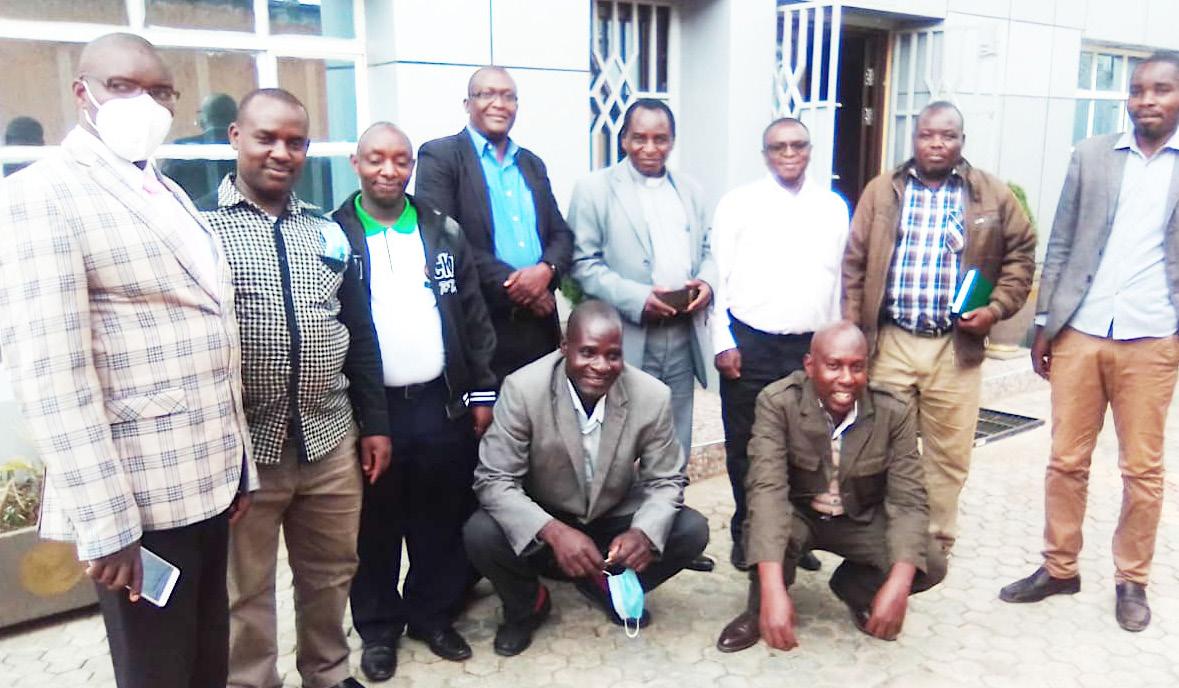 By Kage Njoroge
By Kage Njoroge
Former tutors at Village Youth Polytechnics have accused the national government of violating their employment rights by sending them home without paying retirement benefits.
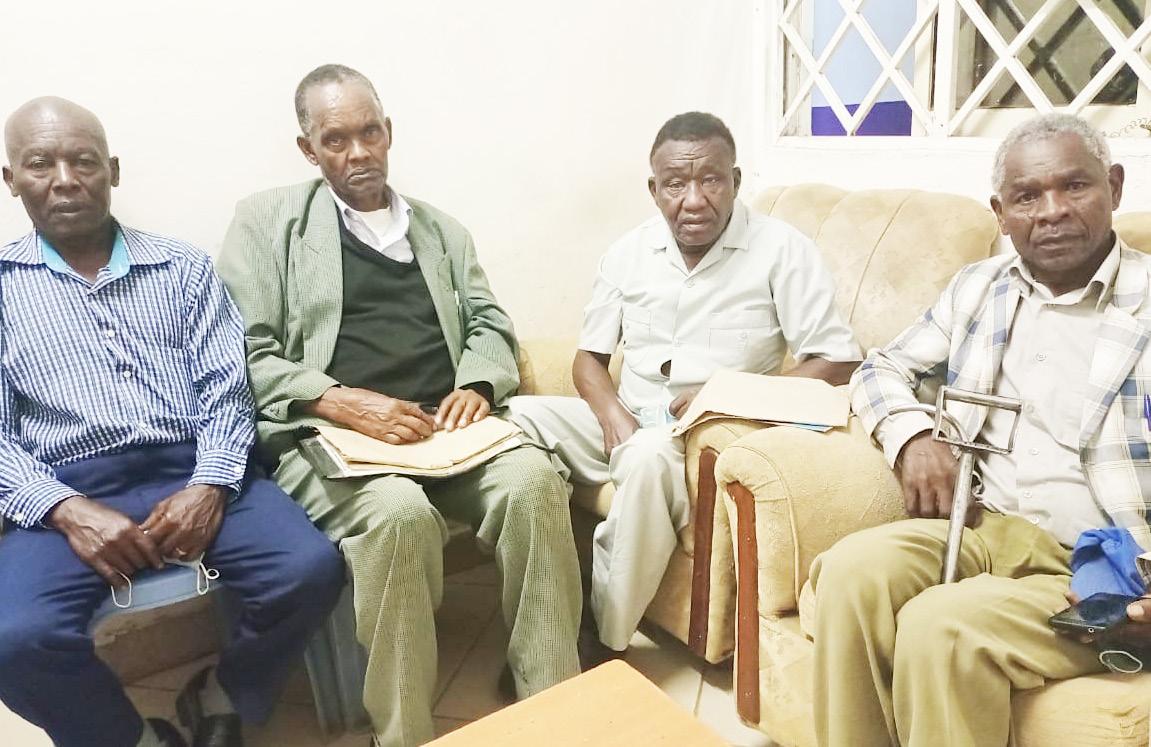
These instructors are complaining that the government failed to recognise them as it’s employees for the time they were in public service.
The National Chairman of Kenya Youth Polytechnics (KYPI) instructors union Noah Mwangi Karoki explained that they are wallowing in poverty after spending their active prime years, working in these training institutions.
He pointed out that they were forced to retire without pension and related benefits from their years of employment. This is total violation of labour rights enshrined in the 2010 constitution.
Karoki said the govern-
tries of Labour, Youth Affairs, Education, Science and Technology over the years before devolution in 2013.
There trouble deepened in 2007 when the government employed other instructors through PSC under new terms in the then Ministry of Youth Affairs to work at the same polytechnics.
This recruitment forced some of them to early retirement without any payment.
The problem escalated with the constitutional creation of devolution which axed them to county governments.
The new county governments rejected to take responsibilities of their earlier employment demands with national government. Karoki points that they have been fighting for their rightful dues and were left to move from public office to the other without anyone willing to take responsibility.
262, the workers have endured intense misery.”
According to a letter the union wrote to the Ministry of Education dated May 20, 2021 and received by the Principal Secretary in the State Department of Early Learning and Basic Education, the union seek the Ministry to intervene in addressing the issue of unpaid leave and salary arrears facing the non-teaching staffs in public schools.
In particular, the union wanted the Ministry to intervene and policy directing discriminative unpaid leave, unpaid leave indefinitely and nonpayment of salary year 2020.
“It is like some school administrators were looking for grounds to punish workers because many schools have not paid workers for several months and others have not recalled those sent home on unpaid leave after schools were closed,” reads the letter.
When Education News contacted
area Member of Parliament and none of them represent the interest of the non-teaching staff,” lamented Ndiemae.
National Administrator Alexander Muthiani who also doubles up as the Eastern Regional Secretary added that the Ministry doesn’t have the data of the non-teaching staff working in the public schools hence under budget for them, with some being discriminated in their working stations as some BOMs don’t offer fair hearing in cases concerning disciplinary hearings.
“It isn’t clear how much money the ministry sends to schools for staff salaries since the same is combined with other vote heads leaving the Principals to decide how much they would allocate for salaries, travel, bills among others,” stated Muthiani.
Parliament attempted to rescue them in 2011, by unanimously passeing a motion that was sponsored by then Ndaragwa MP Jeremiah Kioni
The court further ordered the Cabinet Secretary for Education at that time being Dr. Fred Matiang’i to cause the implementation of the ruling across all public schools, although it is not clear whether the CS implemented it or not.
The union has approached the Parliamentary Education Committee and the Justice and Legal Affairs Committee (JLAC), Education CS as well as the Public Service Commission (PSC) to facilitate the amendment to the basic education Act so as to have school workers hired directly through the County Education Boards.
The union has equally supported the recommendation by the ministry of education to hire school financial managers so as to improve accountability for funds provided by the ministry.
The Union was officially registered in May 2017 and currently has a membership of over 50, 000 countrywide representing Bursars, Accounts clerks, School Secretaries, Librarians, Laboratory Technicians, Storekeepers, Cateress, Cooks, Security Guards, Ground Men and Women, Matrons, Nurses, Drivers and Kitchen hands among others.
ment claimed they were employed by the respective communities managing the youth polytechnics, but not the Public Service Commission (PSC).
However, Karoki tabled documents of employment and policies which managed them and sighed by officers of national government.
He said the government claims it was merely providing grants to support their perks without responsibilities of their full employment.
Karoki further provided official headed documents which proves that they government workers.
The chairman said they were hired initially under the Ministry of Social Services and tossed through various ministries.
These include Minis-
The over 400 instructors now in retirement drawn across the country are petitioning the national government to recognize them and pay their dues in respect of labour laws and rights of public servants.
Karoki displayed a letter they have written to the chairman of Parliamentary Budget Committee Kanini Kega demanding him to factor their dues in the 2021/2022 budgetary estimates.
The elderly retirees have no funds to seek for redress in courts. They are asking for human rights organizations to intervene and support them, saying they have strong employment documents to provide credible evidence against the government to win the case.
3 EDUCATION NEWS JUNE 1 - JUNE 14, 2021
Kenya Union of Secondary Schools’ Non-Teaching Staff officials.
Noah Karoki (seated left) National Chairman Kenya Polytechnic Instructors Union with members James Mutia, James Kamau and Hildad Mwangi Karanja. Photo/Kage Njoroge
It isn’t clear how much money the ministry sends to schools for staff salaries since the same is combined with other vote heads leaving the Principals to decide how much they would allocate for salaries, travel, bills among others - Muthiani.
Fight for national school places during Form One selection
By Roy Hezron
High number of grade As, direct university entry transition and good infrastructures are major key factors that make national and extra county schools attractive during Form One selections.
According to the 2020 Kenya Certificate of Secondary Education (KCSE) essential statistics released jointly with 2020 KCSE results recently by Education CS Prof. George Magoha, out of 893 grade As that were obtained by 2020 KCSE candidates, 721 were from National schools while 97 were from extra county schools while both county and sub-county schools had 2 and 3 grade A’s respectively.
On direct university entry, Extra County schools led with a total of 60, 633 candidates scoring grade C+ (plus) and above which is a direct entry grade the government set since 2016, while National Schools followed by far with 22, 114 candidates who scored grade C+ (plus) and above.
On the other hand, County Schools and Sub-County Schools had a total of 18, 175 and 31, 497 candidates respectively obtaining direct University entry grade of C+ (plus) and above.
On Colleges and Technical and Vocational Education Training (TVET) entry, National and Extra County Schools take the least number of candidates as compared to
BUNGOMA
the County and Sub-county schools.
For instance in 2020 KCSE results, a total of 6, 118 candidates from National Schools scored grade C (plain) and below while 74, 460 candidates from Extra County
the government that if indeed it wants100 per cent transition to be successful, it should channel more resources to day schools because you don’t need to build dormitories in those schools,” noted Ng’eno.
Over the years, only candidates who score 400 marks and above are guaranteed slots in national schools and during the release of 2020 KCPE results, only 8,091 candidates in the 2020 KCPE scored more than 400 marks
This therefore implies that the candidates will be given priority in the selection to 103 national schools which have a capacity of about 30,000 making the competition real with the battle basically being narrowed to the traditional National Schools.
candidates who did not score high marks nationally but were top performers in their sub-counties in order to enable them make it to national schools, and affirmative action.
Unlike in the past, this time round the Ministry of Education will conduct only one selection exercise for the 2021 Form One class.
Those who will be blocked from national schools will find a soft landing in the 531 extra county schools which have a capacity of 123,399, while others will end up
20:40:40 ratio, to be shared across the host sub-county, the host county, and other counties respectively.
The available slots in county schools are shared out between subcounties on a 20:80 ratio, spread across the host sub-county and the rest of the sub-counties.
All candidates for sub-county schools are selected from the host sub-county based on merit and choice. These criteria are applied regardless of whether candidates sat KCPE in private or public schools.
Schools scored the same grade.
Sub-county schools had majority scoring C (plain) and below which is a total of 355, 289 candidates while County Schools had 110, 463 candidates.
According to Narok Kenya Union of Post Primary Education Teachers (Kuppet) Executive Secretary Charles Ng’eno, for a 100 per cent transition to succeed, the government should channel more money to day schools.
“We also want to challenge
Bungoma East residents outraged by 2020 KCSE results
By Godfrey Wamalwa
Bungoma East Sub-county has been put on the spot after it emerged that the constituency recorded poor results in the 2020 KCSE examinations.
Reports indicates that there was no grade A across the sub county but there were 128Es, 490 D-, 382D, 356D+, 323C-, 312C, 183C+, 82B-, 47B, 12B+ and 3Aout of the total 2,326 candidates who sat the examination.The constituency has 26 public and one private secondary school.
St.Cecilia Girls School
Misikhu which had 227 candidates, produced 2A- grades and although it had only two candidates posting A- grade, the school emerged the best overall.
Four schools, Mitukuyu Secondary, Bakisa Girls, Nabuyole Secondary and Silungai Secondary recorded the poorest performance which left them ranked as the last four in the constituency.
Statistics shows that more than a third of candidates in Bungoma East Sub County who sat this year’s
Kenya Certificate of Secondary Education (KCSE) examinations failed to attain grades that would allow them to pursue professional courses, including diplomas in teaching and nursing.
This raises questions over the mass failure of candidates and the future of those who did not make the cut.
Kaunda Makokha, area education expert told Education News that the mass failure of students at that level is unacceptable and alarming, and asked the government to step in and address the issue that they said was creating an unequal and unfair society.
He further observed that there have also been a worrying number of Ds and Es, which points to inefficiencies and inequalities in the education value chain.
A spot-check by Education News revealed that a number of institutions that performed poorly lack basic infrastructure, including laboratories for science subjects, which are critical markers of performance in national exams.

These are Alliance High School, Kenya High, Lenana School, Maseno School, Starehe, MaryHill Girls, Limuru Girls, Mang’u High School, Nairobi School, Moi Forces Academy, Nakuru Girls, Utumishi Academy, Moi Girls Eldoret and Nakuru Boys among others.
Among the top 15 candidates in the 2020 KCSE examination, Kenya High School produced 6 candidates; while Alliance, Maranda and Kapsabet Boys High Schools each posted two candidates in the top 15 candidates nationally.
During the Form One selection process, the major factors that influence the process is merit, candidates’ choices of schools, regional balance in favour of
All these institutions have disclosed their capacities of enrolment ahead of the selection exercise of the 2020 KCSE examination candidates, which I have instructed that it starts immediately -Prof.
Magoha.
in the 1,032 County schools with a capacity of 142,358 and the 7,325 Sub-county schools with a capacity of 685,590.
Nearly half of the 2020 KCPE candidates will end up in the subcounty schools particularly those who scored 250 marks and below.
The selection of candidates to extra-county schools is based on a
Since 2016, the candidates who scored grade C+ (plus) and above are admitted directly to universities under the government sponsorship programme, while those who score grade C (plain) and below are placed to TVET institutions, Teacher Training Colleges, Medical Training institutions among other middle level colleges.
Speaking during the release of the 2020 KCSE results, Prof. Magoha said all the 747,161 candidates who did the KCSE examinations will be absorbed in various institutions through the Kenya Universities and Colleges Central Placement Service (KUCCPS) selection.
“All these institutions have disclosed their capacities of enrolment ahead of the selection exercise of the 2020 KCSE examination candidates, which I have instructed that it starts immediately,” said Prof. Magoha.

Orphaned boy beat odds to score A- in KCSE
By Kamundia Muriithi
An orphaned candidate from Gitaraka area in Mwea ward Embu County has inspired many after his hard work paid off to post impressive results in this year’s Kenya Certificate of Secondary Education (KCSE).

Solomon Masila Wanza, 18, scored an A - minus of 77 points. He sat his KCSE at Nyangwa Boys High School.

Masila has been under the care of his sickly grandmother after his parents died in 2007, when he was a toddler.
He schooled in Wango Primary School where he sat his KCPE in 2016, and scored 326 marks.
The last born in a family of six worried about how he would pay his school fees.
However, a charitable organisation, Haradali Organisation, came to his rescue and sponsored his four year secondary education.
“This motivated me to focus fully on my education so that I could secure a slot at university to pursue a course of my choice,” he
said.
He aspires to join Kenyatta University to pursue medicine. He says his grandmother used to encourage him to concentrate on his education so that he can uplift their lives.
Masila says that during his last year in secondary school, his future was also put on test by the Covid-19 pandemic, which led to the closure of school for two terms.
He spent time at home reading and revising. He recalls how before the schools closed due to the pandemic, watchman would force him to go to bed when he extended learning from normal time.
JUNE 1 - JUNE 14, 2021
ON
KCSE
NEWS 4
FOCUS
2020
EDUCATION
EMBU
CS Education, Prof. George Magoha.
Solomon Masila Wanza
Jackson Shiyonga Maikuva top candidate from Jilca Junior Academy who scored 395 marks peruses through a copy of Education News. He is aspiring to join Kapsabet Boys. Photo/Andanje Wakhungu
FOCUS ON TOP SCHOOLS
Ramba Boys sends a record 322 to university
By Erick Nyayiera
The indomitable Academic giants Ramba Boys High School in Siaya County continues to break records in academic performance and has firmly cemented itself in the order of top schools in Kenya.
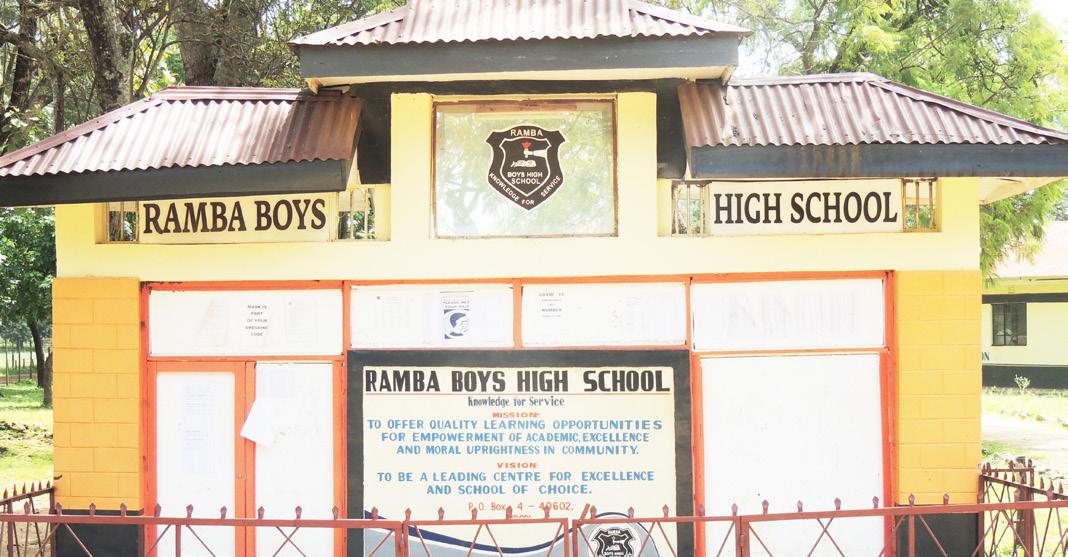
In the 2020 KCSE results, the school managed to send 322 students direct to universities out of a total candidature of 365 students which is an increased direct entry to universities from the 2019 KCSE results where the school sent 301 to universities.
Positively too, Ramba High School registered a mean of 8.08 a positive deviation from the 2019 results which stood at 7.54.
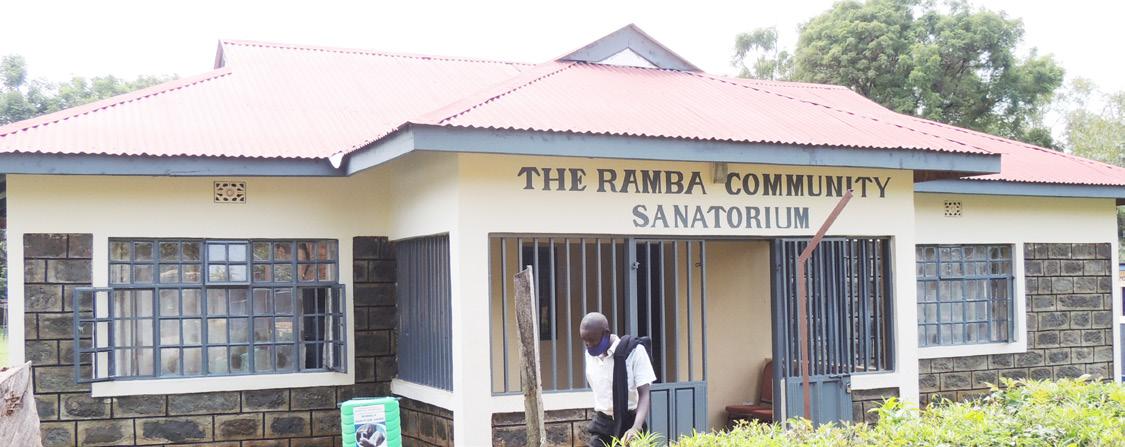
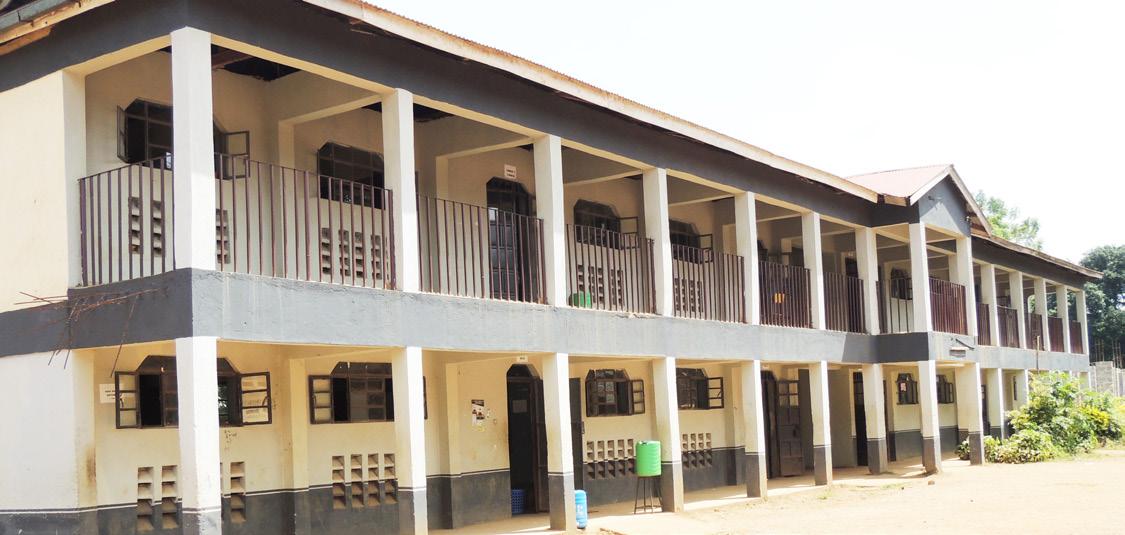
The results breakdown was as follows; A- (8), B+ (46), B (82), B(111), C+ (76), C (34), and C- (7).
School Principal Canon James Okoyo, whose stewardship has seen the school scale the heights to stardom is enjoying standing ovation from the education stakeholders who attribute the improvement witnessed over the years to his proven leadership of integrity and his zeal for quality education.
Canon Okoyo, a renowned inspirational speaker who was crowned the 2018 Principal of the Year (POYA) is set to retire this year
having accomplished and achieved the uttermost degree of success in his teaching career.
In the same year (2018) and again in recognition of his contribution in shaping the community through education, the Anglican Church of Kenya Bondo Diocese appointed him as a lay Canon to further the holistic education mission in Kenya.
Canon Okoyo teaching life has seen thousands of students get
through to university most who are now engaged in meaningful careers that are impacting the economy of Kenya and beyond the borders.
For the 2020 KCSE results he said, “It was my prayer that being the last results before I exit the helm, I wanted to break the school academic performance record which I proudly achieved. Now I am going home a satisfied servant. It is worth noting that a keen analysis of the 2020 KCSE results depicts an all-round improvement whether in terms of highest university entry in history or the mean improvement.”
“The continued stellar academic showing over the years has been courtesy of the determined teachers who have purposed to sacrifice their time in the best interest of the learners, we have a rich programme of supporting weak students so that they are able to catch up in real time alongside early syllabus coverage that paves way for serious revision work every year,” stated Canon Okoyo.
Leadership journey and achievements, infrastructural improvements
Canon James Okoyo’s became the Principal of Kitambo Mixed Secondary School in Rarieda subCounty, Siaya County in 2004 where he raised the school’s standards in academics and other co-curricular activities to higher levels.
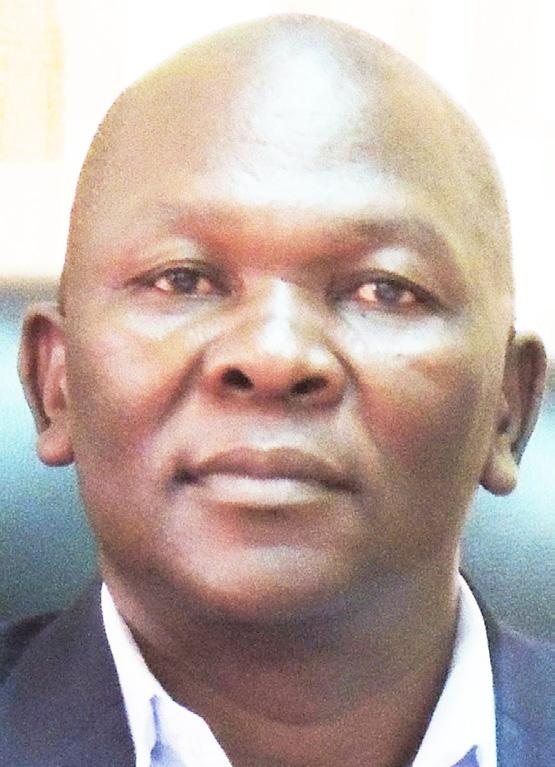
During his stint at Kitambo School, the village based school always appeared in the top five in the region and was christened “Pentagon of Rarieda” a feat that continues to date.
Canon Okoyo came to Ramba High School in 2010 where apart from the academic showing over the years which has seen the school ranked number one overall in the sub-County over years, the school is also among the top in the County and the Western Kenya region.
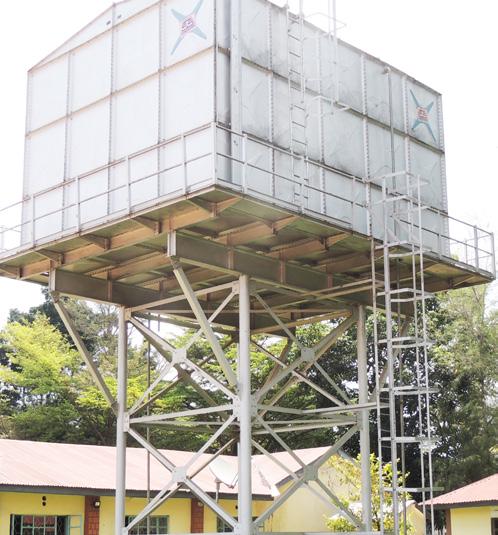
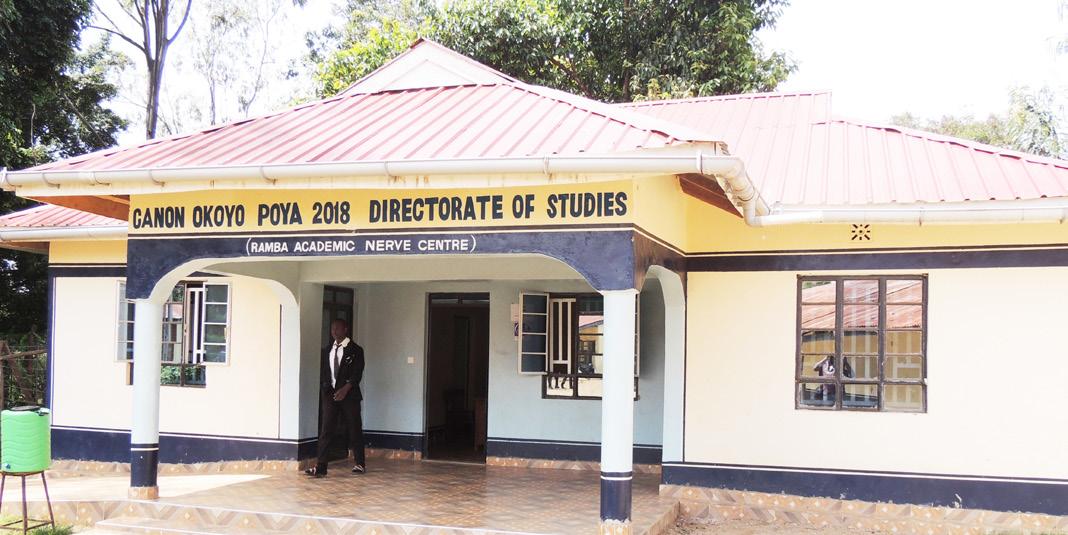
He has also established key infra-
structural growth in the school which includes two storey classrooms and 2 multimillion storey dormitories (with a 750 student capacity each).
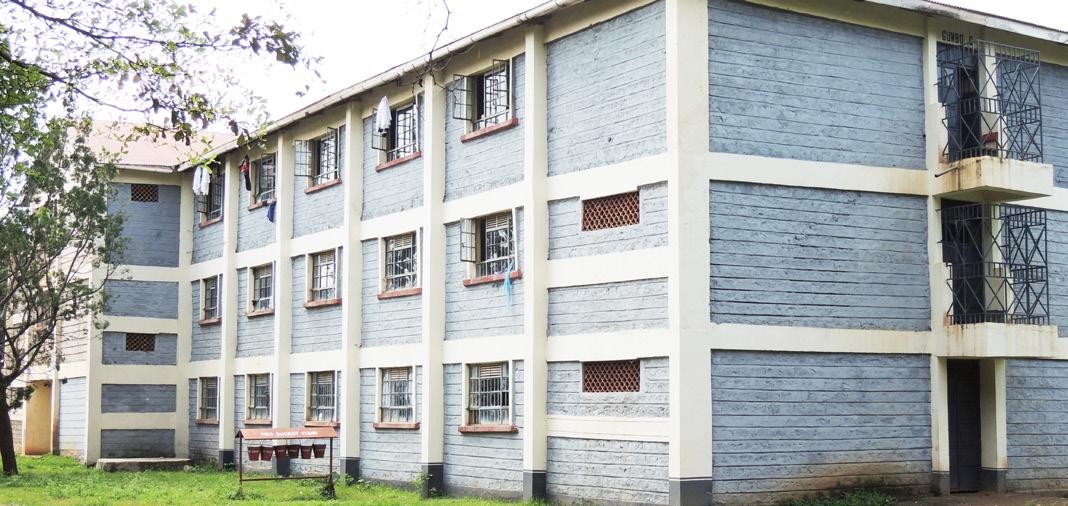
He also recently bought a Scania Bus for the school alongside other 2 school vehicles.
“For purposes of expansion of the Ramba Nation, I also strived to acquire 5 large pieces of land so that in future due to constrain of space, the school will have an easy expansion strategy,” said Canon Okoyo.
Again when he took over as the principal, water was a big problem and the school used to suffer acute water shortage. This he cured by bringing piped water and now the school evidently boasts of running water with storage tanks of up to 110,000 litres around the school courtesy of small savings.
Moreover, the school used to be a desert before he embarked on a robust tree planting mission which has now transformed the school into a green environment.
Interestingly, on the day of celebrating his POYA 2018 achievement, he received gifts and other monetary awards. He redirected the resources he received for the award to the construction of the “Canon James Okoyo 2018 POYA directorate of studies complex” in the school.
About the complex he said: “the County Scavenging Centre is an archive and resource centre for schools around Kenya to benchmark on exam materials, it is a gift to the school for making me POYA 2018 winner.”
Key among Canon Okoyo’s revered legacy is the promotion of the girl-child education. In the year 2018 after realizing that the girls from the Rarieda sub-county schools were performing poorly in KCSE exams, he moved swiftly and in consultation with his colleague principals began the “Canon Girls Initiative.”
The Canon ambitious girls’ ini-
tiative requires principals managing schools with girls to elect at least two girls per school who would be given special attention by the administration towards ensuring that they get better results.
Said Canon Okoyo: “since the onset of the programme, the numbers of girls going to the universities has increased tremendously and my plan is that even after retirement, the number of girls transiting to universities will increase hundredfold.”
He also mobilized resources for the construction of a Sanatorium (health facility) at the school which is operational and helps the students and the host community as a corporate social responsibility.
But Canon Okoyo notes, how-
‘The continued stellar academic showing over the years has been courtesy of the determined teachers who have purposed to sacrifice their time in the best interest of the learners. We have a rich programme of supporting weak students so that they are able to catch up in real time alongside early syllabus coverage that paves way for serious revision work every year.
-Canon Okoyo.
ever, that the good results over the years occasioned huge demand, hence population explosion. He notes the need for additional facilities like classes, dormitories, laboratories among other learning facilities.
On current developments, he is currently putting up a Science Complex that will house six laboratories.
“The whole idea behind this state-ofthe-art Science Complex under construction is scheming to put Ramba High School on the path to STEM courses,” he added.
Post retirement, Canon Okoyo intends to continue to encourage students, teachers, (Boards of Management) BOMs and other fora through his inspirational speaking gift to ensure positive impact in the community.
EDUCATION NEWS 5 JUNE 1 - JUNE 14, 2021
The Canon Okoyo 2018 POYA directorate of studies built by proceeds of the award. One of the two Storey Dormitory complex. One of the school’s water tank.
Dormitory complex.
The school sanatorium that also benefits the community members with medical services.
Information Block Centre.
Canon James Okoyo, Principal.
KCSE: Coast region giants make a mark with top grades
By Hilton Mwabili
Some coastal academic giants flopped while others returned to public limelight after years of poor performances in last year’s KCSE results.

Light Academy Mombasa emerged top in Coast region with a mean of 9.17. Its top student Kamau Dan Karaimo obtained an A of 81 points.
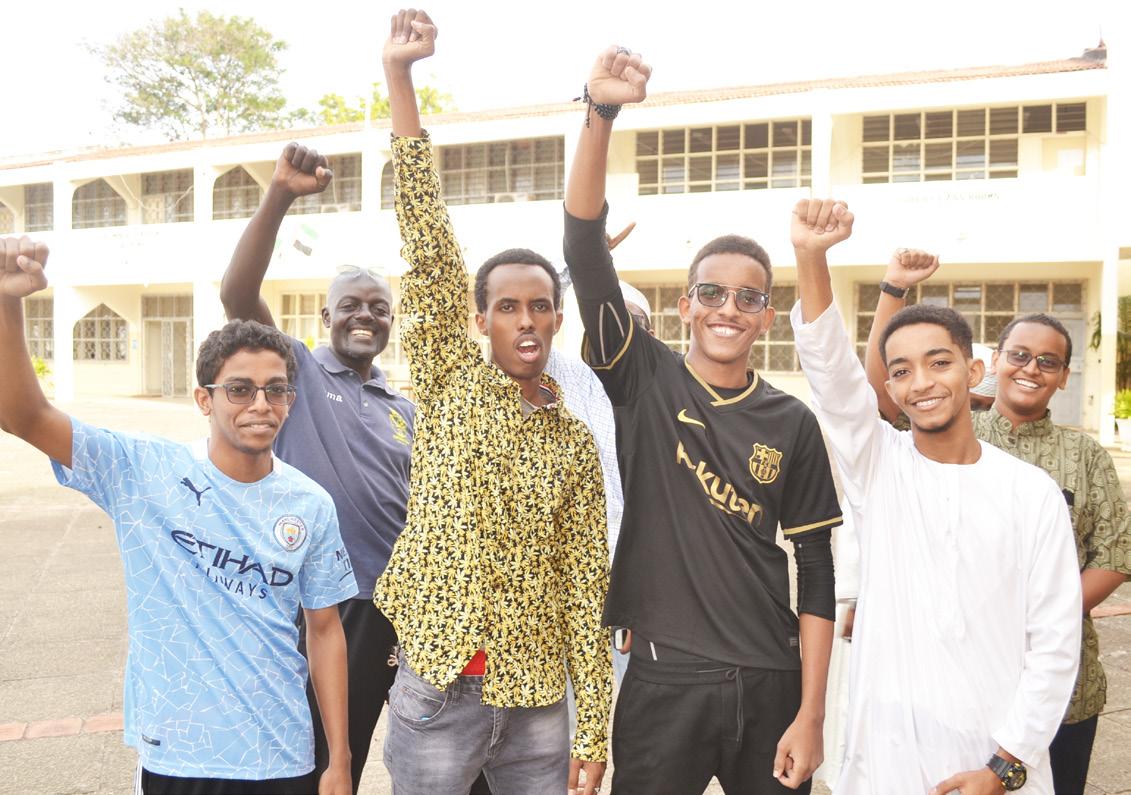
He was followed by 10 other colleagues who scored A minus.
In Mombasa, Sheikh Khalifa produced one A, 29A-, 59 B+, 39 B -, 25 C+, 9 C, 3 C- and a school mean score of 8.964 points. This was, however, a drop from 9.02 mean score in 2019.
Sheikh Khalifa also produced one of the best students in Mombasa Assya Abubakar Ali who got A of 82 points.
Allidina Visram which has been among the top performing schools in the past was among the schools which performed below par according to results.
The former icon of top grades in the region appears to have been drifting further from their glorious days by the day.
In last year’s KCSE, the school recorded five B+, five B, 13 B minus, 18 C+, 25 C plain, 27 C minus, 52 D+, 19 D, and four D minus translating to a mean score of 5.3 down from 5.6 in 2019.
The Principal Juma Mshimu said the school did its best during the hard times of Covid-19 pandemic.
“We did our best in very hard times. Congratulations for the negligible negative deviation,” he said.
The school alongside other Coast giants Mama Ngina Girls and Shimo la Tewa have been known to fly the Coast’s flag high until early 2000 when they all started posting poor results in what educationists blamed on the rising cases of indiscipline amongst some of the
students.
According to teachers and parents familiar with the schools, there have been cases of students dodging classes and in some cases failing to show up in school for months culminating in dwindling performance.
“Initially the school was organised and would only enrol students with top grades in KCPE but at some point it was politicized and you will find every politician would want to have their kids in the school and they ended up taking even indisciplined kids to join the school. That’s how the glory of Allidina varnished. Even the principal has a rough time controlling the situation,” explained a parent.
But despite recent struggles, the two newly promoted National schools- Mama Ngina Girls High School and Shimo la Tewa shot back to glory.
For the first time in five years Shimo la Tewa has produced a straight A with Swaleh Alex emerging top student obtaining 81 points,
Butula Boys leads KCSE in Busia
By Okoth Peter
Butula Boys National School has registered 4 plain As in the Kenya Certificate of Secondary Education (KCSE) examination released by Education Cabinet Secretary Prof George Magoha.
Scoring a grade of A in the county had remained elusive for a period of four solid years prompting the county leadership led by Governor Sospter Ojaamong to find a lasting solution to the problem.
In 2014, the County Government had promised a reward to any student who scored a straight A with a laptop.
according to Principal Mutiso Mbinda.
Out of an entry of 281, the school had 188 scoring C+ and above with one straight A, 11 A-, and 31 B+ translating to a mean score of 7.5 up from 6.2 in 2019.
Mama Ngina had seven A- with the first student Joy Ningala Taura missing an A with just a point after registering an A minus of 80 points according to Principal Mwanahamisi Omar.
“We posted a mean score of 7.4 which is up from 7.1 in 2019. We are very proud with our results,” said the Principal.
Kenyatta High School and Dr Aggrey High School continued their dominance in Taita Taveta County with a string of top grades but failed to produce a straight A.
With a mean score of 8.1 Kenyatta High School, a national school produced A- 16, B+ 30, B 34, B- 41, C+ 24, C 23, C- 10, D+05, and one D.
Dr Aggrey on the other hand had 113 scoring C+ and above from A- 07, B+ 22, B 23, B- 23, C+ 38, C 33, C- 08, and D+ 04 translating to a school mean score of 7.645
With a mean score of 7.4 Murray Girls had 133 out of 189 scoring C+ and above registering A- 3, B+ 11, B 30, B- 45, C+ 44, C 35, C- 19, D+ 1,and one D.
Sheikh Khalifa Bin Zayed’s Abdulmalik Hussein A- of 74 Points
Suleiman Kassim A- of 74 points
Omar Adam A-of 77 Points
Omar Said A-of 78 Points
Bura Girls another National school in Taita Taveta had 102 qualifying for university with A- 2, B+ 14, B 26, B- 20, C+ 40, C 18, C- 14, D+ 7, D 1, and one D-.
In Kilifi Ribe Boys, a National school in Kilifi County emerged top with four scoring A-, 19 B+, 36 B, 36 B-, 31 C+, 46 C, 29 C-, 12 D+, and one was absent translating to a mean score of 7.1925 up from 6.4802 in 2019.
The students who lead were Mukolwe Michael Baraka and Fadhili who scored 82 points each to emerge joint leaders in the county. They were followed by Simon Nyamahonga Mwita and Mingo Hopkins Ejoi who scored 81 points each.
Talking to the press, the School Principal Daniel Ouma said attaining a mean score of 8.15 was no mean achievement and attributed it to team and hard work coupled with determination geared towards winning.
The school, which is located in Butula Sub- County, scored 4 As, 30 A-, 46B+, 45B, 49B-, 62C+, 44C, 11C-, 5D+ and 1D.
On the other hand, Salvation Army Kolanya Girls National School had six girls who scored A-. They are Tracy Nyongesa Makokha, Ann Nyawino, Catherine Olga Nyakalama and Veronica Wafula Wanyonyi who tied on 75 points and Owuoth Akoth Dorothy and Sasala Wendy Ayuma with 74 points.
The school improved its means score from 6.07 it got in 2019 to 6.67.
The neighboring Kolanya Boys High School had two students who scored A-(minus). They are Muhindi M.Duncan (75 points) and Erick Onyango Juma (74).
Sigalame High School had four students who A-(minus). Dicken Ogara and Antonius Waka tied on 78 points with Silas Sanya and Brighten Ombere also scoring 74 points each.
Nambale Boys had one student with A-. It had a mean score of 6.5 ahead of Lwanya Girls who had 6.2.
Also, students from Busia in schools outside the county
performed well. Kenneth Oranga who sat his exams at Kapsabet Boys was ranked seventh nationally with an A plain. He had scored 407 marks in KCPE in 2016.
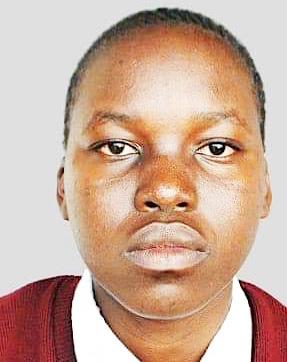
On the other hand, James Alvin Oduya, son to Teso North Sub County Administrator, Zipporah Amoit Odikor, scored a straight A of 83 points at Mangu High School.
Calvin Ekisa, the son to Okemo Omtatah, classmate to Oranga at Kapsabet Boys scored an A-.
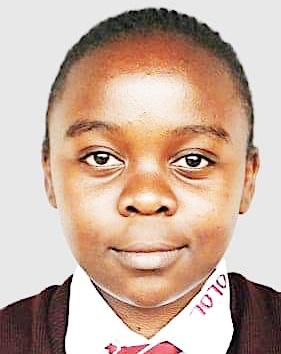
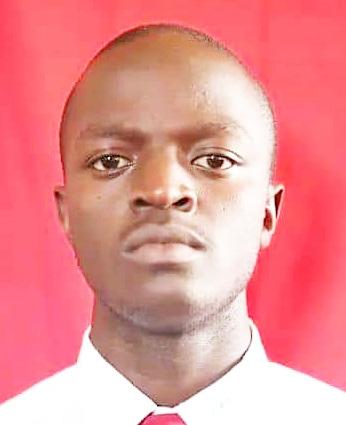
JUNE 1 - JUNE 14, 2021 FOCUS ON 2020 KCSE EDUCATION NEWS 6
Sheikh Khalifa Bin Zayed’s Abdulmalik Hussein (left) Suleiman Kassim (second left) Omar Adam (second right) and Omar Said (right) celebrate their excellent performance.
BUSIA COAST
Kenneth Oranga
Ann Nyawino
Makokha Nyongesa Tracy
Chianda High records improvement, sends 192 students to universities
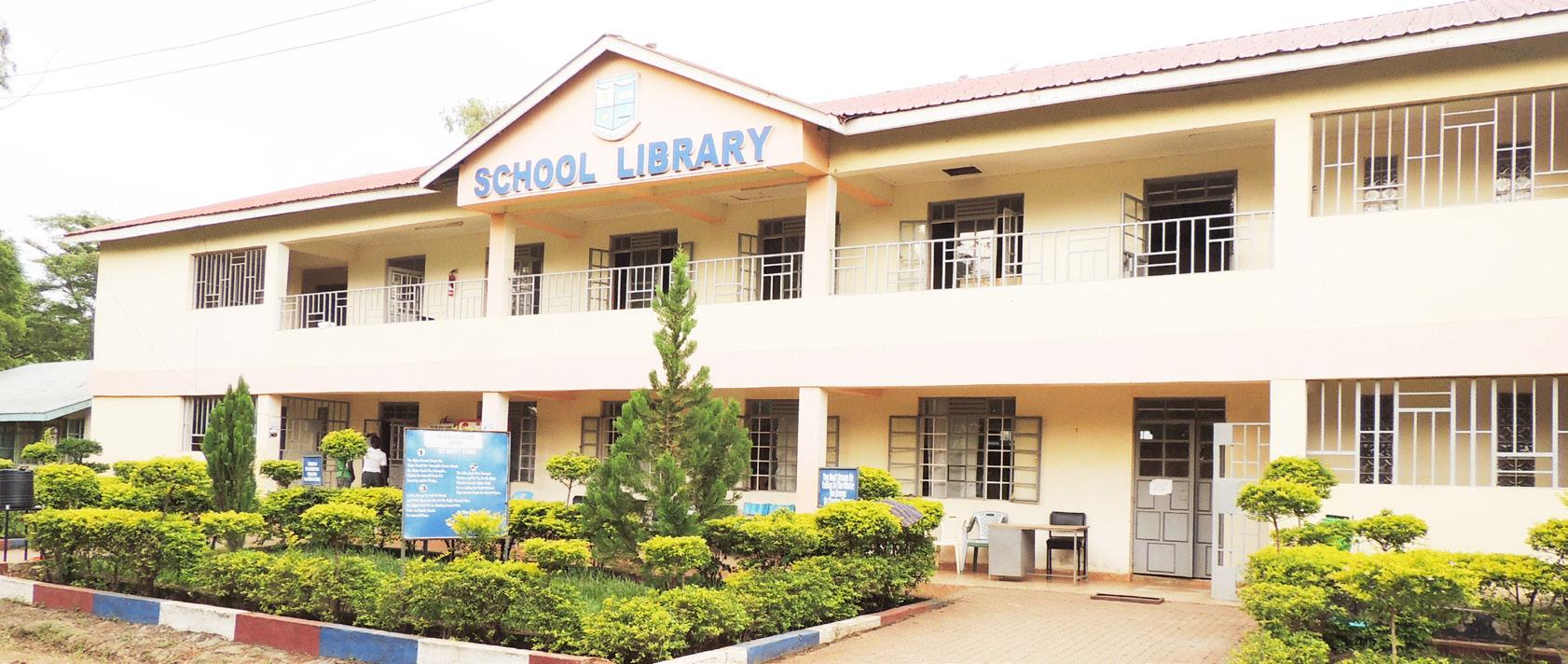 By Erick Nyayiera
By Erick Nyayiera
The improved performance in the 2020 KCSE exams by Chianda High School has been attributed to an array of rich academic programmes adopted at the school.
In the 2020 KCSE results, Chianda High School managed to send 192 students direct to universities which was an improvement from the 2019 KCSE results when the school had 162 candidates getting direct university qualification.
The 2020 results also saw the school mean improve from 6.69 in 2019 to 7.55 which is a positive deviation of 0.855. It was the 6th overall best school in Siaya County after Maranda High School, Rang’ala Girls, Nyamira Girls. Ramba Boys and Ambira Boys.
The school had A- (19), B+ 9 (33), B (42), B- (46), C+ (52), C (52), C- (34) and D+ (10). There was positive improvement in all subjects.
Principal Hezron Oyola attributes the good performance to a combination of well thought out academic programmes in the school that sought to address learners’ specific areas of weaknesses for improvements. He appreciated a great deal his teachers for the hard work and selflessness in their teaching call that culminated in to the improved exam results showing.
Oyola has a rich history of quality leadership having put his former stations Chulaimbo Boys and Manera Secondary School in Kisumu County at very good positions in academic performance standings and infrastructural improvements.
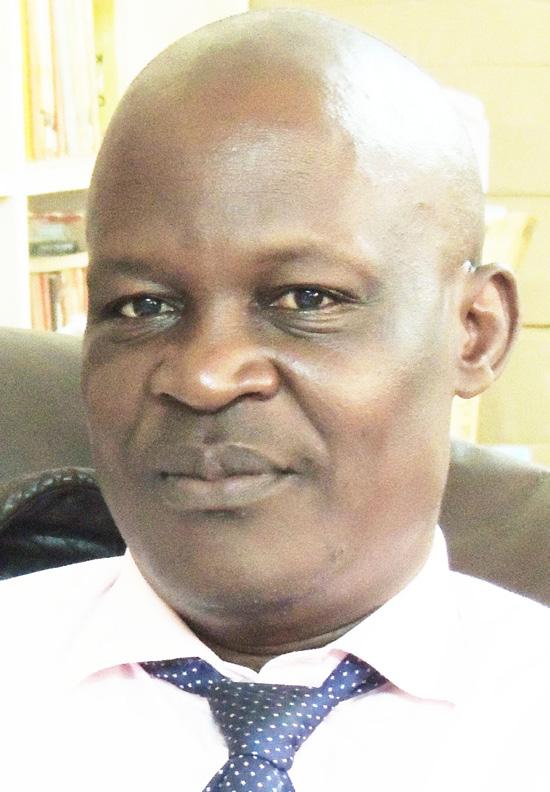
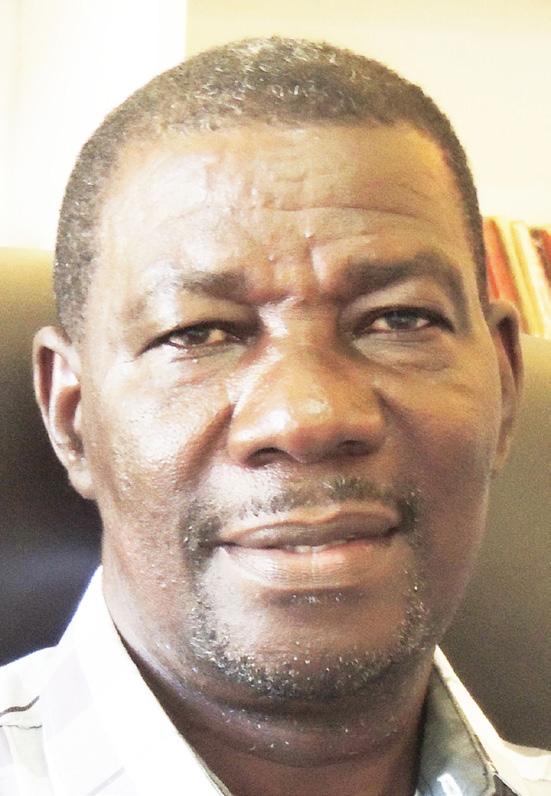
“When I reported to Chianda High School, I found very good programmes in place, I then decided to talk to my able deputies including the Heads of Department and introduced some other rich ideas and programmes which has necessitated the stellar results that we now cel-
ebrate,” noted Oyola.
He stated, “there was emphasis on improvement of group discussions. We also created special attention to weak students by dividing them into cadres according to their abilities. In doing all these, I purposed to create time for the weakest 25 candidates where in one of the ocassions I organised a meal together while we shared and enccouraged them to put more effort. Similarly I called the top 20 candidets and had a meal together while encouraging them too. These deliberate moves bore fruits.”
Key among the programmes was conducting exams on specific topics. There was also a feedback process where there was always an open forum to discuss the success of the academic programmes.
During the release of the 2020 KCSE exams, Chianda High School was mentioned by Cabinet Secretary for Education Prof. George Magoha for having produced one of the top KCSE performers in the Special needs category.
Verone Owino, a boy living with disability managed to scoop a mean grade of A- of 78 points and missed mean grade A with three points. According to the Principal he was instrumental in the academic programmes and was the academic department’s secretary. Owino was also a public speaker who would scale the heights to reach national competitions with his skills.
The Principal introduced a onehour lesson for rapid syllabus coverage. towards the exam period for revision. This programme is designed to run for 12 to 13 days to help meet syllabus coverage targets.
“Apart from the weak students’ clinics, the guidance and counselling department was also pivotal to address individual student challenges. All teachers are trained in guidance that makes them equal to the task at all times when a situation calls. Motivational talks and spiritual nourishments also played a factor in the improved results” explained Oyola.
During the KCPE exam period, the Principal offered his candidates free bread every day at break time to make them comfortable. This has
been his trick in all the stations he has worked in just to let all the students feel equal devoid of the economic challenges they suffer from.
The Principal also appreciated the Ministry of Education, Teachers Service Commision, Board of Management (BOM), Parents Association (PA), Member of Parliament and all education stakeholders for their continues support for the school.
Deputy Principal in charge of Administration Nehemiah Ochieng noted that the results was a welcome news. “It’s always very difficult midwifing transition from one principal to another but we had it easy because the new principal, Mr. Oyola made the transition so smooth that we all fitted together and moved forward, some new principals would want to overhaul the whole system but luckily for us, the structures had been set and there was no problem,” said Ochieng.
He observed that the discipline in school is one of the best and they only have to deal with normal cases. “In the transition if the discipline is wanting then you are doomed,” he added.
The deputy principal stated that the principal added value to what was lacking and that he is very keen on the utilization of time for extralessons. He says creation of more time helped a great deal in syllabus coverage.
“What saved us was our ‘strongest finishing’ where we revised with the boys to the exam door. Extra-time was timetabled and teachers were co-operative and there was no laxity on weekends. Moreover teachers are also aware that their quality will be rewarded and that the mean must count in the end,” noted Ochieng.
The School Principal is currently undertaking key infrastructural developments which include a Sh 6.8 million storey tuition block which will host classes, office and French room.
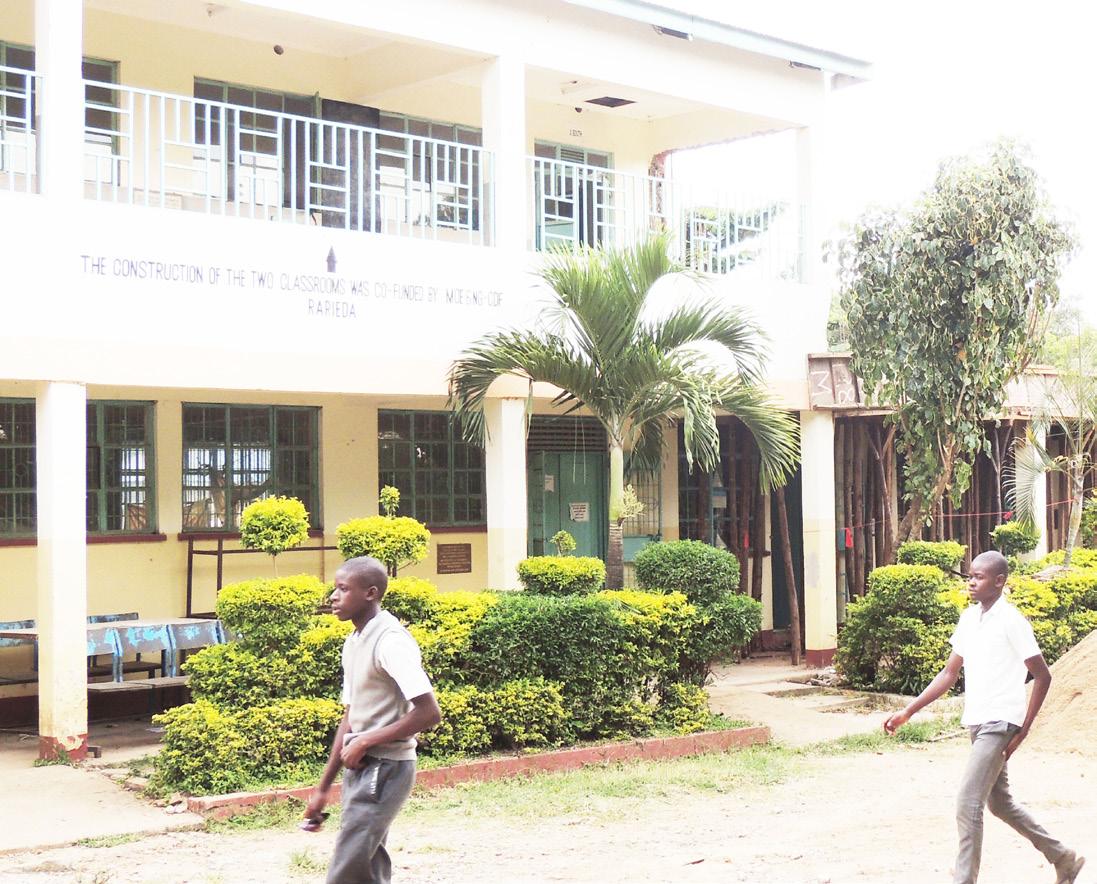
He is also constructing a Sh 50 million storey dormitory complex to house the increasing number of students that currently stands at 1,445.
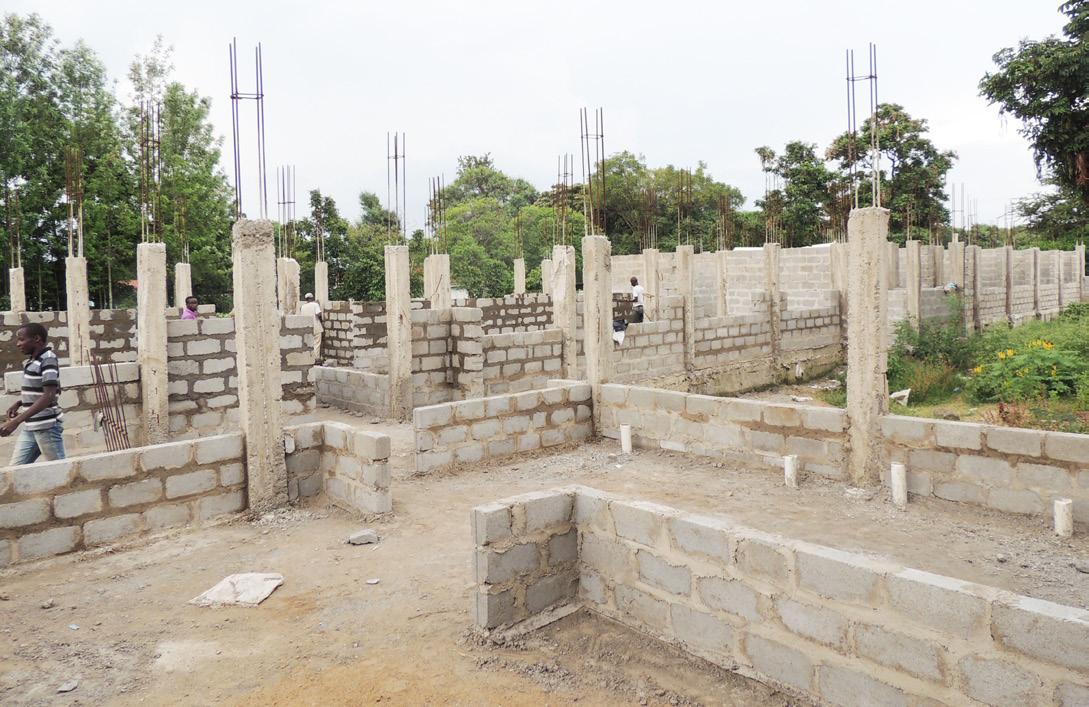
EDUCATION NEWS 7 JUNE 1 - JUNE 14, 2021
Administration Block.
Ultra-modern school library.
Kshs.50 million Storey Dormitory Complex under construction.
Hezron Oyola, Principal
The school had A- (19), B+ 9 (33), B (42), B(46), C+ (52), C (52), C- (34) and D+ (10).
Principal Hezron Oyola attributes the sterling performance to a combination of well thought out academic programmes in the school that sought to address learners’ specific areas of weaknesses for improvements.
FOCUS ON TOP SCHOOLS
Nehemiah Ochieng, Deputy Principal in charge of Administration.
By Hilton Mwabili
Kenya Coast National Polytechnic has set up an unrivalled cutting-edge pastry laboratory with high-end technology.
With the creation of the pastry laboratory, Kenya Coast Polytechnic is ready to equip its students with the latest world class skills in baking.
In one corner in the far end, is a giant multi-storey Wachtel-electric baking oven, overlooking other equally top of the range cookery technologies.
Towering to eight feet tall, the oven is designed with a programmable digital unit that enables you to preset and run your baking programmes by just touching a few icons displayed on a series of screens located at the edge of the oven’s face.
As KCNP Head of Department in charge of Career Services Anthony Macharia demonstrates how it works. He said the oven has a slot for removable storage where you can schedule your programme elsewhere and run it on the oven via USB drive.
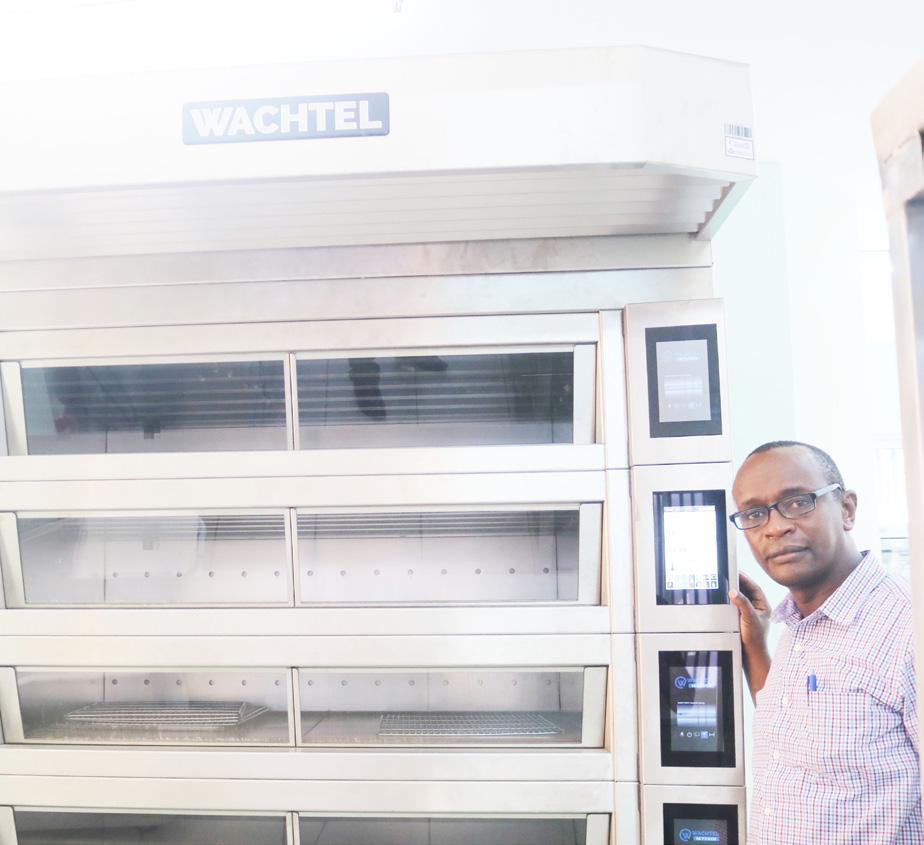
Such technologies are found in world’s best bakeries and for many established institutions acquiring such equipment can only be considered farfetched dreams.






But the Mombasa based college recently acquired the equipment and joined the world-class league, thanks to the sponsorship by Canadian government through Kenya Education for Employment programme (KEFEP), a fiveyear initiative focused on strengthening and supporting technical and vocational education and training (TVET) in Kenya.
But that is not all. There is more in the Mixology
conducted a labour market survey and identified gaps which we seek to feel by churning out specialists. Mixology is a marketable course at the moment. Graduates can work in the hospitality industry including in cruise ships and will earn a living,” she explained.
ond year of implementation.




lab where, Chief Principal Anne Mbogo says KCNP is seeking to produce astute Bartenders under one of the newest courses advertised for the first time in historyBartender (Level 4), which is also under KEFEP.
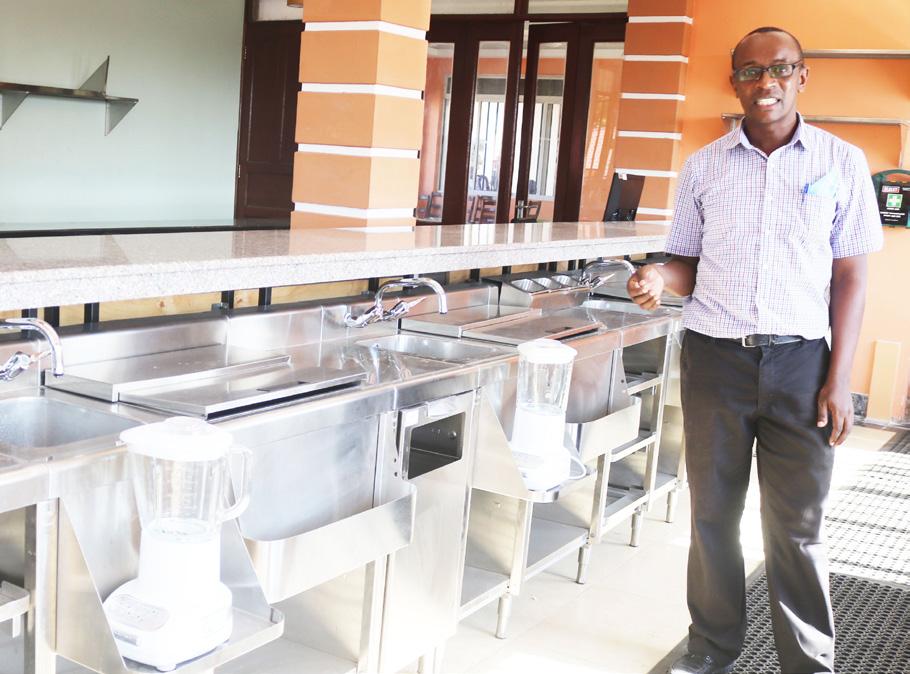
With the assortment of cutting-edge mixers in the mixology lab, it is possible to come up with a range of premium cocktails from alcoholic to non alcoholic beverages.
“For the first time we will be training expert Bartenders and we have a special component of mixology where we train people to make cocktails of various drinks in
Besides the stunning growth under KEFEP, there is the East Africa Skills for Transformation and Integration Project (EASTRIP) through which the college is undertaking a number of landmark projects intended to change the face and history of the institution forever.
One such project is Marine Transport and Port logistics in which according to Mbogo, the college is at an advanced stage of establishing a Regional Centre of Excellence at Waa area in Kwale County.
“The County Government donated land totalling 16.34 hectares which we are going to use to put up the centre of excellence,” she said, adding the new centre is likely to turn around the standards of the institution to a whole new level by earning the college an international recognition by attracting foreign students.
Kenya Coast National Polytechnic was awarded the EASTRIP project in 2017 through a competitive process.
According to Mbogo, it started through application processes by different institutions and KCNP was shortlisted. It was eventually selected in January 2018.
“After developing strategic development plans and planned for the project, it was eventually declared effective in September, 2019. In February 2020 the school officially started receiving funds,” the Principal said.
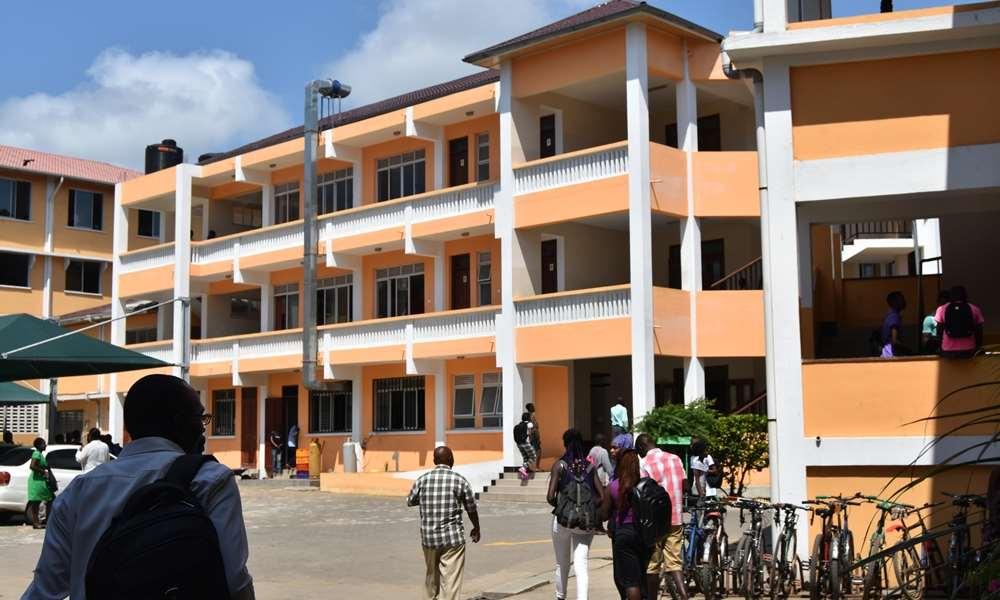

“We have hired consultancy services for different activities that are ongoing, within the process of finishing hiring consultancy for designing and supervision and of course we have a very strong industry advisory board in place which is guiding us in terms of the programs to develop, sea time for students and this board is going to assist us in achieving that,” points out the principal.
She says the World Bank will fund the project for five years but thereafter it is expected to sustain itself and it is against this backdrop that the institution is focusing on building governance structures, strengthening industry linkages, capacity building for staff from top to bottom and curriculum development.
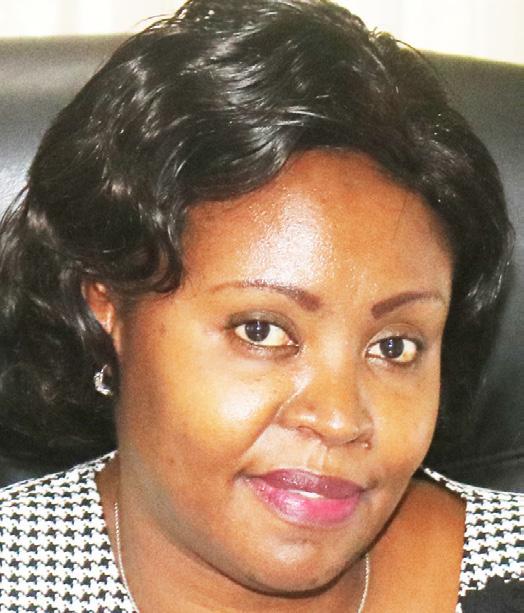




“Our main focus is skill development and for a start we shall be focusing on short programs which are industry demanded. The industry will tell us we need a certain skill of people and we are able to
deliver within a short period. Then we will go for longer programs, artisan, and certificate up to Diploma. We are targeting areas of cruise, engineering, nautical sciences, ship repair and building, port equipment handlers and
Kenya Coast



























all that,” explains the College boss.
The project is a US dollar 10.8 million, and the institution has so far received the first disbursement of Sh200 million for operationalization.
Kenya Coast National Polytechnic
Kenya Coast National Polytechnic
Kenya Coast National Polytechnic
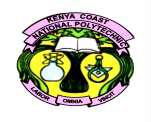

Proposed Regional Centre of Excellence in Marine Transport & Port Logistics
Programmes for the year 2021
Kenya Coast National Polytechnic (KCNP) is a Technical and Vocational Education and Training (TVET) institution with a mandate to offer technological based programmes ranging from Artisan to Degrees, with special focus

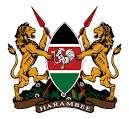





Kenya Coast National Pol ytechnic (KCNP) is a Technical and Vocational Education and Training (TVET) institution with a mandate to offer technological based programmes ranging from egrees, with special focus on TVET. It provides access to further training and education to TVET graduates, as well as undertaking research and KCNP was competitively selected by the World Bank and Government of Kenya to be a Regional Flagship TVET Institution in Janua ry 2018 under East Africa Skills for Transformation and Regional Integration Project (EASTRIP). KCNP is therefore deve f Excellence in Marine Transport & Port logistics, a Centre which aims developing competent graduates for the maritime sector
various styles. Knowing just how much to add to a drink and how much to hold back on is truly an art, where that golden ratio of getting it just right is everything. And this is why we need to produce experts in that,” explained Mbogo during an interview.
These, she says are courses introduced in the school following extensive labour market survey, training needs assessment and tracer study that identified gaps.
“We did not just wake up one morning and decided to start the course. We first
“World Bank chose four sectors including manufacturing Transport, Infrastructure, and ICT. We chose Marine Transport and Port logistics. Remember maritime is a very wide area starting from port to the cargo, to the cruise ship and more besides. So we will be dealing with all those areas,” she noted. “Under this project the World Bank wants us to achieve three main goals. Improve the quality of training, improve access to training and improve regional integration,” she said, adding the project is now in its sec-
EDUCATION NEWS 8 JUNE 1 - JUNE 14, 2021
EDUCATION NEWS
Regional Centre of Excellence in Marine Transport & Port Logistics
Proposed
Kisauni Road, Off Jomo Kenyatta Avenue
Kisauni
Road, Off Jomo Kenyatta Avenue
Proposed Regional Centre of Excellence in Marine Transport & Port Logistics Kisauni Road, Off Jomo Kenyatta Avenue
on TVET. It provides access to further training and Proposed Regional Centre of Excellence in Maritine Transport & Port Logistics P.O.Box 81220 Mombasa Contacts: Administration 0712725554, 0710389727; Registrar 0719431215 Kisauni Road, Off Jomo Kenyatta Avenue Email: info@kenyacoastpoly.ac.ke Website: www.kenyacoastpoly.ac.ke
Proposed Regional Centre of Excellence in Marine Transport & Port Logistics Kisauni Road, Off Jomo Kenyatta Avenue Kenya Coast National Pol ytechnic (KCNP) is a Technical and Vocational Education and Training (TVET) institution with a mandate to offer technological based programmes ranging from Artisan to Degrees, with special focus on TVET. It provides access to further training and education to TVET graduates, as well as undertaking research and innovation. KCNP was competitively selected by the World Bank and Government of Kenya to be a Regional Flagship TVET Institution in Janua ry 2018 under East Africa Skills for Transformation and Regional Integration Project (EASTRIP). KCNP is therefore deve loping a Regional Centre of Excellence in Marine Transport & Port logistics, a Centre which aims at developing competent graduates for the maritime sector The Mixology lab.
Coast National Polytechnic acquires cutting-edge pastry laboratory Anne Mbogo, KCNP Chief
KCNP Head of Department Career Services Anthony Macharia demonstrates the functionality of the Wachtel-electric baking oven in the Pastry lab.
Kenya
Principal.
Kenya Coast National Polytechnic
Programmes for the year 2021
Kenya Coast National Polytechnic
Kenya Coast National Polytechnic

Proposed Regional Centre of Excellence in Marine Transport & Port Logistics
Proposed Regional Centre of Excellence in Marine Transport & Port Logistics
Kisauni Road, Off Jomo Kenyatta Avenue
Kisauni Road, Off Jomo Kenyatta Avenue
Information Communication Technology (Level 4) International Computer Driving License


Diploma in Pharmaceutical Technology Approved by Pharmacy and Poisons Board Registration No: PB/COL/014/07



or Kiswahili













Approved by KMLTTB C with C in Mathematics or Physics, Biology/Biological Science, Chemistry/Physical Science, English or Kiswahili or Pass in
Diploma in Medical Laboratory Technology
Diploma in Medical Engineering Technology
MASINDE MULIRO UNIVERSITY COURSES IN MEDICAL SCIENCES DEPARTMENT
Diploma in Community Health and Development
Kenya Coast National Pol based programmes ranging from as well as undertaking research and




Kenya Coast National Pol ytechnic (KCNP) is a Technical and Vocational Education and Training (TVET) institution with a mandate to offer technological based programmes ranging from Artisan to Degrees, with special focus on TVET. It provides access to further training and education to TVET graduates, as well as undertaking research and innovation.
Certificate in Community Health and Development
Diploma in Medical
Certificate in Medical Biotechnology

KCNP was competitively selected by the World Bank and Government of Kenya to be a Regional Flagship TVET Institution in Janua Africa Skills for Transformation and Regional Integration Project (EASTRIP). KCNP is therefore deve Transport & Port logistics, a Centre which aims developing competent graduates for the maritime sector


KCNP was competitively selected by the World Bank and Government of Kenya to be a Regional Flagship TVET Institution in Janua ry 2018 under East Africa Skills for Transformation and Regional Integration Project (EASTRIP). KCNP is therefore deve loping a Regional Centre o f Excellence in Marine Transport & Port logistics, a Centre which aims at developing competent graduates for the maritime sector
EAST AFRICA SKILLS FOR TRANSFORMATION AND REGIONAL INTEGRATION PROJECT (EASTRIP) PROGRAMMES
Applied for:
know about K (Specify)



Friends ____ Student ______
facilities are available for female students at KES 8,000 per term and KES 1,000 caution money for new students. application coupon should be forwarded with a non -refundable application fee of KES 200 deposit in our institute account: Kenya Coast National Polytechnic, Kenya Commercial Bank (KCB), Account number 1106525027 Branch: Treasury Square Mombasa enclosing copies of results slip to: The Chief Kenya Coast National Polytechnic, P.O. Box 81220-80100, Mombasa.

Others (Specify)

EDUCATION NEWS 9 JUNE 1 - JUNE 14, 2021 CLASS CODE COURSE/DEPARTMENT QUALIFICATION DURATION EXAM BODY TERM FEE HOSPITALITY AND TOURISM MANAGEMENT DEPARTMENT DCAM21M Diploma in Catering and Accommodation Management C- or Craft Certificate 3 Years KNEC 38215 DFBM21M Diploma in Food and Beverage Management C- 3 Years KNEC 38215 DTM21M Diploma in Tourism Management C- 3 Years KNEC 35785 CRFB21M Craft Certificate in Food and Beverage Production D 2 Years KNEC 35125 CRTGT21M Craft Certificate in Tour Guiding and Travel D 2 Years KNEC 34495 CFOA21M Certificate in Front Office and Administration D 9 Months KCNP 27215 AFB21M Artisan in Food and Beverage Production KCPE 1 Year KNEC 33155 BT(4)21M Bartender (Level 4) - KEFEP D 1 Year CDACC 30000 PC(4)21M Pastry Cook (Level 4) - KEFEP D 1 Year CDACC 30000 PTDO21M Proficiency in Tour Driver Operation Tour Operator and PSV Driver 3 Months KCNP 32755 PW21M Professional Waiters Open 2 Months KCNP 34300 PFO21M Proficiency in Front Office CC21M Customer Care FP21M Food Production CMD21M Cake Making and Decoration Open 2 Months KCNP 22000 LT21M Laundry Techniques Open 3 Months KCNP 32000 HKT21M House Keeping Techniques Open 3 Months KCNP 37200 PC21M Pastry Chef HCM21M Home Care Management EPM21M Event Planning and Management FASHION DESIGN AND COSMETOLOGY DEPARTMENT DFD21M Diploma in Fashion Design VIPAWA ACADEMY VP21M Video Production Open 6 Months KCNP 32100 FPR21M Film Production Open 6 Months KCNP 26215 CPH21M Commercial Photography Open 3 Months KCNP 20000 PI21M Portraits and Illustration Open 6 Months KCNP 20000 DVJ21M Disk Jockey/Disk Video Jockey Open 3 Months KCNP 22000 MI21M Musical Instruments Open 3 Months KCNP 24000 SECRETARIAL AND LIBERAL STUDIES DSS21M Diploma in Secretarial Studies C- 3 Years KNEC 32615 CRSS21M Craft Certificate in Secretarial Studies D 2 Years KNEC 31240 CRCO21M Craft Certificate in Clerical Operations D 2 Years KNEC 30515 CSS21M Certificate in Secretarial Studies D- 2 Years KNEC 28615 SG21M Certificate in Secretarial Studies (Single and Group) Open 3 Months KNEC 19315 APPLIED SCIENCES DEPARTMENT DES21M Diploma in Environmental Science C 3 Years KNEC 31980 DAB21M Diploma in Applied Biology C 3 Years KNEC 32215 Years KNEC 32215 Years KNEC 33565 2 Years KNEC 32215 Craft Certificate in Food Processing and Preservation Technology 2 Years KNEC 32215 AQC(3)21M Aquaculture (Level 3) KCPE 1 Year CDACC 26265 DGA21M Diploma in General Agriculture C- 3 Years KNEC 32215 or Craft Certificate 3 Years KNEC 32165 or Craft Certificate 3 Years KNEC 32165 or Craft Certificate 3 Years KNEC 32215 2 Years KNEC 33155 2 Years KNEC 33205 EAST AFRICA SKILLS FOR TRANSFORMATION AND REGIONAL INTEGRATION PROJECT (EASTRIP) PROGRAMMES Marine Engineering CRME21M Craft Certificate in Marine Engineering D 2 Years KNEC 33235 RAC(5) 21M. Refrigeration and Air Condition (Level 5) D 1 Year CDACC 33185 ASF21M Artisan in Seafarers KCPE 1 Year KNEC 33235 Shipping DSP21M Diploma in Shipping and Logistics C- or Craft 32165 Craft Certificate in Shipping and Logist 33185 Maritime Transport and Logistics (Level 6) CDACC 32280 Diploma in Clearing and Forwarding 32280 Diploma in Freight Management 32280 Craft Certificate in Freight Management 2 Years KNEC 32280 Cruise Service and Management CRCTO21M Craft Certificate in Tourism Operations D 2 Years KNEC 34495 CRSM21M Craft Certificate in Spa Management D 2 Years KNEC 34495 TGO(4)21M Tour Guiding Operations (Level 4) D 2 Years CDACC 35125 Limited hostel facilities are available for female students at KES 8,000 per term and KES 1,000 caution money for new students. This application coupon should be forwarded with a non -refundable application fee of KES 200 deposit in our institute account: Kenya Coast National Polytechnic, Bank Name: Kenya Commercial Bank (KCB), Account number 1106525027 Branch: Treasury Square Mombasa enclosing copies of results slip to: The Chief Principal, Kenya Coast National Polytechnic, P.O. Box 81220-80100, Mombasa. How did you know about Kenya Coast National Polytechnic (tick appropriately): Newspaper_____ Radio _____
Certificate in Programming Open 2 Months KCNP 9000 Certificate in Computer Applications Open 2 Months KCNP 6200
MEDICAL SCIENCES DEPARTMENT
C with C in Mathematics or Physics, Biology/Biological Science, Chemistry/Physical Science/English
3 Years KNEC 28800
_________________________________________ __________________________ _____________________________ ___
Managing education systems amidst Covid-19
The Covid-19 pandemic has been among the worst nightmares in the past century. It brought in panic and despair, but also reflection, resilience, and hope; and adversely affected the economic and education sectors the most.
Teaching-learning and training in almost all countries were affected, with over 90 per cent of students out of school including above 15 million in Kenya while thousands of students studied from home.
Educational institutions in Kenya quickly delved into putting in place additional policies, systems, infrastructure, and teaching-learning strategies among other protocols.
Primary, secondary and vocational sectors have been the worst-hit compared to higher education institutions.
We,therefore, recommend that such hard hit institutions should embrace proper online/blended teaching and learning rather than emergency remote teaching.
The State should put in place plans that would help in dealing with the new normal.
The most important being institutional management leadership, meticulous planning, a robust student information management system, and faith in the strength of e-learning, staff and student competency in using technology for learning and aligning the curriculum to the new seamlessly interactive platform.
With technology, there will be hybridized flexible classrooms post-Covid, mostly with interaction and learning taking place through the Internet —‘school in the cloud’.
The practical and experiential discussions on learning, teaching, curriculum, assessment, technology, and the schoolhome relationship shall be useful to those engaged in child learning.
This augurs well with the understanding today about ‘social shaping of technology.
There is a need for Kenya government and institutional leaders to reconsider or revisit their policies, programmes, models, and approaches to deal with the new normal.
Open, distance, online, and blended learning are the future strategies and disruptive innovations to take centre stage.
While policies and institutional provisions are prerequisites, it is the actual process of doing it which is crucial. This country needs to arouse interest and motivate learners for necessary action, which is crucial during- and post-Covid-19 learning for development.
OPINIONS & COMMENTARIES
Teachers
President Uhuru Kenyatta has formally named Jamleck Muturi as the Teachers Service Commission (TSC) chairperson.
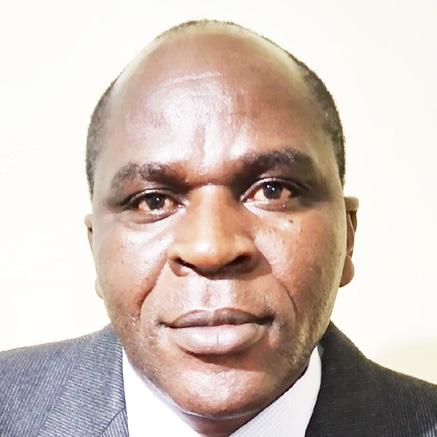
The National Assembly on April 28 approved the nomination of Muturi who will serve in his new role for six years. Who is Jamleck?
In 2008, when my friend and I met Jamleck in Embu, then a Principal Kavutiri school, I saw an intelligent and very enthusiastic school head but I never imagined he would become chair of the teachers’ employer.
The new TSC Chairman, Jamleck Muturi John is a man with a rich experience in matters education and teacher management. We can therefore expect nothing but growth.
He understands the Kenyan Education well. He is a product of the old 7-4-2-3 education system having done his Kenya Advanced Level Certificate Examination at Chogoria Boys.
He started his career as a classroom teacher at St. Peters Kathakwa Secondary School (Embu) and remained in our schools for 23 years, grounding him well for the task ahead.
programs and deputy principal Nguviu Boys for four years managing teachers and learner discipline.
Jamleck as he is popularly known served as a Principal at M’tetu, Kavutiri and Moi High School Mbiruri for a total of twelve years making him hands on school supervisor and manager in rural and urban Kenya.
He is a religious man who has served as a member of Standing Committee of Synod in the Anglican Church of Kenya (ACK).
welfare
through their own life-long learning efforts have been side-stepped by successive regimes in TSC during promotion.
He will be a perfect link in matters personnel between pre-school, primary, secondary and university as well as faith sponsored schools in Kenya.
As a coordinator in field course for Swedish University of Agriculture Sciences (SLU) students on ‘Global Development, Natural Resources and Livelihoods in Kenya, and LinaeusPelme exchange program for Swedish University of Agriculture Sciences and Embu University College (EUC) Kenya, we expect to see more partnerships between International universities and Kenyan teachers.
As a teaching fraternity, we welcome him with open arms and high hopes that he will take Kenyan education to the next level.
Yes, during your tenure, you have to feed the technological world with well trained personnel.
Chief Executive Officer: Peter Silsil
Managing Editor: David Kipkorir
Revise Editor: John Nyaosi
Staff Reporter: Roy Hezron

Head of Marketing: Peris Cherono
Layout & Design: Gabriel Sankale & Sydney
Kimiywi
Distribution Team: Daniel Maganya, Gerald Labatt & Peter Suge
He understands the 8-4-4 education system well and has been instrumental during the preparation, pilot and launch of the new Competence Based Curriculum (CBC).
He was head of Department Huruma Girls’ managing academic
He understands pre-school and tertiary education since he served as CEC Education Science and Technology and ICT-Embu County for seven years. He will be instrumental in streamlining issues of pre-school teachers, a matter that has not been tackled adequately.
As a scholar with an earned Doctor of Philosophy Degree, Jamleck will have an answer to issues of teachers holding higher education degrees; whose investments in high quality
To quote His Highness the Aga Khan, the most single factor that determines the success of education in any country is the intellectual quality of the teacher and teacher management. Over to you Jamleck. We wish you well.
Dr. Turuthi Deputy Principal Flamingo Secondary School holds a PhD in Educational Communication Technology
Email: davidgitau4@gmail.com
EDITORIAL
Focus on 2014 top KCPE Schools - Pages News The Bestselling Newspaper on Education
Registered at GPO as a newspaper www.educationnews.co.ke EDUCATION NEWS 10 Dear readers: Kindly send your observations or views on topical education matters to news@educationnews. co.ke. Note that the Editor reserves right to edit your articles for purposes of clarity and precision. JUNE 1 - JUNE 14, 2021
hope new TSC leadership will raise their
David Turuthi
Advice to Form Four leavers on managing change and transition
Dear ex-Kenya Certificate of Secondary Education (KCSE) Candidate, finally it is here! Freedom! You can now do that which is useful and right. However, keep this in mindfreedom comes with a price. The price is the responsibility that comes with it. You are now an adult, right?
Even by a long stretch, every candidate is now heaving a sigh of relief after four years. Nay, four years and four months of toil and moil. For sure, you deserve a bouquet of flowers after achieving a major academic milestone in your life, at least in Kenya.
Many Form Four leavers, if not all, yearned for freedom and at last it is here. KCSE just ended the other day and examiners have burnt the midnight oil and completed marking in record time.
Immediately the Form Fours were done with the exams, Victor Ochieng’, a career counsellor; Jackson Makula, an associate and I played our part by engaging candidates in several schools to give them gainful insights on what to do next after KCSE.
There are several viable op-
tions that we explored worth pursuing and equally good alternatives that a candidate may consider.
Psychologists say that coping with change is easier said than done. Managing change is a primary life skill that young people need all their lives.
There are many aspects of life that call for promptness in decision-making and assertiveness. The average age of all post-KCSE candidates could be nineteen years.
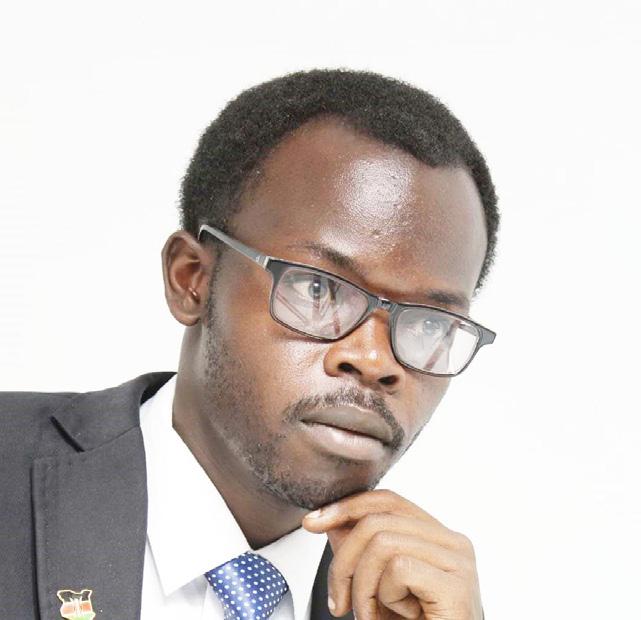
This means, they are still teenagers and young adults who need close monitoring, guidance and mentoring. School is not a prison; it is a training ground and as such it churns out productive individuals who should, fit in society; by the help of the society.
School life has just come to an end. What next? How will they transition from school life to the next? How will they communicate their needs, aspirations and dreams to their parents? How will they keep abreast with the dynamics in this fast-
By Michael Masinde
changing world?
The answers to these questions will definitely shape them into adults - their adaptability, personal accountability and ability to speak up will come in handy.
One, you need to open a formal e-mail address and apply for an official and legal national identity card (commonly called an ID). An ID opens up a world of opportunities as everything you will need, from now on will require identification.
You can also apply or collect your Huduma Card.
Two, you can pursue a certificate in the course you love and later enrol for a diploma course and finally qualify to ap-
ply to join an undergraduate programme of your choice.
Three, this is of supreme importance. It is your responsibility to browse for available courses, research and confirm from any government education office if the institution of higher learning you intend to join is accredited to offer the course you want to pursue.
As you wait to join tertiary institution, ensure that you have duly cleared with your former school and collect all the required academic and supporting documents.
You will need to have the official school contact for any communication. Since communication is a two-way traffic, let your school have your official contacts in its contact book.
While at home, put your talents, gifts and skills to practice. Join a youth group, local church or non-governmental organisation and take part in the baking of the national cake.
You can also volunteer to serve in any capacity at an opening. Watch out for sweet deals that sound too good to be trueyou can easily be conned or live to regret later after wasting a lot of time in some ghost projects.
Your life is just starting and you must appreciate the fact that you need mentoring. Before you sleep, prepare a what-to-do-list to guide you the next day. Most importantly, create time for your family and help your parents to create wealth.
Parents and teachers are called to be intentional and instructive in helping the youth manage change. Perhaps we need to answer this question: what is change?
Change is an ongoing process that keeps upsetting and resetting the terms of person’s existence all their life, moving them from an old to new, same to different, familiar to unfamiliar, known to unknown state or circumstance.
This sounds like a textbook definition. Know this, change is inevitable. Change is normally accompanied by some challenges. If you end an old relationship, you will have to cope with the new life.
If a job ends and you start a new one, you are confronted with the challenge of starting anew.
The writer is a teacher and a public speaker in schools. masindemic@gmail.com
Strategies to improve performance of English in schools
A critical analysis of 2020 Kenya Certificate of Secondary Education (KCSE) depicts that the performance in English subject was not that good.
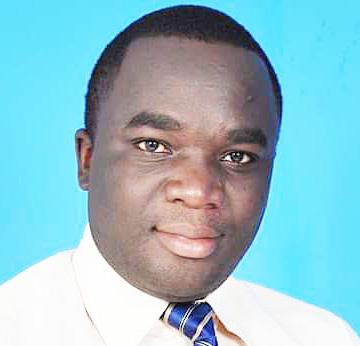
Even though English pundits are still waiting for the Kenya National Examination Council (KNEC) reports, I have come to this revelation of dismal performance based on my wide interaction with schools across the country.
When the top students in KCSE 2020, Robinson Wanjala and Allan Wasonga were interviewed, they all said that they faced difficulties in the English papers.
I am cock-sure that they were not the only ones who faced this problem, but also several students across board. Passing in English with flying colours is not a walk in the park as some think. It is a herculean task. It requires a lot of work to be done.
English being a subject in Group One, it behooves all candidates to register peak performance in it so that they position themselves well for choice of courses in colleges and universities.
Law is one of those professions that require students to score highly in English as a core cluster subject.
As I pen this piece, a student who yearns to pursue the legal profession, should scoop at least a B+ (plus) as the mean grade, and B (plain) in English.
The student who yearns to become a lawyer in future is
also required to wield marvellous mastery of English skills – both written and spoken.
This is perfectly brought out in The Essential Career Guide, a well-worded book done by Kenya Universities and Colleges Central Placement Service (KUCCPS).
English becomes tough at KCSE level because some students toy with it a lot. Of course, the poor performance can also be attributed to failure to employ the best teaching practices right from the foundational level.
It is clear like crystal. That English is a skill-based subject. There are four major skills that we have to focus on – listening, reading, speaking and writing. Other skills include: literary, comprehension, critical thinking, et cetera.
Schools cannot get good mean grades in this subject if they only focus on the bare minimum. That is, confining learning of language and literature to the four walls of the stone-walled classrooms.
A few skills I have cited cannot be gained only in text books and set books. There are myriad ways to hone English skills outside classroom. Students must engage in performing arts like music and drama. Teachers should organise public speaking competitions as a way of enhancing practical use of language.
By Victor Ochieng’
In addition to that, thepowers-that-be, must check on the kind of speakers they often invite to talk to students. They must be people who don’t promote travesty of language.
Be it preaching in the school Sunday services, or delivery of pep talks in group counselling sessions facilitated by guest speakers, schools should never forget that those are meeting of minds where students learn language to a great extent.
So, if they are fond of inviting mediocre presenters who struggle to express themselves, then you know the kind of students they will be grooming in grammar.
School heads must also know that for students to shine like lucent light in English, they just need to love language and have intense interest in it. That means that the school must strive to have the finest teachers of English.
In the whole scheme of things, teachers of English have a pivotal part to play. When they stick to wise use of language before the learners, this will have a great impact.
Teachers of English must exude high command of language. Before they compel learners to be imaginative and creative, they should stand on the front of the queue and lead by example. Just to be blunt about it.
It is difficult to teach learners how to write right when the teacher cannot write even a chicken story.
We have to put a lot of premium on the language policy in schools. Encourage learners to express themselves in impeccable English.
Make them know how the sheng slang dents English. Once students have been taught or have learned some important aspects in English – vocabulary, grammar and pronunciation – they should put that into persistent practice. That is, both in speech and written forms.
One reason why some schools perform dismally in English is because they don’t teach English properly at foundational levels. How many schools ensure that students write Compositions when in Form One and Two?
How many schools ensure that Form One and Two students interact with the class readers enshrined in the Orange Book by the Kenya Institute of Curriculum Development
(KICD)?
We only jolt into consciousness when students get to Form Three. That is when we introduce them to set texts. That is when we begin to nurture a culture of intensive reading. But as you all know; you cannot teach an old dog new tricks.
Most of them struggle to read those books, and that is why examiners meet textual and factual errors littering their scripts.
Therefore, to make it plain, some schools get it all wrong because they toy a lot with the Form One and Two classes.
They entrust those classes with fledgling upstarts fresh from college – with zero cache of experience – struggling to conceptualise relevant content in English.
I know this happens in most cases due to acute teachershortage. But even as we leave the Form One and Two classes to tutors who are still struggling to get it right, the one-billiondollar question is: do we have the home-grown quality assurance or monitoring and evaluation mechanisms that can save a class from average teaching methodologies?
In a nutshell, let us not wait until homestretch that is when we start rehabilitating an irredeemable class because an irreparable damage was committed at the lower level.
The writer is an author and a trainer. vochieng.90@ gmail.com.
EDUCATION NEWS 11 JUNE 1 - JUNE 14, 2021 OPINION
Varsity to be top research centre
By Tindi Kuchio
Chuka University has embarked on a long term goal of becoming a top centre of research and innovation in environmental conservation and renewable energy.
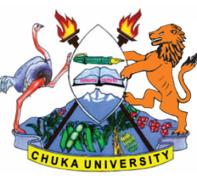
Speaking during the ninth graduation ceremony, Vice-Chancellor Prof. Erastus Njoka said the 13-storey multi-billion shilling Science and Technology Research Park currently being constructed at the university will host the centre.
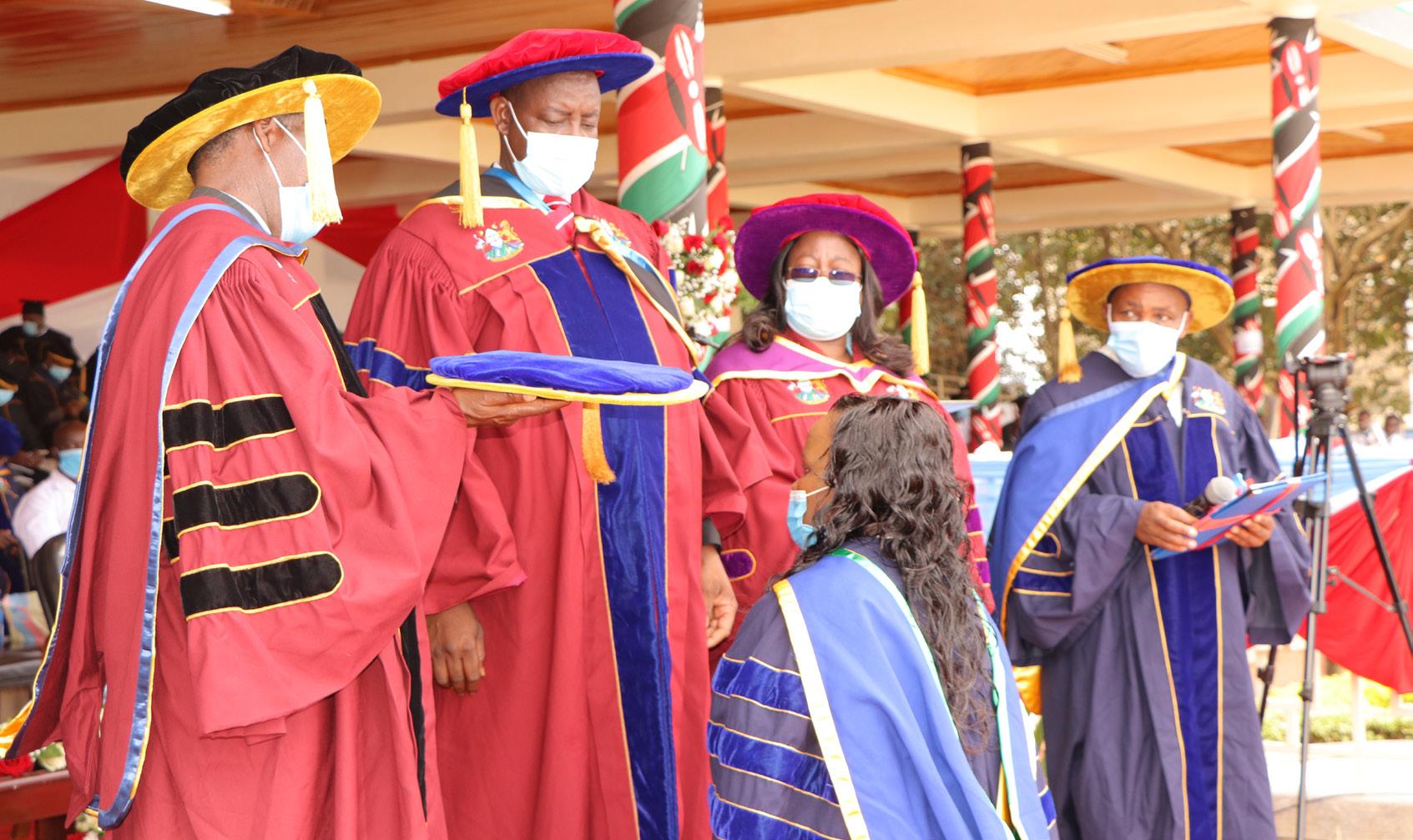
It will become the hub of research and innovation by scientists from around the world once complete.
“Research is part of student training, which in turn gives impetus to innovation resulting in the creation, dissemination and application of new knowledge,” stated Prof. Njoka.
He said the university was aware of the devastating effects of environmental degradation and the attendant climate change in the country.
That is why it positioned itself as a centre of excellence in environmental conservation and renewable energy through various corporate social responsibility initiatives.
Prof. Njoka revealed that the university launched the annual tree planting exercise in 2019 and distributed 200, 000 seedlings which were planted in Tharaka Nithi, Meru and Embu counties.
Over 500, 000 tree seedlings were also planted in schools and neighbouring communities with an additional 700, 000 to be given this year.
He said the university had set very high standards to ensure that the quality of training offered to its students is maintained at all levels.
“Our academic programmes are tailored to the needs of the economy and by roping in the community, industrialists and other stakeholders when developing the curricula, we ensure that they are relevant, diverse and demand driven,” explained Njoka.
He confirmed that the university had equipped its laboratories with state-of-the-art equipment for students to get the best training available.
The machines include; Gas Chromatography-Inductively Coupled Plasma Mass Spectrophotometer worth Sh67 million.
The machine was purposely acquired to set up the Academic and Research Excellence Centre (AREC) for environmental sustainability development studies in the upcoming university’s Science and Technology Research Park.
“This rare machine has the capability to analyze all chemicals in the periodic table and non-volatile
samples in the environment,” said Prof. Njoka.
Atomic Absorption Spectrophotometer analyses all the minerals in the periodic table at once.
The Elemental Analyzer analyses nitrogen, carbon, hydrogen, oxygen and sulphur among many others. Apart from Chuka University, the machine is only found in South Africa.
Another notable machine at the university is Kelvin Probe which is used for studies in Physics. The facility is only found in Chuka in Kenya, Egypt and South Africa in the whole of African continent.
The institution has also acquired a Fourier Transform Infrared Spectrophotometer for testing drugs and pesticides. Others are Protein Analyzer and Bomb Calorimeter.
Prof. Njoka urged graduands to use what they had learnt at the premier university to change the world for the better.
He reminded the graduands what the first President of South Africa, Nelson Mandela once said: “Education is the most powerful weapon which you can use to
change the world and leave it a better place than you found it.”
The Chairman of the University Council, Dr. Julius Tangus Rotich who was present said the institution had witnessed tremendous growth in terms of student
over 20,000 graduates
Since its inception in August 2005 with only 24 students, the university has churned out over 20,000 graduates and boasts a total of over 240 academic programmes cutting across certificate, diploma, bachelors, masters and doctoral programmes.
numbers, academic programmes and physical infrastructure due to prudent utilization of the available resources.
He revealed that the university had opened campuses in Embu, Igembe and Chogoria, with plans underway to launch Nairobi campus (Sasini House, now renamed Chuka University Elimu Plaza) along Loita Street.
Dr. Rotich confirmed that the university had established the Faculty of Law and enrolment is currently ongoing.
Since its inception in August 2005 with only 24 students, the university has churned out over 20,000 graduates and boasts a total of over 240 academic programmes cutting across certificate, diploma, bachelors, masters and doctoral programmes.
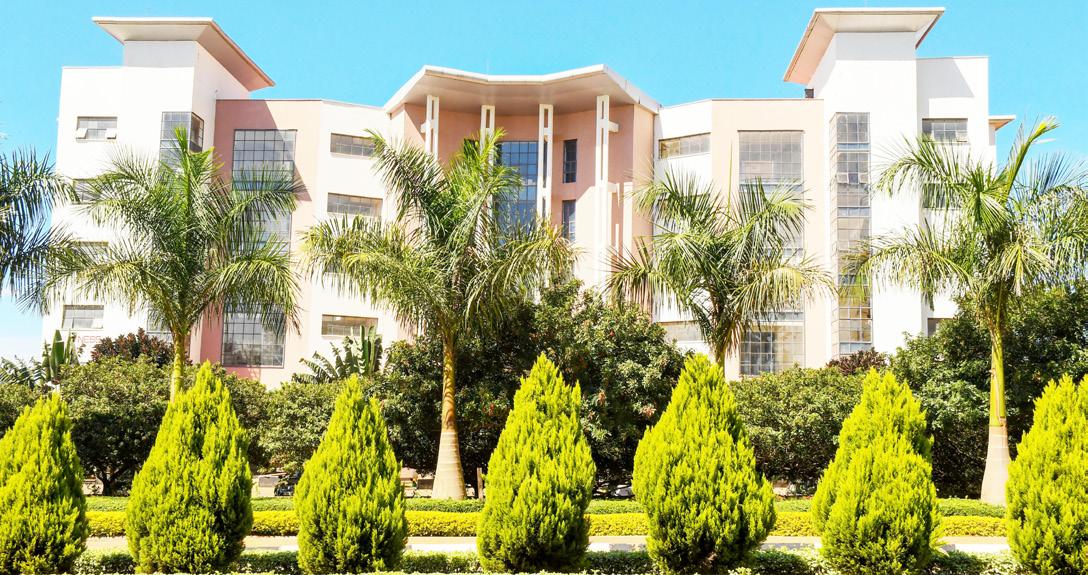
Dr. Rotich confirmed that the university is constructing Science and Technology Research Park, male students’ hostel, School of Law Complex, Food Science and Technology Complex and an administration block.
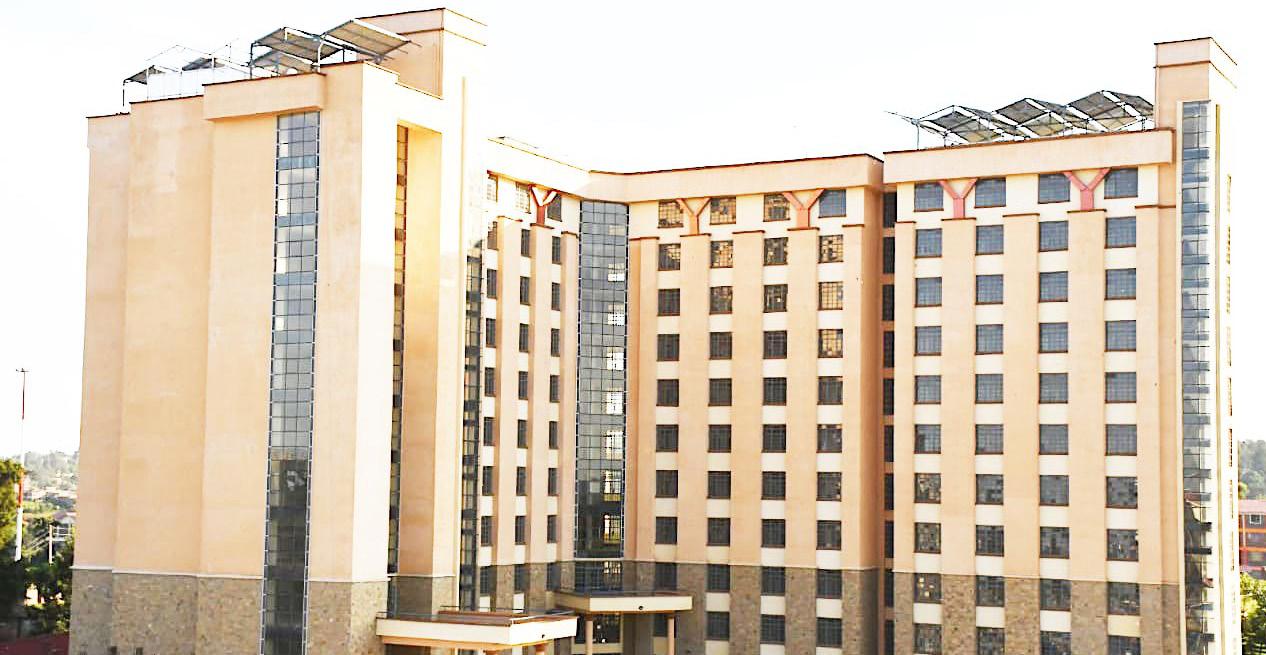
He revealed that the university in partnership with Galilee Inter-
national Management Institute (GIMI) and the Israeli government had completed the construction of the 15 million– litre irrigation dam at its 500-acre Kairini farm to establish teaching demonstration units.
Corporate Social Responsibility (CSR) projects by the university include water piping project from Mount Kenya, donating pipes to the Ndagani/KK Mwendwa water project and food donation to the elderly and vulnerable persons.
Others are the construction of a bypass road to serve the community and the university, installation of floodlights within the main campus and the acquisition of two fire engines.
The floodlights have enhanced security within the university and in the neighborhood, while the Sh70 million two ultra-modern fire engines will also assist manage fire outbreaks in the region.
“The fire engines, including a rapid intervention vehicle will serve the university and the community, including the neighbouring counties to ensure that residents do not lose life or property to infernos,” explained Rotich.
So far, the fire engines have assisted the community in putting out several fire incidents which could have destroyed lives and property.
Rotich added that the university had also completed the construction and equipping of ultra-modern media studio where a 24-hour educational radio station has been mounted.
It broadcasts at a frequency of 98.8 FM in five counties of Tharaka Nithi, Meru, Embu, Kirinyaga and Isiolo.
The radio station has two studios; one for production and the other for live programming and is expected to help journalism students get hands-on experience.
He said the radio station not only served as a training ground for media students, but also acted as an important source of information and entertainment to the community at large.
A total of 576 students graduated in different disciplines during a ceremony that was conducted virtually on April 23, 2021.
EDUCATION NEWS 12 JUNE 1 - JUNE 14, 2021
New Male Hostel. Business Complex.
Chuka University Council Chairman, Dr. Julius Tangus Rotich confers a doctorate degree to one of the graduands during the institution’s 9th graduation ceremony held recently. Looking on are the University’s Vice-Chancellor, Prof. Erastus Njoka and Deputy ViceChancellor, Academic, Research and Student Affairs, Prof. Dorcas Isutsa.
ADVERTISING FEATURE
CHUKA UNIVERSITY

Knowledge is Wealth (Sapient divitia est) Akili ni Mali
OFFICE OF THE DEPUTY VICE-CHANCELLOR (Academic, Research & Student Affairs)
P. O. Box 109-60400, Chuka Website: www.chuka.ac.ke
Email: cuadmissions@chuka.ac.ke Email: dvcarsa@chuka.ac.ke
Telephones: 020-2310512/18
Direct Lines: 020-2329073, 0715-505858, 0731-620266
Direct Line: 020-2021721
INVITATION OF APPLICANTS FOR ADMISSION INTO THE BACHELOR OF LAWS PROGRAMME
Chuka University invites candidates to apply for the May, 2021 intake admission into the Bachelor of Laws (LL.B.) Self-Sponsored Programme. The aim of the Programme is to produce graduates tooled towards becoming professional legal practitioners with expertise at research and practice needed in the society and legal institutions in Kenya and the rest of the world. The major focus of the Programme is environmental and land issues. This is in line with the University’s niche in environment and renewable energy as well as the need to help resolve the increasing environmental and land cases. Possible career opportunities are available in: Government institutions; Inter-governmental institutions; Regional and international organisations; The United Nations Environment Programme; and NGOs, among others. The Chuka University’s LL.B. Programme has been licensed by the Council of Legal Education (CLE) and accredited by the Commission for University Education (CUE)
MINIMUM ENTRY REQUREMENTS
-At least a mean grade of C+ (Plus) in the Kenya Certificate of Secondary Education examination or its equivalent with a minimum grade of B (Plain) in English or Kiswahili;
-At least three Principal Passes in the Kenya Advanced Certificate of Education (A-Level) examination;
-A Bachelor’s degree from institutions recognized by the Senate; or
-At least a Credit Pass in a Diploma in Law examination from accredited institutions recognized by the Senate
DURATION AND MODE OF STUDY: 8 Semesters (4 years), Full-Time
1. FEES: 185,000/= per annum for Kenyan Citizens, broken down as:
(a) TUITION FEES: KSh. 74,300/= per semester x 2 semesters
(b) STATUTORY FEES: KSh. 18,200/= per semester x 2 semesters
(c) Add 20% for non-Kenyan citizens.
2. CLINICAL ATTACHMENT: KSh. 15,000/= Once at the end of Year 3
APPLICATION PROCEDURE:
(a) Applications should be on official forms available at Chuka University Main Campus, OR downloaded from Website: www. chuka.ac.ke; Non-refundable fee of KES 2,000 to be deposited in the following accounts: Kenya Commercial Bank, Chuka Branch A/C No. 110 375 5439; or Co-operative Bank, Chuka Branch A/C No. 011 290 5818 9900, Equity Bank, Chuka Branch A/C No. 0210261453469, ABSA Bank, Embu Branch A/C No. 2035727666, Family Bank, Chuka Branch A/C No. 054000002641, Stanchart, Meru Branch A/C No. 0102024755200. Deposits may be made at any branch.
(b) Applicants must return forms to P. O. Box 109 – 60400 Chuka. Attention should be: Registrar (Academic Affairs). Certified copies of certificates and original fee payment receipt MUST be attached to the application form and returned latest two weeks prior to the commencement dates given for the programmes.
(c) One Academic Year is equivalent to 2 semesters of 17 weeks for full-time mode of study.
(d) A candidate may transfer up to a maximum of 49% of the course units (credit factors) from another institution in or outside Kenya, subject to the approval of the University in consultation with and recommendation of the Faculty of Law. Such Credits must have been acquired from institutions recognized by the Senate, taken within a period acceptable to the Senate, and obtained by passing the courses with grades B and above.
EDUCATION NEWS JUNE 1 - JUNE 14, 2021 13
Chuka University Academic Programmes
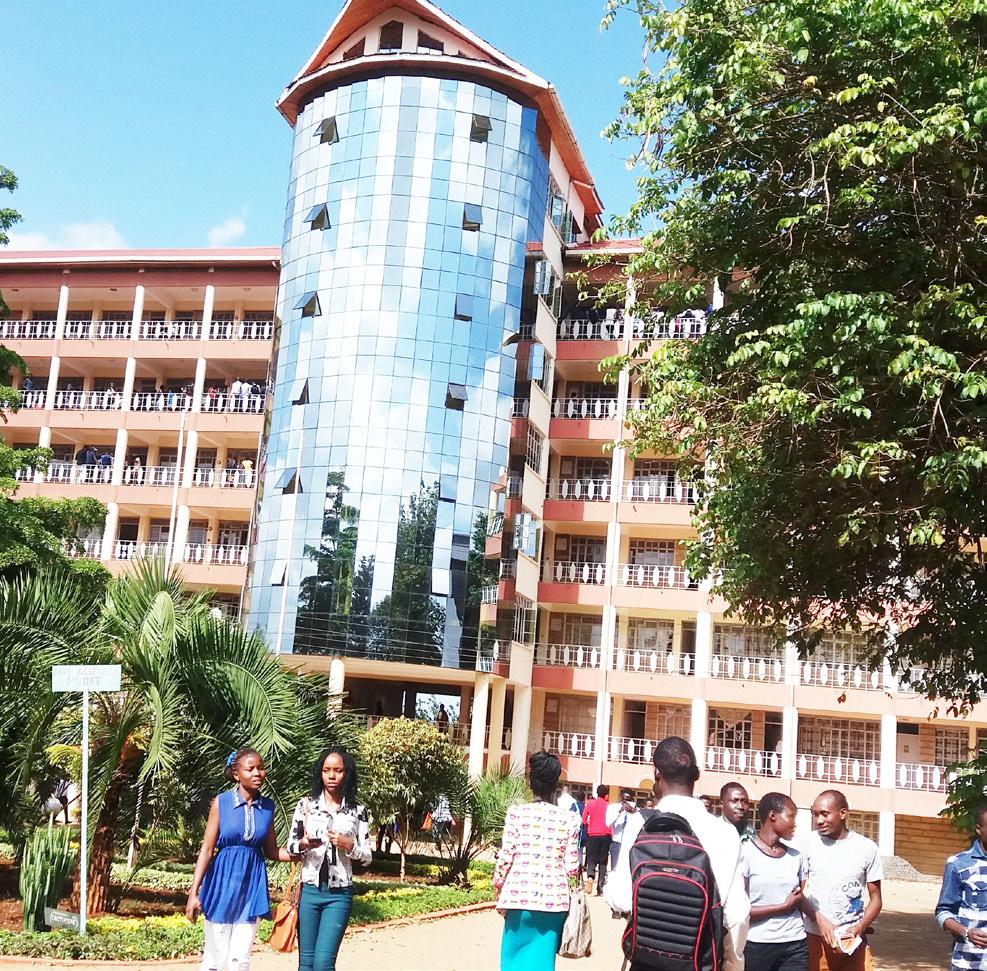
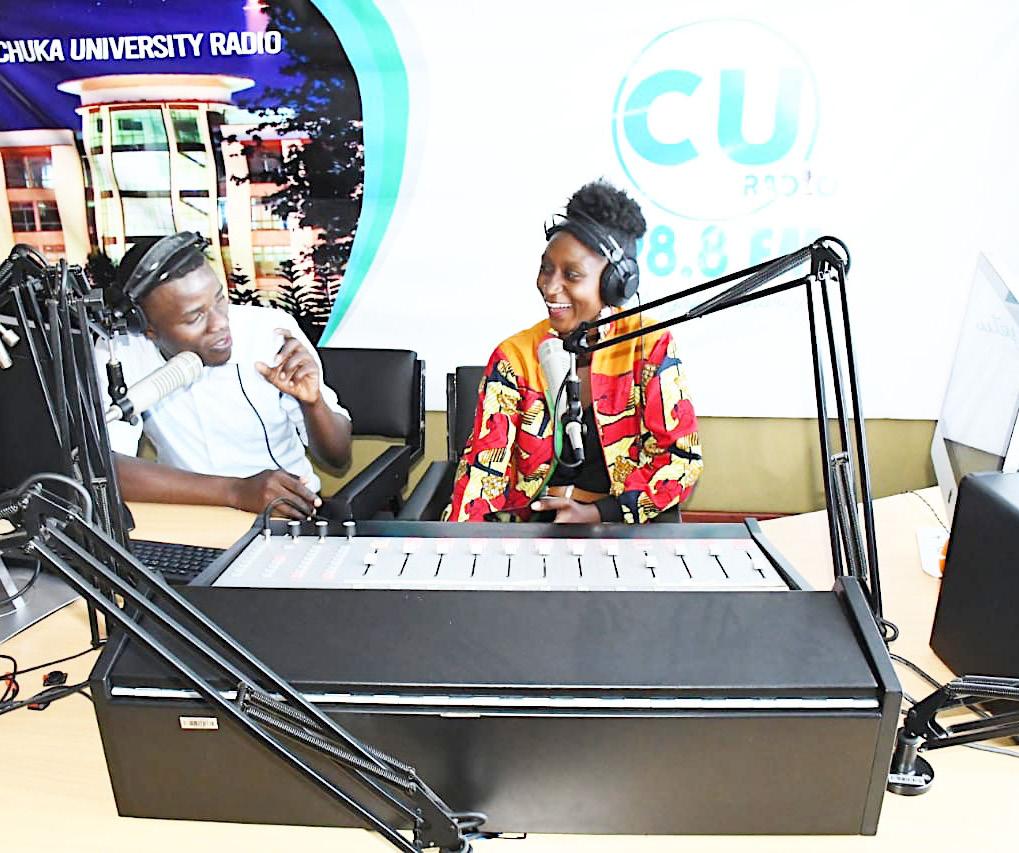

Chuka University’s Vice-Chancellor, Prof. Erastus Njoka with Deputy Vice-Chancellor, Academic, Research and Student Affairs, Prof. Dorcas Isutsa and other staff members during the official opening of Prof. Ezra Maritim Green Park.
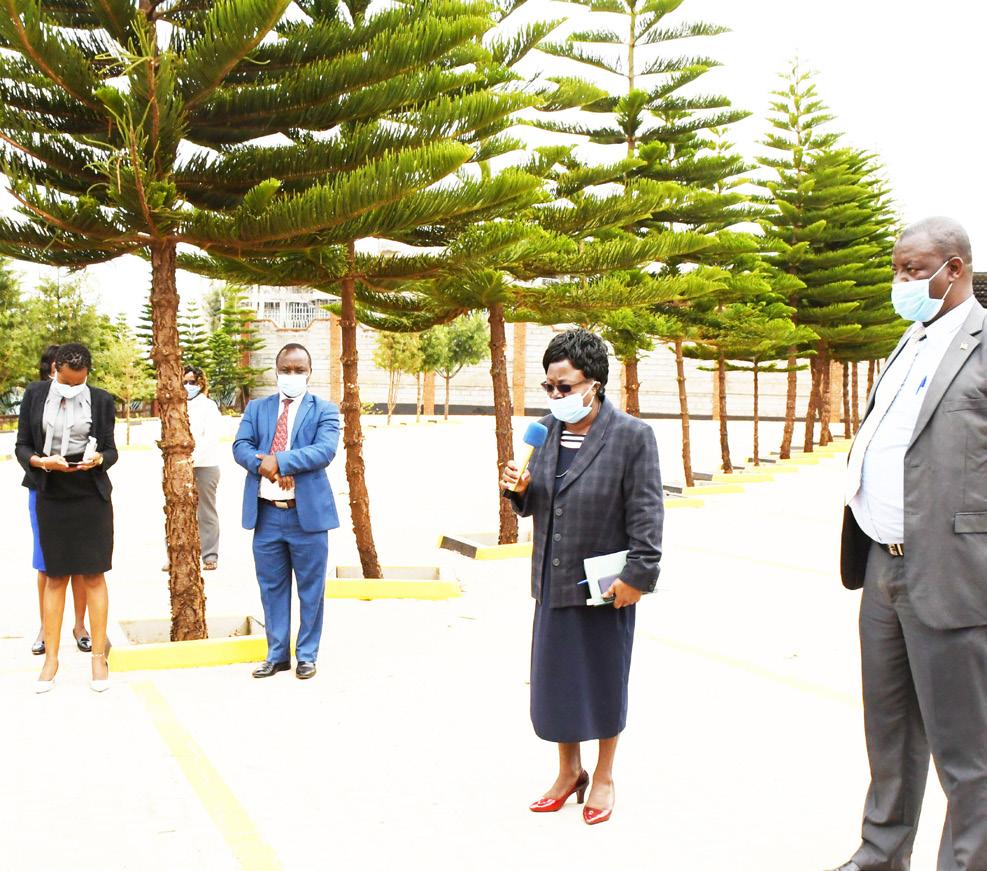
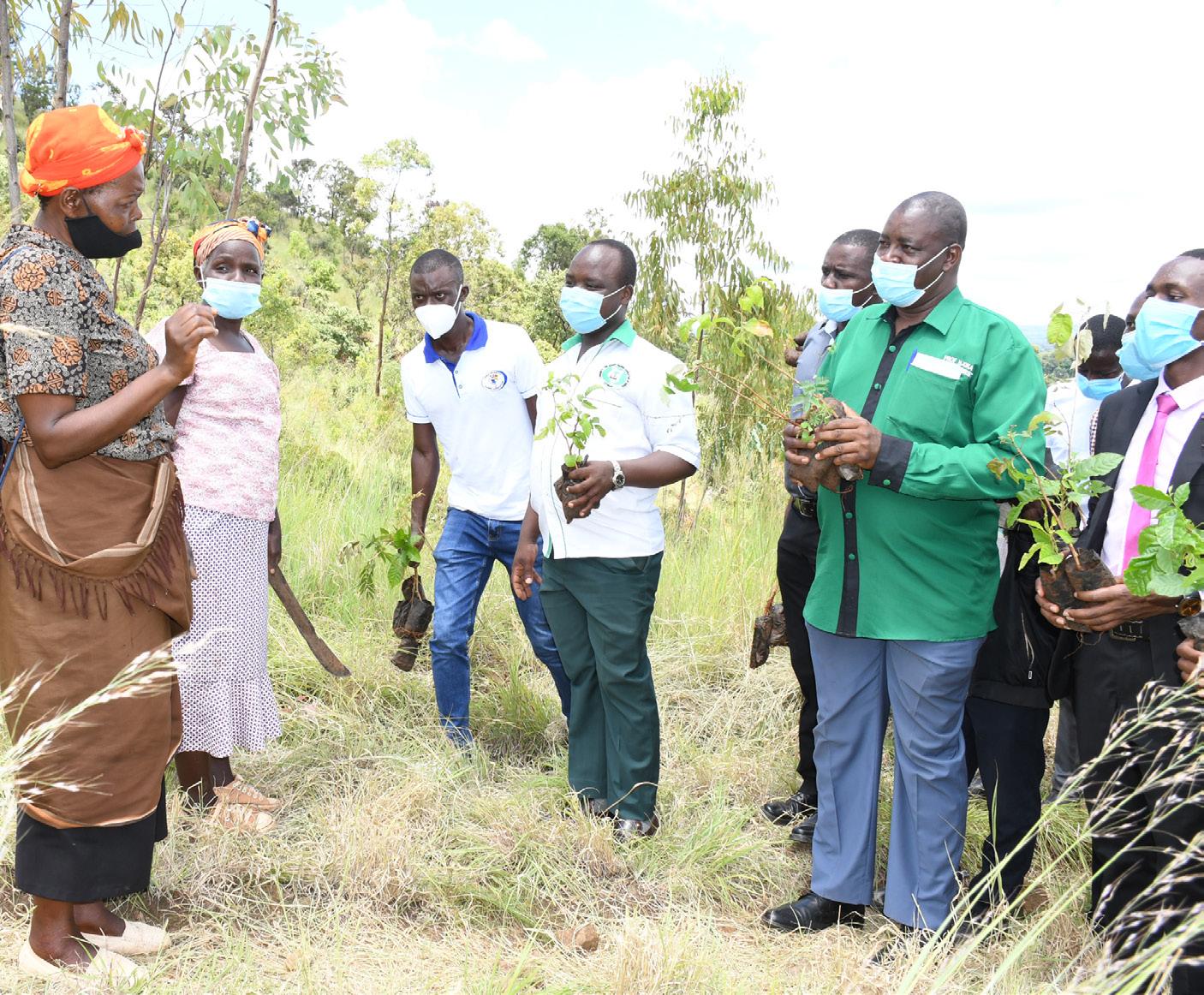
EDUCATION NEWS 15 JUNE 1 - JUNE 14, 2021 Evening/ Weekend Certificate in Computer Literacy/Packages KCSE Certificate 3 months/1 term: Full-time, Part-time/ Evening/ Weekend 15,000/=/course ALL Certificate in Hospitality and Tourism Management Minimum grade D+ in KCSE or its equivalent with D+ in Engl/Kisw 3 semesters: Fulltime or Work-based 30,000/=/semester ALL Certificate in Environmental Impact Assessment and Audit KCSE Certificate 6 months/ 2 terms: Full-time, Part-time/ Evening/ Weekend 40,000/=/term ALL Certificate in Animal Health and Production Mean grade C- in KCSE with C- in Biol/Biological Sciences, OR Division 3 of 36 points with at least credit in Biol/Biological Sciences 4 semesters: Fulltime or Work-based 30,000/=/semester MAIN Certificate in Early Childhood Education Mean grade D+ and above in KCSE with D+ in Engl/Kisw 3 semesters: FT/ Evening/Weekend 15,000/=/semester ALL Certificate in Community Development Mean grade D and above in KCSE with D in Engl/Kisw 2 to 3 semesters: Full-time, Part-time/ Evening/ Weekend 30,000/=/semester ALL Certificate in Criminology and Security Studies Mean grade D and above in KCSE with D in Engl/Kisw Certificate in Project Planning & Mgt Mean grade D and above in KCSE with D in Engl/Kisw Certificate in Social Work Mean grade D and above in KCSE with D in Engl/Kisw Certificate in Disaster Management Mean grade D and above in KCSE with D in Engl/Kisw Certificate in Leadership & Public Adm Mean grade D and above in KCSE with D in Engl/Kisw Certificate in National Cohesion, Values & Principles of Governance KCSE Certificate 1 semester (4 months): Full-time/ Part-time, Day/ Evening/ Weekend 15,000/course ALL Certificate in HIV/AIDS Management Certificate in Bridging in all KCSE subjects (Math, Biol, Phys, Chem, English, Kisw) KCSE Certificate 3 months/1 term: Full-time, Part-time/ Evening/ Weekend 15,000/=/course ALL CPA/CPS Sections 1 – 6 Students registered with KASNEB Sections 1 & 2 Full-time or Workbased Day, Evening or Weekend 10,000/= ALL Students registered with KASNEB Sections 3 & 4 12,000/= ALL Students registered with KASNEB Sections 5 & 6 15,000/= ALL ATD Intermediate and Final Students registered with KASNEB 9,000/= ALL POSTGRADUATE PROGRAMMES MINIMUM ENTRY REQUIREMENTS DURATION ALL FEES CAMPUS Post-graduate Diploma in Education First degree with two teaching profession specialization subjects passed with at least C+ in KCSE 1 year (3 Blocks) 55,500/= Block 1 25,000/= Block 2 25,000/= Block 3 ALL Master’s Degree Programmes (Coursework, Research Thesis or Project, and Examination) M.Sc. in Nursing Bachelor’s degree from a related discipline from institutions recognized by the Senate , OR Bachelor of Science in Nursing accredited by a nationally recognized nursing regulatory council plus clinical work experience by preferably working/worked in relevant specialization area and registered nurse license in a country in which the candidate will complete practical experience. Internationa applicants will have their certificates verified by the Commission for University Education and the Nursing Council of Kenya 2 Years Full-time or Part-time/WorkBased Day, Evening or Weekend 65,000/= per session with 3 sessions per year MAIN 1. MA in Criminology and Security Studies 2. MA n English Language & Linguistics 3. MA in Geography 4. MA in Gov’t and International Relations 5. MA in History 6. MA in Kiswahili 7. MA in Literature 8. MA in Religious Studies 9. MA in Sociology 10. Master of Business Administration 11. M.Ed. in Curriculum and Instruction 12. M.Ed. in Educational Foundations 13. M.Ed. in Educational Management 14. M.Ed. in Guidance and Counselling 15. M.Ed. in Science Education 16. Master of Journalism and Mass Communication 17. M.Sc. in Agribusiness Management 18. M.Sc. in Agricultural Economics 19. M.Sc. in Agricultural Education 20. M.Sc. in Agricultural Extension 21. M.Sc. in Agronomy 22. M.Sc. in Animal Breeding 23. M.Sc. in Animal Nutrition 24. M.Sc. in Applied Mathematics 25. M.Sc. in Applied Statistics 26. M.Sc. in Biochemistry 27. M.Sc. in Botany (Genetics) 28. M.Sc. in Botany (Microbiology and Biotech) 29. M.Sc in Botany (Plant Pathology) 30. M.Sc. in Chemistry 31. M.Sc. in Community Studies and Extension 32. M.Sc. in Computer Science 33. M.Sc. in Crop Protection 34. M.Sc. in Dryland Agriculture 35. M.Sc. in Economics 36. M.Sc. in Entrepreneurship& Enterprise Mgt 37. M.Sc. in Environmental Science 38. M.Sc. in Finance 39. M.Sc. in Horticulture 40. M.Sc. in Information Science 41. M.Sc. in Medical Parasitology 42. M.Sc. in Medical Physics 43. M.Sc. in Natural Resources Mgt 44. M.Sc. in Nursing 45. M.Sc. in Nutritional Sciences 46. M.Sc. in Operations Management 47. M.Sc. in Physics 48. M.Sc. in Plant Biotechnology 49. M.Sc. in Plant Breeding 50. M.Sc. in Procurement & Logistics Mgt 51. M.Sc. in Pure Mathematics 52. M.Sc. in Soil Science 53. M.Sc. in Statistics 54. M.Sc. in Wildlife Management 55. M.Sc. in Zoology (Animal Physiology) 56. Masters in Counselling Psychology 57. Masters in Hotel Management 58. Masters in Tourism Management Bachelor’s degree from a related discipline with a second class honours upper and above, or lower and at least two years related work experience or research, from institutions recognized by the Chuka University Senate 2 Years (4 Semesters) Full-time; 4 Years (8 Semesters) Part-time Work-Based; Day, Evening or Weekend 71,000/= Semester 1 48,000/= Semester 2 40,000/= per Block For art-based 75,000/= Semester 1 55,000/= Semester 2 43,500/= per Block For science-based ALL as directed by the Graduate School PhD Degree Programmes (Coursework, Research Thesis and Examination) 1. Ph.D. in Agribusiness Management 2. Ph.D. in Agricultural Economics 3. Ph.D. in Agricultural Education 4. Ph.D. in Agronomy 5. Ph.D. in Applied Mathematics 6. Ph.D. in Applied Statistics 7. Ph.D. in Botany 8. Ph.D. in Business and Management 9. Ph.D. in Chemistry 10. Ph.D. in Community Development 11. Ph.D. in Counselling Psychology 12. Ph.D. in Criminology & Security Studies 13. Ph.D. in Crop Protection 14. Ph.D. in Crop Science 15. Ph.D. in Curriculum and Instruction 16. Ph.D. in Dry Land Agriculture 17. Ph.D. in Educational Foundations 18. Ph.D. in Educational Management 19. Ph.D. in Educational Psychology 20. Ph.D. in Environmental Science 21. Ph.D. in Food Science 22. Ph.D. in Geography 23. Ph.D. in History (+/- Political Science) 24. Ph.D. in Horticulture 25. Ph.D. in Information Science 26. Ph.D. in Communication and Media 27. Ph.D. in Kiswahili 28. Ph.D. in Linguistics 29. Ph.D. in Medical Physics 30. Ph.D. in Physics 31. Ph.D. in Plant Biotechnology 32. Ph.D. in Plant Breeding 33. Ph.D. in Pure Mathematics 34. Ph.D. in Religious Studies 35. Ph.D. in Science Education 36. Ph.D. in Soil Science 37. Ph.D. in Tourism Management 38. Ph.D. in Wildlife Management 39. Ph.D. in Zoology 40. Ph.D. in Animal Science (Production, Nutrition or Breeding) Master’s degree from a related discipline from institutions recognized by the Senate 3 years (6 Semesters) Full-time; 6 years (12 Semesters) Part-time Work-Based; Day, Evening or We 119,250/= Semester 1 99,250/= Semester 2 104,000/= Semester 3 104,000/= Semester 4 99,000/= Semester 5 99,000/= Semester 6 For art-based 125,750/= Semester 1 105,750/= Semester 2 104,000/= Semester 3 104,000/= Semester 4 104,000/= Semester 5 104,000/= Semester 6 For science-based ALL as directed by the Graduate School
Journalism
get hands-on experience at the Chuka
Radio Station which broadcasts at a frequency of 98.8 FM.
Complex.
Chuka
University’s Vice-Chancellor, Prof. Erastus Njoka leads staff and students in planting trees in Magutuni, Maara Sub County.
students
University
Science
Chuka University Telephone lines: 020-2329073, 0715-505858, 0731-620266
Post training certificate now must for teachers
The
By Roy Hezron
Teachers will be required to have Post Training Certificate (PTC) to be certified for teaching in the Competency Based Curriculum.
All in-service teachers and trained teachers who are not yet employed will now be required to acquire the PTC in order to be CBC compliant before being employed.
According to the new proposals outlined by Teachers Service Commission (TSC), teachers who are currently teaching in Early Childhood Development Education (ECDE) classes will also have to meet the requirement.
Others targeted include Primary Teacher Education (PTE) popularly known as P1 teachers, Diploma in Teacher Education (DTE), Bachelor’s degree in Education (both Science and Arts) and Special Needs Education (SNE).
A perusal through the policy document by the Commission titled, Framework on Entry Requirements in the Teaching Service, reveals that the programme will be offered within in a nine month period during school holidays.
Further training will be undertaken for the teachers through distance learning during school time.
The document which is prepared by the Director for Quality Assurance and Standards at the TSC, Dr. Reuben Nthamburi, also points out that during the training period the teachers will also do micro teaching.
“The in-service teachers and qualified – registered teachers outside employment will be inducted and certified to offer the Competency Based Curriculum,” reads the document.
According to TSC data, in 2019 the number of teachers in public primary schools who had Certificate (P1 Teachers) was 175,712 teachers, those with Diploma was 24,604 teachers while 17,891 teachers had Bachelor’s degrees.
In public secondary schools, those who had Diploma were 3,614, while 99,625 teachers had Bachelor’s degree in Education.
During the training, the teachers will be taken through
CBC (Learning areas and Pedagogy), 21st Century Principles and practices of teacher education, Andragogy and Lifelong Learning Assessment, action research and Inclusivity.
Other learning areas which will be covered within the nine month period training include coaching and mentorship, identification and nurturing of learner potential.
They will also be instructed on Blending Content and Pedagogy Micro teaching, Practicum
to have a post-graduate diploma in education.
“All the 8-4-4 and Competency Based Curriculum (CBC) students must undertake first, Bachelor of Arts or Bachelor of Science courses for a period of three years majoring on the key subjects and thereafter undertake a Postgraduate Diploma in Education for a period of one year for teaching at junior and senior school and SNE (Special Needs Education),” the document stipulates.
course.
Other recommendations are that the minimum qualification for entry into teaching profession in Kenya at all levels be a Diploma in Education.
At the same time, admission into all diploma and degree courses in education shall be ‘’demand- driven’’, meaning the number of teachers graduating each year will be controlled.
“That there is a diploma in secondary education which will cater for defined learning area
those teachers who had different qualifications other than education but pursued a Post Graduate Diploma in Education since the Commission has declared that they don’t qualify for registration.
“Applicants for registration whose training is in subjects that are currently not in the curricu -
Supervision and Assessment
Reflective Teaching and Pedagogical and Reasoning.
According to the Commission, teachers who will be having Diploma in ECDE will be deployed to teach Pre-Primary 1 and 2, Diploma in Teacher Education will be deployed to teach grades 1-6, while those with Diploma in Secondary Teacher Education will be deployed to teach Junior (Grade 7-9) and Senior (Grade 10-12) Secondary level.
Apart from the PTC programme, the new guidelines will now require all university graduates interested in teaching
The Bachelor’s degree graduates in Education who will have BA and BSC degrees with Post Graduate Diploma in Education will be deployed to teach in both Junior and Senior Secondary Schools.
The entry requirements for one to do a Bachelor’s degree in Education, has now been remodelled to a Kenya Certificate of Secondary Education (KCSE) Mean Grade C+ (plus) a B- (minus) in three teaching subjects.
This will be a shift from the current requirement for a C+ (Plus) in the two teaching subjects to qualify for the teaching
subjects required in junior and senior secondary level which have shortages,” adds the document.
The Commission has further instructed ECDE applicants with certificates from other bodies other than Kenya National Examination Council (KNEC) and Ministry of Education be equated by KNEC.
Those with foreign degrees and diplomas in education have also been directed to ensure their documents are equated by the Commission for University Education (CUE) and KNEC respectively.
However, it is a blow to
lum do not qualify irrespective of having undertaken a Post Graduate Diploma in Education (PGDE) and or Enhancement,” reads the document.
This category includes those who had Bachelor of Science/ Arts in Natural resources, Meteorology, Forestry, Animal husbandry, Horticulture, Farm machinery, Fisheries, Anthropology, Sociology, Theology (Divinity), Journalism, and Kiswahili and Communication among other courses.
TSC maintains that the courses do not provide sufficient subject content and ,therefore, the mastery of the content in two teaching subjects is not adequate as required.
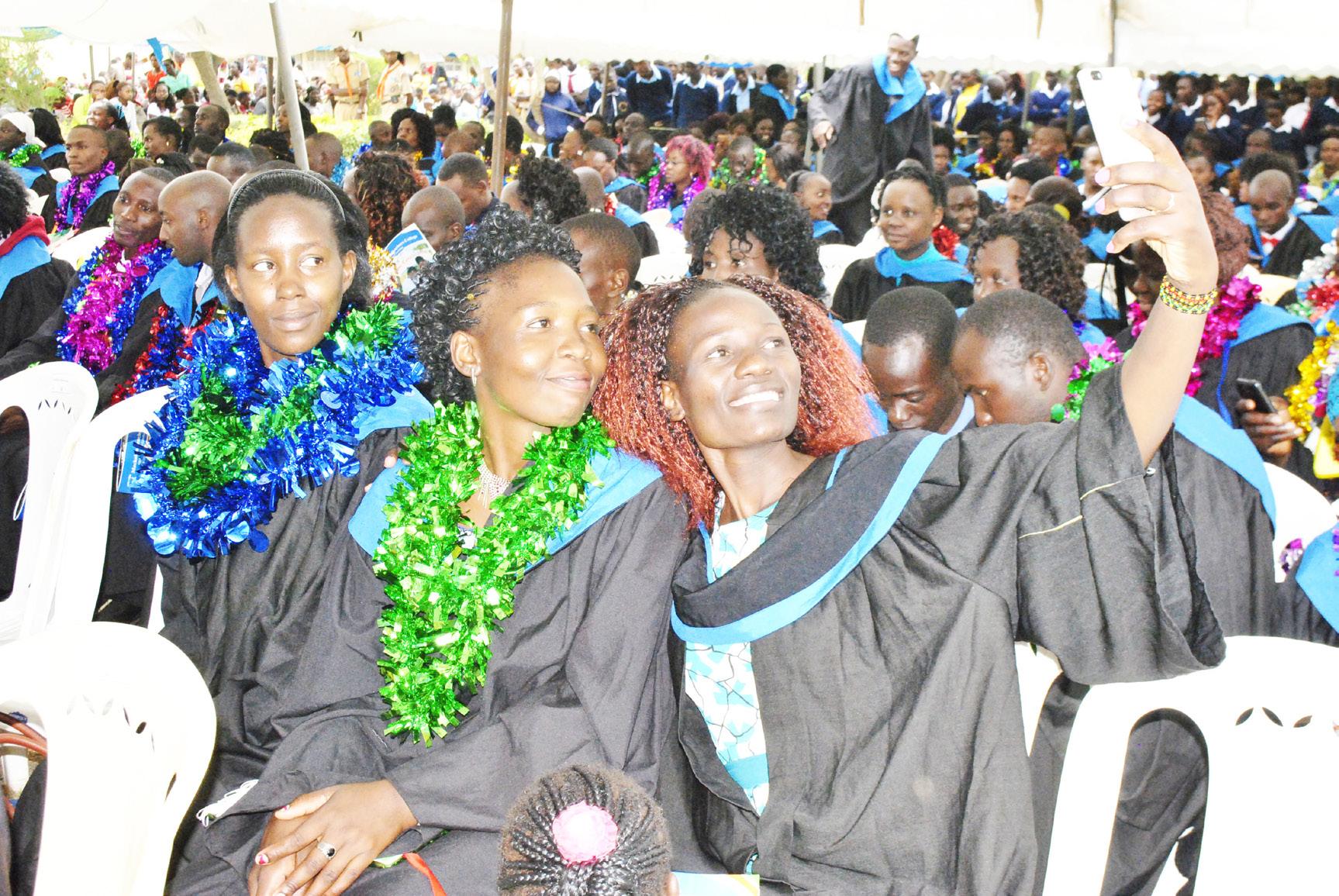
EDUCATION NEWS JUNE 1 - JUNE 14, 2021 16
Graduands savouring good moments during a previous graduation at Machakos Teachers College. Such graduates will now need to get a post-training certificate to be employed by TSC. File/Photo
in-service teachers and qualified – registered teachers outside employment will be inducted and certified to offer the Competency Based Curriculum,” reads the TSC document.
Teachers who will be having Diploma in ECDE will be deployed to teach PrePrimary 1 and 2, Diploma in Teacher Education will be deployed to teach grades 1-6, while those with Diploma in Secondary Teacher Education will be deployed to teach Junior (Grade 7-9) and Senior (Grade 10-12) Secondary level.
Katakwa Secondary School shines in Business Studies
with the last student getting D+ to lead other 164 schools across the county.
Busia Deputy Governor Moses Mulomi, who toured the school recently thanked the management for top score in Business studies and challenged them to lead in all subjects next time
Business Studies teacher at the school Eddysum Emukule who joined the school in 2017 said he managed a mean score of 1.87 in the same year and 3.0 in 2018.
By Washington Okella
Katakwa Secondary School
from Teso North Sub County in Busia County stunned giants to top in Business Studies in the Kenya Certificate of Secondary Education (KCSE) examination.
The Angurai South Ward based day school registered a mean score of 8.41 or B plain.
Katakwa, which had 48 students who sat the paper had five students who scored straight As
TRANS-NZOIA
The mean score rose to 6.21 in 2019 and 8.41 in 2020.
Emukule emphasized that the trend will continue and their target of 10.0 in KCSE 2020 will be met in their pursuit for excellence.
KNUT Western region chairman Olunga Ekwenye said the teaching fraternity was happy with the school’s performance especially in Business Studies, promising to visit the school later to fete the winning team.
KIRINYAGA
Baricho Boys High School leads in Kirinyaga
By Kamundia Muriithi
Baricho Boys High School
emerged as the leading learning institution in Kirinyaga County after scoring a mean score of 9.484 in the Kenya Certificate of Secondary Education (KCSE) examination.
The school posted 10 straight As and 89 A-, beating all the schools in the county in the 2020 KCSE.
Kabare Girls High School came second with a mean score of 8.5 while Mutira Girls High School was third with a mean score of 8.1
At Baricho, the teachers, parents and students sang victory songs and shouted in joy to celebrate the excellent performance.
The school performed better compared to the 2019 examinations when it had 7 straight As and 60A-.
“We have improved tremendously and I’m so happy”, the school Principal Benard Mwangi said.
A candidate from Baricho,
Munene Mark Maricho scored straight A of 82 points. He tied with Irungu George who also got straight A of 82 points.
Andrew Gitonga and Stephen Wahogo from the same school each scored straight A of 81 points.
The Principal attributed the good performance to God and teamwork.
“The teachers, students, parents and the Board of Management (BOM) worked together and that is why we have excelled,” he added.
9.484
BARICHO BOYS led the County with the above mean score, followed by Kabare Girls and Mutira Girls with a mean score of 8.5 and 8.1 respectively.
The school has been leading in KCSE in the past three years consecutively.
It has even beaten Kabare Girls High School which used to be at the top in the past.
Local leaders said they were satisfied with the performance of schools in the region.
Led by the Jubilee Chairman Mureithi Kang’ara, the leaders thanked teachers for working so hard to make the county shine in KCSE despite the Covid-19 pandemic.
“The Covid-19 disrupted learning but the schools have done better than the previous year. We congratulate our teachers,” said Kang’ara.
Speaking at Sagana town, the leaders said they kept politics out of schools and that is one reason why the learning institutions managed to post good results.
“We didn’t drag politics in schools and, therefore, there was no political interference during tuition. We also co-operated so well with the teachers and motivated them”, Kang’ara added.
Girls shine in 2020 KCSE in Trans-Nzoia
By Our Reporter
Girls’ secondary schools in Trans-Nzoia County dominated this year’s Kenya Certificate of Secondary Education (KCSE) examinations whose results were released recently.
They performed better than boys in the exams done under difficult circumstances following prolonged closure of schools and restrictions occasioned by the Covid-19 pandemic.
St Brigid Girls National School posted impressive results to retain their tradition of being the top performer in the county.
The school attained a mean score of 9.845 from 9.43 in the previous year.
Principal Inviolata Lukorito led the school community to celebrate the results.
She attributed the success to the pastoral programme which has helped to instil discipline among students and favourable working environment.
The Principal said they were excited with the results after two of the candidates who were ailing during examination period were able to excel.
Patience Mudenyo and Cynthia Wakoli who were sick scored A and B+ respectively. Mudenyo tied with 7 other girls with 82 points.
Lukorito said the school registered 252 candidates and managed to attain A 19,A- 73, B+ 71,B 43,B34,C+10,C 1 and C-1.
She added that both students and teachers sacrificed a lot when schools closed due to Covid-19 by engaging in zoom lessons.
St Joseph Girls under the leadership of Rosebella Orwaru too pulled surprises coming second after St Brigid Girls with a mean score 9.8 down from 6.7 gained in 2019.
The extra county school defeated their neighbours St Joseph’s Boys National, the well-known academic
St Anthony Boys also, the extra county school improved its mean score to come third after St Joseph’s Girls in the county.
St Anthony Boys popularly known as Solidarity Boys managed a mean score of 8.73 up from 7.8 it posted in 2019.
The school that registered 385 candidates posted A 2, A-60, B+ 85, B 80, B-65,C+ 38,C 38, C-12, D+2.
Principal Victor Makanda laud-
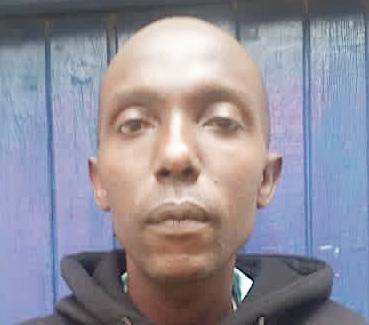
Boys with a mean score of 7.1.
St Marks under the Anglican Church of Kenya ACK had the previous year attained a mean score of 6.2.
Jemima Khayile topped the class with A- of 78 points.
Susan Obiri, the Principal said teamwork and commitment accelerated the performance.
“We are happy being among the top performers in the county and we are targeting a mean score of 7.5, this year,” she said.
In Kwanza sub-county, St Patrick Makunga topped in the area with a mean score of 7.1 compare to 2019 of 6.8.
Samuel Mwetich and Wilberforce Kiprorir both scored A minus.
It had A- 2, B+ 3, B 17, B- 37, C+ 47, C-13 and D+1.
Goseta Boys in the same sub county improved from a mean score of 5.9 to 6.3. Fennol Kwemoi posted mean grade of B+ of 73.
Kitum High, an extra county school in Endebess Sub County had its mean score rising from 5.09 to 5.505.
St Teresa’s Girls Bikeke in Kiminini jumped from a mean score of 5.5 to 6.2.
The school Principal Eve Tsuma said most of the students were enrolled with low marks in KCPE and their performance was pleasing.
St Teresa’s Boys Bikeke celebrated the victory that one of the students Tom Miti Maluti who had been enrolled with 199 marks pulled a surprise in the nation when he obtained a B minus.
Maluti earned the recognition of the Education CS Prof George Magoha for topping as the student with lowest KCPE marks to spring impressive results.
John Murumba, the Principal of Goseta Boys as well as the chairman of Kenya Secondary Schools Heads Association lauded 2020 results saying they reflect the hard work by teachers despite challenges from Covid-19.
He said majority of schools in the county registered a positive deviation.
giant.
“We are extremely excited with the results. We thank God for the successful journey. We covered our syllabus in time. Our girls had set their targets and we praise the support from the County Director of Education ,Dr. Salome Maina,” she said.
The school had A 2, A-65, B+ 133, B 58, B-22, C+ 5, C 1 and C-1.
ed the progressive improvement and attributed it on hard work and co-operation between teachers and students.
St Joseph’s Boys National managed a mean score of 8.6 to trail behind St Anthony Boys in the overall performance in the county.
St Marks Girls with a mean score of 6.6 came second in TransNzoia East Sub County after Bwake
Principal Philip Kones said 45 students managed to get a mean grade of C+ and above. The top student had a mean grade of B+..
Anderson Boarding and Day secondary school managed a mean score of 5.58 down from 5.5 with the top student scoring a B+.
Julius Mibei, the Principal said 45 students secured university entry points.
“ Wellington Waliaula the chairman of Kenya National Parents Association said despite Covid-19 challenges local schools managed to excel in KCSE.

Trans-Nzoia KUPPET branch Executive Secretary Furaha Lusweti praised the school heads and teachers of performing schools.
Lusweti celebrated St Brigid Girls national for topping in North Rift region in girls’ category.
JUNE 1 - JUNE 14, 2021 FOCUS ON 2020 KCSE EDUCATION NEWS 17
BUSIA
Katakwa secondaryschool
Business teacher Edysum Emukule.
Brigid Girls National School
Joseph Girls St Marks Girls
Teresa’s Girls Bikeke Top performing girls schools
St
St
St
By Wasike Elvis
Twenty-three branches of Kenya National Union of Teachers (KNUT) Rift Valley have endorsed Collins Oyuu as National Secretary-General in the forthcoming elections.
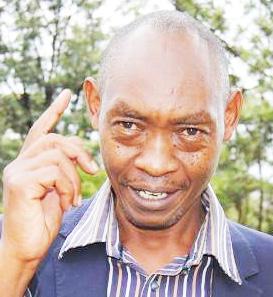
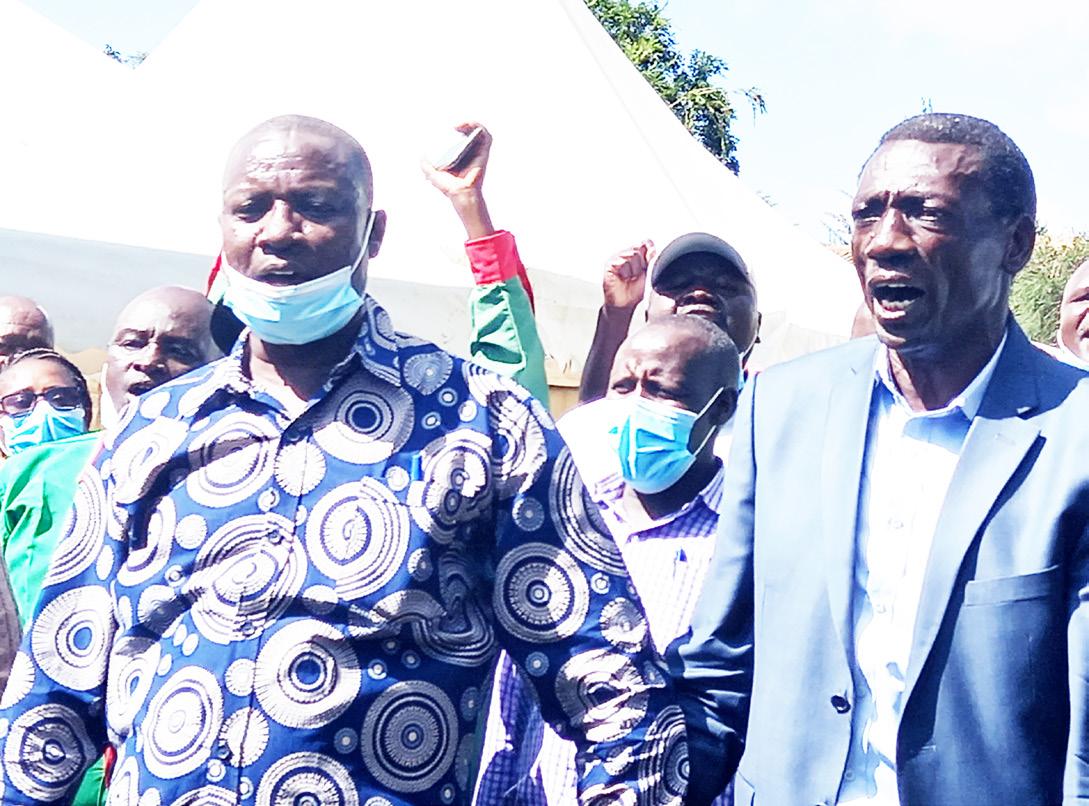
They are drawn from Kericho, Turkana, Uasin Gishu, Elgeyo Marakwet, Uasin Gishu among others.
Speaking on their behalf, Eldoret West KNUT Secretary General Kipchumba Arusei said they support his bid to clinch the national secretary-general position.
He will now battle it out with the KNUT secretary general Wilson Sossion.
“As Knut officials from 25 branches after a lengthy discus-
sion we have decided that we will overwhelmingly support the candidature of Collins Oyuu, he is the person who will bring change to the union. We want fresh and new leadership,” said Arusei.
KNUT deputy secretary-general Hesborn Otieno said it’s time for the union to get a new leadership who will propel the union to higher heights.
“It is paramount to remember that the union has walked a journey of much turmoil and we have to redeem the union to its factory settings where we will bring back the lost glory. We are going to give teachers a strong team that will serve them diligently and respect the constitution of the union,” said Otieno.
Karinga Patrick vying for the National Chairman position said
RIFT VALLEY
Clergy contributes to development of education
By Martin Ruto
Since the coming of the missionaries in the 18th and 19th century their role in formal and informal sector has greatly been felt in the education sector.
The missionaries built schools and hospitals to cater for the education of the masses as well as their treatment respectively.
Currently we have seen that the church continuously contribute to education in various ways including schools infrastructure like classrooms and laboratories.
they will work for all teachers.
Acting KNUT Chairman Collins Oyuu said KNUT has been run like a private entity and it’s time to make changes.
“It’s not a secret that the leadership of one Wilson Sossion has brought down this union, and I promise teachers that once elected I will serve them diligently and in accordance with the rule of law. We want teachers to have peaceful minds when they operate,” he added.
He condemned the current secretary-general for wanting to allegedly steal the elections.
“As I speak the secretarygeneral has already released a list of delegates that is not commensurate with the 2019 register, we are telling him he won’t succeed,” he added.
KUSNET demands more cash for special needs schools
By Ben Leshau
The Kenya Union of Special Needs Education Teachers (KUSNET) has called on the Ministry of Education to increase capitation funds for the sake of special needs students.
Speaking after conducting the union’s national elections held at a hotel in Narok North constituency, KUSNET Secretary-General James Torome said the union is focused on service delivery for special needs teachers as well as the special needs students.
“Unlike other able-bodied learners, special interest
learners need more funds.
The Education Ministry should add more funds to this group,” said Mr Torome.
Torome urged the Ministry of Education to ensure that students are provided with proper infrastructure to have them ease access to classrooms and other amenities within their schools.
The secretary-general who was elected unopposed further called on union members to be patient on matters concerning the collective bargaining agreement insisting that the unions will make a major announcement on July 1, 2021.
He noted that the union has a membership of over 9,001 teachers and targeting to recruit over 18,000.
According to Fr. Daniel Ng’ang’a, the Makutano Parish Priest in West Pokot County and also a senior lecturer in Moi University evangelization through presence has contributed a lot positively to the learners.
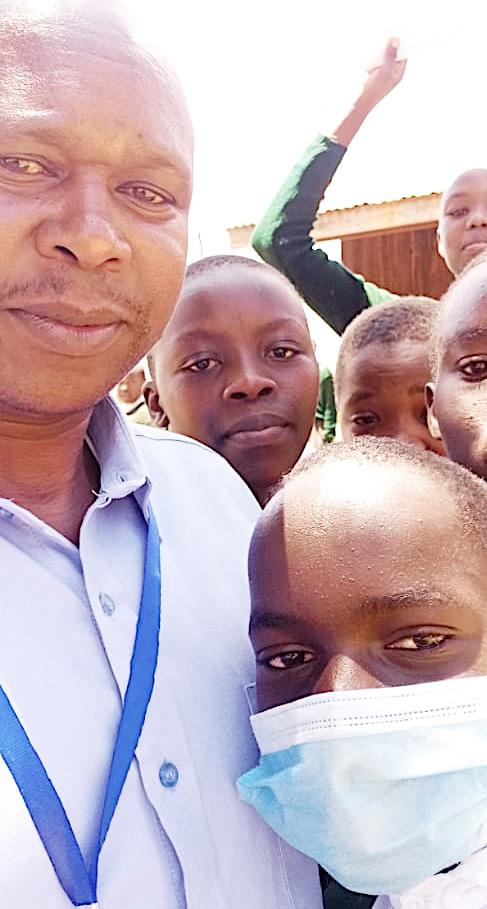
The presence of priests in the lecture halls has greatly assisted the learners for instance motivating them to pursue education through guiding and counselling and career guidance.
Father Nganga says that priests who are lecturers go an extra mile mentoring the learners apart from the normal teaching.
He teaches political philosophy, critical thinking and faith and reason as his area of specialization.
Other Catholic priests who contribute in mentoring the students include Fr. Martin Tanui who lectures at University of Eldoret, Fr. Joseph Kahiga and Fr. Stephen Njeru a lecturer at Moi
Torome said after the Teachers Service Commission signs the collective bargaining agreement then any member who would like to join the union would be fined.
Moses Kendagor who is a special needs teacher expressed the need for the government to look into the plight of visually impaired students who use braille.
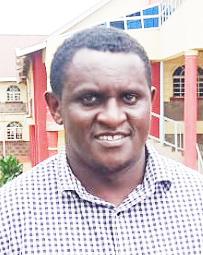
Charity Machocho who is a trustee at KUSNET stated that special needs students face a myriad of challenges, pointing out that more resources should be channelled to special needs education.
She urged the government to supply face masks and sanitizers to the special needs schools for the sake of improving health care for the students.
University.
The chaplain of Moi University is Fr. Fred Njinge.
The priests inculcate positive values which help the learner’s traits like honest, hard work, respect, obedience, integrity and loyalty.
For instance, Bishop Anthony Maurice Crowley of the Catholic Diocese of Kitale is chairman of some the Catholic sponsored schools in the diocese and this adds great value to the learners in their various institutions.
Some of the perennial top performing Catholic sponsored schools in the diocese include St. Joseph’s Boys National School Kitale, St. Bridgid’s Girls Kiminini, St. Theresa’s Girls Bikeke, St. Anthony Boys Kitale and St. Francis Suwerwa in Charangani.
Poror Day and Boarding shines in KCPE
By William Sawe
Poror Day and Boarding Primary School in Lembus ward, Koibatek Sub-county of Baringo County clinched top slot in KCPE in the zone with 11 schools.
In last year’s KCPE, school head teacher Charles Kiprono Yego said the school bounced back with the top pupil scoring 366 marks.
Poror Day and Boarding primary school started in 1957 has produced top academicians and personalities.
EDUCATION NEWS 18 JUNE 1 - JUNE 14, 2021
Rift Valley KNUT officials endorse Oyuu for the position of Secretary-General
KNUT Deputy Secretary-General Hesborn Otieno and Acting KNUT Chairman Collins Oyuu singing a solidarity song recently. Photo/Elvis Wasike
Fr. Daniel Nganga, a lecturer of Moi University.
KUSNET Secretary -General, James Torome.
We want teachers to have peaceful minds when they operate - Collins Oyuu.
UASIN GISHU WEST POKOT BARINGO
NAROK
Headteacher Poror Day and Boarding Primary, Charles Kiprono Yego with his pupils. Photo/William Sawe.
Joy as Highlands Plateau Academy tops
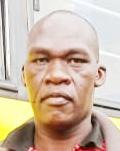
and the school management.
“First of all I want to thank God for he has been faithful to us, and through prayer and trusting in him, we were able to post a mean score of 386.47,” said Musila.
He added: Our pupils were prayerful, where they had morning devotion under our clarion call ‘We begin and close a day with prayer.”
He said despite the coronavirus pandemic that affected the education sector, hard work, keeping in touch with pupils during the pandemic period and organized online classes helped them excell.
By Wasike Elvis
It was song and dance at Highlands Plateau Academy in Eldoret after the school posted the best mean score ever since the school was started.
Out of the 17 pupils who sat for the KCPE examination last year, seven got over 400 marks at the school based in Kimumu, Chepkoilel Zone, Moiben Sub- County of Uasin Gishu County.
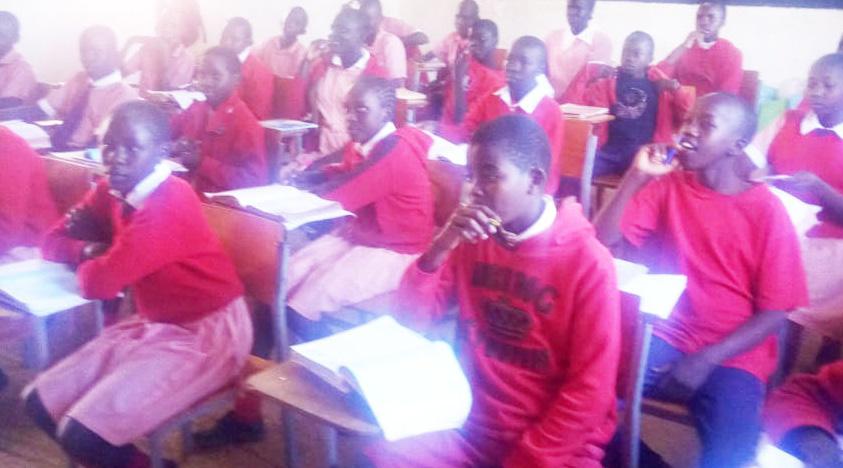
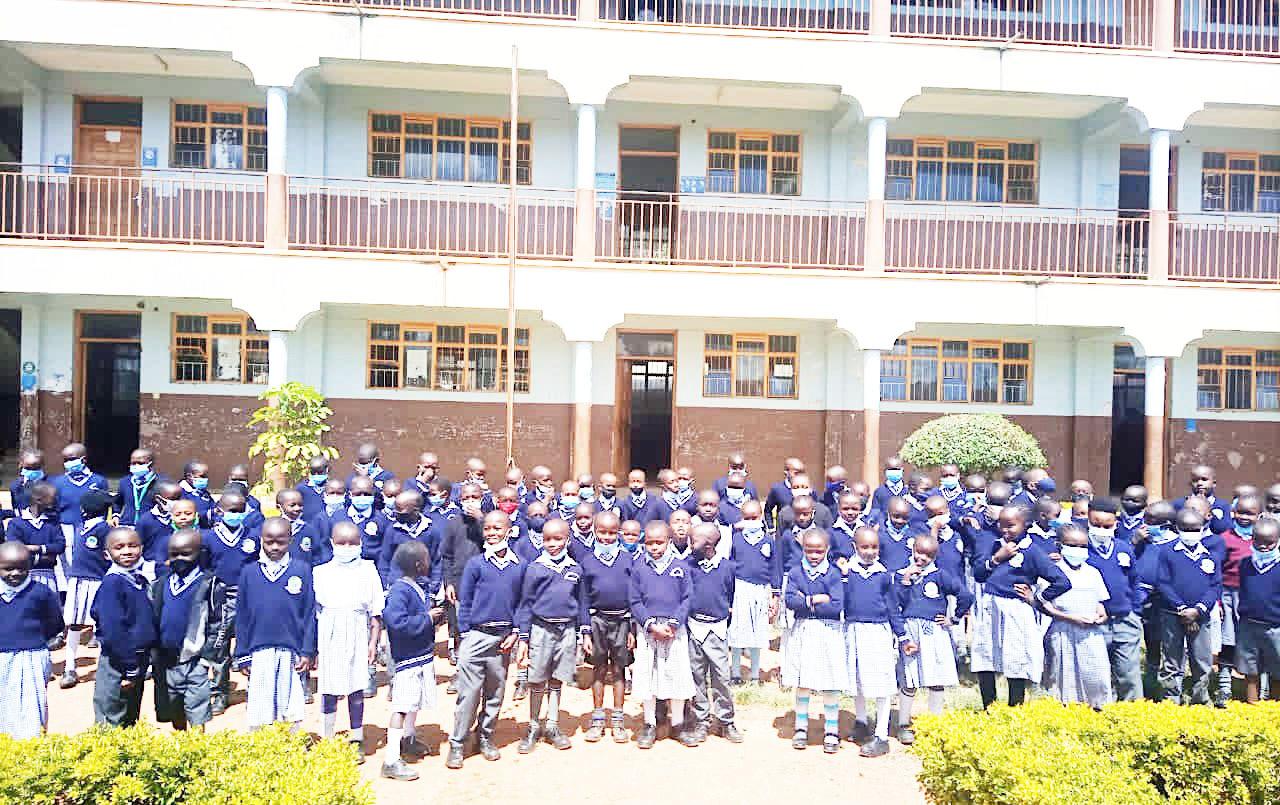
The school posted a mean score of 386.47, which was among the best in Uasin Gishu County, with the best pupil scoring 418 marks.
Head teacher David Musila attributed the best performance to hard work, determination and cooperation between teachers, parents,
KAJIADO
“Our school has been very consistent since it started because our first KCPE class in 2004 recorded a mean score of 375.73 and over the years we have maintained a mean score of 360 and above,” he said.
The school was started in 1997 as a day school with the first batch of KCPE pupils sitting for the exams in 2004.
It has a total of 16 teaching staff who are qualified and registered by the Teachers Service Commission (TSC).
“We do offer computer classes for all learners from grade one to standard eight. We also offer French for all learners and also arrange swimming classes at least once per week,” he said.
Highlands Plateau Academy head teacher says their main aim is
State denies favouring Public Schools in KCPE 2020
By Obegi Malack
Kajiado North sub county Education Director John Njoroge has praised public schools for recording exemplary performance during the Kenya Certificate of Primary Education (KCPE) 2020.
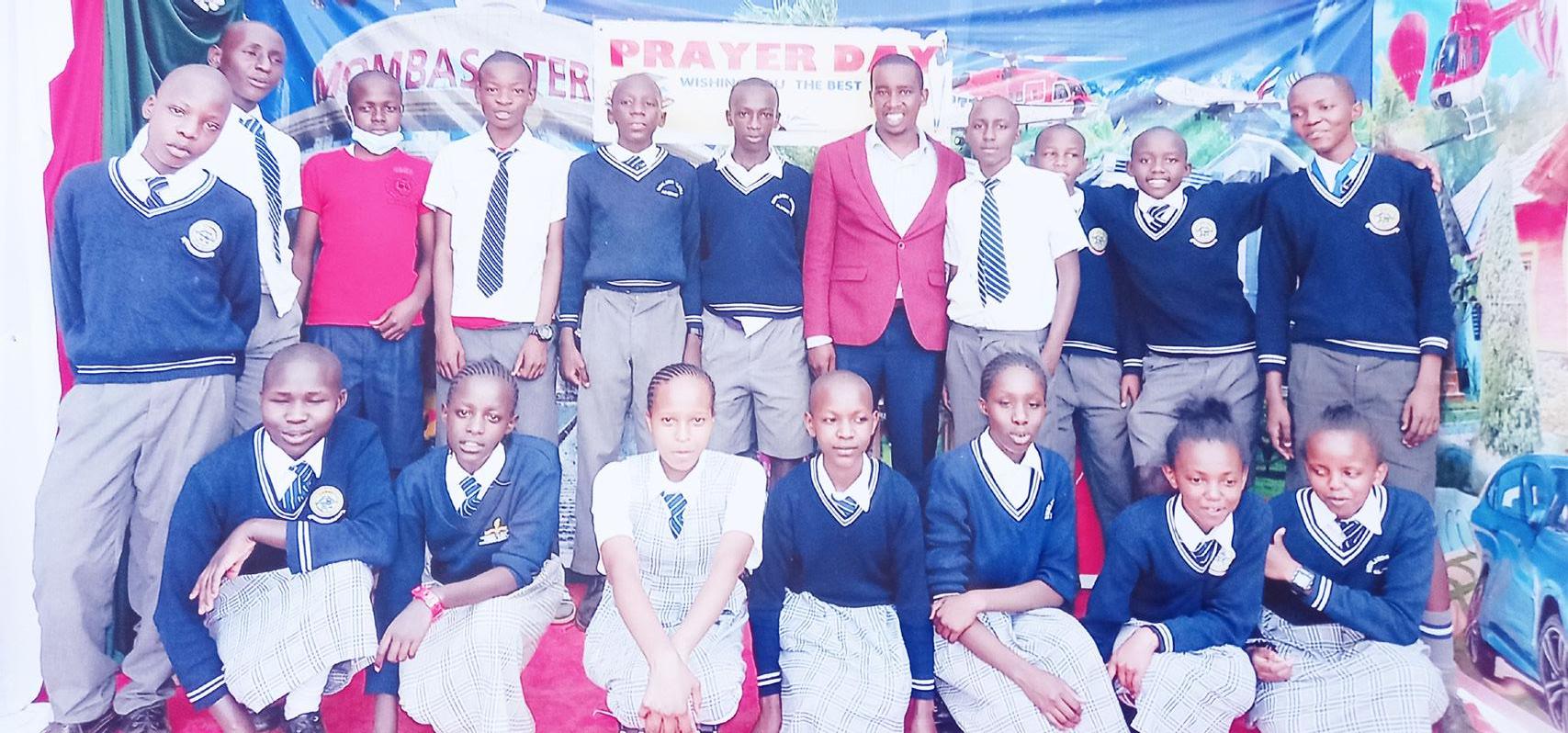
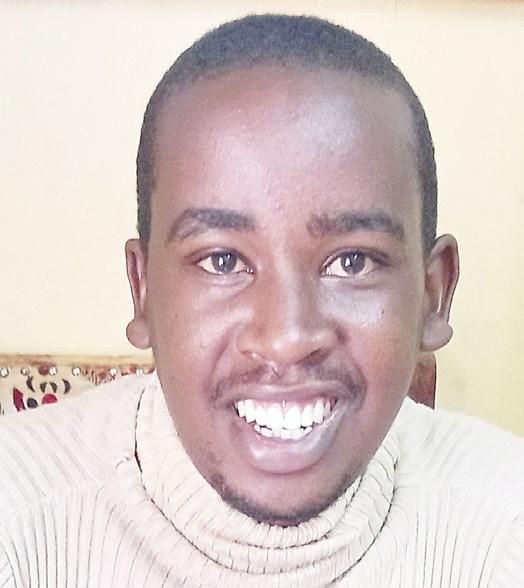
The teachers were also able to have enough time with the learners and they had to compensate the time they lost when schools closed due to Covid-19.
Njoroge said the private schools had challenges of teachers leaving to focus on other careers since they were out of school for a long time.
The Education Permanent Secretary Dr. Julius Jwan rubbished the allegations that the results were moderated to give private schools low marks.
Private schools managers say the standardisation used favored public schools.
Thorn Tree Academy Head teacher Joseph Kamau said public schools did not perform better than private schools. Private schools had low marks in expected high performers with public low performers receiving high marks.
“Public schools were disadvantaged because they had no online learning and record high
number of students which is difficult to manage, they came from the blues to top the country which is questionable,” he said. Kamau said the government should be friendly to private schools and should be treated equally since the students are all citizens of Kenya and the parents pay taxes just like those in public schools.
He noted that categorizing of students during marking of the examination and registration should also be done away with.
Education Cabinet Secretary Prof George Magoha had issued a statement before the release of the examination indicating that administration and marking will take into account challenges candidates went through during the nine – month Covid-19 shutdown.
The Education Permanent Secretary Dr. Julius Jwan rubbished the allegations that the results were moderated to give private schools low marks.
He said the private schools had financial challenges and lost teachers to other sectors during the six months break causing decline in performance.
During the six months period the Kenya Institute of Curriculum Development (KICD) offered lessons through radio and TV lessons. Most private schools held their lessons online.
to maintain their 2021 mean score.
“Last year we got a mean score of 363 while this year we managed to get 386.47,” he added.
The School Director Julius Kamatei thanked all stakeholders that made the school perform well.
“First of all I want to thank God, 2020 candidates, teachers for their dedication, sacrifice and hard work, support staff, parents, school neighbourhood and education officials for their support. May God bless you abundantly,” he said.
He assured parents that the school will continue offering quality education to their children.
Rev. Murupus Junior Academy celebrates sterling performance
candidates include Marie Cherop 396 marks, Rayan Maina 391 marks and Alakir Mayoom Apioth 385 marks.
Mary
By Martin Ruto
Rev. Murupus Junior Academy posted a sterling performance in 2020 Kenya Certificate of Primary Education (KCPE) exams.
The school established in 2004 made a huge leap in KCPE exams with an improved mean score 352 compared to 331 in 2019.
Rev, Murupus Junior Academy led in Pokot South Sub-county scooping position three in West Pokot County.
The top three
Rev Murupus Junior Academy Chepareria is located along Kapenguria –Lodwar Highway near Chepareria Urban Centre in West Pokot County.
The school admits learners from all parts of the country and beyond.
The top candidate Marie Cherop is from the locality, the second candidate Ryan Maina comes from Mt. Elgon region –Bungoma County while
the third top candidate Alakir Mayom Apioth is a South Sudanese refugee. The academy head teacher Simon Kilate said teamwork among the staff is a major motivation in the school.
Deputy Head teacher is Isaac Yarasia and Madam Carolyne Masinde is Director of studies.
The Director of the institutions Mary Murupus said her passion is to see that learners grow positively in academics, morally, socially, emotionally and physically.
Rev. Murupus institutions include Rev. Murupus ECDE, Rev Murupus Senior
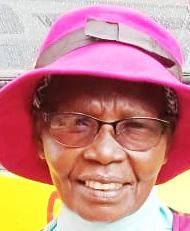
Academy, Rev Murupus Secondary School and Rev Murupus Teachers Training College all located near Chewoyet Boys National School in Kapenguria West Pokot County.
Mr Simon Kilate Head Teacher, Rev. Murupus Junior Academy Chepareria.
KCPE 2020 RESULTS:
KCPE 2020 RESULTS:
1. Marie Cherop - 396
1. Marie Cherop - 396
2. Maina Barasa - 391
2. Maina Barasa - 391
3. Alakiir Mayom - 385
3. Alakiir Mayom - 385
4. Mercy Chebet - 371
4. Mercy Chebet - 371
5. Boru Adan - 365
5. Boru Adan - 365
6. Prudence Chepkiach- 365
6. Prudence Chepkiach- 365
7. Ezra Mwotot - 362
7. Ezra Mwotot - 362
8. Joan Chepkiror - 353
8. Joan Chepkiror - 353
9. Alphine Cheruto - 351
9. Alphine Cheruto - 351
10. Titus Kaloton - 350
10. Titus Kaloton - 350
11. Caleb Rotich - 347
11. Caleb Rotich - 347
12. Nathan Yego - 346
12. Nathan Yego - 346
13. Joachim Rotich - 343
13. Joachim Rotich - 343
14. Abigael Chebet - 340
14. Abigael Chebet - 340
15. Brian Kibet - 336
15. Brian Kibet - 336
16. Emmanuel Krop - 331
16. Emmanuel Krop - 331
17. Janet Cherono - 324
17. Janet Cherono - 324
18. John Krop - 280
18. John Krop - 280
TOTAL MEAN = 352.00
TOTAL MEAN = 352.00
For compliments and admissions at Rev Murupus Junior Academy Chepareria contact 0712208835/0751714020/0722449159.
Rev.
EDUCATION NEWS 19 JUNE 1 - JUNE 14, 2021
Head Teacher, David K. Musila.
Highlands Plateau Academy 2020 Class.
Highlands Plateau Academy pupils
Murupus, The Director, Rev. Murupus Institutions.
Murupus Junior Academy pupils in class.
FOCUS ON TOP SCHOOLS
Braving all odds, schools in slums shine in KCPE exams

Equip rural schools to boost CBC learning, says KNUT official
 By Domnic Maraga
By Domnic Maraga
Taita Taveta KNUT Executive Secretary Lenox Mshilla has raised concerns that the roll out of Grade 5 curriculum may delay due to financial problems experienced in the country due to Covid-19 pandemic.
Mshilla said the Ministry of Education may not afford important basic facilitation to enable the timely roll out and implementation of the new curriculum.
He said unlike in the previous roll out when books and other curriculum materials had a lot of typographical errors and other problems the current curriculum roll out needs a lot of resources, time and good expertise.
By Collins Akong’o
Amani Primary School, a government owned public school adjacent to St Irene’s nursery and primary school, was able to produce students scoring more than 400 marks.
According to the Head teacher Mr. Richard Nduva the school’s best two pupils scored 406 and 403 marks respectively.
He said the school had 244 candidates who sat the exam.
Pupils living in informal settlements of Aldina and Mikindani in Jomvu Sub County, Mombasa County have beaten all odds to excel in KCPE.
Tucked into the heart of the densely populated Aldina slums in Jomvu Sub County, Leads school provides a ray of hope that illuminates the otherwise bleak future of the children.
The school is the only beacon of hope in education both
TAITA-TAVETA
By Michael Oduor
Residents in Wundanyi, Taita Taveta County have been urged to use the Kenya National Library Service (KNLS) facility present in the region to equip themselves with knowledge on how to handle or solve challenges in the community ranging from social, economic and political issues.
Speaking in Wundanyi, the Librarian in Charge Joselyne Mutua said the facility contains different books, including magazines and newspapers with relevant informa -
primary and secondary to about 20,000 families living in Aldina slums.
According to the school’s Managing director, Elizabeth Nafula, the school had a mean score of 372 marks out of 68 candidates.
The school improved on its performance in the 2019 KCPE in which it managed a mean score of 368 out of 60 candidates. However, the number of candidates with 400 marks and above dropped from 15 in 2019 to eight in 2020.
Solomon Chimerah, 14, was
the best performing pupil at the school with 404 marks.
Chimerah aspires to be a neurosurgeon and he hopes to join Alliance Boys High school.
In Mikindani Ward informal settlement are two primary schools which cater for about 57,000 families.
St Irene’s Nursery and Primary school, a Catholic Churchsponsored school was able to produce 3 pupils with 400 marks and above with the highest scoring 418 marks while second and third pupils had 404 and 403 marks respectively.
The school’s head teacher Sister Ruth Mwongeli said it was hard to get the pupils back to learning mode because parents did not allow their children to get back to school fearing there might be massive Covid-19 infections.
He added that even though the new curriculum is already expensive to many parents it can only be successful when issues that need immediate attention in some schools are worked out.
“We are glad that even though parents complained of it being expensive we can attest that it has reached out successfully in many schools if not all”, said the official. He said the government should consider giving proper funding to all public schools without giving
too much attention to schools in the urban centres while neglecting those in the rural areas.
He pointed out that most affected schools in the previous roll out are rural schools with problems like electricity, poor network, and poor road infrastructure among other issues that hinder full implementation of the curriculum.
Mshilla said until now some rural schools have no minimum requirements to foresee the full implementation of the new curriculum.
He challenged the government to conduct a proper survey and have full information on what and how they should implement the curriculum.
He said the new curriculum will only work well with enough funding.
The KNUT boss while reacting to the recent nomination of Prof Ann Chege as the Principal Secretary Reforms and Implementation of the new curriculum said there was no need for the appointment as the government doesn’t have enough money.
He said the government should deal with major issues affecting the ministry instead of appointing another PS.
tion concerning current issues that members of the community can utilize in developing themselves.
“Members of the community should feel free in coming and accessing the facility which has different types of books, magazines and newspapers with updated information that can be useful in their daily lives. Let them walk into the facility and get this free knowledge which cannot be accessed without reading books,” said Mutua.
She also noted that the facility has computers with in -
ternet that the users can use to access information through Google at a cheaper price of Sh20 a day.
Mutua urged the youths who are in different learning institutions in the region to access the facility and use computers in doing their research and learning.
The facility normally gets flooded during the holidays when students are at home, adding that they are the heavy users of the library compared to other residents.
“We normally have many users of the facility especially during the holidays. Basically,
most users are students who are in schools in the region, including those who are in colleges and universities who use the facility during their holidays. When schools are opened, we have less people accessing the library for services,” said Mutua.
She encouraged the members who use the facility to continue utilizing the resources present and continue getting enlightened on the various issues affecting the society and the solutions provided through reading of the materials in the library, adding that a book a day keeps ignorance away.
EDUCATION NEWS 20 JUNE 1 - JUNE 14, 2021
COAST MOMBASA
418
Leads School community celebrating the victory of their best pupil Solomon Chimerah who score 404 marks in 2020 KCPE. Photo/Collins Akong’o
HIGHEST MARKS scored from Mikindani Ward in 2020 KCPE by St. Irene’s Nursery and Primary School.
Taita Taveta KNUT Executive Secretary Lennox Mshila(left) with his KUPPET counterpart, Shadrack Mutungi.
TAIA-TAVETA Reading keeps ignorance
The facility contains different books, including magazines and newspapers with relevant information concerning current issues that members of the community can utilize in developing themselves.
at bay, residents told
- Joselyne Mutua
Akorino faithful urged to study further
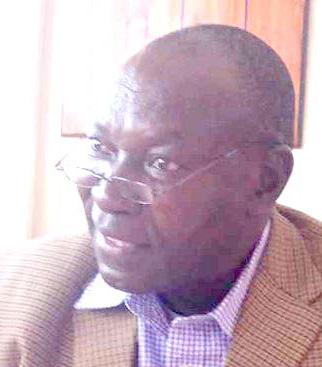 By Kamundia Muriithi
By Kamundia Muriithi
The Akorino Religious Group has urged its faithful to continue educating their children to the highest levels possible.
The church also encourages its members and society to continuously plant trees to reap from tree products and a better environment.
Akorino Church’s National Secretary-General Rev Macharia Prince said their faithful had embraced education wholeheartedly, with some of their members scaling to the highest levels of academia.
Speaking during a tree planting exercise in Embu County, which is part of the Akorino Church’s plan of planting 1 million trees in 100 days, Prince called on Kenyans to shun the perception that Akorino faithful are not keen on education.
They also planted trees at the Embu GK Prisons and the Embu Level Five Teaching and Referral Hospital.
The tree planting exercise was a partnership with the Kenya Forestry Service, Embu County Government, and the
KITUI
Pupils miss school after Kitui evictions
to ensure their children pursue secondary and tertiary education.
He said they embarked on the tree planting exercise to commemorate 100 years of existence of Akorino Faithful and Heritage in Kenya.
Embu Deputy Governor David Kariuki praised the faithful for their tree planting project and for sensitizing their members to advance their education.
He said the educated Akorino had proved that they have abilities just like the general population, with many excelling in various professions and leadership roles.
By Lydia Ngoolo
Following the recent eviction of locals residing near Kiambere Dam in Kitui County, the number of pupils who reported back to school in Kathini Primary School has reduced.
Tana and Athi River Development Authority (TARDA) evicted about 1000 families claiming they were illegal squatters in the land next to Kiambere Dam along Tana River.
Other residents affected were in the areas of Katoomi, Burrow Pit and Kithumuoni all living near Kiambere Dam.
Akorino
University of Embu, among others.
national secretary-general Rev Macharia Prince Photo/Kamundia Muriithi Prince implored the Akorino to ensure their children pursue secondary and tertiary education.
A Bachelor of Science student Pauline Wanjiru who is also of the Akorino faith, was hailed for organising the tree planting exercise at the university and being a model to many Akorino students.
Prince implored the Akorino
TSC refutes claims of teacher transfers
By Boniface Mulu
Teachers Service Commission (TSC) has said there are no plans for transfer of school principals in Kitui County.
Kitui TSC County Director Suleiman Odipo said there are no plans to transfer principals due to Covid-19 pandemic.
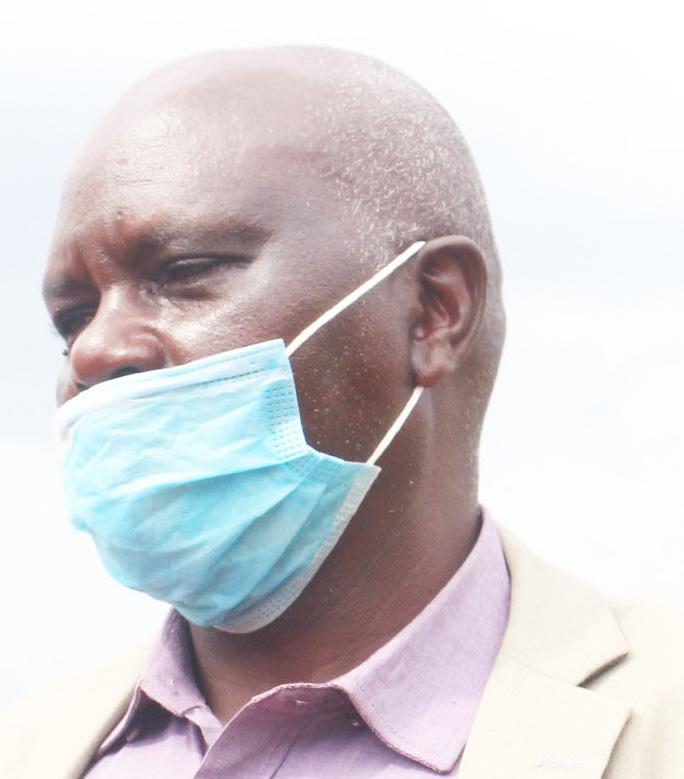
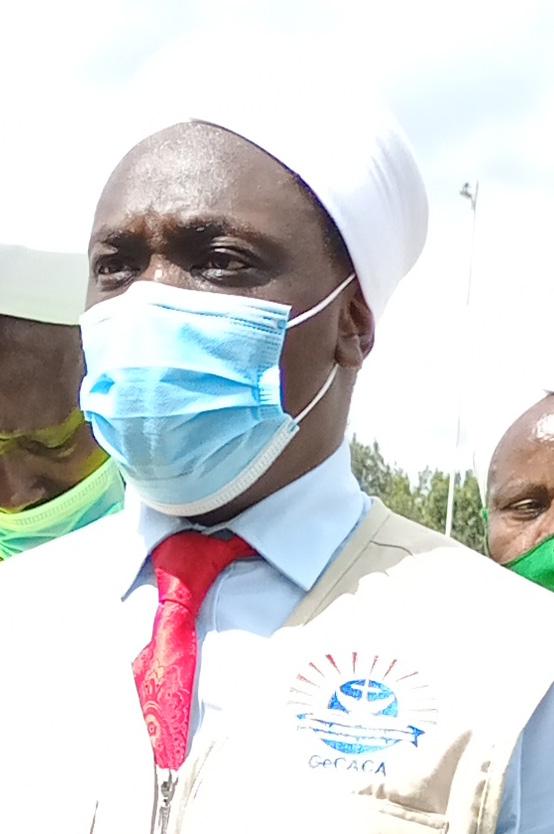
Odipo said they had not received any letters of transfers in Kitui County from the TSC.
“However, I will do what we call the teacher balancing and nationalisation for the effective management of the human resource in the county. And it is something which is continuing,” the TSC official said.
“The transfer of school principals in the country is in two categories-the national and extra county
Kitui TSC Director, Suleiman Odipo.
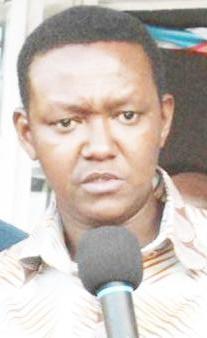
schools and the county and sub-county schools,” the educationist said.
The national and extra county schools category is done by the TSC headquarters in Nairobi. And the county and sub-county schools category is done by the TSC Regional Directors, he added.
for teachers
By Domnic Maraga
Milami Primary School Director Michael Namakhabwa has urged the national government to frequently conduct in-service seminars to help empower and jumpstart teachers on the new skills required in administering the new curriculum.
Speaking at his office, he said some teachers still go through hardship while administering the syllabus hence need for many seminars.
He pointed out that the few seminars conducted don’t reach majority of private school teachers in the rural areas due to the burden of transport and other facilitation expenses.
The director said through such seminars teachers are empowered with knowledge on schemes of work and lesson planning among other responsibilities mandated to them while in their class duty.
Katithini Primary head teacher Charles Mwangangi said out of 135 enrolments only 66 of the pupils reported.
The school head said the enrolment has been adversely affected by the eviction of families that feed their schools with pupils.
“Though our school was not officially registered by the Ministry of Education since it was started in 2014, we are hoping that it will not be pulled down like the way homes, shops and other buildings were demolished during eviction,” he added.
He expressed his worry that if the school is not registered then it will be hard for them to register candidates for national exams.
However he pointed out that consultations are still going on with education authorities to know the fate of the remaining pupils and the four TSC teachers in the school.
PTA Chairman Joseph Kimanzi
66 PUPILS
OUT OF 135 enrolments reported.
observed that those pupils whose parents were evicted cannot make it to the school due to distance.
He expressed his worry that some may end up dropping out of school and engage in vices.
Kimanzi called upon TARDA to make sure that if they will demolish the school they allocate them land elsewhere the same way they treated their Embu neighbours by allocating land for markets, schools and police station.
MCA urges county to establish more VTCs in Machakos
By Domnic Maraga
Muthwani Ward MCA
George Kingori has challenged the county government to at least build one out of the three VTC centres needed in the sub county.
He said currently the only VTC centre serving both Matungulu and Mavoko constituencies needs upgrading.
Kingori pointed out that the two sub-counties have a big population that demand upgrading of the one VTC centre in Athi River and building more such institutions across the two constituencies.
Heurged majority who don’t manage college and university grades to opt for skills to survive.
Machakos County Governor, Alfred Mutua.
EDUCATION NEWS 21 JUNE 1 - JUNE 14, 2021 EASTERN EMBU
MACHAKOS
KITUI
MACHAKOS
Katithini Primary head teacher Charles Mwangangi. Photo/Lydia Ngoolo.
Church’s
Private schools want more in-service training
Kadika Girls posts best KCSE results, sends 194 to university
ing a mean of 11.48 points of A-, followed by History and government headed by Mr. Jasper O with 226 candidates, who scored a mean of 10.66 points of A-.
By Norah Musega
Kadika Girls High School
beat the odds to post best performance in 2020 KCSE, sending 194 students, who scored C+ and above, direct to university under the government sponsorship programme. The school recorded a mean score of 7.0 of C+ with a positive deviation of 1.1 from the previous year when it had a mean of 5.9 of C plain.
It had 2 A-, B+ 14, 38 B plain, 63 B- and 77C+ out of 328 candidates. The rest also qualified to enrol for various courses in colleges and tertiary institutions.
The school has also been posting good results in computer studies headed by MD. Maurine Wera, with this year’s 24 candidates who registered for the subject achiev-
The Seventh Day Adventist church sponsored institution in Suna East constituency boasts of a conducive environment for learning. It has grown over time to be a world class academic centre offering the girl-child a chance to encounter a unique learning environment and opportunities. Established on the outskirts of flourishing municipality, it enjoys a serene surrounding free from noise and suitable for learning.
It has a fully equipped learning resource centre, modern computer and science laboratory with more space for structural development as it stands on five hectares piece of land.
The school encourages moral value acquisition alongside cultural heritage as enshrined in the institution’s mission and vision. It is currently raising the flag of top performing girls’ schools academically in the whole County and has also contributed meaningfully over the years enabling students to qualify for university admission.
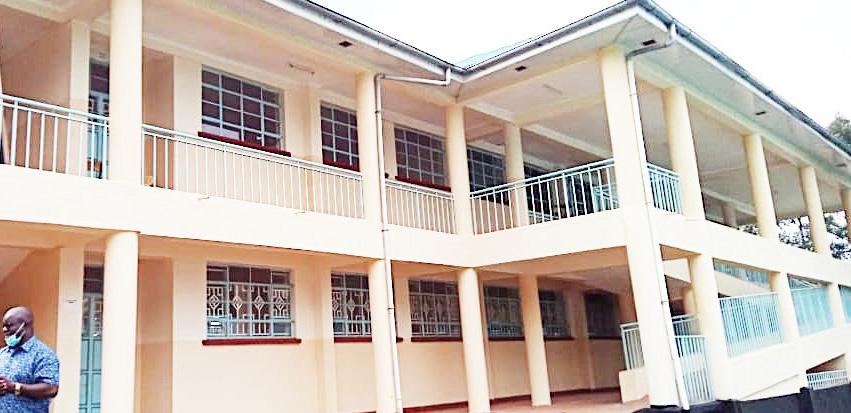
The school’s performance has gradually been moving up since the change of guard which saw the transfer of Mrs. Roselyne Ochieng to head the institution in mid2018. That year the school recorded a mean of 6.01 with a positive deviation from 5.3 in 2017 making it the best girls’ school in the county.
Even though they are faced with the problem of teachers shortage and are forced to employ more staff through the Board of Man-
agement (BOM), the Principal says all the credit goes to all the teachers who have been working tirelessly despite the Covid-19 outbreak to ensure the candidates were attended to and prepared fully for the national exams.
Mrs. Ochieng also noted that other education stakeholders in the school have
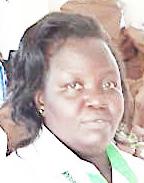
also been playing a major role in contributing towards the exemplary performance of the school in the past years.
“United effort put together by all education stakeholders resulted in the great improvement in the schools performance. We have teachers who have equally sacrificed their personal time to attend to the needs of our candidates through dedication and commitment in the teaching profession,” stated Ochieng’.
As the school sets its goals even further through ensuring discipline amongst their students and guided by their motto: ‘The sky is never the limit,’ aspiring for excellence, they remain focused to do better in the years to come.
The administration has put more interest in ensuring their students are awarded
equal opportunities at school to concentrate and remain focused in their academics by establishing a cashless canteen which helps in provision of basic necessities to students from poor family background who are unable to afford some of the items regularly.
The staff has formed a welfare committee that also contributes towards providing scholarships to needy students at the school to ensure they are not sent home for school fees, and have proper uniforms among other basic needs as a way of utilizing every opportunity towards academic activities in the school for better performance.
“We have the staff welfare and the cashless canteen that has a major focus on supporting needy students that we have within the institution and this has brought impressive results from the students since they can afford more time to concentrate in their studies,” noted Mrs. Ochieng’.
“After the prolonged holiday brought by the outbreak of the pandemic that affected learning across the country with candidates staying home for seven months before resuming learning, we were dedicated to ensure our candidates remain focused on their studies and well prepared for the KCSE amid challenges that came with the corona virus in the education sector,” she added.
these students especially during their movement from one place to another because most of them need wheelchairs to necessitate their movements,’’ he said.
Kwanusu affirmed that the school has posted impressive results in 2020 Kenya Certificate of Secondary Education with a mean score of 4.352 which is an improvement from last year’s (2019) mean score of 4.06.
By Tony Wafula
Nalondo CBM special National Secondary school situated in Kabuchai Constituency Bungoma County is an academic powerhouse for special needs students. The institution houses students living with disability from all over the country. The academic giant has produced people of different professions nationally.
In an exclusive interview with Education news, Mr Kwanusu Walter Wawire recounted the challenges his students go through while in school, adding despite the challenges the students have still merited in their national examination.
‘’We have problems with
He noted that in 2019 six students secured a direct university entry to do their courses of choice as others flooded into TVET institutions. He added that in 2020 nine students got a mean grade of C+ and above who will later join universities of their choice assuring that he will continue leading them to success.
‘’This year’s students have made me proud, taking nine students into university
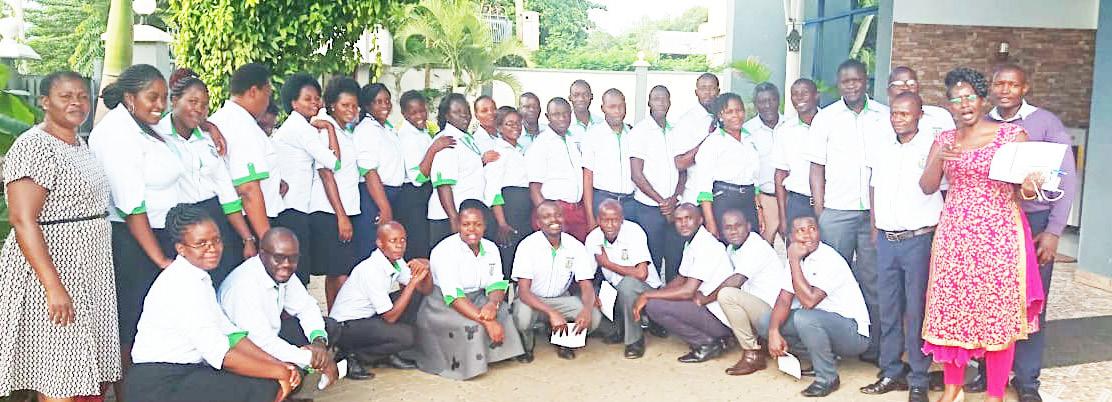
directly despite the challenges faced is not an easy task,’’ Kwanusu stated.
He said that out of the nine who scored a mean grade of C+ and above, 3 are on wheelchairs and 2 battle sickle cell anaemia.

He thanked Martha Juma and Datayo Juma (sister and brother) for emerging the top best candidates with grade (B+) of 67 points each.
In his appeal, the school principal asked leaders and well-wishers to provide bursaries to students living with disability to access education and stop being neglected in the society.
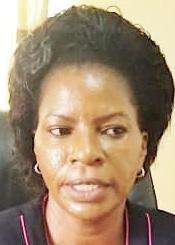
‘’We are getting support from different leaders but it’s not enough to sustain them all because most of them depend on others for their movement,’’ he said.
‘’ I take this chance to ask leaders to help us get a bus
to facilitate movement of our students,’’ he said, adding that moving from one institution to the other for academic trips motivates them.
Kwanusu said that the best performing subjects at Nalondo CBM are Geography and Kiswahili, pointing out that Mathematics performance greatly improved in the just released National examination.
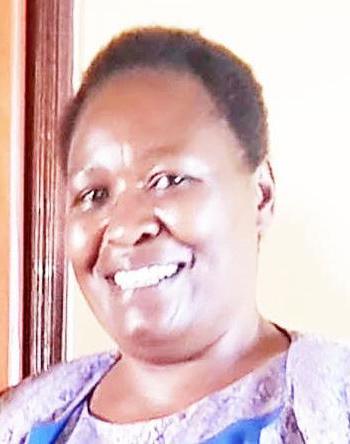
‘’Our efforts to outshine other schools in sciences and mathematics have hit a snag due to lack of a digital science laboratory, ‘’ he stated.
He appealed to the Bungoma County government to supply face masks, soaps and sanitizers as students reopen this week, adding many of them come from humble backgrounds.
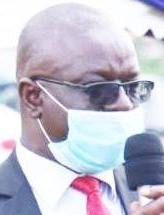
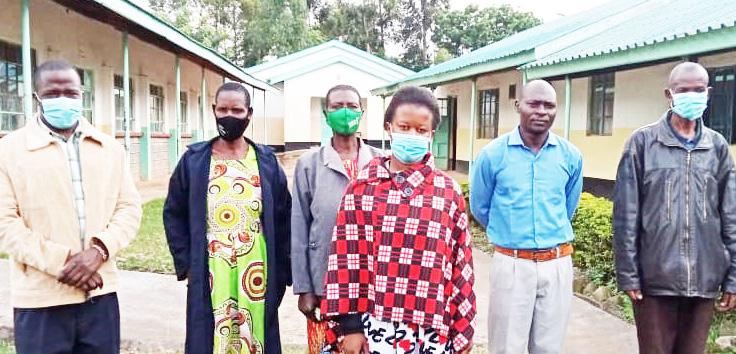
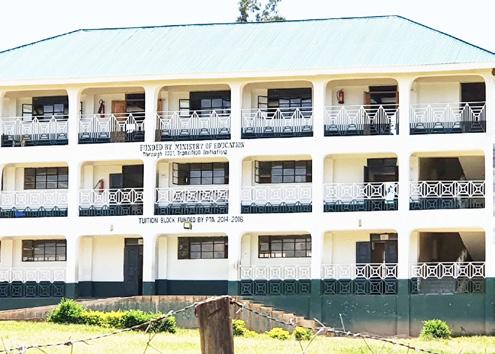
Mr. Kwanusu called upon parents to desist from hiding children living with disability and instead take them to special schools where they can get knowledge and be given special attention. “Learners are catered for well where they are fed with a balanced diet. Hiding the minors demoralizes them hence they are tortured psychologically,” he said.
‘’Here we cater for students to ensure that they eat and stay well,’’ he said, adding
The newly build classrooms yet to be launched.
that every house has a mother who takes care of them.
The school has a population of 315 students.
Julius Wayong’o, a parent to the two top students, appealed to well-wishers to intervene and help him raise varsity fees.

Kwanusu appealed to area Member of Parliament (MP) Majimbo Kalasinga to help the institution to purchase
a school bus that will help in transportation of students to other schools for benchmarking as a way of motivating them. He also asked for the government’s intervention to facilitate the school getting an extension of a piece of land for playing grounds to offer room for those who want to participate in co-curricular activities and nurture talents.
22 EDUCATION NEWS JUNE 1 - JUNE 14, 2021
The school’s tuition block.
Hellen Maina Deputy Principal (Administration)
Mrs Roselyne Ochieng’ School Principal.
MR. OCHIENG’ V.
MR. OG’NGE W.
Kadika Girls Secondary School KCSE 2020 results
BOM and Teaching Staff during a Strategy Meeting at Coldspring Hotel in Homa Bay.
Rose Ombewa, Deputy Principal (Academics).
Nalondo CBM Special National Secondary posts impressive performance in KCSE
School principal, Walter Kwanusu.
School Support staff.
B+
Martha Juma
B+ FOCUS ON TOP SCHOOLS
Datayo Juma
St. Mary’s Kibabii Boys posts excellent results in KCSE
Mr. Ogeto said parents were equally supportive adding that they responded whenever the school required their support.
‘’I take this humble opportunity to laud the parents of this institution for having helped us lead other schools, I appeal to them to continue supporting the school whenever need arises,” he said, adding that the school has continuously been posting a positive improvement since 2017, In 2020 the school posted a mean score of 8.5759 with a positive deviation 1.6951.
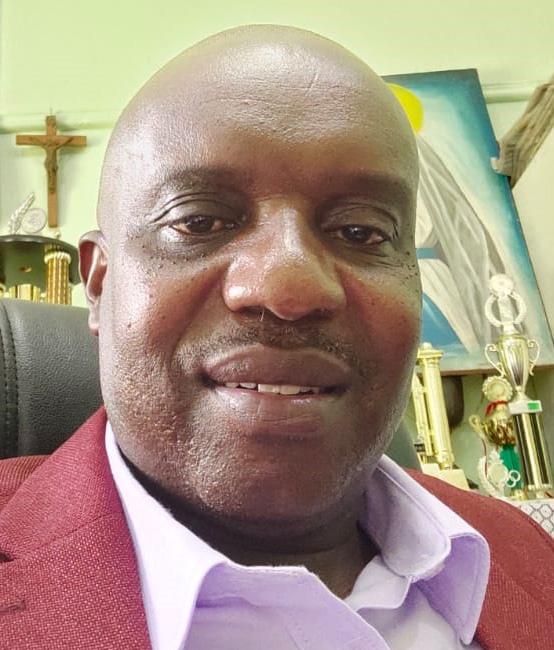 By Tony Wafula
By Tony Wafula
St. Mary’s Kibabii Boys High School has posted excellent results in the 2020 Kenya Certificate of Secondary Education (KCSE) national examinations.
The school established in 1962 is situated along Bungoma-Chwele Highway is Catholic sponsored.
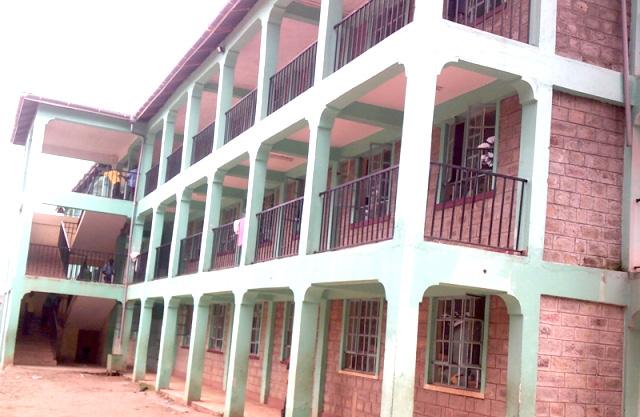
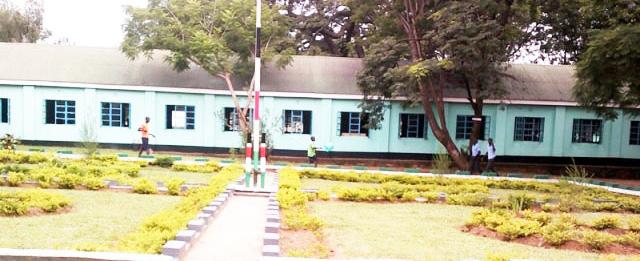

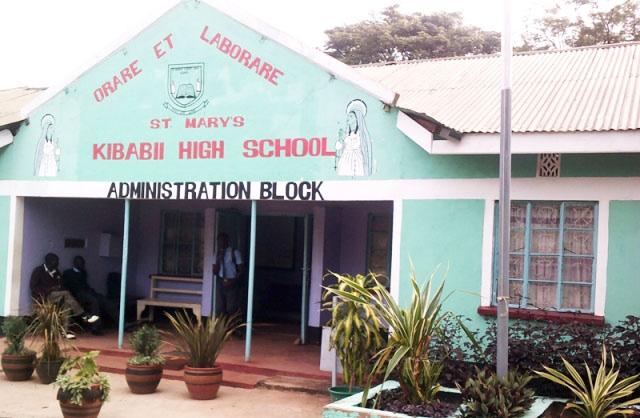
In 2020 the school registered 408 candidates out of which 369 have secured direct entry to university.
The school Senior Principal Nicodemus Ogeto attributed the stellar results to team work and pastoral care thanking all the stakeholders for their cooperation.
He said that for the past three years the school has greatly improved its performance citing teacher’s hard work and discipline among students adding that the school has a population of 1774.
He congratulated the board of management and other stakeholders for doubling their efforts in ensuring academic excellence and making sure that Kibabii outshines other institutions in Bungoma County and its environs.
Ogeto also lauded the church leadership particularly Kibabii Catholic Parish priests for the continuous spiritual nourishment.
He assured that the school administration will remain committed and always available to support students and ensure they continue excelling in national exams and cocurricular activities.
“My teachers are always available in school even during odd hours and weekends to support and allow students to make consultations where necessary”, he noted.
He revealed that teachers did their parenting role adding the students have been put into family
0722461152
groups to discuss various issues; including guidance and counseling on psychological support.
“This family group has offered a platform where students can freely share their thoughts with parenting teachers which in the long run made the school their second home,’’ Ogeto added.
“My boys are very prayerful, disciplined and hardworking, I laud the Catholic Church for their continuous spiritual masses on Thursdays and Sundays that have been made by boys to grow spiritually,’’ he affirmed.
On school infrastructure, Mr. Ogeto said they are overstretched due to increased enrollment of students.
He appealed to the government and well-wishers to chip in and help
the school construct new science laboratories.
The Senior Principal lamented that during Covid-19, many students faced challenges as many lack digital gadgets to access onlinelearning. He assured that he will continue supporting students get education and lead lives that positively impact society.
Ogeto congratulated Agustus Tunduli, a bright boy who led the school with an (A) plain saying that he spent much of his time teaching others.
Deputy Principal Academics
Mr. Cosmas Mutembete said the school expected fantastic results from the tough preparations that students had been taken through even
before Education CS announced. He added that the school was able to get stellar results because of the commitment by both teaching and non-teaching staff.
Mutembete said teachers have had a good working relationship with the school senior principal adding that Mr. Ogeto motivates by awarding students for good performance in both secular and co-curricular activities
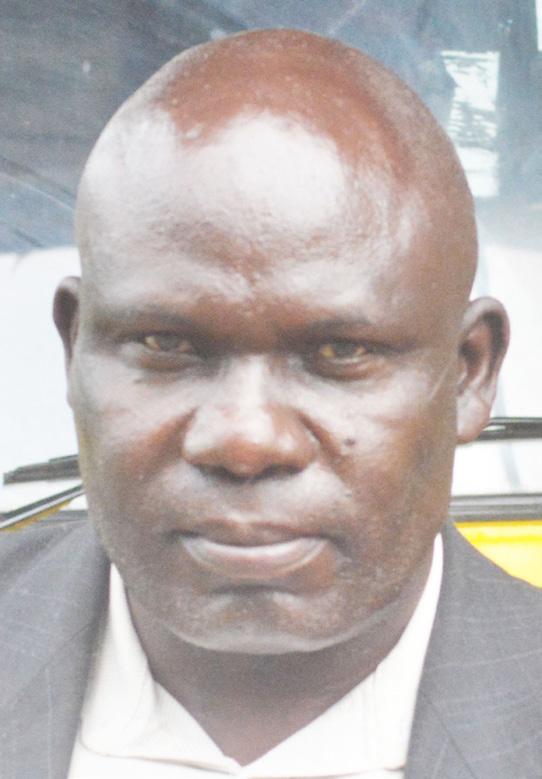
He said computer studies are normally performed better in the school adding that Hockey and Football is also the top co-curricular activity in the school.
Before the spike of Covid-19 pandemic, the school was to ascend to national competition in co-curricular activities.
EDUCATION NEWS 23 JUNE 1 - JUNE 14, 2021
Water storage tanks at the school.
Administration Block.
’
Front view of the school.
Deputy Principal Academics, Cosmas Mutembete.
Mr Nicodemus Ogeto, Senior Principal.
FOCUS ON TOP SCHOOLS
New hostels.
Over 8,000 students receive bursaries
prove their schemes of service,” he said, urging students to take advantage of the joint sponsorship by the County and National Governments and enroll in large numbers.
Education Executive, Prof. Grephas Opata said that besides education bursary, the County Government has other components including County Revolving Fund, County Afya Elimu and Scholarships for University and middle level colleges.
Prof Opata said the County Government has to date disbursed Sh55 million revolving fund to 2331 students.
CECMs Dr Moses Osia (Agriculture) and John Mwami (Public Service and Administration) thanked the Department of Education and Vocational Training for timely release of the funds ahead of schools opening.
School appeals for learning facilities
By Tony Wafula
A school in Bungoma County has pleaded with the government and well-wishers to provide learning facilities which are needed to improve education.
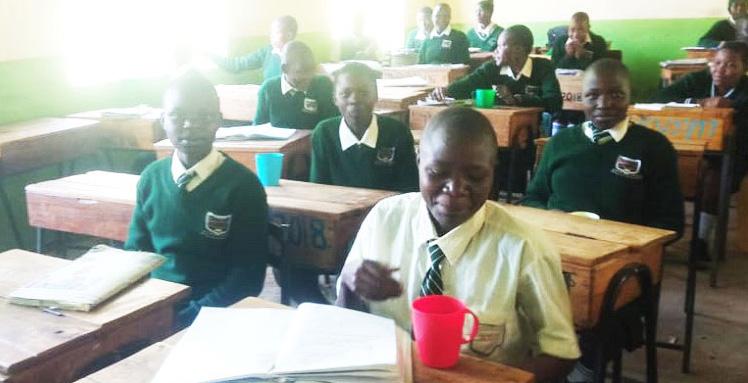
Principal Kabuchai SA Secondary school Velma Simiyu said that the school posted poor results due to lack of support from parents, area leaders and the government adding that the school almost collapsed due the negligence from relevant authorities.
The institution is sponsored by Salvation Army church.
“I have struggled to bring the school to the required standards
By Washington Okella
Over 8000 post primary students have benefited from Sh70 million Busia County Education bursary fund.
Busia Deputy Governor Moses Mulomi launched the cheques issuance exercise at the Amaase Vocational Training Centre, setting stage for distribution of cheques to schools and VTCs across the county.
In the Financial Year 2019/2020 the County Government of Busia disbursed bursaries worth Sh50m to 8728 students across the county.
Deputy Governor Moses Mulomi said the County Government will upscale the bursary to at least Sh100 million; urging Members of the County Assembly to contribute more funds from ward development projects.
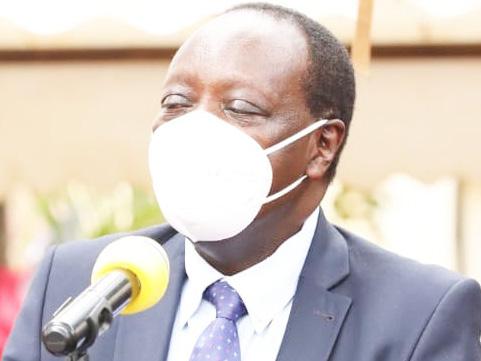
Mulomi said the County Government has so far constructed over 250 ECDE classrooms, adding that money has been factored for completion of all incomplete classrooms; new classrooms will also be constructed this financial year.
“We are also planning to add more instructors in VTCs and im-
They also thanked the Governor Sospeter Ojaamong for his great vision of introducing bursaries.
Chief Officer, Lydia Nabwire said the Directorate of ICT will channel funds to VTCs for internet connectivity to enhance information technology at the VTCs.
KUPPET County Executive Secretary, Moffat Okisai appreciated the efforts by the County Government for the fund which he said will help reduce poverty level which currently stands at 59.7 per cent, adding that follow-up of beneficiaries is critical.
MP defends construction of storey buildings in schools
problems of congestion in our classrooms, and enhanced enrolment in schools.” he added.
Shinali was speaking at Shiduha Primary and Secondary schools in his constituency when he toured the two institutions.
He promised to renovate and expand the two schools and put up a boarding wing in the secondary section.
He said some learning institutions in the constituency had been unable to acquire parcels of land from their neighbourhoods for expansion due to lack of resources.
He said other neighbours refused to sell their lands to the schools a fact that stagnated their expansion programmes.
By Denis Lumiti
Ikolomani Member of Parliament Benard Shinali has defended the construction of storey tuition blocks in schools in the constituency, saying it was meant to promote academic standards.
Shinali said the storey blocks had improved enrolment in both primary and secondary schools in the past eight years.
but my efforts have not borne any fruits as I lack support from parents”, she stated.
She said that the school posted the worst results in languages, attributing it to an abrupt sickness on the English teacher.
Simiyu lamented that the school enrollment has gone down due to bad roads and poor school infrastructures.
“The school has leaking roofs which makes it uncomfortable for teachers to carry on lessons during heavy rains”, she said.
She appealed to area Member of Parliament to help the school build an administration block, dining hall and kitchen.
He said many schools grappled with inadequate land, adding that the storey buildings had helped to decongest the learning facilities.
“I am told some of my opponents are opposed to the putting up of storey learning classrooms in our institutions claiming it was a waste of resources and not a priority,” noted the MP.
“That is laughable because we have managed to address the
The legislator said they had put up storey learning blocks in over twenty-five schools so far and that several others will be launched and completed soon.
“This is one of my signature projects and that is why I need another term to see it to fruition,” he said. He added that the learning facilities were safe for use by the learners.
Students taking tea while in a lesson due to lack of a dining hall. Photo/Tony Wafula
VIHIGA
Vihiga issues Sh70m bursary to needy students
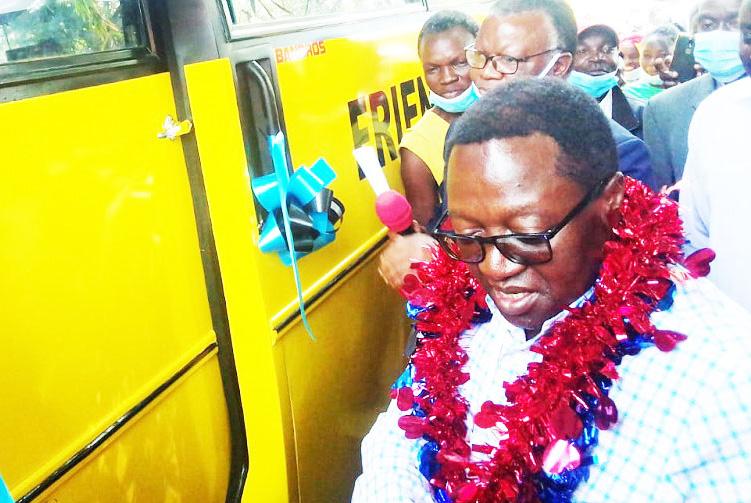
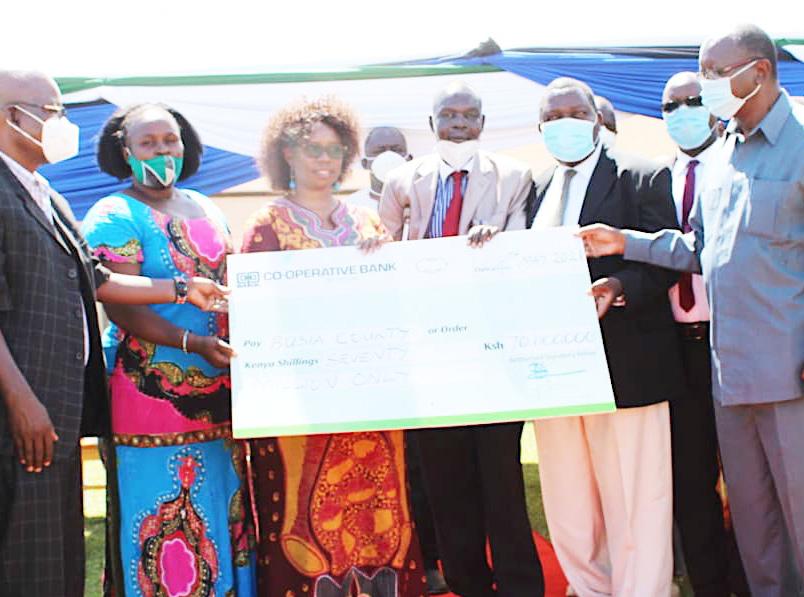 By Roy Hezron
By Roy Hezron
A total of 22, 200 students from various schools in Vihiga County have benefited from Sh70 million bursary which has been disbursed by the County Government of Vihiga for 2020/21 Financial Year.
Speaking during the ceremony attended by a section of teachers drawn from various schools and County officials, the County Governor Dr. Wilber Ottichilo thanked respective stakeholders for their commitment in ensuring a successful release of the funds to the county bursary kit.
“The office of the Controller of Budget came up with new regulations that include sending all names of beneficiaries for money to be released. This resulted into the experienced delay but I want to thank all those who made effort for today’s success,” said the Governor.
Dr. Ottichilo also urged the respective Ward Administrators to fast track the release of the bursaries and ensure that the money reach out to all 22, 200 beneficiaries’ schools within a week after the disburse.
County Executive Committee Member (CECM) for Education Henry Lumbasio encouraged the beneficiaries to work hard in School and achieve good results.
Vihiga County Assembly Education Committee Chairperson Violet Bagada requested school heads to give clear fee structures and in case of any adjustments, prior communication to be made to avoid inconveniences.
Apart from the bursary amount, a total of Sh20 million was also disbursed to the Governor’s Scholarship programme that caters for bright but needy students.
Recently, the Governor also flagged off Scholarship for more than 100 bright but needy students under this year’s Governor’s Scholarship Programme.
The County government has also employed 814 Early Childhood Development Education (ECDE) teachers and some 130 instructors who were deployed to various Vocational education Training Centres across the county.
24 EDUCATION NEWS JUNE 1 - JUNE 14, 2021 WESTERN
BUNGOMA
KAKAMEGA
BUSIA
Busia Deputy Governor Moses Mulomi receives a dummy cheque for Sh70 million at Amaase Vocational Training Center recently. Photo/Washington Okella
Vihiga Governor, Dr. Wilber Ottichilo.
Ikolomani MP Benard Shinali when he handed over a bus to Shiveye Secondary School in his constituency.
Photo/Dennis Lumiti
St Patricks Ikonyero, top day school sends 31 to university
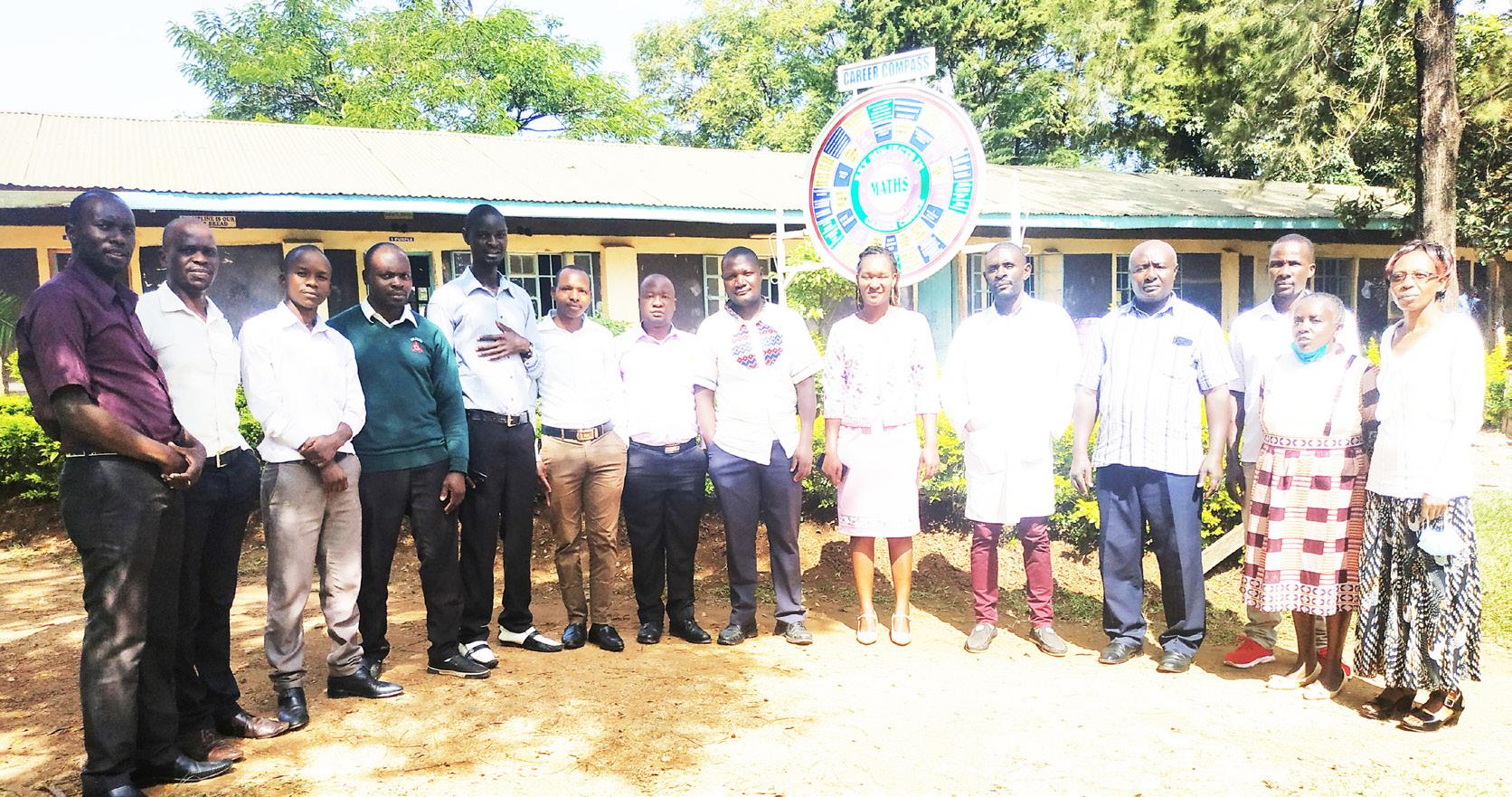
 By Leonard Angatia
By Leonard Angatia
St Patricks Ikonyero day school in Kakamega Central students jovially received the release of 2020 Kenya Certificate of Secondary Education after it emerged that they had posted good results in the exam. It’s worthy mentioning that it is the second highest in population in Kakamega Central after Kakamega High. It sent direct to university 31 candidates, the highest number in school’s history.
The school had 258 candidates majority of them joining university and tertiary colleges respectively.
The sub-county mixed day school is a Catholic sponsored school in Kakamega diocese. It currently has a population of 1249 students, 26 TSCteachers and 14 on Board of Management (BOM) terms. The curriculum based education (CBE) requires that Ikonyero secondary should have 68 TSC posted teachers, unlike the 26 available at the moment.
This has thus forced the school to spend more funds in footing for BOM teachers bills
and in the process crippling its operations.
The School Prinicipal Roseline Namusende has stayed in the school since 2012 and has seen it grow tremendously. She has increased its population, built classes with help of National Government-Constituency Development Fund (NG-CDF) and the enduring support from BOM who even buy pens and books for
candidates.
The school, however, has its fair share of challenges. During KCSE time, the Principal could go into villages looking for missing candidates who had not reported back to school after Covid-19 outbreak to come and sit for exams. Six candidates were missing and due to the prudent
tential of doing better, but warned boda boda men “not to destruct these innocent students.”
“I urge parents to support their school in order to get the expected performance,” advised Namusende.
“ I would wish the school to be promoted to a county level and expect population to increase now that form ones are yet to report,” she added.
She thanked the NG-CDF for helping it with bursary allocation to the needy students which boosts the daily running of the school.
character of the principal she had to do so for the love she has for school. There is congestion in classes and sometimes students are forced to learn from the staffroom. Though, the Ministry of Education has put up a tuition block, it is not enough to ease congestion in school.
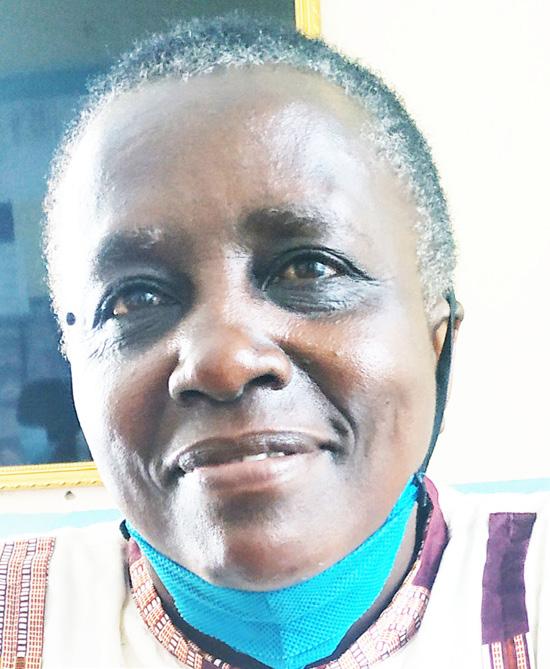
The Principal wished well the current candidates class and noted that they have a high po-
“Teachers are selfless and put in more than expected. These teachers carry out humanitarian role by contributing for lunch kitty for less fortunate students,” she noted.
The school has two deputies, Mr Fredrick Muhani in charge of Administration and Madam Betty Makokha in charge of Academics. Discipline is fair considering the fact that it is a mixed day school.
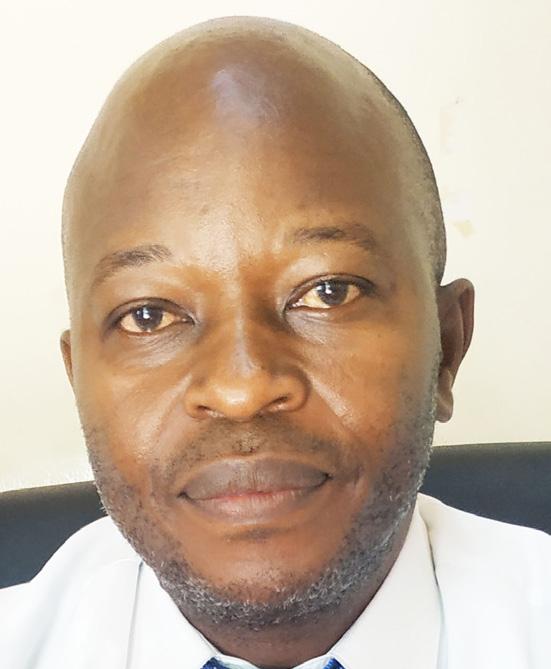
“ We admit good students and they have potential for good performance despite financial status,” stated Muhani.
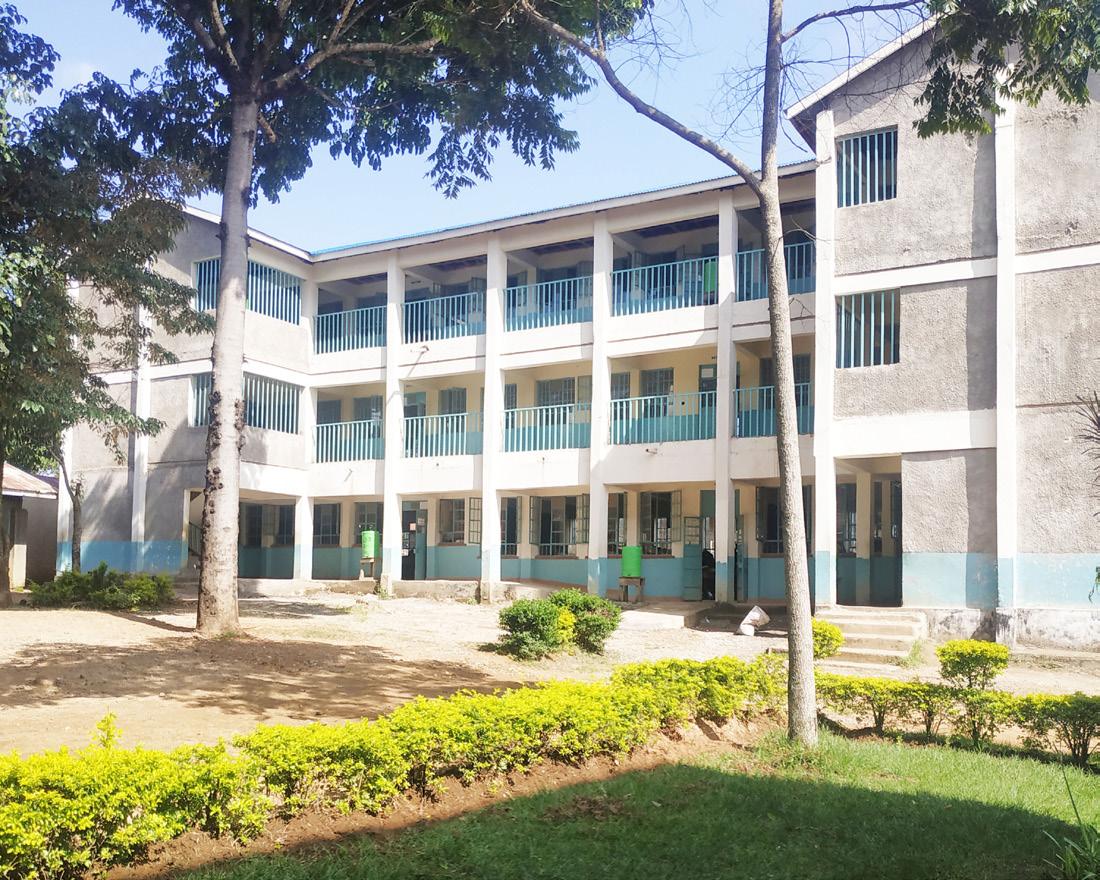
EDUCATION NEWS 25 JUNE 1 - JUNE 14, 2021
Students in a photo session.
Tuition Block put up by the Ministry of Education.
The institution’s dedicated teachers.
Betty Makokha, Deputy Principal in charge of Academics.
Mr Fredrick Muhani, Deputy Principal in charge of Administration.
258 candidates majority of them to join university and tertiary colleges respectively.
FOCUS ON TOP SCHOOLS
TERTIARY INSTITUTI NS
26 EDUCATION NEWS JUNE 1 - JUNE 14, 2021
By Roy Hezron
Vocational Training Centre (VTCs) Managers are appealing to the government to address the huge pay disparities of VTCs trainers and other civil servants of the same job group.
They are also demanding the full implement the scheme of service for Youth Training Personnel of 2012.
The managers through their newly formed Association of Vocational Trainers-Kenya (AVTK) state that the some VTCs can’t afford to pay secretaries, accountants among other support staffs making the managers and their deputies shouldering extra responsibilities yet they don’t get extraneous allowances.
“County Public Service Boards (CPSBs) have put VTCs Managers, Deputies, Head of Departments (HoDs) and Trainers in the same category as Office Support Personnel which is wrong because, VTCs Trainers’ responsibilities are same as teachers that is, we have extra responsibilities like trainer on duty, maintenance of equipment, tools and books; games, guidance and counseling, discipline, drama, clubs among others,” said Saitoti Wainaina, who is the acting national Vice Chairperson.
The trainers maintain that they are entitled to hardship, responsibility, risk and extraneous allowances just like other civil servants, teachers and health officers, hence pleading with county governments to implement the 2012 Youth Officers Scheme of Service and effect all pending promotions from 2007 to 2012.
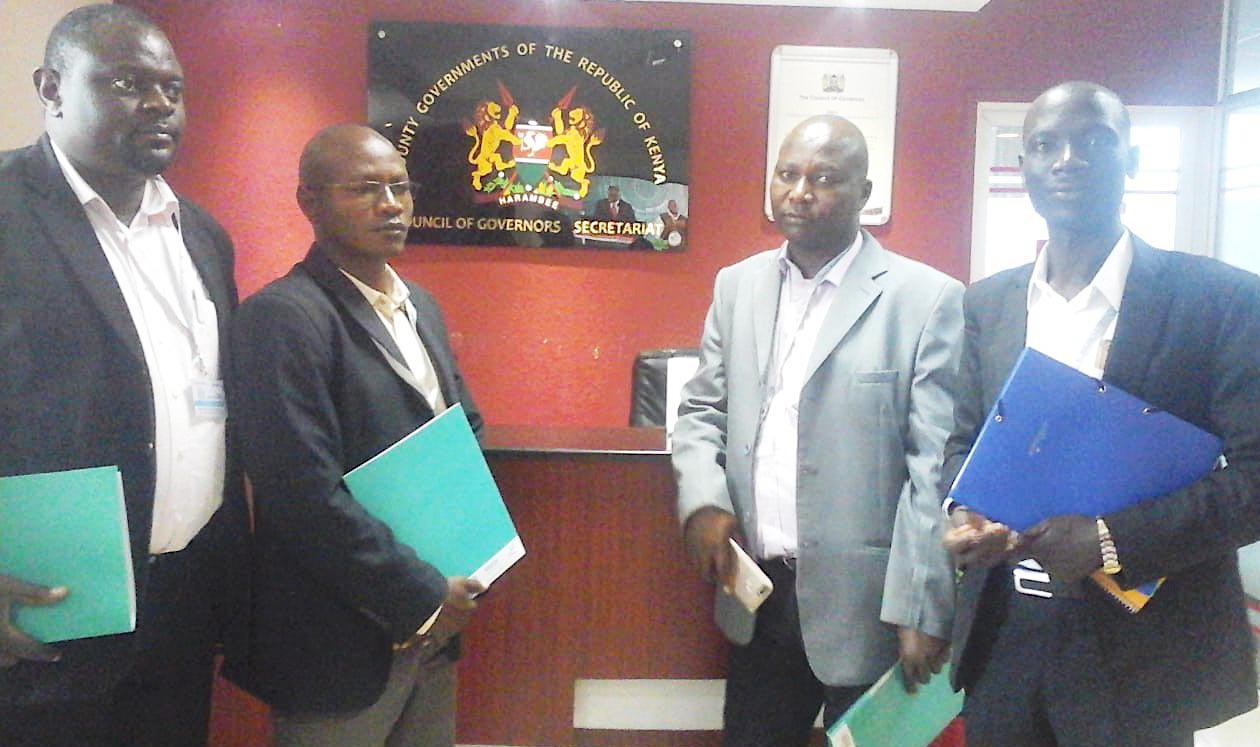
“The main reason why we don’t have a scheme of service is because the TVET sector has a number of Schemes of service, so most counties don’t know which one to implement. But we have been able to convince some counties that the 2012 scheme is the one that applies to VTCs,” stated Wainaina.
The predicaments for VTCs instructors and trainers started way back in the early ‘90s when the church under the National Coun-
Shedding light on TTCs, TVETS and Other Colleges
Association of Vocational Trainers-Kenya (AVTK) officials from L-R association member James Simiyu (Nairobi), Vice-Chairperson Saitoti Wainaina (Kajiado), Chairperson Absalom Nyambokora (Nyamira), and Secretary Martin Murono (Kisumu) in a group photo when they visited Councils of Governors (CoG) Secretariat offices in Nairobi in 2019.
VTCs: Harmonise pay to check disparity among civil servants
cil of Churches of Kenya (NCCK) decided to handover the Village Polytechnics (VPs) to government hence the government renaming them as Youth Polytechnics(YPs).
Due to low salary top-ups that the instructors were being paid by the government, the YPs started charging increased training fees to poor trainee so as to afford instructors’ salaries, which later led to a decrease in enrollment since most trainees couldn’t afford due to poverty a situation that later led to increased unemployment rates.
“Most instructors left the YPs, so the government resorted to promising the instructors PnP Employment which didn’t materialize till 2007/2010/2011,” added Wainaina.
According to Wainaina, in-
structors’ challenges deepened when the government in 2007 to 2011 ignored the instructors who had persevered through the hard times and employed new ones from outside the VTCs, but later employed the existing instructors in 2012 on a 3 year contract.
While employing the 2007 group on permanent and pensionable terms, the government was aiming at having better trained instructors that is, trainers having Diplomas, since most instructors in YPs by then had Certificates.
YPs’ instructors felt that in between 2007-2011, the government should have implemented capacity building programmes on the existing instructors, alongside hiring new Diploma holding instructors, instead of sidelining existing expe-
rienced instructors.
The 2011 and 2012 instructors were employed on contract in a Government of Kenya and World Bank programme called Economic Stimulus Programme (ESP) whereby the contracts were expiring in 2014, and by then devolution had started and YPs were now under counties.
According to the Transitional Authority (TA), counties were supposed to absorb all ESP Contract and the 2007 instructors into Permanent and Pensionable terms and promotions be effected where necessary.
Currently, there are instructors employed in 2007 who haven’t been promoted while in most counties, the 2011/2012 ESP Contract instructors were absorbed into Job
Group ‘H’ despite having served in the same job group on contract for almost 4years, implying that they are earning the same salary as newly employed instructors since the entry point for Diploma holder instructors is Job group ‘H’.
According to Scheme of Service for Youth Training Personnel which was approved by the Public Service Commission and issued by then Ministry of State for Public Service in May 2012, the scheme established six new designations at the level of Youth Polytechnic Instructors and 8 designations at the level of Youth Training Officers.
If it could be implemented by all County Governments, the new designations could have been Youth Polytechnic Instructor III, II and I; and Senior, Chief and Principal Youth Polytechnic Instructor under the level of Youth Polytechnic Instructors.
The other new designations under the level of Youth Training Officers could be Youth Training Officer; Senior, Chief and Principal Youth Training Officer; and Assistant, Senior Assistant, Deputy Director and Director Youth Training Officers.
VTCs were started in the early 1970s by the National Council of Churches of Kenya (NCCK) as Village Polytechnics to help solve the problem unemployment among the youths, and basically targeted those students and youths who couldn’t proceed to Secondary Schools or university either due to lack of fees (poverty) or low marks.
Welfare association donates computers to polytechnic
By Denis Lumiti
A community welfare group has donated eight computers to a county polytechnic in Shinyalu, Kakamega County.
The Bayokha Welfare Association handed the computers to Madala County Polytechnic.
They said the equipment would help the institution
to introduce an Information Communications and Technology course.
“We decided to source the computers from our members and we are confident that they will be of help to this institution. We urge other stakeholders to also chip in and help,” said the association’s ViceChairperson Margaret Mmuka.
Kenya’s Ambassador to the Great Lakes Region Am -
beyi Ligabo donated cash that would be used to pay the new ICT tutor for the initial months.
The leaders urged the Kakamega County Government to complete projects that they had initiated at the facility.
Principal Godfrey Mbiti hailed the group for the donation saying they would fast track the process of introducing an ICT course.
“The machines are in perfect condition and will help us a lot. Besides ICT, we are also intending to introduce motor vehicle technology and carpentry, joinery and plumbing courses,” he said.
He said polytechnic, which has 72 learners, currently offers courses in fashion design, tailoring and dress-making, hairdressing and beauty therapy and masonry.
The main reason why we don’t have a scheme of service is because the TVET sector has a number of Schemes of service, so most counties don’t know which one to implement. But we have been able to convince some counties that the 2012 scheme is the one that applies to VTCs. - Wainaina.
The Bayokha Welfare Association handed the computers to Madala County Polytechnic.
Green Cottage school performs well despite Covid challenges
Green Cottage Academy in Kiamumbi Kiambu County has done it again in terms of KCPE performance where they managed to score a mean of 363 with 14 students scoring over 400 marks.
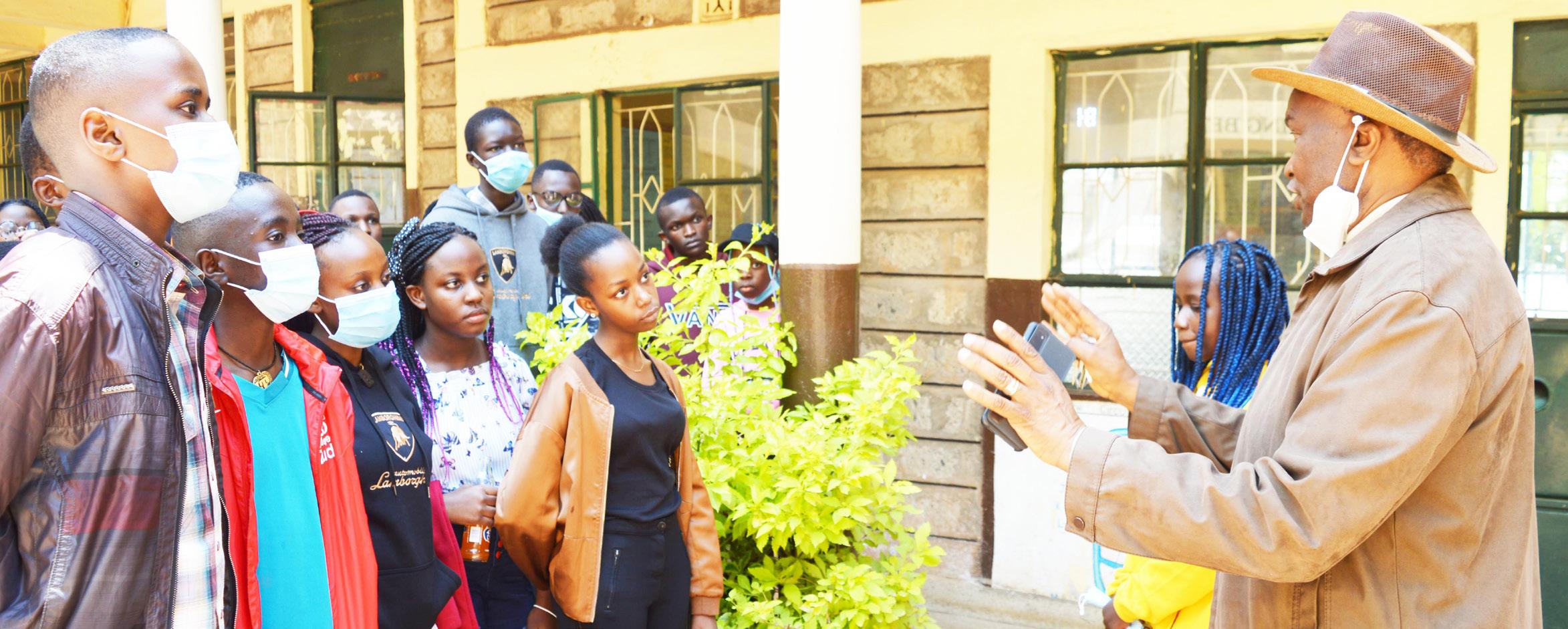
According to the school director Rev Peter Muraguri, the school was started in 1992 and has participated in KCPE exams since 2003 with increase their mean score throughout.
“The success of increased marks has been contributed by the partnership of teachers and parents and the discipline and obedience of the pupils while in school. The school is also founded on Christian values which have led to the pupils being disciplined and have good manners,” said Muraguri.
Muraguri says that the Cov-
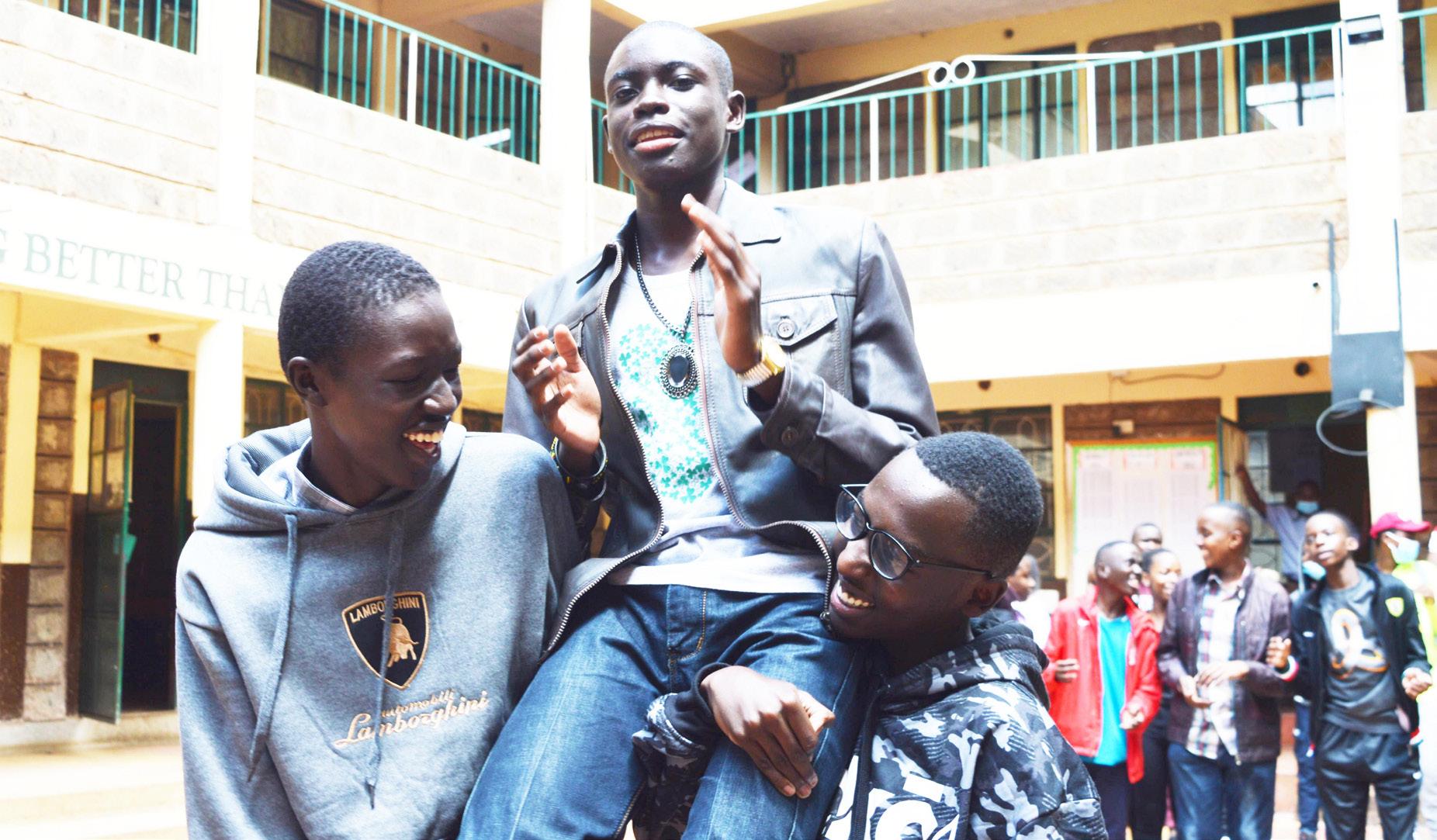
id-19 pandemic has been a challenge to the school since for a full year they have had to reach out to their pupils via virtual means which some were unable to cope with due to hard economic times.
He adds that the teachers have a cordial partnership with the parents so as to engage the candidates in preparations for the exams.
“All our candidates got over 300 marks which is a progress and we expect even in the next examinations our pupils will emerge victorious,” said Muraguri.
Wilson Mandela
the best candidate scored 420 marks. He said that his source of success was his supportive family, teachers and divine intervention and wants to join Alliance Boys High school and aspires to be a pilot.
Grace Nyambura Karuga, the best female candidate scored 405 marks. She hopes to join Loreto Limuru High School and aspires to be a psychiatrist in future.
“It was a challenging time for us because the pandemic hit us as we were preparing ourselves for the final exams. We had to adopt the online classes which were also a challenge but we managed,” said Nyambura.
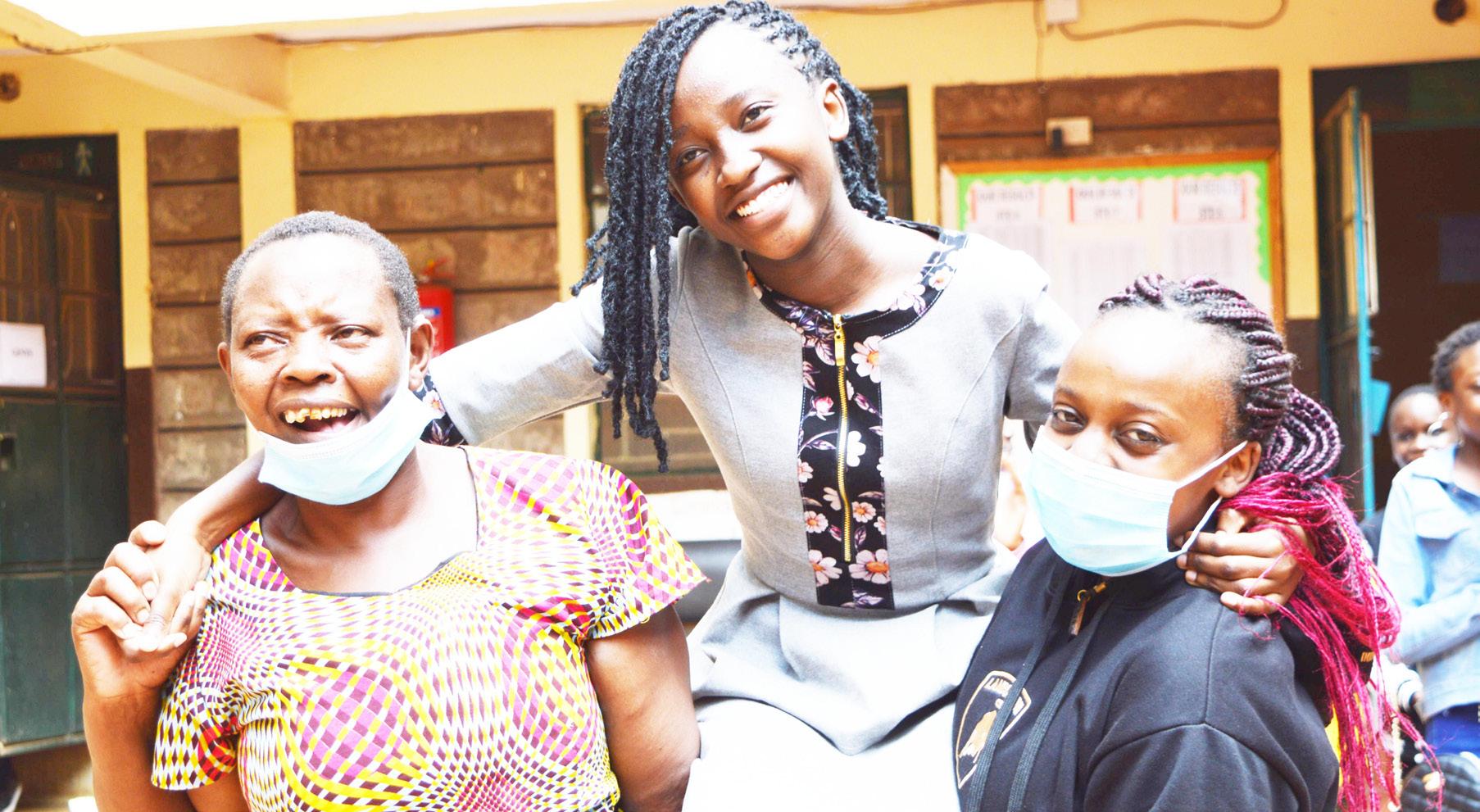
She said that Green Cottage Academy management and teachers were supportive and guided them in the right direction in their learning.
The school is situated in Kiamumbi along Kamiti road in Kiambu sub-county and is a progressive, multicultural, Christian value based day school.
They teach students the highest standard of British Curriculum education starting from Kindergarten to High School.
The students are committed to their studies and always work not only hard but also smart.
The teachers encourage students to stay motivated to the goal that is education.
EDUCATION NEWS 27 JUNE 1 - JUNE14, 2021
Felix Wanderi
Wilson Mandera Green Cottage Academy Kiamumbi who scored 420 marks and aspires to be a pilot celebrates with the school fraternity. He wants to join Alliance Boys High School.
Peter Muraguri director Green Cottage Academy Kiamumbi gives a word of advice to the students who concluded their KCPE exams and got their results. Photo/Felix Wanderi
Grace Nyambura, Green Cottage Academy Kiamumbi scored 406 marks wants to join Pangani Girls High School wants to be a psychiatrist in future. Photo/Felix Wanderi.
“
All our candidates got over 300 marks which is a progress and we expect even in the next examinations our pupils will emerge victorious - Muraguri.
ADVERTISING FEATURE
Nyarach excels, sends 67 to university
By Norah Musega
Nyarach Mixed Secondary School achieved a mean of 5.3 despite challenges caused by the Coronavirus in the education sector last year.
Sixty seven candidates managed to attain direct university entry grades in the 2020 Kenya Certificate of Secondary Eduction (KCSE) exams.
The school scored 4 b plus grades,13 b plain, 22 b minus and 27 and C plus.
The top candidate who qualified for direct university entry was Nicholas Ochieng who because of lack of fees was about to enroll for welding apprenticeship at a local shop after sitting for his primary schools exam in 2016.
Ochieng’ was on enrolled at the school by his aunt after his grandmother failed to raise fees for him to join Onjiko Boys, an extra county school in Kisumu county when he attained 340 marks in KCPE.
His aunt Regina Atieno told education news that it hasn’t been easy to see the boy through his secondary education but she worked hard to help him secure his future through education.
She applauded the schools administration for the support they granted
Ochieng’ during his four years at the institution but asked the government to put more efforts to upgrade its facilities.
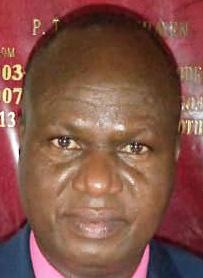
“I urge the government through the Ministry of Education to upgrade Nyarach into a boarding school since it has a catchment area of beyond Rongo constituency,” said Atieno.
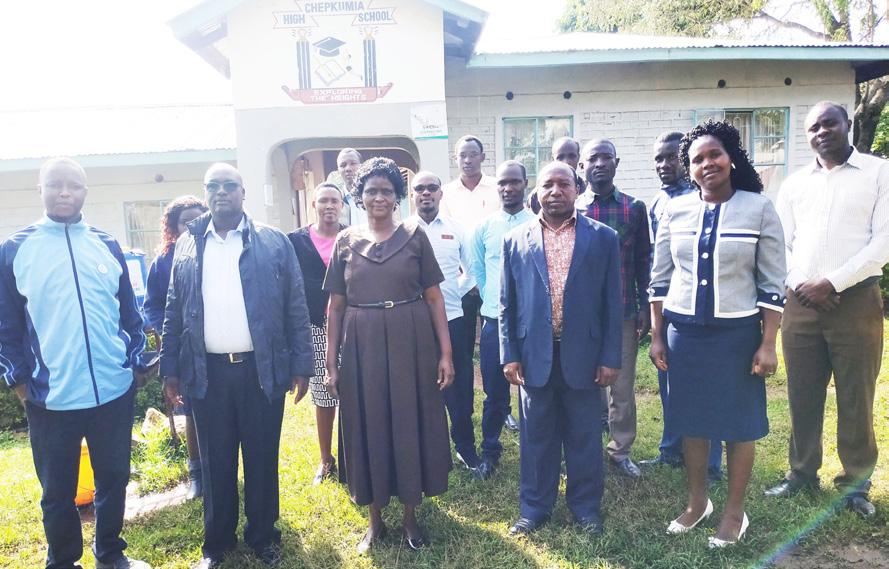
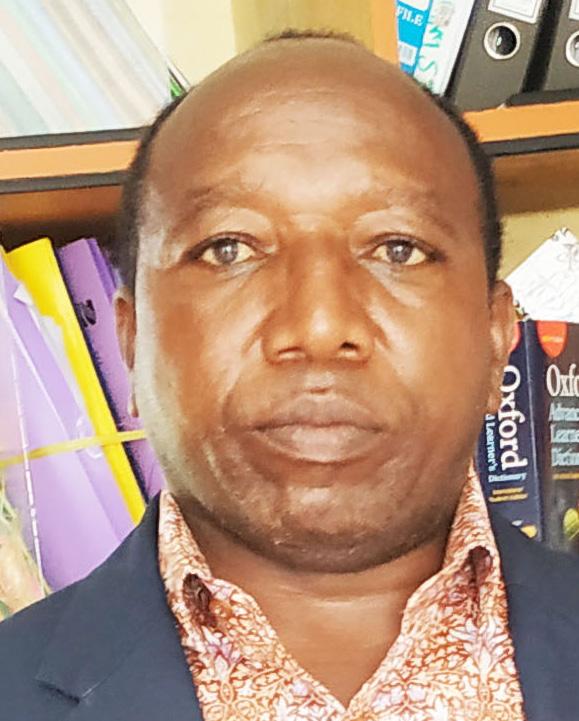
She said some parents opt to rent houses around the school for their children to learn their, which shows the faith they have on the teachers and the administration of Nyarach mixed.
Founded in 2002, Nyarach has quickly made strides to join the league of top performing schools in Migori County with students
attaining university entry grades increasing yearly.
The school guided by the motto: With God for Excellence, registered its first KCSE candidates in 2005 and has continues to attract a relatively large number of learners in the county due to its exemplary performance and values.
Located along KisumuMigori road, a few kilometres before Rongo town, the school provides a serene environment suitable for concentration in academics.
Speaking to Education News in his office after Education Cabinet Secretary Prof. George Magoha, released the results, Principal Joseph Opiyo praised the efforts put in by teachers and the Board of Management which yielded the good results.
Opiyo noted that the school administration is now focused towards ensuring grade D and below is eliminated and that their learners are able to attain grades that will enable them achieve their career dreams.
“We have teachers who are working tirelessly to ensure our learners are well equipped before they sit for their national exams,” said Opiyo.
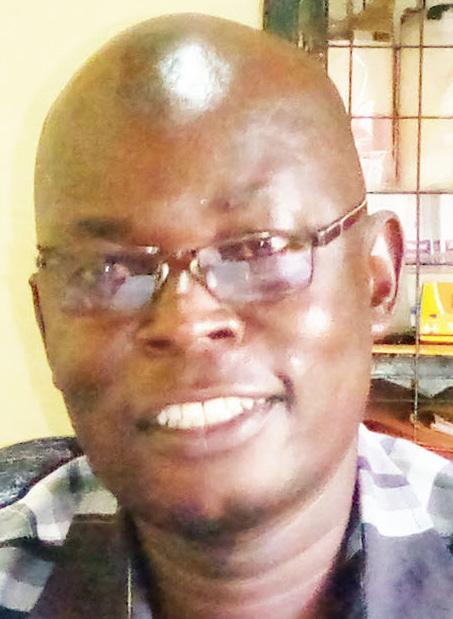
He added that they are focused on developing their confidence and concentration
in academic activities despite the challenges they have to help them achieve their dreams.
He said the administration is currently on a mission to ensure they are able to provide a more suitable learning environment for the learners which begins with embracing nature.
The school has a forest which enhances open air group discussions for the students and consultations with the teachers when need arises.
“We have students commuting on a daily basis to Nyarach Mixed Secondary School in search of quality education and some parents have also opted to rent houses for their children around the school because of faith they have in our teachers and administration towards empowering their child with quality education,” noted Opiyo.
With a student population of 1413 and a teaching staff of 43, among them 29 employed by the Teachers Service Commission, the administration sought the as-
sistance of the board to employ fourteen more teachers to meet the teacher-student ratio.
And with only one science laboratory and library, the school is in dire need of more facilities to help accommodate their learners.
The Deputy Principal Administration Harington Magambo noted the effort of ensuring the students arrive in the morning with teachers already in has helped in utilizing every opportunity for academics.
They have also encouraged parents and the students to make sacrifices towards attaining good grades.
“The church, BoM, teachers and parents have been working together towards uplifting the mean score of the school and also in return ensuring that our students are able to attain the grades of their dreams,” said Magambo.
He congratulated the candidates for the work and efforts they made through sacrifices to move to the next level of education.
K.C.S.E ANALYSIS TABLE
Chepkumia is an epitome of success
Limo said he introduced a serious revision programme that was to be followed immediately after syllabus coverage.
All students began their lessons by 4am and sometimes studied to as late as 11pm because all KCSE candidates were boarders.
By Leonard Angatia
Chepkumia Secondary School pulled a surprise in the 2020 KCSE exams by achieving a remarkable mean score of 7.9014 up from 4.4659 of 2019, a positive deviation of 3.5 points.
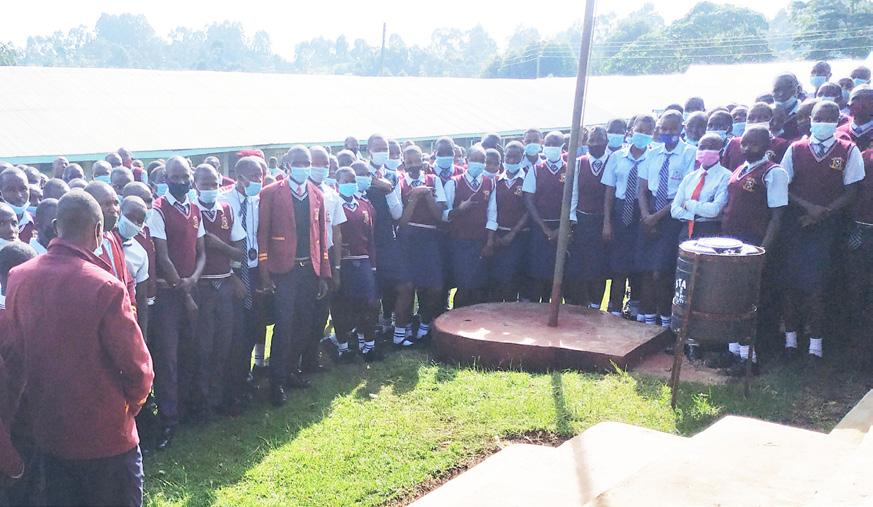
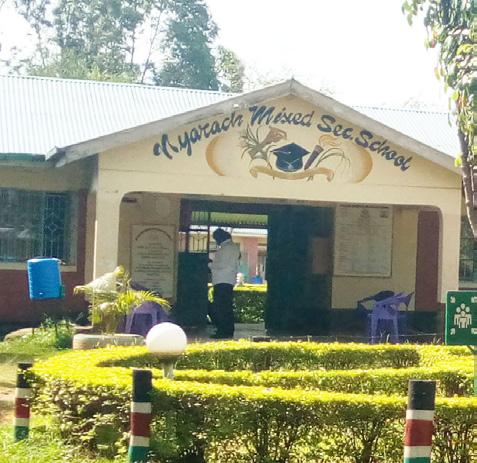
Out of the registered 71 candidates who sat the exam, 65 of them gained university entry grades at a transition of 92%.
Only six students scored C plain.A feat school Principal Charles Limo attributed to good behaviour by the candidates since they joined form one.
“We prepare students to make a positive contribution to the development of the society and acquire the values of national patriotism, self- respect, self- reliance, cooperation, adaptability, a sense of purpose and selfdiscipline,” narrated Limo.
The school improved tremendously by attaining position 95 countrywide, displacing top performing schools that apparently failed to defend their positions.
It also improved its ranking in the county from 45 in 2019 to position five to be among the most improved schools both nationally and
in the county.
Majority of students come from the neighbouring communities meaning its purely a local school.
Among reasons given for the good performance was the introduction of term exams set by KNEC specialists in January last year.
The school helped candidates to revise thoroughly and familiarise with the mode of KCSE setting.
The school however faced a myriad of challenges among them inadequate learning infrastructure leading to students using makeshift structures like laboratories and dining hall.
The school doesn’t also have a reliable water supply forcing students to fetch unsafe water from the river.
The issue of understaffing is another problem and the fact that even those teaching at the school don’t have adequate accommodation.
The school is headed by Limo who has been incharge for just one year.
Chepkumia is a mixed boarding/day, sub county level secondary school, located in Nandi Central SubCounty, Nandi County.
With an enrollment of 420 students 13 TSC teachers and 8 employed on board of management. It is registered as a double streamed institution.
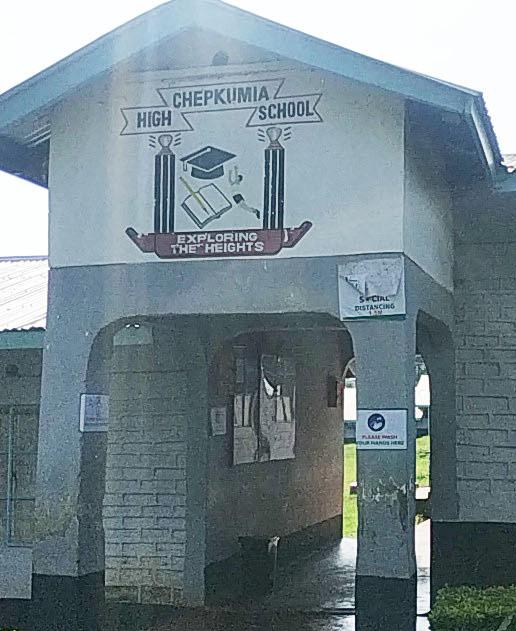
EDUCATION NEWS 28 JUNE 1 - JUNE 14, 2021
Harrington Magambo, Deputy Principal.
School Administration Block and a section of classrooms.
ENTRY A A- B+ B B- C+ C C- D+ D D- E MEAN YEAR 216 2 5 15 14 32 48 42 46 11 1 4.833 2018 242 1 4 11 17 25 34 46 49 40 15 5.128 2019 284 1 4 13 22 27 56 59 57 30 13 1 5.332 2020
Joseph Opiyo, Principal.
K.C.S.E PERFOMANCE ANALYSIS
Charles Kipkemboi Limo, Principal. Teaching Staff.
Administration block. Students during the school assembly.
ON TOP SCHOOLS
FOCUS
New curriculum for adult education out soon
By Our Reporter
The Directorate of Adult and Continuing Education in collaboration with the Kenya Institute of Curriculum Development (KICD) have embarked on curriculum reforms aimed at coming up with a new curriculum for the youth and adult learners in the light of Competency-Based Curriculum (CBC) in the formal sector to address the needs of the adult and youth learners.
The curriculum will also help expand access and improve the quality of adult learning since it will be based on learners’ needs and focuses on skills development.
The curriculum will be developed within the framework of lifelong learning which emphasizes on continuing
learning for life.
The directorate has developed language primers in 16 local languages that are Digo, Giryama, Kidawida, Pokomo, Kikuyu, Meru, Dholuo, Suba, Ekegusii, Kalenjin, Luhyia, Borana, Somali, Kamba, Turkana, and Samburu; which are books developed within the environment of particular community that shares the same language, culture, lifestyle and values.
According to the outgoing Adult and Continuing Education (ACE) Director Kinara Nyabwari, there is need to review and develop assessment tool appropriate to ACE programme, liaise with Kenya Institute of Curriculum Development (KICD) for an alternative curriculum for adult learners in order to phase
Parliament moves to allow more trainers to offer law training
By Roy Hezron
Members of Parliament now hold the hopes of thousands of law students as to whether they will receive reprieve from the monopoly of Kenya School of Law (KSL) in offering post-graduate training. This is after the Cabinet on May 11, 2021 approved the government sponsored bills-
credit legal education providers for the purpose of licensing of the ATP.
This implies that if the Bills get the legislators approval, both public and private universities which will meet the set guidelines and requirements put in place by the Council will be accredited to allow them offer the postgraduate training programme,
sion to a course of study at the School unless the person has met the admission requirements prescribed by the Council of Legal Education.”
The new Bill now seeks to delete all the sections that mandate KSL to determine admission criteria for instance in Section 16 and Second schedule of the Kenya School of Law Act 2012; and places the role on CLE through the Kenya School of Law (Amendment) Bill, 2020.
Currently, the KSL sets the admission requirement to the ATP, a situation that has put KSL and Law students seeking admission for post-graduate training in continuous court battles.
The Legal Education (Amendment) Bill, 2020 and Kenya School of Law (Amendment) Bill, 2020 which basically are meant to allow other institutions to offer the post-training programme known as Advocate Training Programme (ATP) and also to review the admission requirements for future lawyers and law practitioners.
The bill- The Legal Education (Amendment) Bill, 2020; want to change Section 8 of the Legal Education Act 2012 in order to expand the mandate of the Council of Legal Education (CLE).
Apart from the current mandate of the Council as stipulated in the mother Act, the amendments seeks to further mandate the Council to ac-
the ATP which is currently being offered only by the Kenya School of Law (KSL).
In addition, the bill seek to amend Section 8 (3) of the Legal Education Act 2012 by proposing to insert the word “all” immediately before the word “legal” appearing in paragraph (a) so that the new amended paragraph to read: “The Council shall, make Regulations in respect of requirements for the admission of persons seeking to enroll in all legal education programmes.”
This means that the CLE will prescribe admission requirements to all law programmes including ATP, since Section 16 of the Kenya School of Law Act 2012 will be amended to read: “a person shall not qualify for admis-
In 2019, such efforts by the National Assembly through the then Leader of Majority Aden Nduale to try and cure the stalemate through Statute Law (Miscellaneous Amendment) Bill 2019 failed to be passed by legislators in the National Assembly.
The miscellaneous amendments were meant to amend among others the Legal Education Act 2012 and Kenya School of Law Act 2012 with an aim of ending the KSL monopoly of the training in Kenya by amending Section 4 of the KSL Act to allow other institutions to offer the programme.
If the amendment could have been passed by then, CLE could have enjoyed the mandate currently being enjoyed by KSL of administering pre-bar examination which is an examination offered to LLB graduates from foreign universities.
out Non-Formal Education (NFE) and continue with continuing education in tandem with lifelong learning.
In addition, there is also need to explore modalities of how the Government can provide budgetary provisions for teaching and learning materials for ACE, in view of unpopular cost- sharing and provision of capitation grants; provision of infrastructure funding for ACE programme as per the Basic Education regulation, and provision of capitation funds for school age going children attending ACE centres especially in urban slums and ASAL regions.
The Directorate of ACE became a full-fledged directorate in 2009 upon joining the Ministry of Education. Since inception in 1979 the then Department of Adult Education had been housed in almost 8 different ministries
which has affected the Directorate in terms of prioritization in resource allocation and visibility on the ground.
These Ministries are Ministry of Labour and Social Services, April 1979 to February 1980, Ministry of Cooperatives, Housing and Social Services, March 1980 to September 1980; and Ministry of Culture and Social Services, October 1980 to December 1997.
Others include Ministry of Home Affairs, National Heritage, Culture and Social Services, January 1998 to September 1999; Ministry of Labour and Human Resource Development, September 1999 to July 2003; Ministry of Gender, Sports, Culture and Social Services, August 2003 to March 2008; and Ministry of Education, March 2008 to date.
Unemployed P1 teachers to upgrade to Diploma
By Staff Reporter
Teachers with P1 Certificates and who have not joined the teaching service will now have an opportunity to upgrade to the new Diploma in Primary Teacher Education for nine months before being employed.
The Ministry of Education is planning to advertise for the upgrade chances any time between June and July this year where interested persons will be allowed to apply, shortlist the applicants and place them in various government Teacher Training Colleges for the upgrade programme which is expected to kick off in September this year.
Training Colleges and other Stakeholders held in Machakos TTC early May this year.
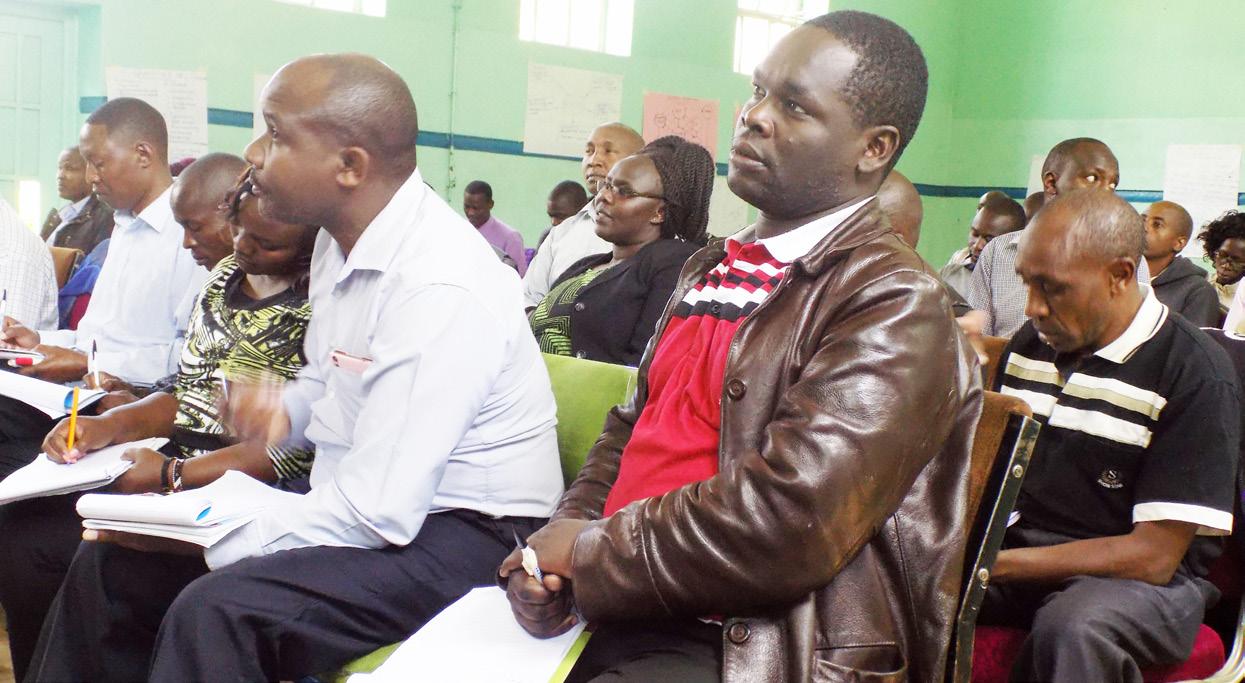
Only 1400 applicants qualified to join Diploma in Primary Teacher Education (DPTE) and Early Childhood Development Education (DECDE) in June this year, and who were distributed to six various Public Teacher Training Colleges. They were distributed to Machakos TTC in Machakos, Thogoto TTC in Kiambu, Shanzu TTC in Mombasa, Egoji TTC in Meru, Baringo TTC in Baringo, and Migori TTC in Migori and they are expected to join in June this year.
The remaining colleges will wait longer since it was agreed that they wait for
The Kenya Institute of Curriculum Development (KICD) is currently working on the curriculum design for the upgrade programme, as it emerged that the upgrade will only focus on equipping the teachers with Competency-Based Curriculum (CBC) skills since they have already acquired the basic teaching pedagogies.
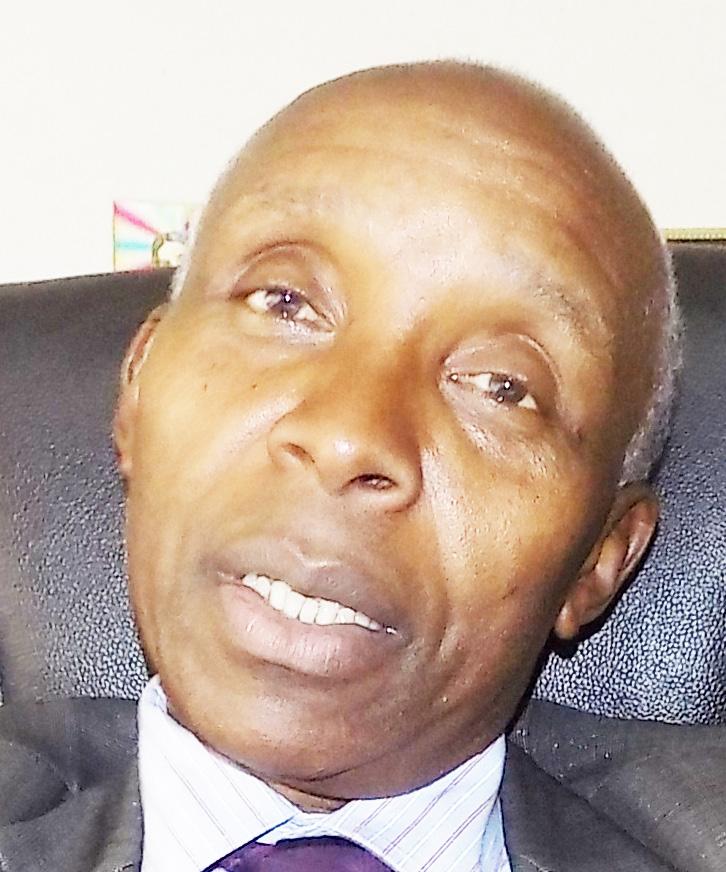
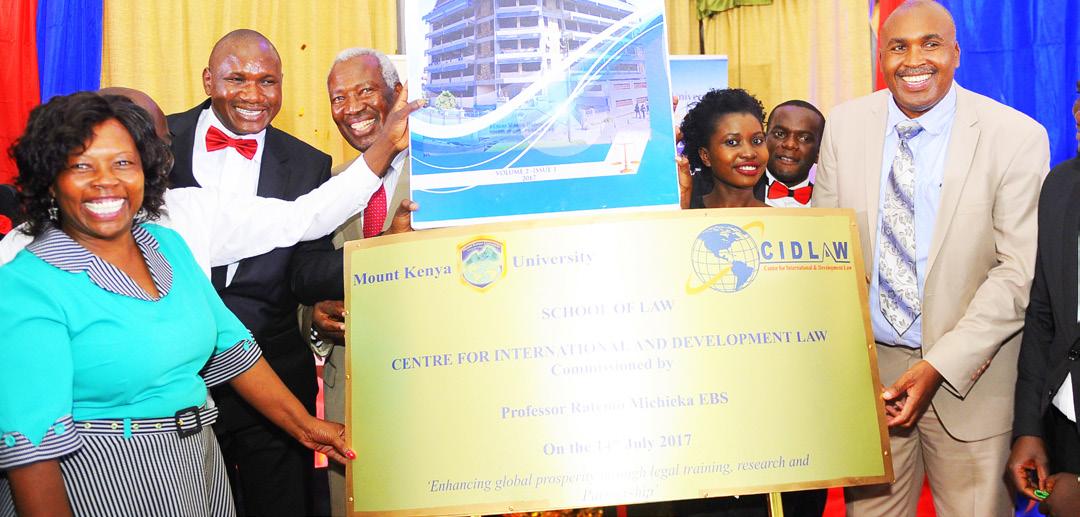
The resolution was reached after it emerged that no teacher in future will be employed by the Teachers Service Commission (TSC) to join the teaching service without a Diploma.
This emerged during a high level consultative meeting which involved top Ministry officials, Principals of Teacher
those who will be shortlisted to join the upgrade programme to Diploma in September this year.
The government targeted to place about 7, 000 students in about 30 Public TTCs across the Country.
According to sources privy to the meeting in Machakos where shortlisting was being carried out, the stakeholders resolved to strictly stick on the 5 C’s Principle that is a Kenya Certificate of Secondary Education (KCSE) mean grade of C (plain) with a C (plain) in English, Kiswahili, Mathematics, and any Humanities and Science subjects for those who were to be placed for Diploma in Primary Teacher Education.
EDUCATION NEWS 29 JUNE 1 - JUNE 14, 2021
Mount Kenya University Chairman and the founder, Prof Simon Gicharu (right) joined by students studying law during unveiling of the MKU Journal and Centre for International and Development law.
Kinara Nyabwari, Outgoing Director, Directorate of Adult and Continuing Education, Ministry of Education. File/Photo
Teachers during a previous training workshop at the Menengai High School, Nakuru. P1 teachers will upgrade to Diploma. File/Photo
I want to be a gynecologist, says top KCPE girl
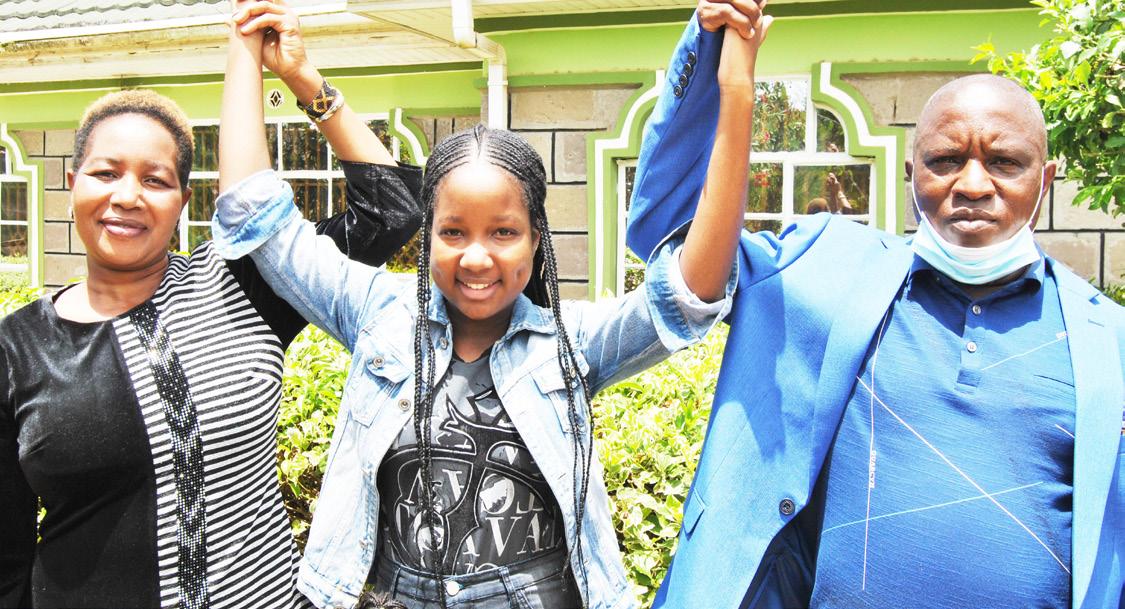 By Ben Leshau
By Ben Leshau
Sophy Mutheu Benson, 13, emerged the top pupil in Narok County in this year’s Kenya Certificate of Primary Education (KCPE) results scoring 416 marks.
She wants to become a gynecologist later in life and help eradicate Female Genital Mutilation (FGM), teenage pregnancies and early marriages rampant in the county.
Sophy was a day scholar at Catholic-sponsored St Peter’s Academy in the slums of Majengo on the outskirts of Narok town.
The teenager told journalists at her home in Lenana estate that she is not new as far as academic excellence is concerned saying that she has been topping her class since she stepped in standard one eight years ago.
Sophy who wants to join Alli-
Sophy Mutheu (centre) the top Narok KCPE candidate with her parents.
ance Girls High School aspires to be an accomplished gynecologist. Her parents Benson Nguthu and Lillian Benson could not hide their joy over their daughter’s academic performance saying they were not
Unions demand for withdrawal of teachers from banditry-prone zones
By Malachi Motano
The on-going government security operation intending to flash out the infamous armed bandits in Baringo County leaves Teachers’ unions and security officials in collision over forcing teachers to work in the regions According to The Kenya National Union of Teachers (KNUT) and the Kenya Post Primary Education Teachers (KUPPET), TSC should withdraw all teachers from areas that are not secure.
long despite the region hosting heavily armed security officers including KDF, Rapid Deployment Unit (RDU), General Service Unit (GSU), and even the Kenya Forest Service wardens.
However, Cheptarus announced that they will lobby teachers against teaching in areas in the county that are not safe if their security is not guaranteed.
surprised as she has been performing well since her childhood.
Her mother who is a teacher at nearby Masikonde Secondary School described her daughter as a self-driven individual.
Retired polytechnic teachers demand their retirement benefits
ence and Technology over the years before devolution in 2013.
There trouble deepened in 2007 when the government employed other instructors through PSC under new terms in the then Ministry of Youth Affairs to work at the same polytechnics.
This recruitment forced some of them to early retirement without any payment.
The problem escalated with the constitutional creation of devolution which axed them to county governments.
The new county governments rejected to take responsibilities of their earlier employment demands with national government.
By Kage Njoroge
Former tutors at Village Youth Polytechnics have accused the national government of violating their employment rights by sending them home without paying retirement benefits.
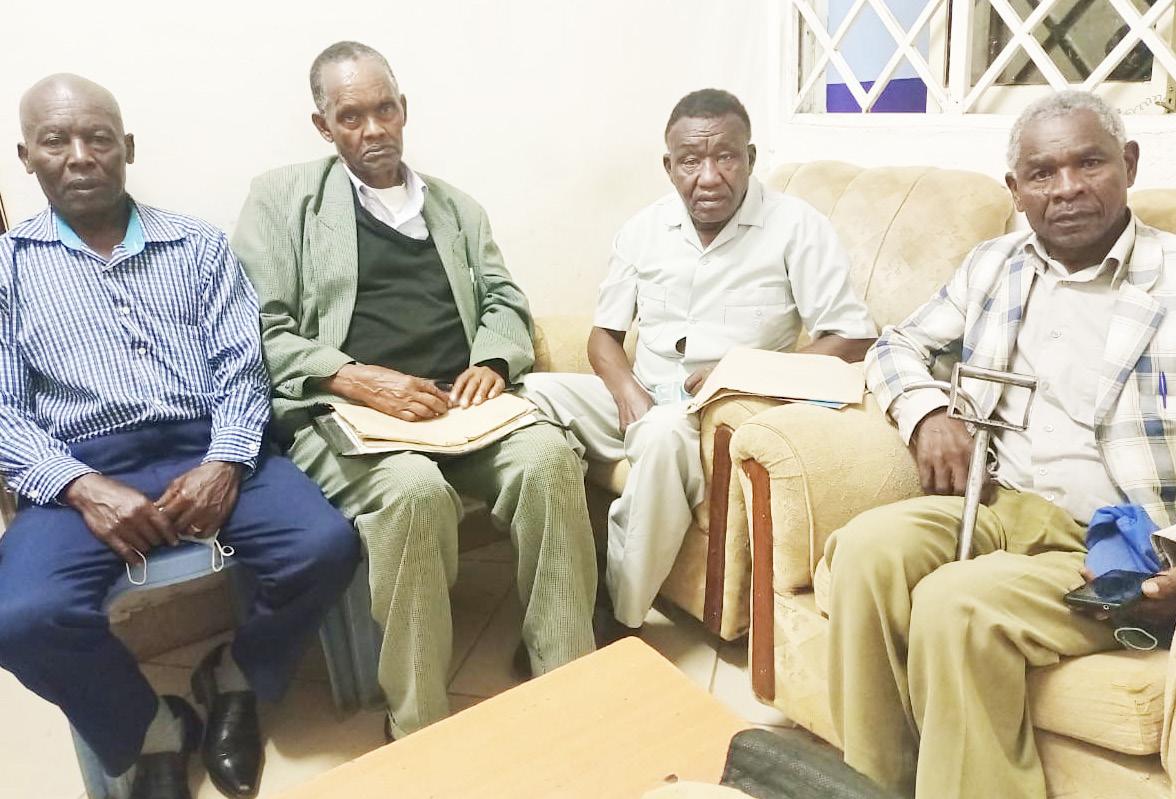
These instructors are complaining that the government failed to recognise them as it’s employees for the time they were in public service.
The National Chairman of Kenya Youth Polytechnics (KYPI) instructors Noah Mwangi Karoki explained that they are wallowing in poverty after spending their active prime years, working in these training institutions.
He pointed out that they were forced to retire without pension and related benefits from their years of employment. This is total violation
of labour rights enshrined in the 2010 constitution.
Karoki said the government claimed they were employed by the respective communities managing the youth polytechnics, but not the Public Service Commission (PSC).
However, Karoki tabled documents of employment and policies which managed them and sighed by officers of national government.
He said the government claims it was merely providing grants to support their perks without responsibilities of their full employment.
Karoki further provided official headed documents which proves that they government workers.
The chairman said they were hired initially under the Ministry of Social Services and tossed through various ministries.
These include Ministries of Labour, Youth Affairs, Education, Sci-
Karoki points that they have been fighting for their rightful dues and were left to move from public office to the other without anyone willing to take responsibility.
The over 400 instructors now in retirement drawn across the country are petitioning the national government to recognize them and pay their dues in respect of labour laws and rights of public servants.
Karoki displayed a letter they have written to the chairman of Parliamentary Budget Committee Kanini Kega demanding him to factor their dues in the 2021/2022 budgetary estimates.
The elderly retirees have no funds to seek for redress in courts. They are asking for human rights organizations to intervene and support them, saying they have strong employment documents to provide credible evidence against the government to win the case.
Baringo KNUT Branch Executive Joshua Cheptarus said that education is not a matter of life and death and the union is not ready to lose members to the deadly bullets of bandits.
“It is unfortunate that at the moment, the resumption of education has not gone ahead in ten schools which include Embosos, Chemoroing’ion, Arabal, Kapndasum, Chebinyiny, Sossionte, and Kasiela primary schools. Also, Kiserian, Sinoni, and Nyimbei primary and secondary schools in Baringo South sub-county,” he says.
He says the learners and teachers afraid of going to school for learning due to the novel bandit attacks, raiding
In his support, KUPPET’s Baring branch chairperson David Kibet and the treasurer Fanuel Kipsoi also implored the Teachers Service Commission (TSC) to consider withdrawing teachers as soon as possible from these areas infested with bandits.
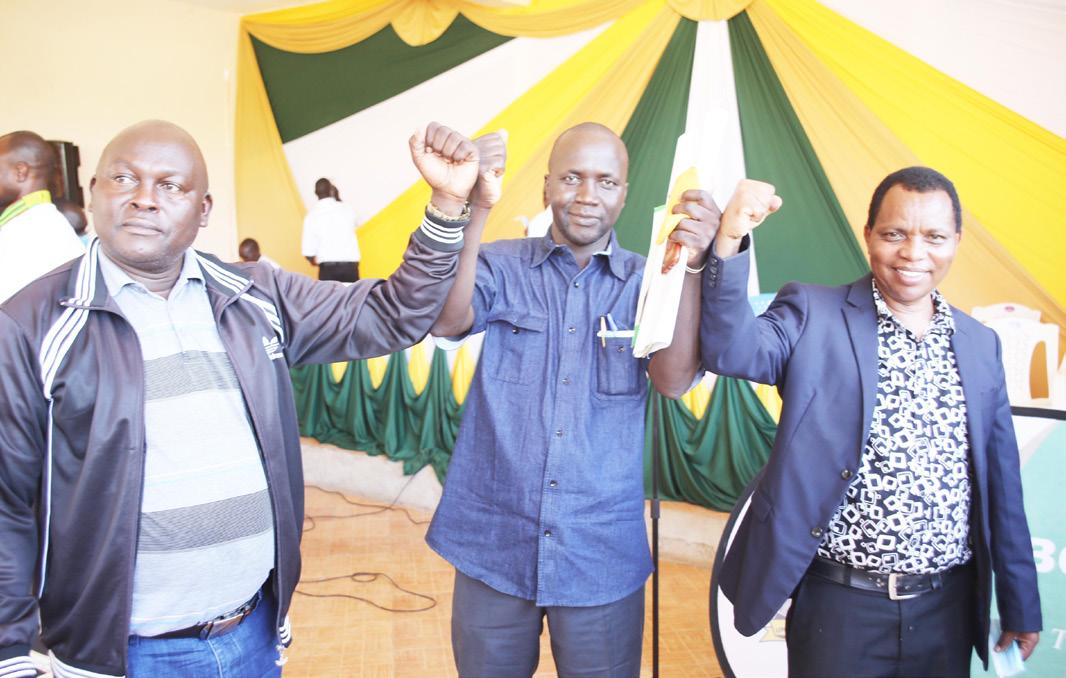
“There is nothing to discuss here. If the government cannot intervene to finish the problem of banditry, then we cannot whosoever allow our teachers to work there,” said the treasurer, Mr. Kipsoi.
Baringo County Commissioner Henry Wafula urged teachers to teach without fearing for their lives.
“Because as it is now we are committed as a government to provide security to individual teachers, learners, and our schools in the insecurity-prone areas,” said the Baringo County Commissioner.
of livestock, and the on-going government security operation intending to flash out the infamous armed bandits.
Recently, many locals whereby learners were among them, fled for their lives after armed bandits stormed the Chemorong’ion area, in Baringo South at around 5 pm and got away with 74 heads of cattle.
In March this year, a 65-year old man by the name of Gabriel Lekichep was shot to death while a woman, one Jackeline Lekidogo of age 36 was grievously wounded alongside her two and a half-year-old child.
A soldier belonging to Kenya Defense Forces (KDF) was also shot dead at close range during a firing exchange some meters away from their Mukutani camp causing more fear among residents.
The trend has continued for
Rift Valley Regional Commissioner George Natembeya assured residents that there is hope, saying that everything is under control.
Commissioner Natembeya promised to wage a tough war against the bandits until they are all eliminated.
“This time around we cannot leave any stone unturned,” he said.
Following a peace meeting at Marigat Hotel, where Pokot leaders led by Tiaty MP William Kamket and West Pokot Governor Professor John Lonyangapuo urged the government to lift the operation and give 30 days for them to engage locals and help end banditry in the region.
Among those who were present were Governor Stanley Kiptis, Baringo Women representative, and Baringo Senator Gideon Moi.
EDUCATION NEWS 30 JUNE 1 - JUNE 14, 2021
RIFT
NAROK
VALLEY
BARINGO
From right KNUT Baringo branch chairman Silas Rutto, Kuppet treasurer Fanuel Kipsoi and KNUT branch Executive Joshua Cheptarus in solidarity. Photo/Talarus Chesang.
Noah Karoki (seated left) National Chairman Kenya Polytehcnics instructors with members James Mutia, James Kamau and Hildad Mwangi Karanja. Photo/Kage Njoroge
FOCUS ON TOP SCHOOLS
Joy as Sing’ore Girls School posts excellent KCSE 2020 results
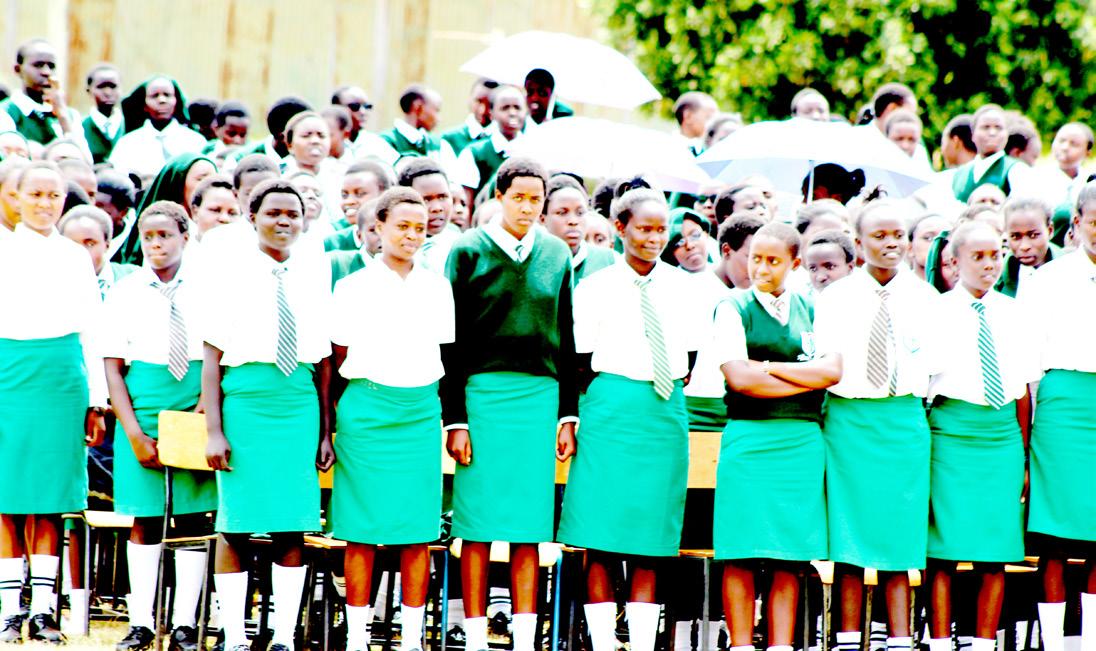
parents and the Ministry of Education, TSC from the headquarters to the zonal level have greatly supported the school,” the Principal noted.
She said that they had 1A plain, 1A-, 15 B+, 34B plain, 61B-, 83C+, 95 C plain, 47C-, 11D+ and 2 D plain and 1 D- with an entry of 351 students, sending 195 of its students who had C+ and above marks to university under the government sponsored programme. The rest will join tertiary institutions across the country.
ensure that we get a mean of 7.5 in 2021 results and increase the transition to university,” the Chief Principal said.
She disclosed that she has good support of the Board of Management (BOM) led by Dr Anita Kimwatan who has been assisting the school in running and approving different projects including infrastructure and motivation of teachers.
Mrs Khabongo exuded confidence that the school will attain its target mean as well as produce quality grades in future exams.
By Dennis Bett
Sing’ore Girls High School located in Elgeyo Marakwet County recently posted exemplary performance in the just released KCSE 2020 results.
It posted a mean of 6.85 which is a great improve¬ment compared to 2019 where they had 5.8.
The school has been known to produce academic giants and personalities running different fields and careers across the globe.
Immediately the results were released by Education Cabinet Secretary Prof George Magoha, the school students, teachers and
other education stakeholders held celebrations for the excellent results at the school’s premises with strict observance of Ministry of Health Covid-19 protocols.
Speaking to the press at the school, the Chief Principal Mrs Linnet Khabongo attributed the results to dedicated teaching staff and students as well as support staff that ensured that the programmes set by the school were run smoothly.
She pointed out that the good results were also a result of tradition of the school over the past years as the school has been churning out the best students with quality grades.
“We have very supportive
She said they completed the syllabus in time which gave the candidates ample time to revise, adding that there was a thorough revision through quality examination materials and students were grouped in clusters and were assigned to different teachers who helped them on their weak areas.
She added that through the help of the Catholic Diocese of Eldoret, the girls have been receiving spiritual nourishment as well as social and moral support.
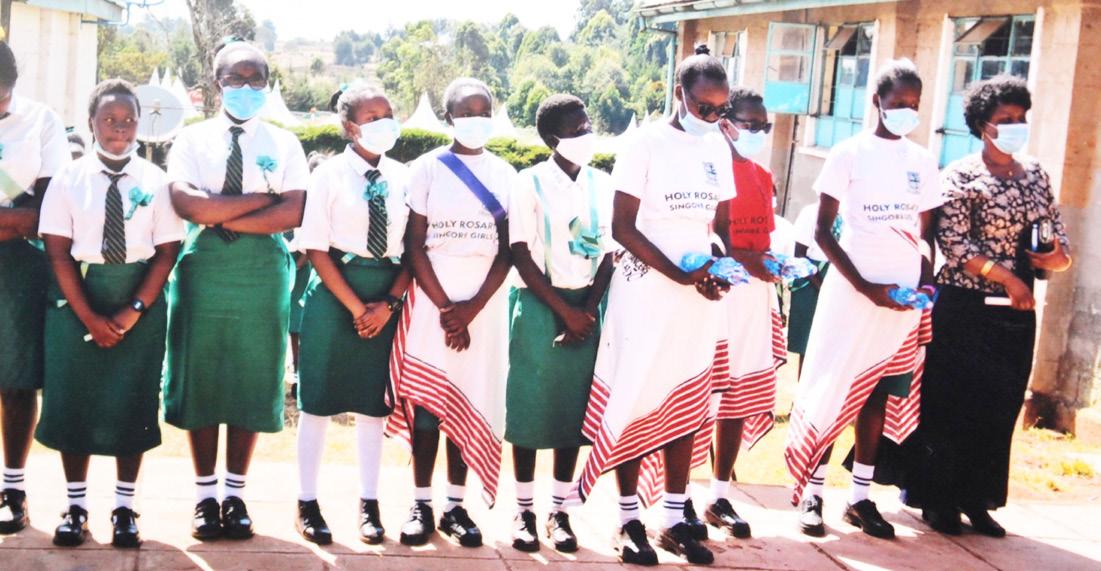
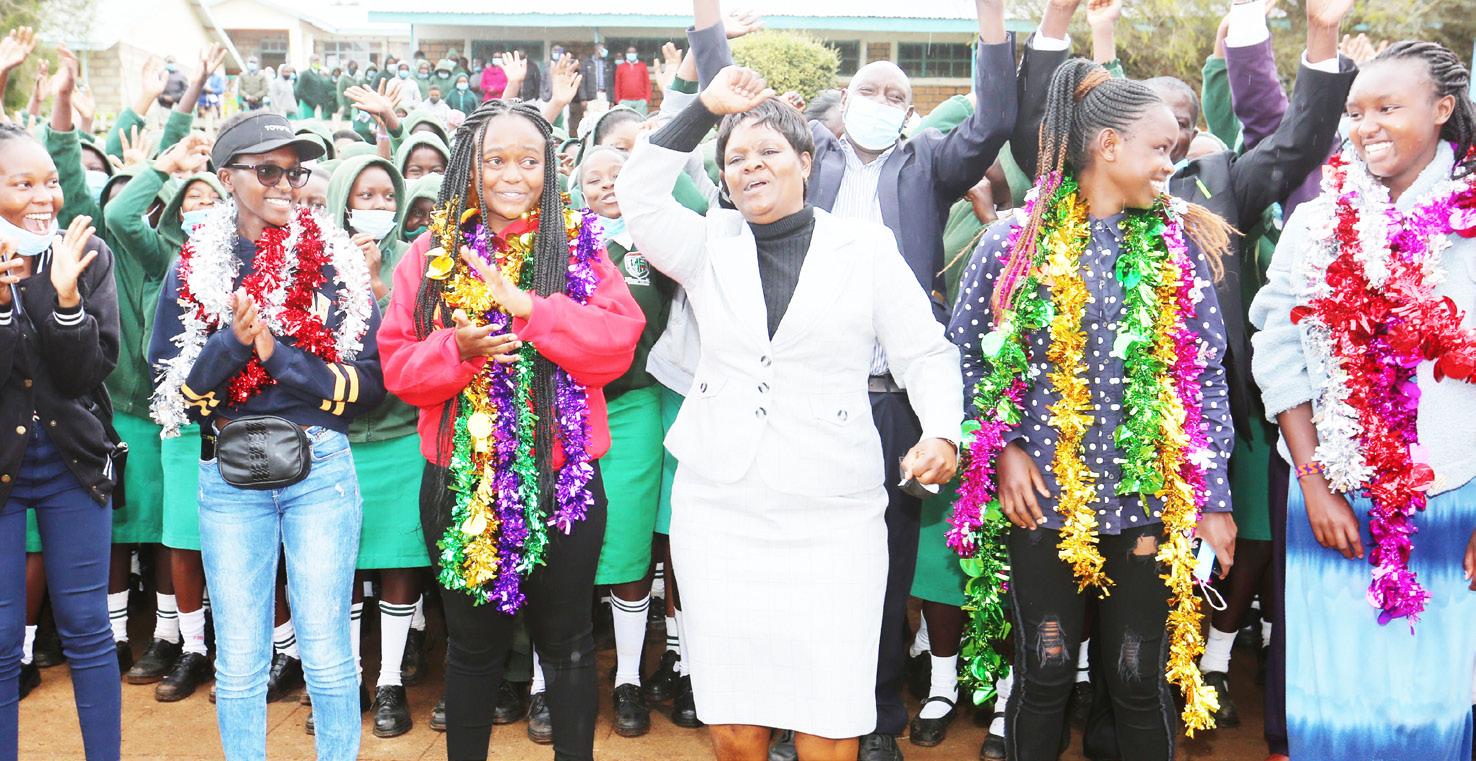
“They say their prayers after every undertaking We are happy for the great improvement the girls made in the current examinations. There was a positive deviation of +1.02 which is a significant improvement. We have already made plans which will
96% university transition
The Principal exuded confidence that the school will attain its target mean as well as produce quality grades.

She revealed that due to the popularity of the school in terms of academic performance and cocurricular activities, this has led to high demand for admission with the current enrolment standing at 1,746 students with 2022 candi-

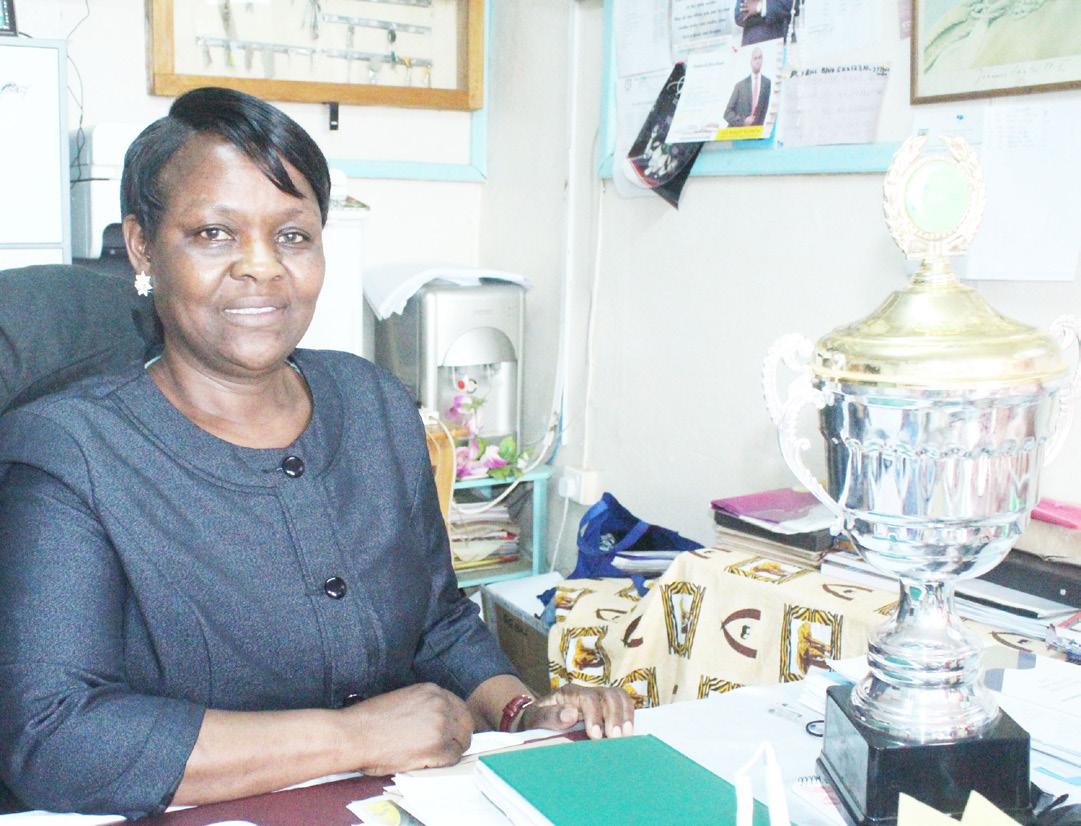
dates numbering 420.
She added that the school is working on infrastructural development to ease congestion with construction of a science complex to house science and ICT laboratories.
“We have projects we are doing as a school which will greatly boost learning. We want to complete the ongoing multistorey dormitories so as to provide boarding space and ongoing ablution block in the junior section to improve on hygiene,” the Principal noted, adding that they are also working on in-servicing of teachers to enhance skills and knowledge on curriculum delivery and improving the target mean.
Sing’ore Girls School students.
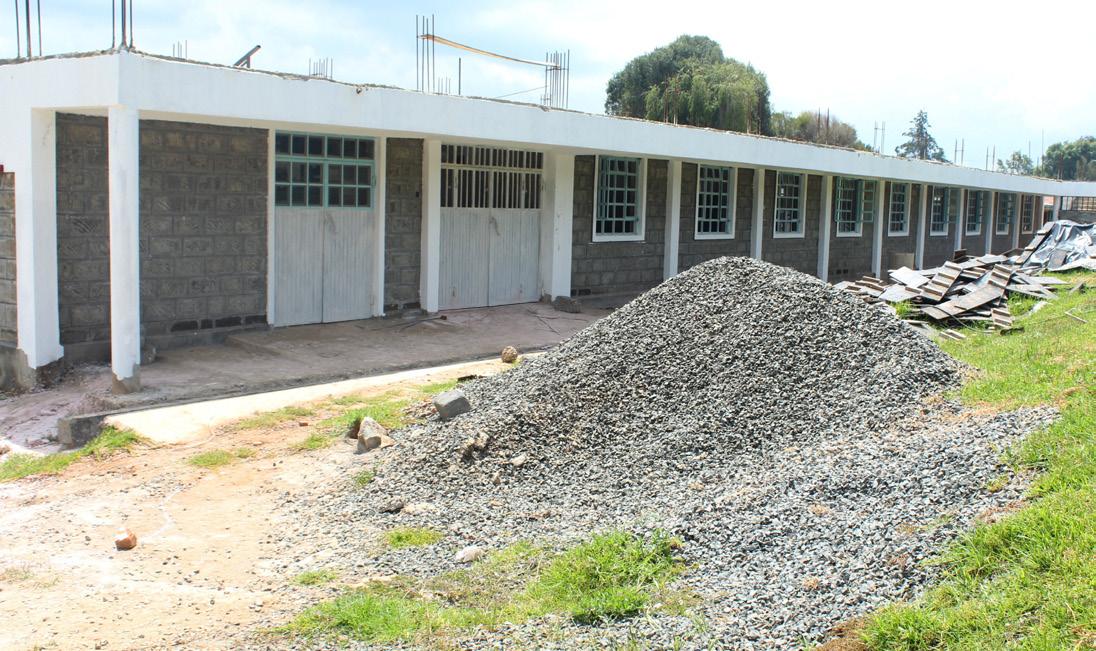
JUNE 1 - JUNE 14, 2021
NEWS 31
EDUCATION
The Principal Sing’ore Girls Mrs Linnet Khabongo joins teachers, other staff and students in celebrating the school’s excellent performance.
Mrs Khabongo Linnet, Chief Principal.
The school’s classrooms including newly completed ones.
A muliti-storey dormitory whose first floor is complete.
Students with their Principal Mrs Linnet Khabongo.
School Sanitation booth.
MACHAKOS
Mixed reactions greet 2020 KCSE results in Machakos
By Makoma Musyoka
St Francis Misyani Girls in Kangundo Sub-county which used to perform well in the 1990s but went down in recent years bounced back to the limelight after posting impressive performance in the 2020 KCSE exams.
Misyani recorded a mean score of 7.92 with 5 students scoring grade A-,B+ 15 , B 22 , B- 28,C+ 33 , C 17 ,and C- 3 while 103 students who had C+ and above out of 123 made it touniversity.
The school had a total of 123 candidates.
School Principal Lucia Mutua attributed the school’s good performance to hard work among students and dedication among the teachers and co-operation of parents.
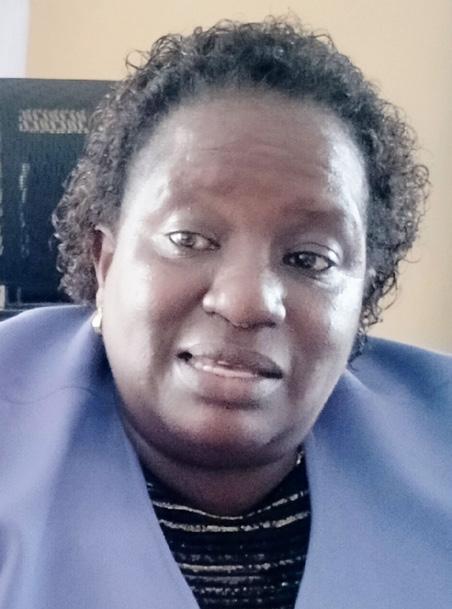
“We expected the students to perform better because they were well prepared and were a disciplined group but majority of them are going to University,” said Mutua in an interview in her office.
She also called on parents and teachers in Machakos County to ensure they play their respective roles adequately in order to create a perfect atmosphere for good academic performance.
Mutua said her aim now is immediate target for the school to become the leading in the country.
She said her first priority is to motivate teachers, staff and students and establish infrastructure in order to boost good management and performance in the school.
The school has continued to post
MACHAKOS
sterling results in KCSE recently. Kangundo High School Principal Barine Andoncan said prayers, discipline, hard work and support by Board of Management has helped the institution to be among top-performing schools in Machakos County in 2020 KCSE examinations.
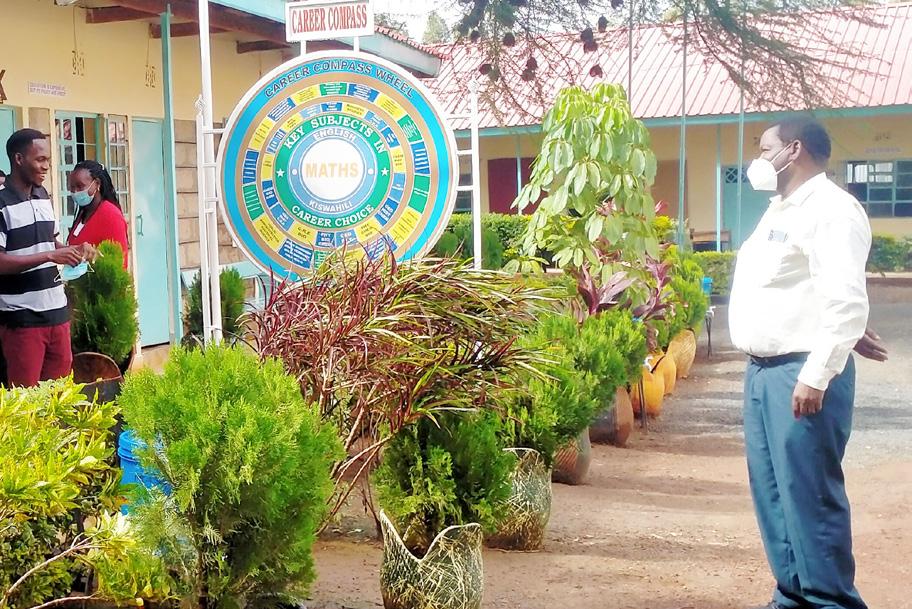
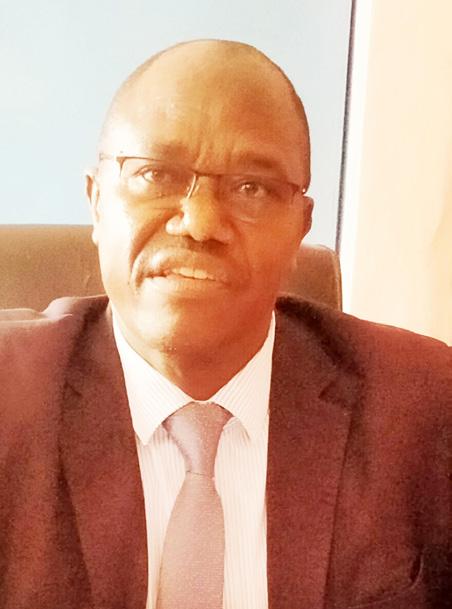
The school had mean score of 5.6 but the Principal has vowed to
of 2020 was one of the most disciplined that we will live to remember”, the Principal added.
He advised the students across country to work hard in their studies for the future of this nation depends on them.
parents has helped the institution to be among top-performing schools in Machakos County in this year”, said Mr Mwongela.
produced one of the country’s top students in the category of candidates with disabilities.
restore the glory of the school that is widely considered as one of the fallen giant of academia in Ukambani.
Mr Andoncan said his first priority this year is to motivate teachers, staff and students in order to make the school be the best top performing in the county.
“It’s teamwork among BOM ,parents, teachers and students which plays an important role in making students pass their examination, besides the hard work and dedication by my very co-operative teaching staff, I must confess that the class
Tala Satellite High School registered a great improvement from a mean score of 3.7(2019) to 4.4(2020).
The school Director Patrick Mwongela said majority of students will be joining universities and colleges.
“We have doctors, engineers, IT experts, surveyors and many others in the making who are training in various universities across Kenya and beyond,” the school director added.
He attributed the good performance to the teachers, students and co-operation of parents.
“The support by teachers and
Matungulu Girls’ Principal Lucy Kariuki said the school aims to equip students with skills that will enable them to be useful to the society. She said majority of students had B+ and will be joining universities.
Kyalo Francis Mutune, 21 scored an A minus aggregate grade of 78 points.
Kyalo who has been on wheelchair since birth told Education News his passion to become a pilot was frustrated by his physical condi-
Edith Musomba from Mchakos Girls High School, who was the 10th best overall candidate in 2020, wants to pursue Medicine at the University of Nairobi.
Edith, 17, scored an A plain grade of 87points in the final national examinations.
She said her stunning performance in KCSE has handed her a ticket to pursue the degree course ,which she has been dreaming to study since she joined the school four years ago.
Makueni Boys High School also
KCSE 2020: Kaaga Girls named most improved school
By John Majau
Every school’s dream is to achieve the best results in national exams and always goes an extra mile to attain this.
Various schools go to an extent of keeping their learners sleepless in a bid to make them work hard in order to excel in exams.
However, according to Kaaga Girls Deputy Principal Rose Kimathi, the secret was giving their learners enough time to rest.
“Our girls do not wake up early. They sleep at 9:30 pm and we ensure they get enough sleep for them to be able to study the following day,” narrates Mrs. Kimathi.
Mrs. Kimathi who could not hide her happiness after their school was named the most improved school in the nation, says she couldn’t believe
her ears when she heard the Education Cabinet Secretary George Magoha mention Kaaga Girls’.
“When I heard the name Kaaga, I wanted to confirm if it was boys’ or girls’ school being mentioned. The CS said it is a school somewhere in Meru and that’s how we got the news. We even saw it in social media,” the deputy principal says happily.
The deputy principal says they expected good results since their candidates portrayed their capability of attaining good results since they joined form one.
According to her the candidates were very hard working and focused.
“We hoped they would do their best because they were very competitive and focused all the way from form one,” Mrs. Kimathi reveals.
Kimathi says the majority of
their candidates were self-driven and they did a lot of extra work such as seeking clarifications and asking questions.
She attributes the victory to teamwork and support accorded to the school by the Board of Management (BOM).
Mrs. Kimathi also says the teachers were able to complete the syllabus early creating a chance for revision.
According to Kimathi the most challenging time was the closure of schools due to Covid-19 pandemic.
She says the teachers had to prepare an exam that was issued to learners when schools reopened to gauge the knowledge gap created by the pandemic.
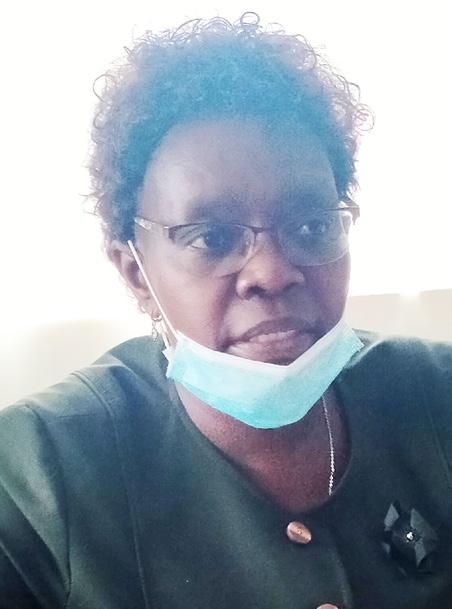

“After the exams we were now able to seal the gap with a lot of revision,” Mrs. Kimathi says.
tion.
“All along I had wanted to become a pilot but my unfortunate physical condition cannot allow me to do so. But because my passion is in aviation, I have made up my mind to pursue aeronautical engineering at the Technical University of Kenya (TUK) should I get the opportunity”, he added.
Francis said he owed a lot of gratitude to his fellow students in the school whom he described a very kind and patient about his condition.
She adds that the series of exams given to learners gave them confidence and kept them alert ahead of KCSE exams.
Mrs. Kimathi also lauds the Methodist Church which she says would frequently offer prayers, guidance and counselling to learners as they approached the KCSE exams.
Issuing tentative results received by the school, Mrs. Kimathi says the school achieved a mean score of 8.4 compared to last year 7.62.
She adds that two learners scored A, 18 scored A- and 48 scored B+ with 190 candidates scoring C+ and above.
“227 candidates sat the exams and 190 will be joining universities while 26 had C plain and can pursue diploma courses which make us very happy,” she says.
Nationally, a total of 893 candidates scored grade ‘A’ plain in Kenya Certificate of Secondary Education (KCPE) examinations in 2020 compared to the 627 candidates who got the same grade in 2019.
JUNE 1 - JUNE 14, 2021 FOCUS ON 2020 KCSE EDUCATION NEWS 32
St.Francis Misyani Girls Principal Lucia Mutua.
Kangundo High School Principal Barine Andoncan.
Matungulu Girls Principal Lucy Karuiki.
Tala Satellite High School director Patrick Mwongela. Photos/Makoma Musyoka
will be joining universities
learners scored A, 18 scored A48 scored B+ 190 candidates scored C+ and above.
190
Two
Bondo Township Secondary improves, sends 20 candidates to universities
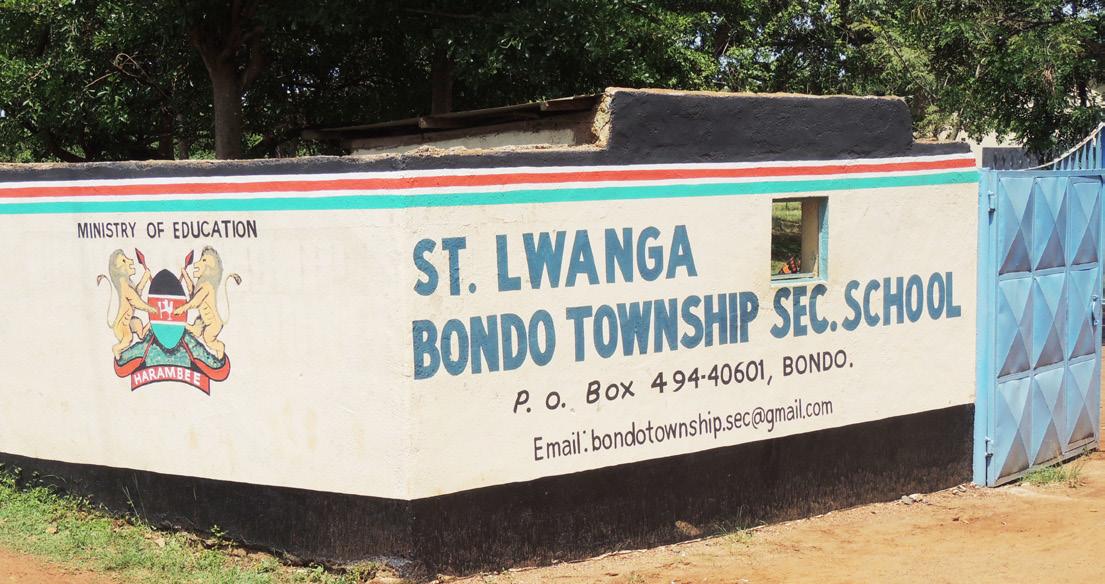 By Erick Nyayiera
By Erick Nyayiera
Bondo Township Secondary School is never relenting on its zeal towards attaining academic excellence and has in the 2020 KCSE exams managed to send 20 students direct to Universities.
The school is now the talk of Bondo town and the neighboring community after the improved performance positioning itself as the school of choice and one of the best improved schools in Siaya County.

In the 2020 KCSE exams released recently. The mixed day secondary school produced a mean of 4.81, an improvement from the 2019 KCSE results when it posted a mean of 3.82 and only managed to send 14 students to universities then.
Our strategies in enriching the academic programs bore fruits, I have a team of hardworking teachers who have made it their responsibility to give their best to the students albeit with existing challenges, I must confess I am proud of the teaching staff who have made the school proud - Okoth.
An elated school Principal Benson Moses Okoth stated that they have every reason to celebrate the good results which depicts a lot of improvements.
The total candidature was 155 but one student failed to sit the examinations.
The grade distribution was;
A- (1), B (3), B- (6), C+ (10), C (23), C- (48) and D+ (33).
“Apart from the 20 who will join Universities directly, we will send more than 100 students to Teachers Colleges, Medical Training Colleges and Technical Training Colleges in Kenya”, said the principal.
The top student who scored
A- (Chris Paul Onyango) is a to-
tal orphan whose struggle in education is a heart breaking story.
Onyango scored 294 marks in KCPE at a local primary school in the rural parts of Bondo.
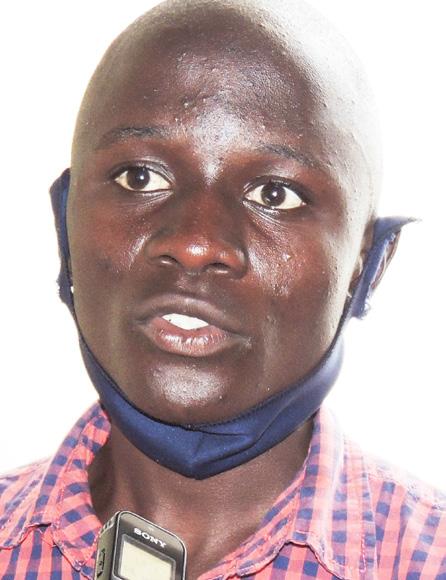
He is the eldest of his other four siblings whom he takes care of being the head of their child headed home.
The Principal took it upon himself to help the boy through his education.
He accorded the boy all the
necessary support through his four year secondary education and even gave him accommodation and food during the exam period to make him feel comfortable.
“Our strategies in enriching the academic programs bore fruits, I have a team of hardworking teachers who have made it their responsibility to give their best to the students albeit with existing challenges, I must confess I am proud of the teaching staff who have made the school proud,” said Okoth.
He also appreciated the Ministry of Education, Teachers Service Commission, Board of Management, Parents Association including the school sponsor (Catholic Church) for their enormous support and guidance at all times.
Deputy Principal Peter Omondi Adongo who was satisfied with the improvement revealed of a key strategy adopted by the school which is the ‘foster parenting methodology’ where teachers are assigned a number of students in their care to help them in areas of weakness academically.
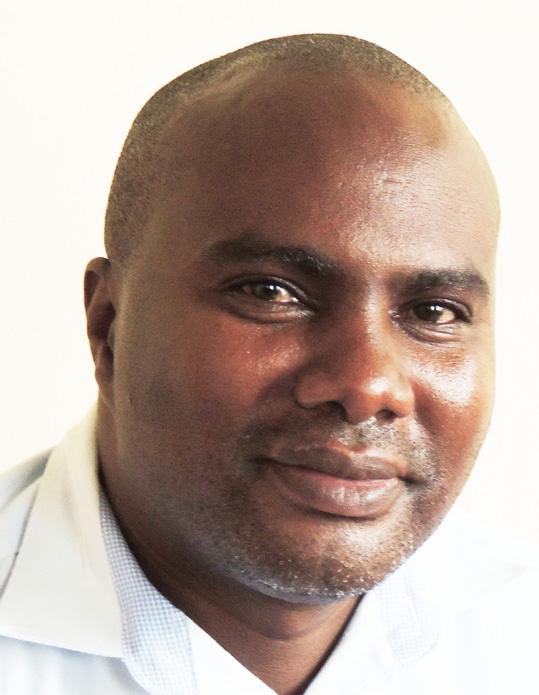
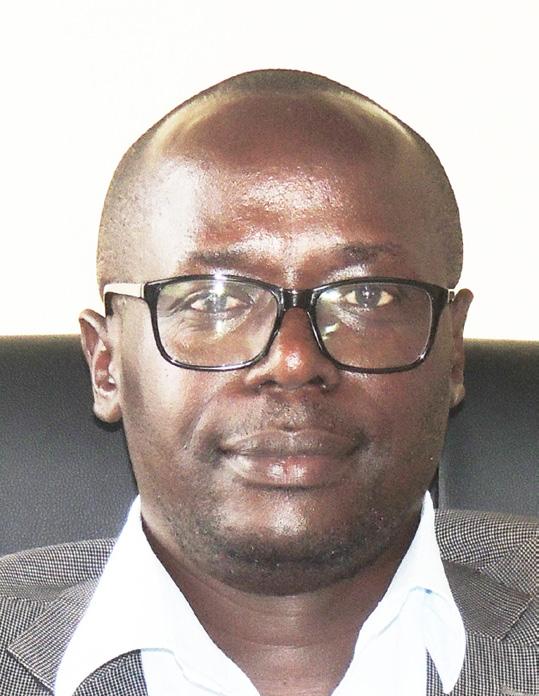
“In the strategy, we had fifteen students accorded to the
parentage of one teacher. The teacher would be the sole mentor and offer guidance to the learner, it also made the learner confide in the teacher about any issue they faced whether it was problems from home or within the school. Overall the foster parenting system worked pretty well in the improvement of the results,” said Adongo.
Sang’alo to be elevated to national polytechnic
By Tony Wafula
Plans are underway by the Ministry of Education to elevate Sang’alo Institute of Science and Technology into a national polytechnic.
The institute is looking forward to ensuring that it meets requirements of being a national polytechnic.
Other national polytechnics in the country include Kisumu, Kabete, Meru, Mombasa, Nyeri, Kisii, Sigalagala, North Eastern and Kitale national polytechnics.
Kenya has a total of ten national polytechnics which are ranked below universities and offer craft, certificate, Diploma and Higher Diploma Courses.
Speaking to journalists in her Office, Loice Kuti the institute
principal said the management has put measures in place to elevate Sang’alo to a national Polytechnic so that it can serve more students and impact them with required skills.
The government has embarked on a rebranding campaign to change the stigma in the country surrounding career in technical and vocational fields, TVET programs are now being preferred by the government as the best alternative for higher education for the country to fulfill the big four agenda: housing, healthcare, manufacturing and food security.
Sang’alo Institute of Science and Technology (SIST) is a public institute of situated in Bungoma County, 7km South East of Bungoma town on the Bungoma-Nambacha-Kakamega road.
The Institute which was established in 1977 has more than 500 acres of land that is adequate for it to be expanded to a national poly-
technic.
With an enrollment of 4,900 students before the spike of Covid-19 pandemic, the institution began by offering purely agricultural courses with time; it’s also offering other Technical and Business courses.
Sang’alo Institute promotes a cooperative, positive and safe learning environment which ensures that the education of each student is the heart of the institutes’ operation.
Kuti added that the institute is having advanced plans with (GIZ Kenya) to train youths in short courses such as apiculture that give them knowledge in scientific in bee keeping whereby bees will be bred commercially in apiaries in places where there is sufficient bee pastures to produce honey the most valuable nutritional food and wax.
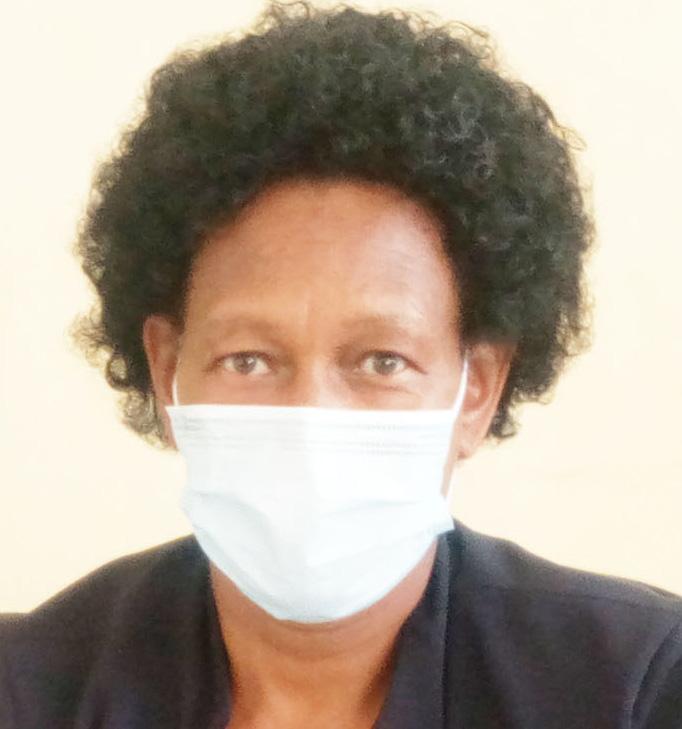
She said that the institute has 10 beehives which will be increased with time so that youths can be taught modern apiculture skills.
“Through partnerships with family and community, the Institute enables students to become responsible citizens who are productive members of the global community,’’ she noted.
She said that bees wax is used in the cosmetic and medical industry because it has medical value, is also used in making candles, preparing shoe polishes, furniture, coating for cheeses and as a food additive.
Other programs that the institutes do include; dairy farming, rabbit keeping, poultry and intensive maize farming.
Benson Moses Okoth, Principal Peter Omondi Adongo, Deputy Principal
Chris Paul Onyango the orphaned boy who topped the school with A-.
The new Administration Block. School gate.
EDUCATION NEWS 33 FOCUS ON TOP SCHOOLS JUNE 1 - JUNE 14, 2021
Loice Kuti, Sang’alo Institute Principal.
KAKAMEGA MAKUENI
Wiobiero Secondary among the most improved schools
By John Ochieng
Wiobiero Secondary School
in Homa Bay County posted impressive results in Kenya Certificate Secondary Education (KSCE) 2020 examination to be among the most improved schools.
The Principal of the school John Otieno Ogwayo attributed the performance to dedication of both teachers and students.
He said a total of 256 candidates sat for the exams in which 118 qualified for direct entry to university while the rest are legible to join middle level colleges.
Other schools that performed well included Oriwo Boys with a mean of 8.783 and total of 411 students in which 400 0f them qualified to join universities.
The Principal Maurice Akal attributed the performance to consistent revision.
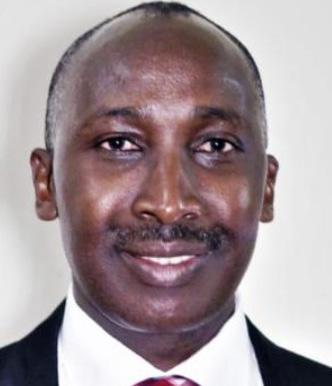
Orero Boys equally did well scoring a mean of 9.239 with a total of 400 candidates, 394 qualified for university entry.
The Principal Dickens Bula attributed the performance to dedication of staff and students.

Asumbi Girls, Mbita Boys, Agoro Sare are some of the schools that made Homa Bay County proud.
The County Governor Cyprian Awiti sent his congratulation messages to the schools that performed exemplary well.
Malava Boys leads in Kakamega North
Malulu was speaking during the release of the 2020 provisional results that ranked for the second time Malava Boys as the overall top against 50 secondary schools.
The Malava legislator observed that the prevailing conducive political stability has been the root cause for the good results in the sub county and called on the political leaders to continue supporting education programmes if the constituency is to compete favaourably.
The Sub County Director of Education Isaac Kipraisi thanked the sub county schools for improving in their KCSE exam despite the hard situation caused by the Covid -19 pandemic.
Makueni finally records grade A in KCSE
By Lydia Ngoolo Makueni County Director of Education
James Gachugi has expressed his joy that this year the county recorded grades A plain and higher university entry number.
Speaking in his office at Wote, Gachugi observed that there were six A plains this year after the county missed the grade for the last three years.
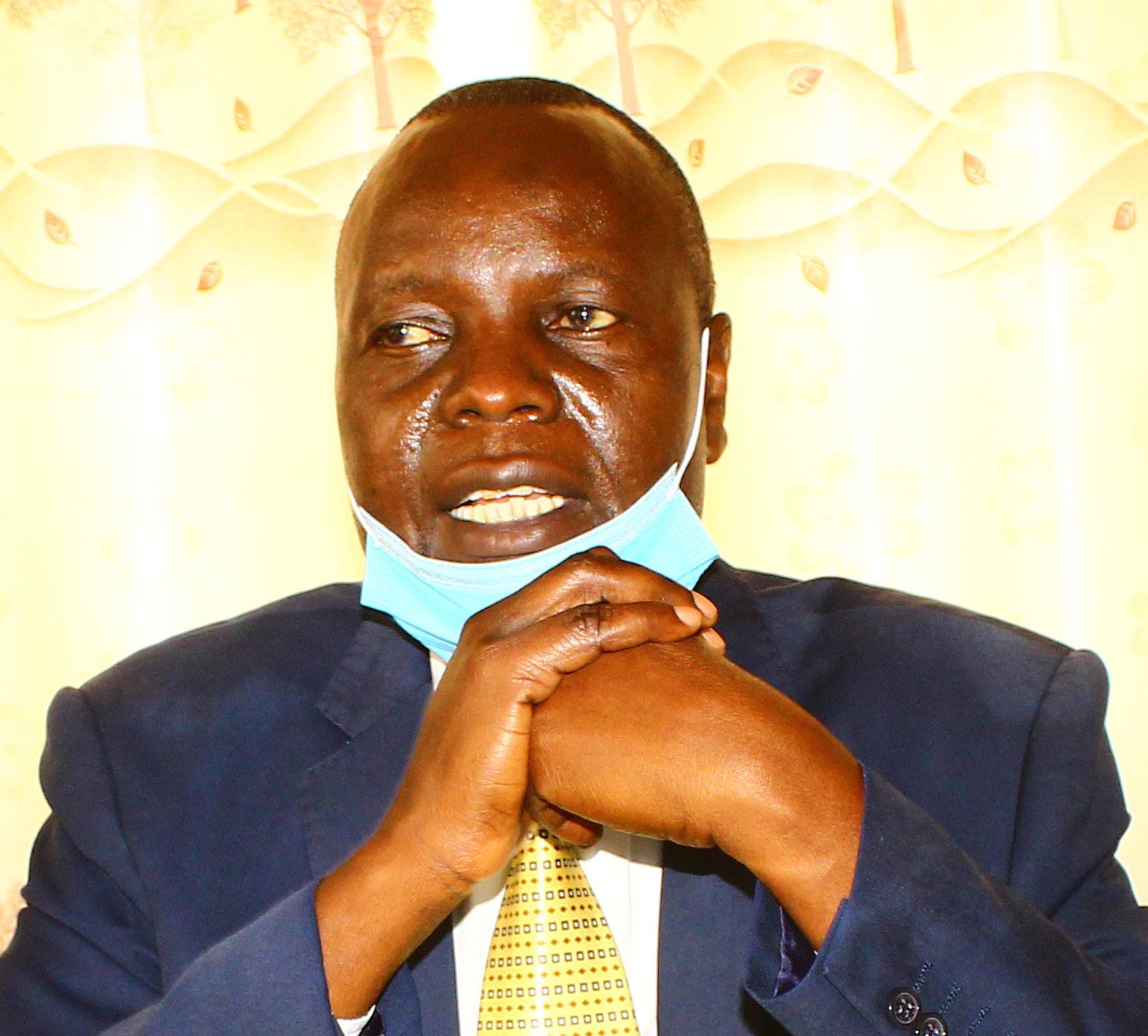 By Andanje Wakhungu
By Andanje Wakhungu
Educational stakeholders in Kakamega North Sub County have hailed the management of Friends Malava Boys for emerging as the top school in the area.
Led by area MP Malulu Injendi the stakeholders said the new management of the school has shown that there was great potential for posting even better results.
The MP who is known to support education matters in
the sub county lauded the notable improvement the new Chief Principal John Wakwabubi has brought from 2017 (3.9), 4.8 (2018), 6.037 (2019) and 6.616 (2020) with (11,44,74) and 90 direct university entries being recorded respectively.
The MP noted that the only extra county school was now walking the talk as performance was concerned and urged teamwork among the education office and parents in registering better results in the coming future.
The sub county Quality and Standards Officer Geoffrey Ochienge said the results were a true reflection of the schools as there were no irregularities recorded.
“We had a total candidature of 3964 out of which 2024 were girls and 1940 were boys”, he said.
Ochienge noted that in 2020, there was a positive deviation in terms of university entry of 548(6.046 per cent) upward trend in terms of candidature qualifying to join university from 463 in 2019 (10.32 per cent) and 268 in 2018 respectively.
Kwale records impressive results in KCSE
By Tsozungu Kombe
Secondary schools in Kwale County recorded impressive results in 2020 KCSE despite failing to score Grade A.
Kwale County Director of Education Martin Cheruiyot said Kwale High School and Matuga Girls High school were the most leading schools in terms of performance.
He urged students in the county to maintain high standard of discipline, noting that discipline is the only key factor towards success in their final national examinations.
The county director of edu -
cation advised the to study extra hard in order to pass their final national examinations, arguing that there is no short cut in passing examinations.

He said grades D to E reduced substantively thus a great improvement.
Apparently possible university entry recorded this year was 4683 compared to 2019 when it was 4632 showing improvement.
“We have now recorded six grade A plain, 2019 and 2018 we had no A plain. Grades A minus were 113 this year, 2019 we had 125 grade A minus,” said Gachugi.
EDUCATION NEWS 34 APRIL 29 - MAY 14, 2021
Friends Malava Boys Chief Principal, John Wakwabubi in his office.
Photo/Andanje Wakhungu.
Kwale County Education Director, Martin Cheruiyot.
JUNE 1 - JUNE 14, 2021 FOCUS ON
KCSE EDUCATION NEWS 34
Makueni County Director of Education, James Gachugi. Photo/ Lydia Ngoolo.
2020
A total of 256 candidates sat for the exams in which 118 qualified for direct entry to university while the rest are legible to join middle level colleges
Apparently possible university entry recorded this year was 4683 compared to 2019 when it was 4632 showing improvement.
COAST HOMA BAY
He urged students in the county to maintain high standard of discipline, noting that discipline is the only key factor towards success in their final national examinations.
Moi Girls Vokoli asserts its supremacy again in KCSE
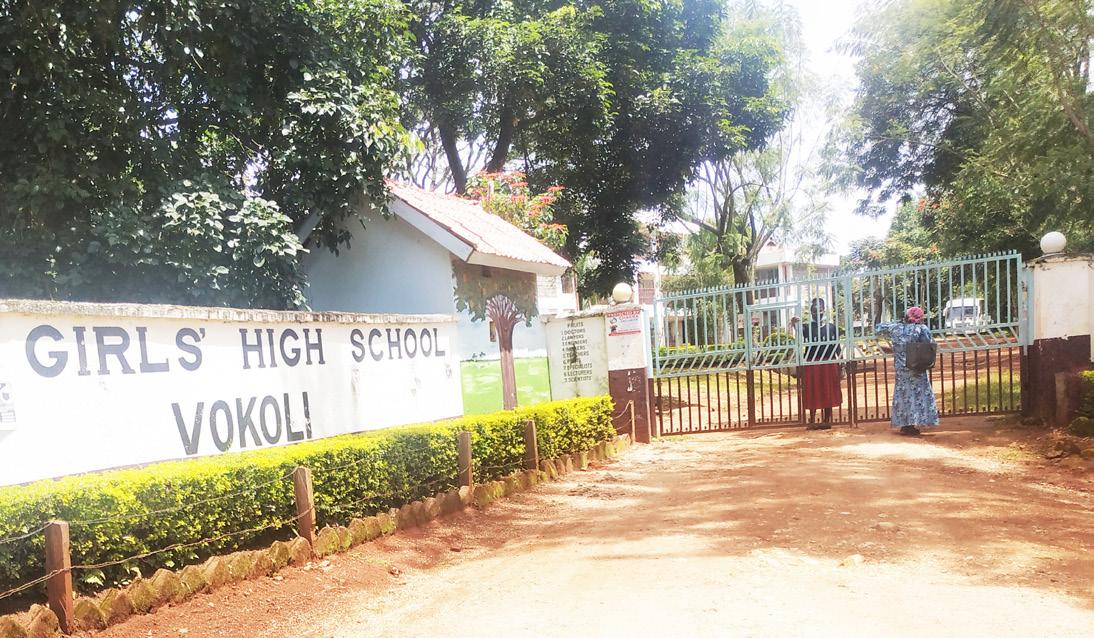 By Leonard Angatia
By Leonard Angatia
Second best girls school in Vihiga County after Bun yore girls attained an impres sive mean score of 7.5639 an improvement from 7.1114 in 2019 with a positive deviation of 0.4516.
Last year’s candidates were 321 of whom 242 scored C+ and above producing 76% university transition.
Moi Girls High School Vokoli has always been posting impressive results ever since its inception.
With a population of 1359, 43 TSC teachers and 13 hired under Board of Manage ment (BOM) terms, there is adequate preparation of can didates whose attitude is only focused on better performance incorporated with timely syllabus coverage. This year’s mean score target is 8.0 and with the conducive working environment, the school is optimistic of achieving that target.
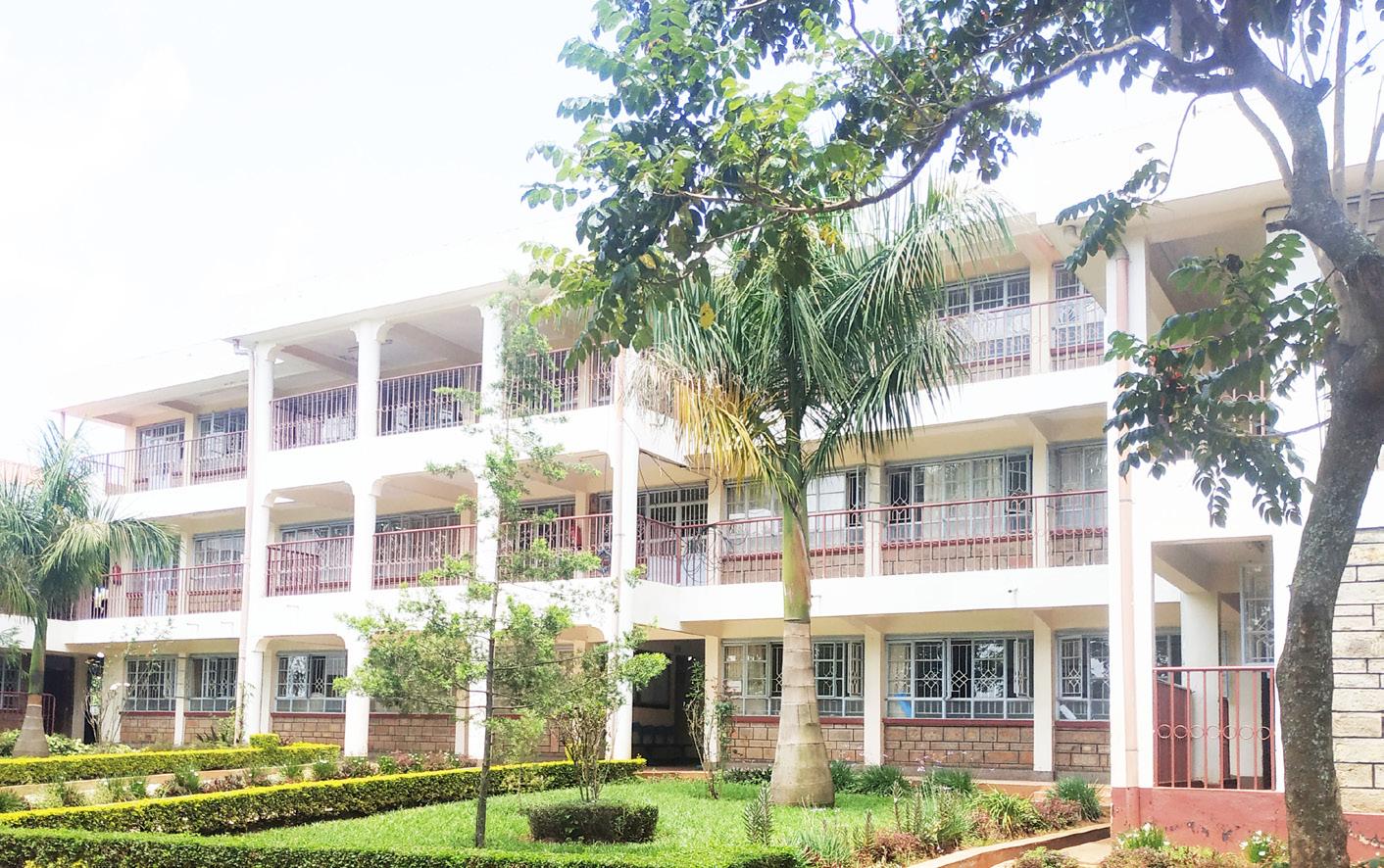
Senior Principal Rose
Chepteng’et Serede has guided the school into achieving great strides and she attributes the success to all stakeholders who are very supportive, not to mention the TSC county office, County Director of Education office, able BOM, dedicated
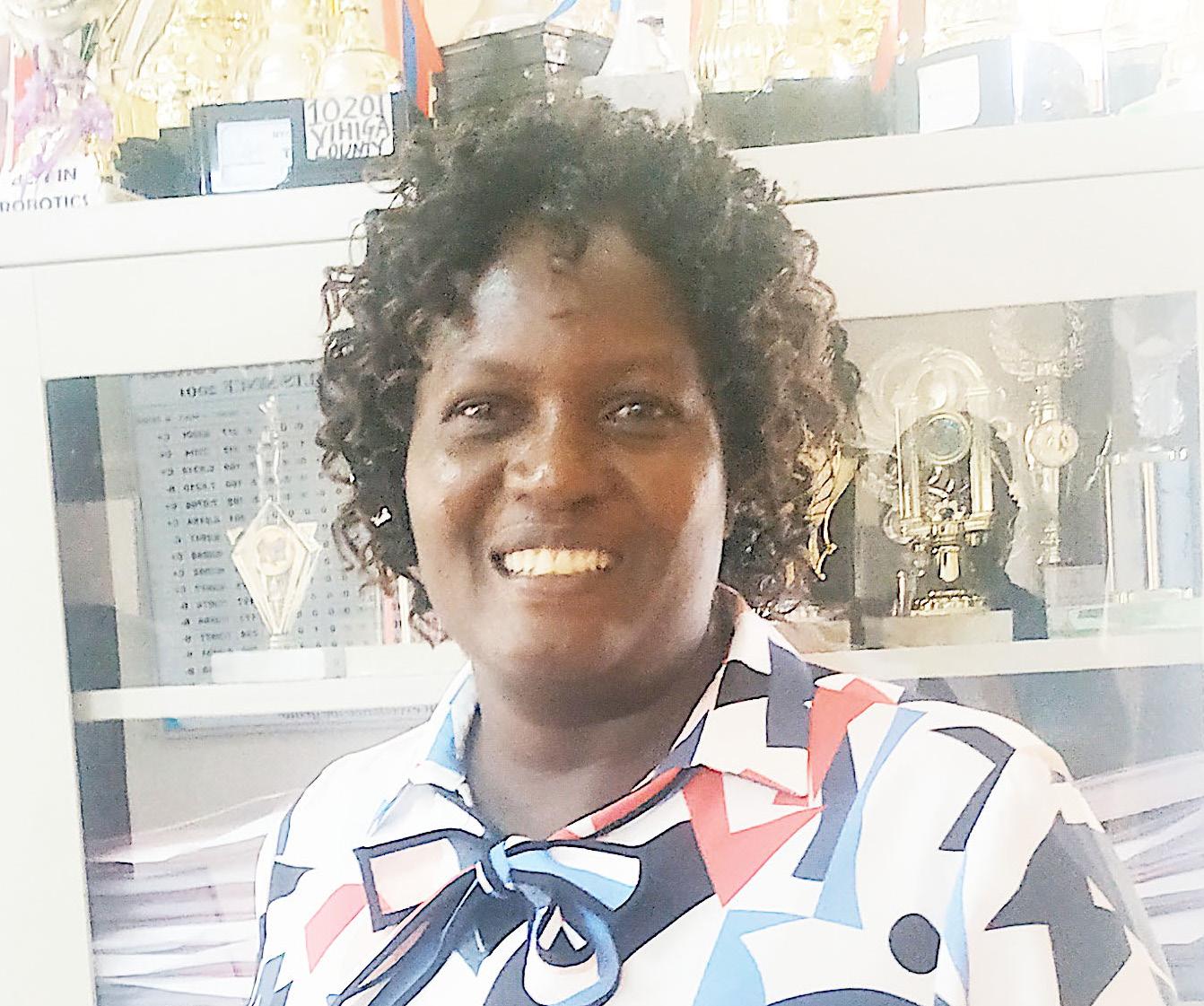
teachers and zealous parents.
BOM Chairman, Mr Robert Mbarani and Parents Association (PA) chair, Mr Stephen Euupa together with the Friends Church Quakers which is the sponsor have played a vital role in seeing good results once more.
“ I expect this centre of excellence to be a stem institution for the coming years. Population will grow to even 2000 students of course with
intent to perform well,” a jovial Serede said.
She added that they have attained the 100% transition because the few students who will not be joining university will all join tertiary colleges.
The school has two deputy principals; Mr Boniface Shikoli in charge of Academics and Mrs Mildred Lidejere in charge of Administration.
These two are very meticulous and efficient in running academic programmes and instill discipline and order in students respectively, which is the core factor in Vokoli girls’ success.
This institution has embraced ICT integration which
makes it a hub for excellence.
“Committed teachers attend to all their lessons and there is robust revision where testing is done comprehensively in full paper at the end of every month. Practicals are also done every weekend and there are robust academic programmes properly supervised by teachers who are always available,” noted Mrs Serede.
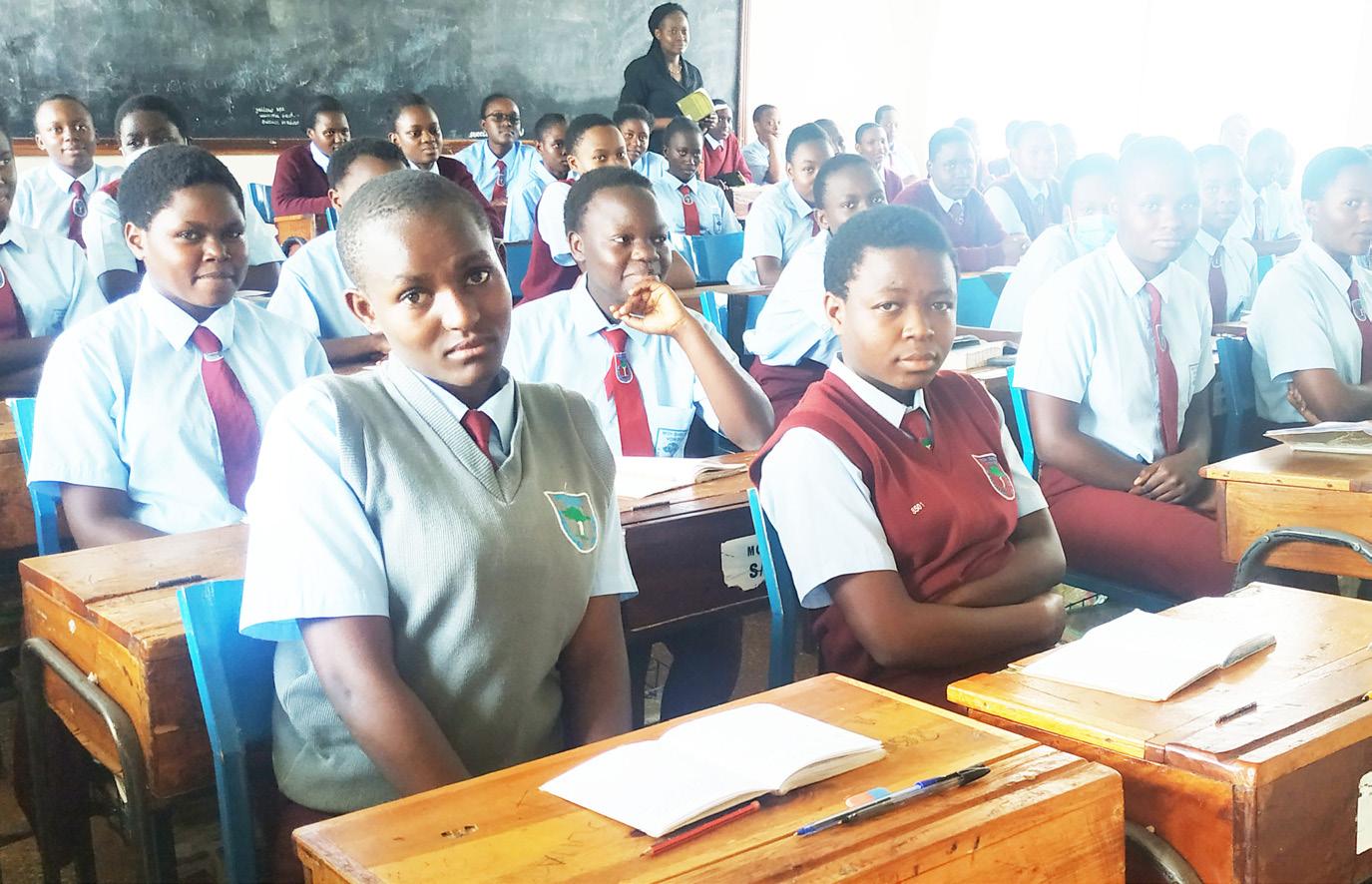

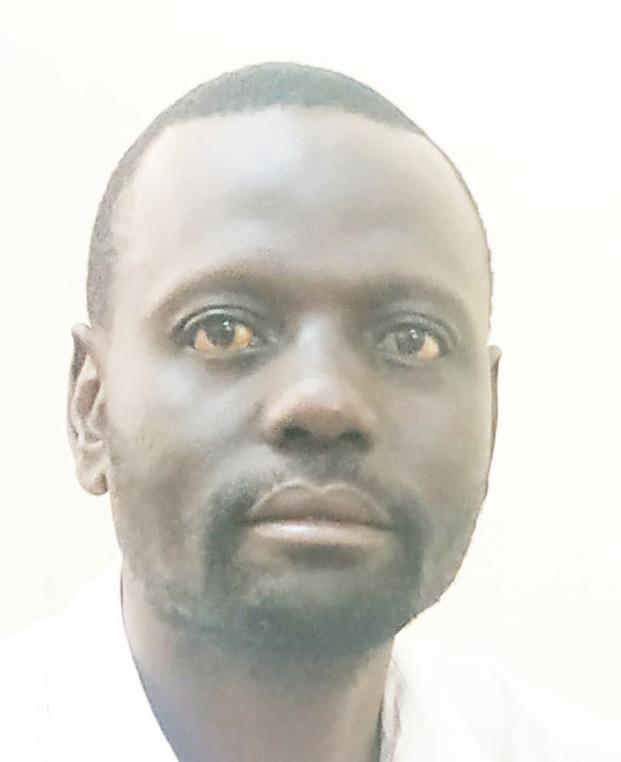
Mr
Deputy Principal.
The Seniour Principal urged TSC to post more teachers to schools in order to reduce high bills that schools incur in hiring BOM teachers. She also requested the Ministry of Education to increase capitation towards infrastructure and ensure timely release of funds for smooth running of schools.
EDUCATION NEWS 35 JUNE 1 - JUNE 14, 2021
Boniface Shikoli,
Mr Amos Ogagah, Director of Studies.
Rose Chepteng’et Serede, Senior Principal.
Attentive students in an English Language class.
Administration and Tuition block.
Main entrance to the school.
I expect this centre of excellence to be a stem institution for the coming years. Population will grow to even 2000 students of course with intent to perform well
- Rose Chepteng’et Serede
FOCUS ON TOP SCHOOLS
K.C.S.E ANALYSIS TABLE
Varsity
THE PLATFORM FOR HIGHER EDUCATION
PS urges safe varsities’ reopening amid Covid-19
By Correspondent
Principal Secretary University

Education and Research Amb. Simon Nabukwesi has asked universities to ensure they comply with the Covid-19 Ministry of Health prevention protocols as they prepare for reopening of physical learning next week.
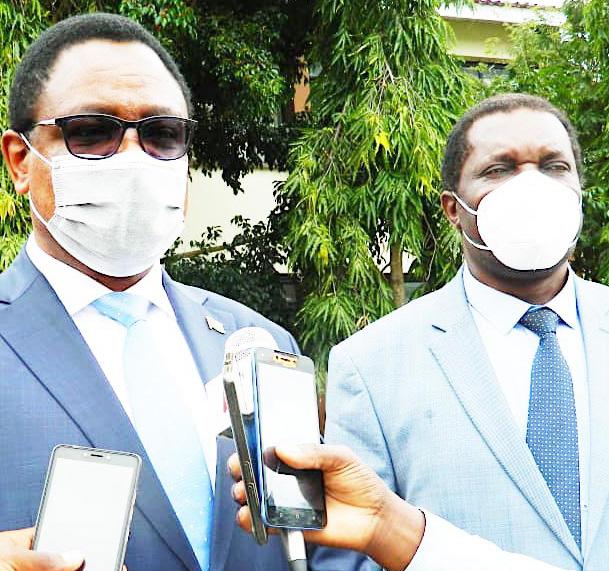
The PS also advised the university leadership to encourage their staff to take the Covid -19 vaccination to avoid getting infected.
He castigated those opposing the vaccine urging them to take a lead by giving their health status priority. The PS was speaking at Taita Taveta University during the institutions 4th graduation ceremony.
On infrastructure and development, the PS urged institutions of higher learning to forge partnerships with willing external stakeholders/nations to expand online connectivity so as to support Open, Distance and e-learning model (ODEL).
“As we embrace online learning, we should focus on addressing the key issues of quality of teaching and the challenges facing the students and lecturers as critical stakeholders in the implementation of e-learning. The Ministry will continue working with universi-
ties and partners in the education sector to support the successful implementation of e-learning. On this aspect, I urge the universities to pursue opportunities for partner-
ship with private investors to ensure that students have access to the opportunities they need to tap into the vast academic resources that online learning can offer. I encour-
age TTU to prioritize investment in enhancing the capacity of the academic staff to offer effective online learning”, said the PS.
Noting that Taita Taveta University has its niche in mining, environmental, engineering and resource management, Nabukwesi said it can partner with countries such as Israel and Iran so as to diversify research in dry land which has been successful in the two countries.
He encouraged the institution to utilize research funds offered by the Government through the National Research Fund (NRF) as well as source for additional funding from other partners to support the institutions niche.
“I particularly comment the Government of Germany for supporting the establishment and functioning of the Centre of Excellence in Mining, Environmental Engineering and Resources Management (CEMEREM) at Taita Taveta University. This Centre of Excellence, which is in line with the Ministry of Education’s policy direction of encouraging universities to establish niche areas of specializations, has come into being as a result of strategic international collaboration between TTU and three leading German Universities; the University of Applied Sciences
Jaramogi University instals wind energy system
By Fredrick Odiero
Jaramogi Oginga Odinga University of Science and Technology (JOOUST) has lined up a series of innovations as it strives to find a footing in the fast changing technological global trends.
The Bondo based higher institution of learning has come up with a wind power which is used to turn turbines using magnetic blades.
A senior lecturer at the department of engineering at the university Dr Aguko Kabok said the wind power uses the blade magnetic turbines to produce electricity.
He said that they intend to use the technology for use in the rural areas since it will be cheaper way of producing power.
The technology lights a spotlight and can perform several functions when modernized.
He said that most wind energy comes from turbines that can be as tall as a 20-story building and have
three 200-foot (60-meter)-long blades.
The wind spins the blades, which turn a shaft connected to a generator that produces electricity. He explained that wind is a clean source of renewable energy that produces no air or water pollution.
He added that since the wind is free, operational costs are nearly zero once a turbine is erected.
The institution has also come up with a biogas production unit which uses all kinds of wastes ranging from tomatoes and other left overs.
The biogas is kept in a bag before it is moved to a stove. Some of the students behind the innovation include Mary Wambui, Elkana Maina and a community worker Harrison Otieno. They have been working on the concept since 2017.

The Department of Biological Sciences led by Dr. Solomon Omwona who is a senior lecturer has also come up with a reactor which
uses various wastes such as cow dung and chicken wastes to produce biogas.
Dr. Omwona said they stared
– Dresden; the University of Freiberg and the University of Zittau” said the PS.
Taita Taveta University Chancellor Dr. Sally Kosgei applauded the graduates for having successfully completed their studies.
She added that being the lot that has graduated amidst Covid-19 pandemic, they have got skills and experience needed for them to serve in the competitive market in the world.
“Being the lot that have been faced with challenges posed by
On infrastructure and development, the PS urged institutions of higher learning to forge partnerships with willing external stakeholders/ nations to expand online connectivity so as to support Open, Distance and e-learning model (ODEL).
Covid-19 pandemic, we have no doubt that you have got the skills and experience needed in the competitive market outside”, said Dr Kosgei.
680 graduands were conferred various degrees, diplomas and certificates during the graduation which was held virtually.
Also present was the University Vice Chancellor Prof. Fred Simiyu, PS State Department of Crops and Agriculture Hamadi Boga, the area MP Dansan Mwashako, and the university academic staff and other invited guests.
into the reactor which is a tank after which they fermented. It has a gauge which monitors the flow of gas from the reactor.
working on the concept late last year and found out that it is environmentally friendly.
He said the wastes are poured
“The reactor often refilled when the gauge goes down”, he says.
They have already patented the concept so that it is not stolen by other people.
The don said biogas generation recovers waste materials that would otherwise pollute landfills and prevents the use of toxic chemicals in sewage treatment plants, and saves money.
He said it is effective since it produces energy and material by treating waste on-site.
“Moreover, biogas usage does not require fossil fuel extraction to produce energy”, he explained.
The materials used are secured even in the rural settings. He said the stove used is also locally made in the jua kali and is cost effective.
Dr Aguko and Omwona said they have other innovations which they don’t want to disclose for fear of being stolen by other parties.
Bulletin
36 EDUCATION NEWS JUNE 1 - JUNE 14, 2021
Ambassador Simon Nabukwesi addressing the press during the graduation ceremony flanked by Vice Chancellor, Prof. Fred Simiyu Barasa (right).
Photo/Michael Oduor
JOOUST students presenting one of their innovations to university staff and students. Photo/Fredrick Odiero
FOCUS ON TOP SCHOOLS
Cardinal Otunga Girls’ High school-Bungoma celebrates its excellent KCSE performance
By Leonard Angatia
Cardinal Otunga Girls’ High School-Bungoma the top girl school in the county celebrated its excellent results of 2020 Kenya Certificate of Secondary Education.
The school had registered 241 candidates out of which 182 qualified for direct university entry. Last year’s performance is an improvement from 2019 KCSE. The 2020 mean score is 7.57 an improvement from 7.2 with a positive deviation of 0.2926.
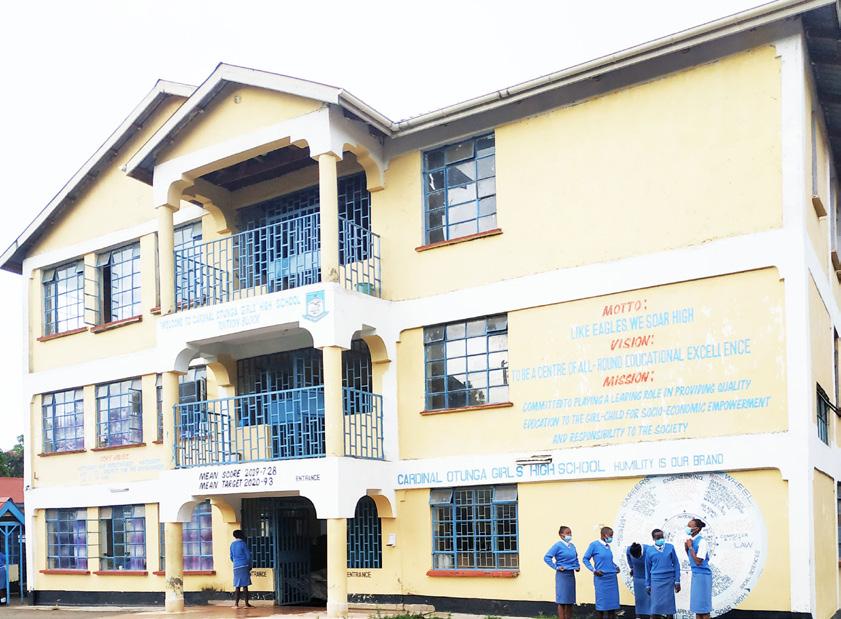
A girls’ school found in Bungoma South Sub-County Bungoma county is proving right its tradition of Cardinal- the virtue of a leading dignitary and a new songbird of the bunting family, having a stout bill and typically a conspicuous crest especially in accordance to academics.
School Chief Principal
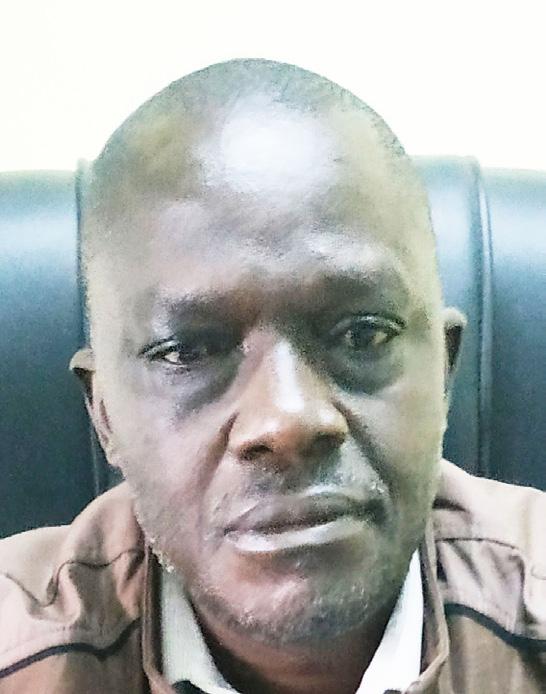
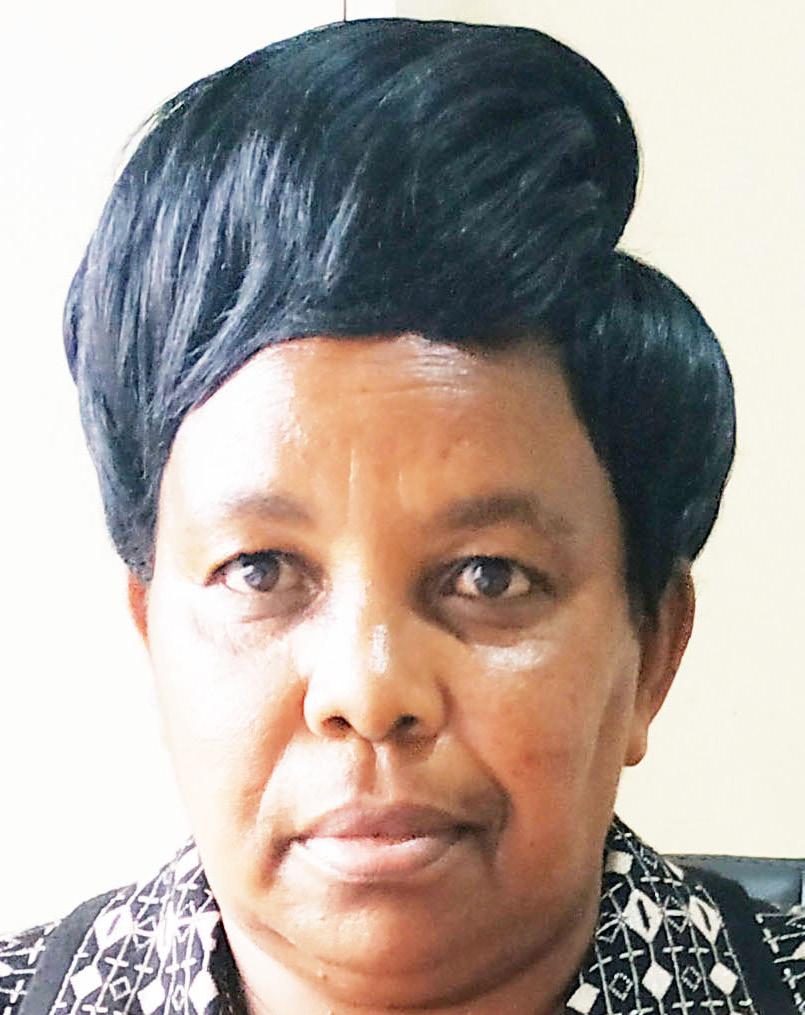
Emelda Oyombe speaking to Education News alluded to facts that led to the sterling performance: hardwork, disciplined students, teamwork, culture of performance. “These have propelled the institution to good performance being celebrated now,” she explained.
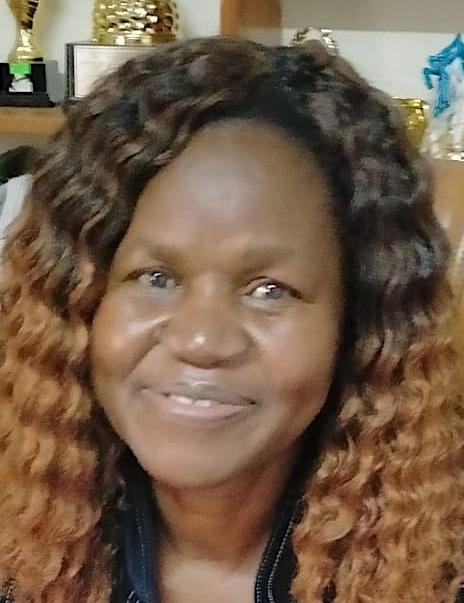
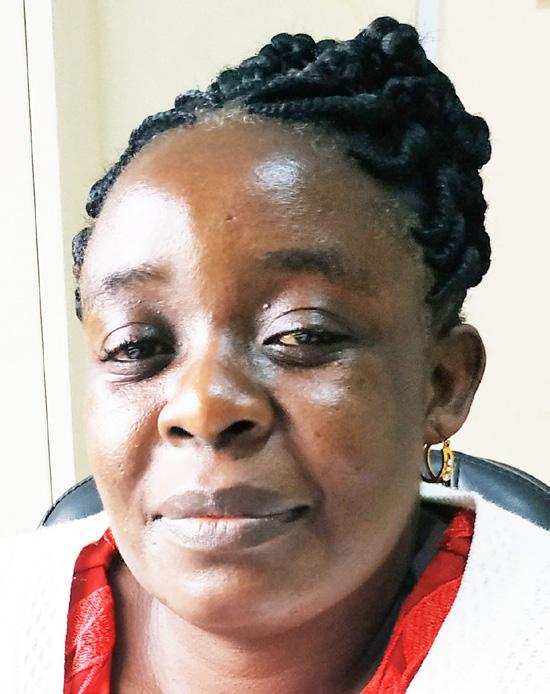
“ We have proved wrong our naysayers by improving in last year’s KCSE and we have set our targets up to 2025 which is a driving force amongst us,” stated a beaming Oyombe.
“As our norms indicate, we are the bunting family having a stout bill and typically a conspicuous crest which keeps our ladder of performance higher,” added the Principal.
A strict disciplinarian, Oyombe always wants the best among students. No wonder she brings out all her arsenal to see the school perform even better and she promises to post better grades in the near future.
Some of the reasons that make the school do better are intensive revision after syllabus completion, early syllabus coverage by April of every year, guidance and able leadership from administration and Board of Management (BOM), disciplined students and the joint exams done among the best performing schools across the
country. The Bungoma Catholic Church diocese sponsored school has three Deputy Principals, Madam Lilian Simiyu in charge of Administration, Madam Naomi Macharia Deputy Principal (Academics 1) and Mr Ignatius Wangila in charge of Academics 2.
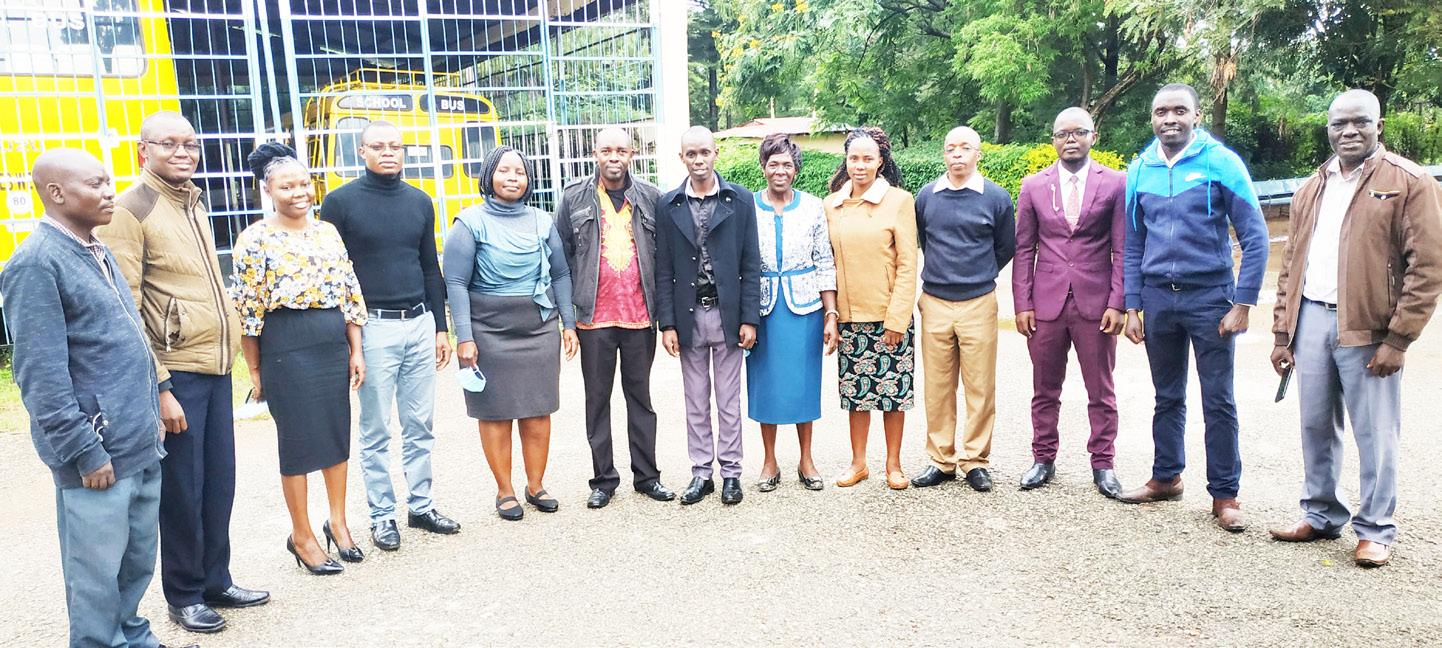
Mr Ignatius Wangila Deputy Academics 2 echoed the good performance sentiments by shar-
ing that every time schools open, Cardinal Otunga puts maximum concentration in academics and so first week of opening is full of tests in all classes.
The current school population is 1256 students. It has 46 TSC teachers with 26 hired under BOM terms.
Mr Masika Khaemba Examination Officer and Mr Kiliswa
David Director of Studies said
that after receiving candidates after Covid-19 break last year they re-taught all subjects because students had switched off and forgotten everything.
“We knew not all students were accessible through online learning, hence we embarked on intensive teaching and revision,” noted Kiliswa.
CARDINAL OTUNGA GIRLS HIGH SCHOOL
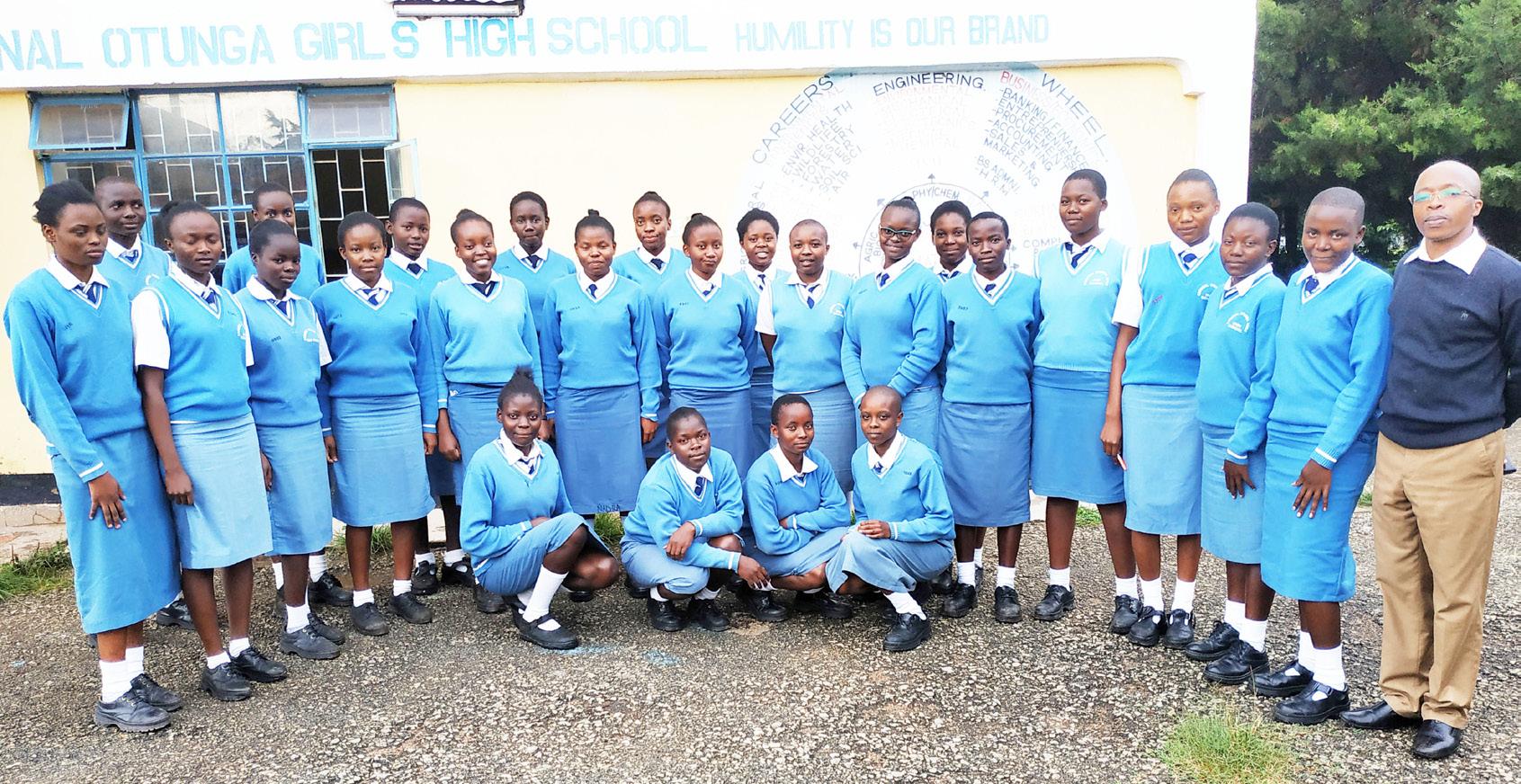
EDUCATION NEWS JUNE 1 - JUNE 14, 2021 37
Emelda Oyombe, Chief Principal.
Naomi Macharia, Deputy Principal (Academics 1)
Ignatius Wangila, Deputy Principal (Academics 2) Students stand next to Career Wheel on the Form 4 block.
Some of the teachers of Cardinal Otunga Girls.
Some of the current candidates with the Director of studies Mr Kiliswa David.
K.C.S.E PERFOMANCE ANALYSIS Subject A A- B+ B B- C+ C C- D+ D D- E X Y Entries Mean Points Grade Form 4 0 4 26 38 55 59 39 15 2 3 0 0 0 0 241 7.5726 BEnglish 0 0 17 66 86 43 18 8 2 1 0 0 0 0 241 7.9336 BKiswahili 24 73 48 55 23 9 3 2 1 0 3 0 0 0 241 9.755 B+ Mathematics 10 11 17 29 22 30 32 23 12 33 17 5 0 0 241 6.4357 C Biology 0 2 7 13 35 34 27 41 22 56 4 0 0 0 241 5.6349 C Physics 1 1 3 10 13 22 11 21 8 15 1 0 0 0 106 6.1415 C Chemistry 0 1 3 16 14 15 14 24 23 91 38 2 0 0 241 4.3527 D+ History & Government 0 4 24 33 30 8 9 5 2 4 0 0 0 0 119 8.2017 BGeography 4 21 21 12 4 0 0 1 0 0 0 0 0 0 63 10.0635 B+ C.R.E 3 29 78 72 33 17 0 6 2 1 0 0 0 0 241 9.1577 B Home Science 1 2 5 9 2 0 0 0 0 0 0 0 0 0 19 9.5263 B+ Agriculture 0 1 7 13 14 6 7 1 0 1 0 0 0 0 50 8.04 BComputer Studies 6 2 1 0 0 0 0 0 0 0 0 0 0 0 9 11.5556 A French 0 1 2 2 5 4 1 1 0 0 0 0 0 0 16 8 BBusiness Studies 2 6 18 12 15 10 12 5 9 8 3 0 0 0 100 7.31 C+
Lilian Simiyu, Deputy Principal (Administration).
By Shichangi Richard
Kakamega High School has once again demonstrated its academic muscle by posting the best results in recently released Kenya Certificate of Secondary Education (KCSE) examination results.
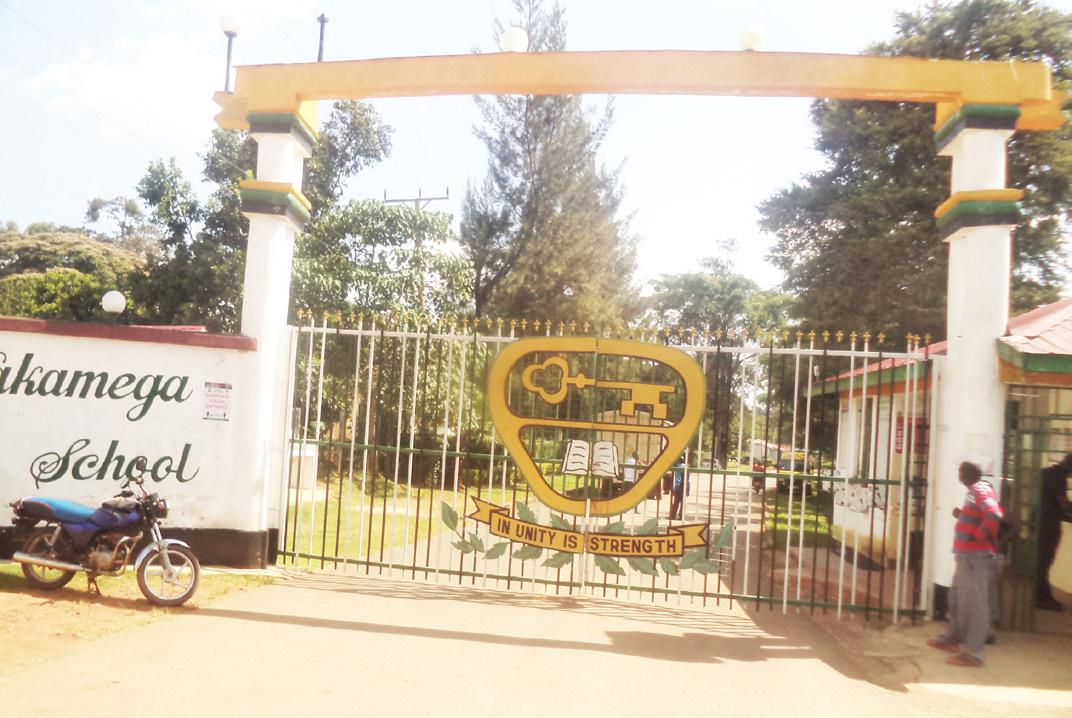
The Kakamega County academic powerhouse that is also known for its sporting ability in various disciplines managed to improve its mean score to 8.48 from last year 7.6, a positive deviation of 0.72.
Chief Principal Gerald Orina said the school also improved the quality of grades with 327 students from the entry of 387 managing to achieve the minimum university entry grade of C plus and above, translating to 84.75 transition rate.
The principal observed team among teachers and the cooperation and commitment of all stakeholders played key role towards achieving the results.
He also noted that boys were also disciplined and willing to learn by engaging teachers positively hence improving the contact hours for the effective learning.
The head teacher said the school embraced the art of quality teaching where students are exposed to more examinations by frequently testing their strength and engaging other notable institution for exchange programmes and holding joint exams and symposium.
He observed that Kakamega School offers the most elaborate curriculum with more than 18 subjects, among them technical subject which are crucial to the current market demands.
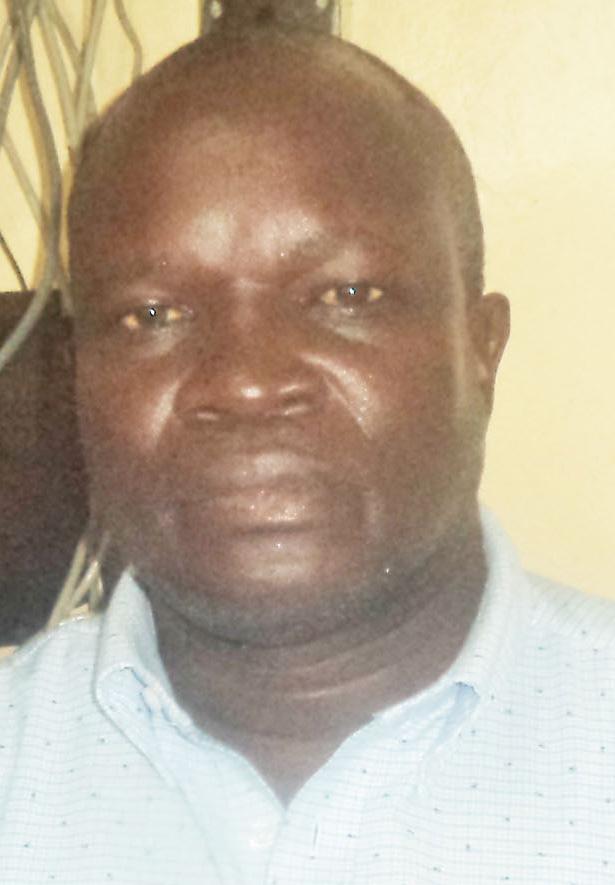
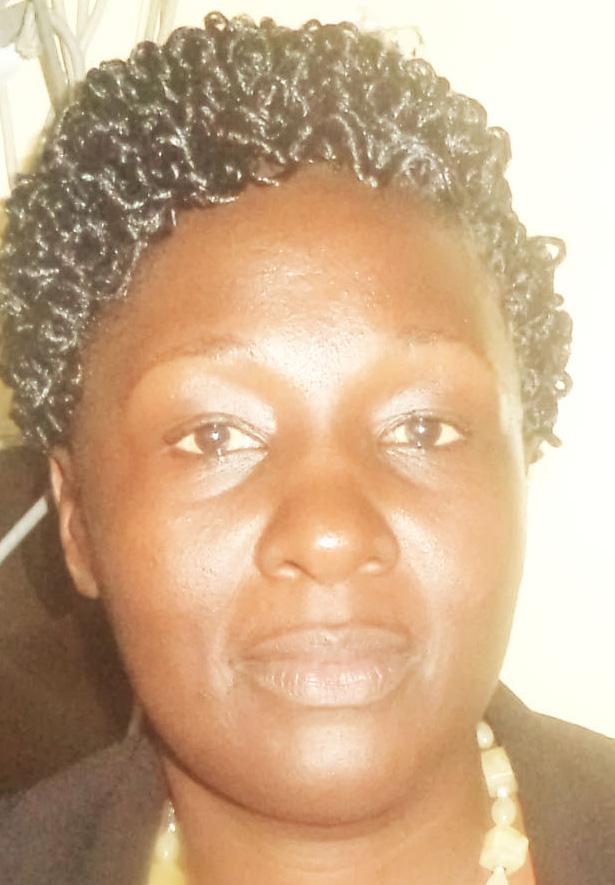
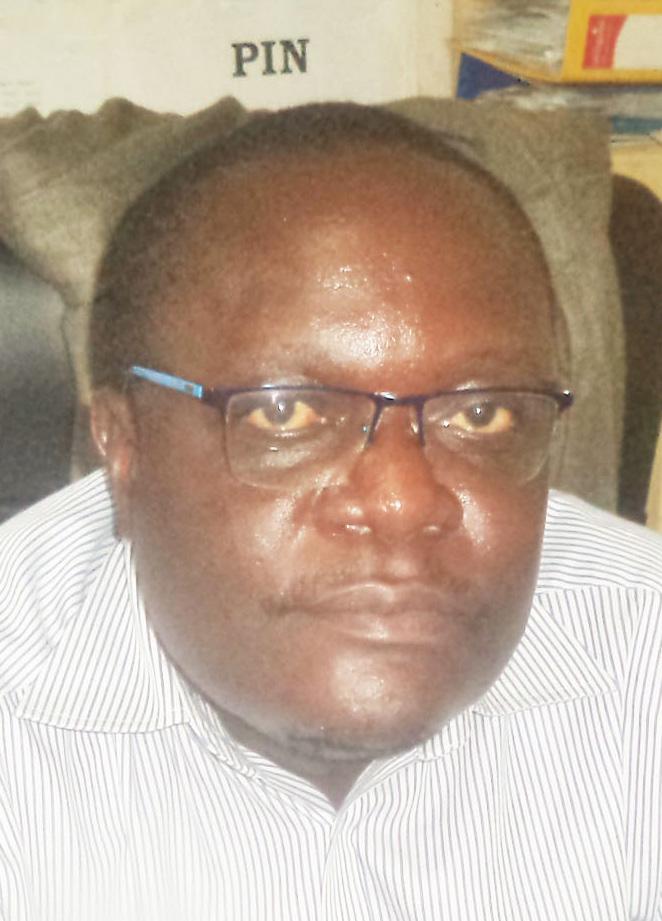
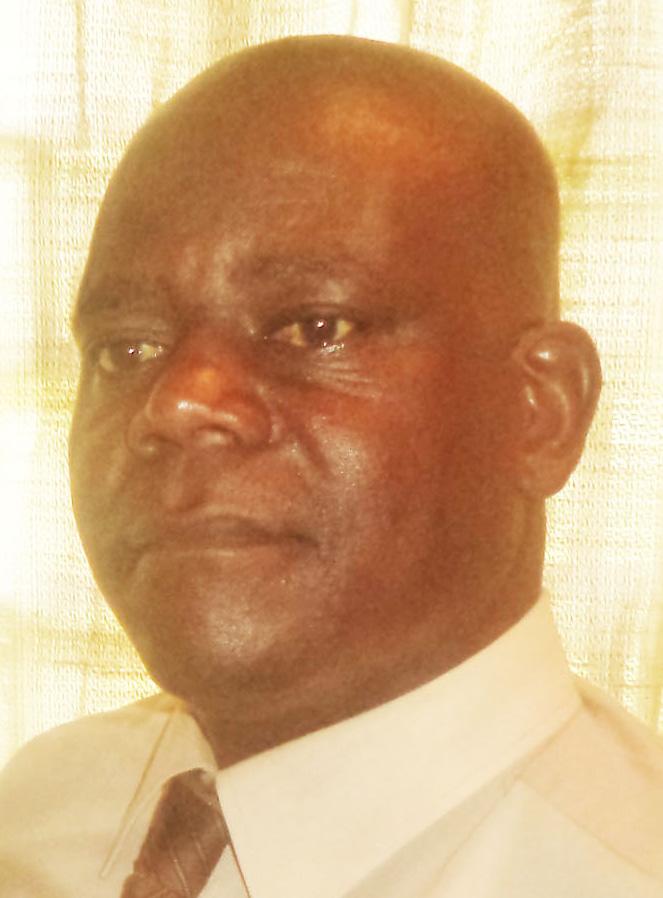

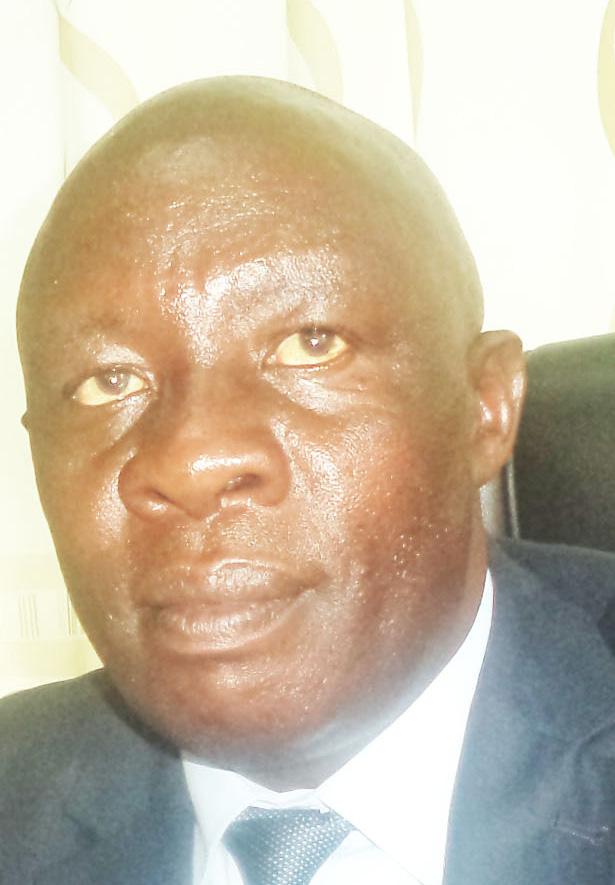
The school is equipped with necessary workshops and tools that help them teach subjects such as power mechanics, electricity and aviation among other technical subjects.
The school managed to record 4 plain As, 41 A minus, 81 B plus, 91 B plain, 59 B minus, 51 C plus, 35 C plain, 18 C minus, 5 D plus, 1 D plain and 1 D minus giving them the mean of 8.48 which is B minus.
The school is one of the oldest learning institutions in the county and is credited with churning out boys who are academically fit and morally nurture who trust in God.
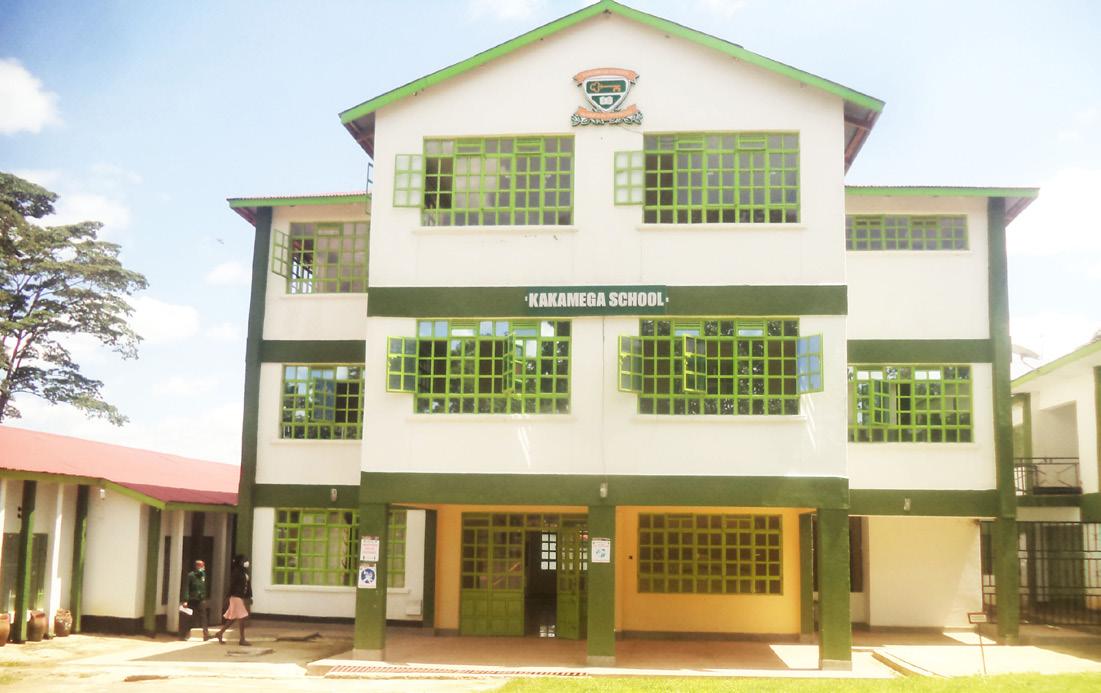
That has enabled them to remain at the top of the county academically
as they also conquer in sports.
The principal said Kakamega School has won the national soccer trophy more than any other school in the country and is main feeder of the national soccer team.
It is also a household name in other sports disciplines like the 15s Rugby in which they were both national and East and Central Africa champions in 2019.
FOCUS ON TOP SCHOOLS
The premier institution was established in the year 1932 under District Education Board (BEB) and has since then remain steadfast in producing boys who are well prepared to join next level in education. - Principal
Kakamega School shines in exams and sports
The principal said the premier institution was established in the year 1932 under District Education Board (BEB) and has since then remain steadfast in producing boys who are well prepared to join next level in education.
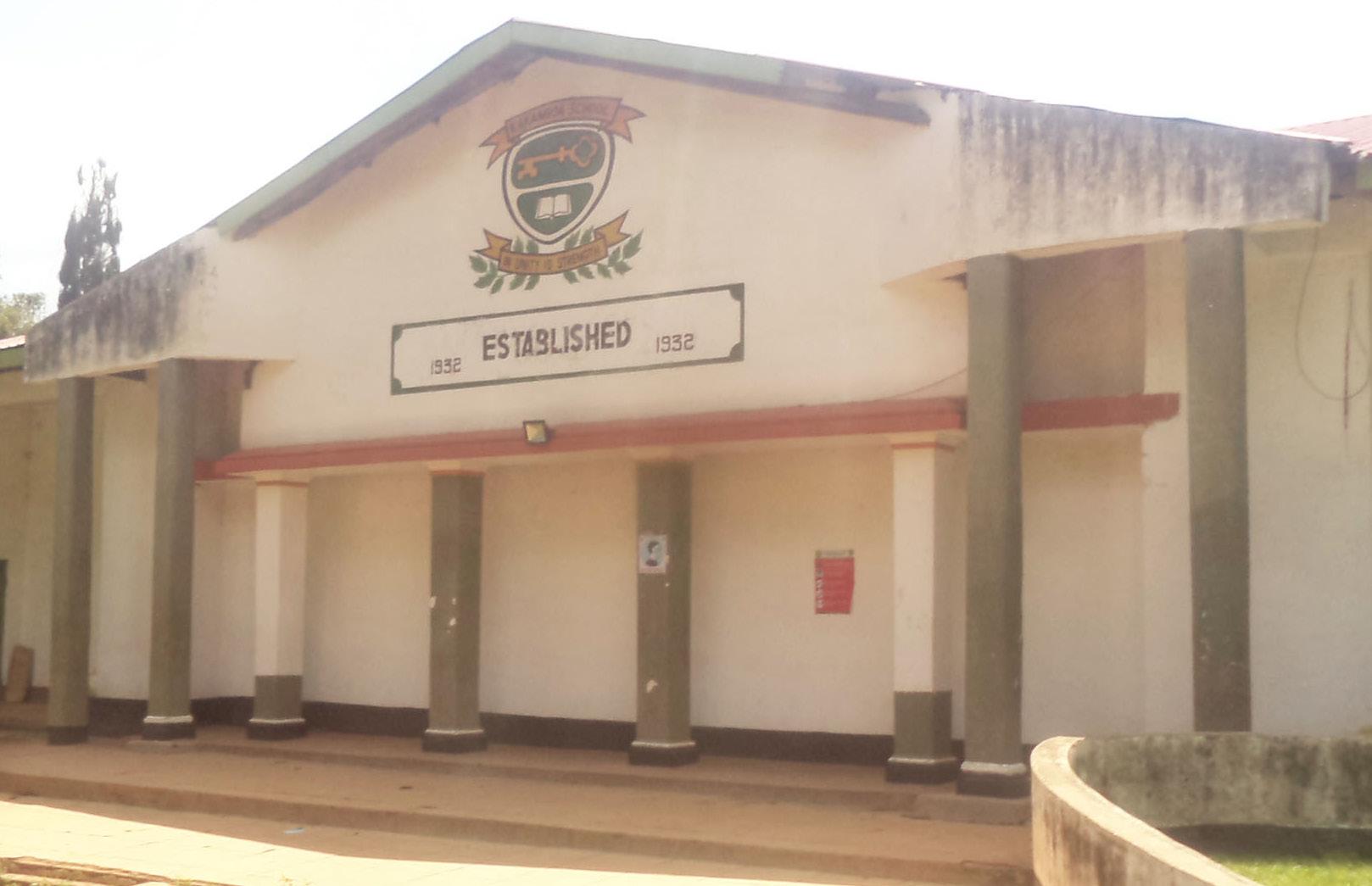
It has population of more than 1600 students in 8 streams and it has done a major facelift on most of its infrastructure, replacing old asbestos roofs and replacing them with iron sheet.
Orina also oversaw the construction of a modern administration block and the school is also planning to erect parameter wall.
EDUCATION NEWS 38 JUNE 1 - JUNE 14, 2021
Chief Principal, Gerald Orina.
Deputy Principal (Administration), Jeniffer Ashene.
Senior Teacher, Francis Odhiambo.
Deputy Principal (Academic), David Sikulu.
Director Of Studies, Julius Msebe.
School Bursar, Festus Olang.
School Administration Block.
School Gate.
Multipurpose Hall.
School conquers persistent flooding to excel in KCPE
Anglican Church of Kenya.
The school initially had a pupil population of 700 but 200 relocated to other schools due to the flooding menace.
The learning institution which is closer to the shore of Lake Victoria has suffered from the effect of the backflow of the lake that has cut off communication to and from the school.
The pupils and teachers risk contracting water borne ailments such as cholera and bilharzia due to lack of hygiene facilities taking into consideration the fact that all the pit latrines and water points the school community have been utilizing have sunk.
By Washington Okella
A school that is prone to annual devastating floods in Busia County surprised many after it performed better in last year’s Kenya Certificate of Primary Education (KCPE) results.
Musoma AC primary school in Bunyala South ward, Budalangi Constituency of Busia County has encountered persistent flooding for decades, but this has not discouraged the pupils plus their teachers from recording good performance in national exams.
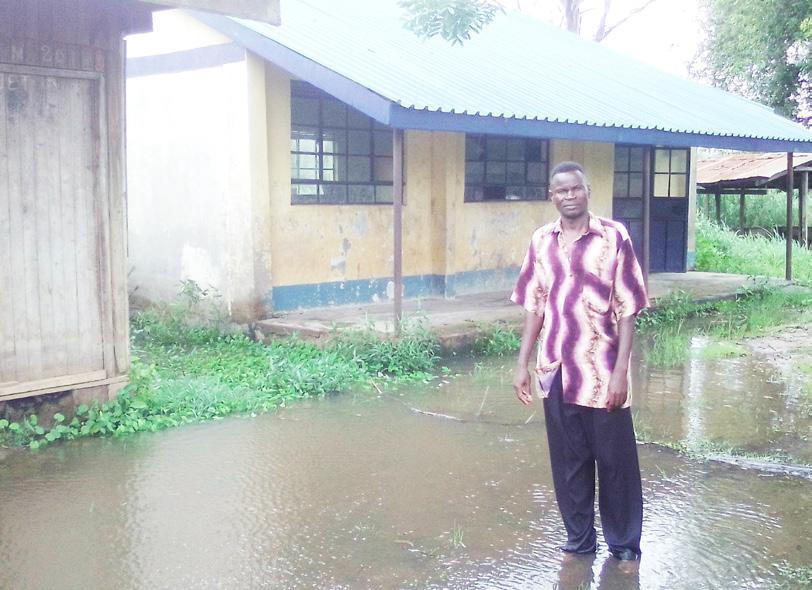
Over the past years, Budalangi and the surrounding areas have been subjected to massive floods displace many families and their children.
The learning institution is in a pathetic and sorrowful situation considering that both the pupils and their teachers have risked their lives by wading through pools of flood waters to reach the school that has been marooned by the flood waters brought about by the backflow of Lake Victoria.
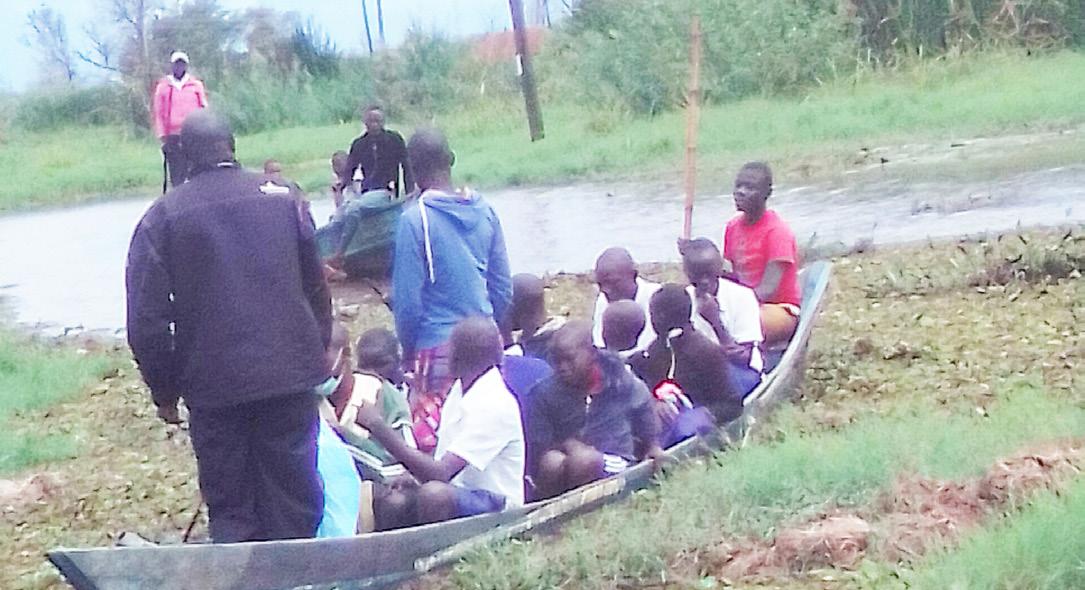
In an exclusive interview with Education News recently, the school head Humphrey Ouma called upon the national government and the county government of Busia as well as other well-wishers to move with speed and rescue the school Community from the flooding menace.
“Musoma AC Primary School has been in existence since the year 1952 under the sponsorship of the
Ouma said despite the challenges undergone, the academic performance of the school has continued to improve.
The learning institution that had registered 62 candidates for the 2020 Kenya Certificate of Primary Education exam stunned the entire Bunyala South ward community and education stakeholders in Busia County at large when it recorded a mean score of 274 despite the school being in classified hardship area.
The school manager is quick to point out some of the key challenges affecting the school which he says if addressed as a matter of urgency will definitely ensure the safety of the pupils.
Ouma pleaded with both the national government and the county
government of Busia to move with speed and construct a footbridge over the swampy school compound so that the pupils and teachers can access the school without endangering their lives.
He also requested for the installation of electricity to enable learners utilised technology.
Ouma thanked a non-governmental organisation known as African Network for the Prevention and Protection Against Child Abuse and Neglect (ANPPCAN) that recently provided the school with two boats to ferry the pupils and teachers to and from school every day.
He also asked the Bunyala Sub County Disaster Management Committee headed by Bunyala Deputy County Commissioner Grace Ouma to provide the desperate pupils with food so as to avoid commuting to school and back daily since the feeding programme will go a long way in enabling the pupils to concentrate on their studies and perform well in national examinations.
Out of 62 candidates that sat the 2020 KCPE exam, 26 candidates scored 300 marks
To offer any support to the school,contact, Musoma Primary School, BOM Chairman, Felix Chitoma, Tel: 0727 070685 Email: chitomafelix@yahoo.com
KUPPET pushes for higher salaries for members
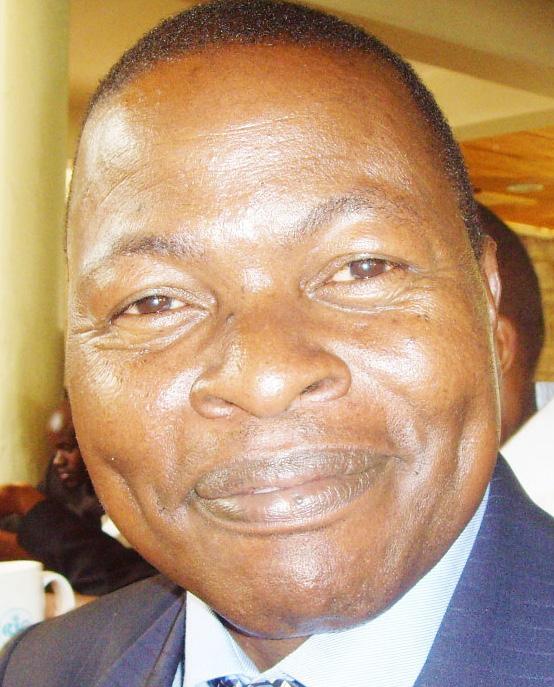 By Roy Hezron
By Roy Hezron
The Teachers Service Commission (TSC) has urged Kenya Union of Post-Primary Education Teachers (KUPPET) to remain patient regarding the new 2021-2025 Collective Bargaining Agreement (CBA).
In a recent communication to the union regarding the CBA, the commission assured the union that the matter will be concluded within a reasonable timeframe.
This gives hope to over 120, 000 teachers who are members of the union.
The union has recently urged the employer to fast-truck the conclusion of the new CBA and table a counter offer as the current one is coming to an end June this year.
The union has grown inpatient after it was assured by the Commission that the new CBA which is expected to run the
next four years from 2021-2025 would be concluded in May 2021 during a recent retreat the union officials held with the employer in March this year in Naivasha.
Kuppet submitted its first proposals on the new CBA on September 6, 2018 where it proposed a 70 per cent salary increment for classroom teachers and 30 per cent for administrators whereby a first meeting between the union and employer regarding the new CBA was in August 2019.
The union further submitted Final Memorandum of Demands (FMD) on November 12, 2019 where there was a retreat between October 29-October 31 which agreed on the framework of negotiation, and further cleared the path for the Kuppet to give its FMD.
If the new CBA could be adopted as it was proposed by the union, it will see over 120, 000
teachers under the umbrella of the union for the first time getting four new allowances in addition to what they enjoy currently under.
The allowances which include risk, overtime, post-
and above with the top candidate recording 374 marks.
Patrick Edali, a class eight parent and a representative of the sponsor, Anglican Church of Kenya attributes the school’s excellent academic excellence to committed teaching staff who had defied all odds to deliver.
“I did not expect our school to achieve a mean score of 274 because majority of our parents and their children had been forced out of their homes”, said Edali.
The school Board of Management (BOM) Chairman Felix Chitoma, an alumnus has launched an initiative dubbed “Adopt a school” aimed at raising the funds that would go towards the purchase of Covid-19 materials like sanitizers, face masks and hand washing materials.
“We are actually reaching out to well-wishers to support the school because the pupils here have no face masks,” noted Chitoma.
This would enable the school to acquire a water tank.
The school has a total of 21 teachers out of which 16 are male and 5 female.
graduate and accommodation allowances will be enjoyed by teachers besides a 70 per cent proposed salary increment for classroom teachers.
SRC recently approved new job descriptions which capture the true work of a classroom teacher after the union submitted them to the employer for reevaluation.
In the arrangement, if it goes through, teachers will for the first time receive risk allowance which for long time the union has been pushing for, considering the latest development in the teaching service where teachers have been for several cases attacked by leaners and terrorists, being exposed to Covid-19 pandemic, and exposure of Science teachers during laboratory practical lessons.
In the proposed CBA, Science teachers will enjoy an allowance of 20 per cent of their basic salaries while the lowest
earning teacher at Grade C2 will take home Sh5, 465 while the highest in the same grade will earn Sh8, 739.
Additionally, teachers will get for the first time Overtime allowance which will cater for any duty undertaken in school past the scheduled time, which the CBA proposes that it be tabulated per hour up to an average of two hours on the maximum.
In addition, teachers assigned duties out of station will now claim accommodation allowance (Per Diem) which will be classified into three clusters, with first cluster including Nairobi, Mombasa, Kisumu, Kilifi, Naivasha, Lamu and Kwale; cluster two including Nakuru, Nyeri, Eldoret, Kericho, Kakamega, Embu, Garissa and Bungoma; and cluster three which will include other areas and towns.
Even in the current allowances, KUPPET is pushing for enhanced allowances for teachers notably on leave, hardship, commuter, house, special school, readers or facilitation, and daily subsistence allowances.
EDUCATION NEWS 39 JUNE 1 - JUNE 14, 2021 NEWS
FEATURE
Musoma AC primary school BOM Chairman Felix Chitoma posing outside one of the flooded classrooms.
Musoma AC primary school pupils being ferried to school in a boat. Photo/Washington Okella
Akelo Misori- KUPPET Secretary-General..
Alarm as more boys fail to sit 2020 KCSE exams
By Roy Hezron
A total of 5, 441 Kenya Certificate of Secondary Education (KCSE) candidates failed to sit 2020 KCSE examination being the highest number to be recorded after 2018 with Mandera, Wajir, Turkana, Garissa and Homa Bay having least number of girls sitting the examination.
According to the 2020 KCSE statistics which were released jointly with 2020 KCSE examination results on May 10, 2021 by Education Cabinet Secretary Prof. George Magoha, the total number of the candidates that were registered for 2020 KCSE examination were 752, 602 and only 747, 161 candidates sat the examination.
The statistics show further that the number of boys who didn’t sit 2020 KCSE examination was
Out of 383, 208 male candidates (boys) who registered for 2020 KCSE examination only 380, 327 did the examination
more by 2, 881 compared to girls who were 2, 560; meaning out of 383, 208 male candidates (boys) who registered for 2020 KCSE examination only 380, 327 did the examination, while out of 369, 394 female candidates (girls) who
registered for the examination only 366, 834 did the examination.
In 2019, a total of 2, 484 candidates failed to do their KCSE examination that is, out of 699, 706 candidates registered only 697, 222 sat their examination that year.
The highest number of those who missed the examination in 2019 were boys by 1,291 compared to 1, 193 girls who missed whereby out of 357, 073 male candidates who registered for the examination that year only 355, 782 did the examination, while out of 342, 633 female candidates who registered for the examination only 341, 440 did the examination.
The statistics further revealed that 2018 was another year where the number of candidates who failed to sit their KCSE examination was higher by 4, 275 candidates where only 660, 204 candidates sat the examination as compared to 664,
Sleeping academic giants wake up in Gusii region
 By Gilbert Kobi
By Gilbert Kobi
Struggling academic giants from Gusii region who have posted dismal performances in the past have posted improved scores in the 2020 KCSE exam results.
The schools that posted impressive results are Riokindo Boys, Cardinal Otunga Mosocho Boys, St Paul’s Gekano Boys and Moi High School Gesusu.
Riokindo posted a mean score of 9.3 to eclipse Kisii High School, Nyabururu Girls and Nyambaria and emerge tops in the region.
School Principal Fred Mogaka said the fight has been long and hard.
All he had set his eyes on since he landed at the school was to bring the institution back on its feet, he told journalists.
“When I was posted here, I found a school in ruins, a skeptic neighborhood and a despairing political leadership,” he said.
He said he had some homework to do to convince them that yes they could do it again.
“And truly God has seen us through this far for the few years I have been here,” said Mogaka, a choir
singer and devout Seventh Day Adventist Church elder.
All the 268 candidates who sat the examination at the school qualified for university direct entry.
The extra County school performance dwarfed that of Kisii High and Nyabururu Girls, both national schools.
Kisii scored 9.02 and Nyabururu had a mean of 7.8.
At Riokindo, Mogaka said the government should earmark the school for the national status.

He said the latest string of
improved performances show a school on the mend and should be allowed to interact with national schools.
The school has a student population of more than 2700.
At Cardinal Otunga Mosocho, teachers said their efforts have begun to bear fruit if the 2020 examination results are anything to go by.
At least 217 students of the 290 candidates that sat the examination got University entry direct grades.
Cardinal Otunga School, a giant in the 1980 and in the 90s has been among the few institutions that have been making gallant fights for a re-entry into the league of top performers in the region.
The school had one A and 11 A- to announce its grand entry into top performers again.
The Catholic sponsored school has seen a high turnover of principals in the recent past.
At one time, the entire school board was sacked for engaging in constant run-ins with new school principals.
One principal was kicked out barely a month after his posting.
A tug of war with the school board and the church saw his quick exit. At Gesusu,
479 total numbers of candidates registered that year.
In 2018, the total number of boys who failed to do their final KCSE examination was 2, 250 since out of the total number of registered male candidates who were 340, 878 only 338, 628 males did the examination, while only 2, 025 girls didn’t do their KCSE examination that years as only 321, 576 female candidates sat f their examination compared to 323, 601 who were registered that year.
It’s only in 2016 that only few boys failed to do their KCSE examination with only 329 male candidates whereby 300, 995 male candidates sat their examination as compared to 301, 324 who were registered that year.
The highest number of those who didn’t sit KCSE in 2016 was girls by 2, 795 since only 273, 130 female candidates did their final
teachers and students broke into song and dance following the good results.
Education CS George Magogha had cited the Extra county school has one among the many schools which performed well though it had taken in students with low marks.
It logged 8 A- and a string of B pluses to enter the ring again.
School Principal Lukas Matiko said all the efforts would be directed to improve the school’s performance to the level of national school.
In Nyamira County, a semblance of normalcy has begun to appear at St Paul Gekano Boys, also a giant of yesteryears.
Nyakemincha Secondary also has been fighting a streak of bad grades.
At least 308 of the 340 students that sat examination would land spots at various universities.
The school was at one time in the tail end of bottom schools in the country sparking fury and comedy in equal measure. Coincidentally, Nyakemincha means the last in local dialect.
Overall, Kebirigo Boys’ High school dwarfed the rest among the national schools, Nyambaria Boys and Sironga Girls to emerge victorious with a mean score of 8.819. Nyambaria had a record entry number of 543 candidates.
examination compared to 275, 925 who were registered for the examination.
Announcing the 2020 KCSE results in Nairobi, Prof Magoha commended the ministry for attaining gender parity, adding that the enrollment of girls in Mandera, Wajir, Garissa and Turkana counties was half that of boys.
“We are going to investigate what is happening to girls in these counties. Are they marrying them too early? Marriage can wait for at least the next 4 years,” Magoha said.
According to Magoha, Taita Taveta, Kwale, Nyandarua, Nyeri, Kirinyaga, Murang’a, Kiambu, Machakos, Kitui, Nandi, Meru, Vihiga, Kakamega and Kisumu counties recorded slightly more girls than boys.
Busia registers improved performance in 2020 KCSE
By Okoth Peter
The recently released 2020 Kenya Certificate of Secondary Education (KCSE) results show that Busia county registered a positive deviation of 0.823 despite Covid-19 pandemic challenges.
The analysis released by Busia County Director of Education Thaddeus Awuor showed that all the seven sub counties, which include Bunyala, Samia, Butula, Nambale, Matayos, Teso, South and Teso North, had positive deviation as compared to 2019 performance.
Samia Sub- County maintained position one with a mean score of 4.986 compared to 4.707 it recorded in 2019, a positive deviation of 0.279.
On the other hand, Bunyala Sub County which tied with Nambale on position three in 2019 with a mean score of 4.156 was ranked second in 2020 after registering 4.419. Nambale retained third position with 4.293.
Butula, which finished second in 2019
COUNTY PERFORMANCE
with a mean score of 4.24 were relegated to fourth position with 4.287.
Teso South which finished last in 2019 with a mean score of 3.835 took fifth position with 4.211.
Matayos took sixth position with 4.078 compared to 3.920 in 2019. Teso North finished last with 3.815 despite recording a positive deviation of 0.2136.
40
ON
KCSE EDUCATION NEWS JUNE 1 - JUNE 14, 2021
FOCUS
2020
NYANZA BUSIA
HIGHEST MEAN in Gusii region posted by Riokindo Boys, followed by Kisii High Shool and Nyabururu Girls with 9.02 and 7.8 respectively. SAMIA 4.986 BUNYALA 4.419 NAMBALE 4.293 BUTULA 4.287 TESO SOUTH 4.211 MATAYOS 4.078 TESO NORTH 3.815
9.3
BUSIA
KCSE 2020: Top schools in Nyanza post good results
By Fredrick Odiero
Academic giants from Nyanza region roared back to stardom following the release of the Kenya Certificate of Secondary Education (KCSE) results by Education Cabinet Secretary Professor George Magoha.
In Kisumu County, Maseno School which had 462 candidates recorded impressive results in the 2020 KCSE after attaining a mean score of 9.5801 up from 9.099 recorded in 2019.
The school Principal Andrew Buop said 24 candidates scored A plain, 121 (A-), 121(B+), 94 (B) 54 (B-), 34(C+), 11(C plain), and 3 with C-. Only 14 out of 462 did not qualify for direct entry to universities.
St Mark Secondary Obambo
Mixed School will take 19 students up from 9 the previous year.
Principal Peter Wao said they expect to do even better this year.
Kochogo in Nyando will take some 10 students to University according to the Principal Evans Ndago.
It was the same case in Homa Bay where top schools reigned supreme. Asumbi Girls High School which enrolled 358 candidates got a mean score of 9.5698 up from 8.5877 attained in 2019.
Out of the 358 candidates, 19 scored A plain while 82 and 101 getting A- and B+ respectively. A total of 77 candidates got B plain with 54 Band 14 scoring C+. Eight candidates managed C plain with three attaining
C- (minus).
School Principal Linet Sati said good performance is a result of great teamwork from the administration and teachers.
St. Francis Rang’ala Girls Secondary in Ugenya with enrolment of 469 recorded a mean score of 8.38, an improvement from 6.78 in 2019. Out of the 469 candidates 435 attained C+ and above according to the provisional results.

The school has 24 candidates with A- while 76 got B+ and 118 scoring B plain. A total of 131 managed B- with 86 scoring C+.
School Principal Susan Akoth said 25 candidates got C plain with nine attaining C-.
The principal attributed the ex-
emplary results to teamwork and commitment from teachers and students as well as support from the parents.
Ramba Boys High School in Siaya County recorded eight A-minus, 46 (B+), 85 (B plain), 109 (B-), 74 (C+), 34 (C), 8 (C-), and one D+.
The school recorded a mean score of 8.085 up from 7.594 in 2019. A total of 322 candidates out of the 365 who sat KCSE secured direct entry to university.
School Principal James Okoyo attributed the good results to God, hard work, commitment from teachers and students, and support from the parents.
He said teachers and students were committed to early and thorough syllabus coverage, revision, and review of syllabus and exam testing.
He said they also used academic propaganda to instill confidence in the candidates.
In 2019, the school had 431 candidates out of which 14 scored A-minus, 44 (B+), 88 (B), 74 (B-), 91 (C+), 72 (C), 33 (C-), 12 (D+) and 3 (D-). Out of the 431 candidates, 311 went to universities
The school attained a mean score of 7.594.
Ngiya Girls High school in Siaya also posted good results with 12 candidates scoring A-minus while 38 got candidates B+ and 64 with B plain respectively.
Ngiya Girls High School recorded a mean score of 7.584 in 2020.
A total of 80 candidates got Bwhile 72 and 54 scored C+ and C plain respectively. The school has 22 candidates who scored C- while 15 got D+ with four scoring D plain. The school had a mean score of 7.05 in 2019. A total of 266 candidates scored C+ and above.
Nyawara Girls High School in Siaya which had enrolled 215 candidates registered an improved result after getting a mean a score of 5.723 up from 4.234 which was attained in 2019.
The school Principal Joan Oguda said 52 candidates have qualified for direct entry to university as compared to 29 in 2019.
She attributed the exemplary performance to God, team work, commitment from teachers and support from parents.
Barding High School from Siaya with enrolled 318 candidates recorded a mean score of 5.95. School principal Kaunda said a total of 103
9.5801
By Enock Okong’o
Kenyenya Sub-County teachers have been lauded for establishing a welfare association that comes to the aid of members during times of hardship.
Speaking at Kiru village in Kisii County, Kakamega North Sub county Quality Assurance and Standards officer Geoffrey Otwabe commended the Kenyenya Sub-County Secondary schools Association for their unity and assisting one another with finances in times of need.
The Association’s chairman Dennis Mwebi said the Kenyenya Teachers’ Welfare
Association started 10 years ago with only 15 members but it had expanded to 554 teachers.
He asked those who have not registered with the welfare to join it.
He asked all community policing groups and clan elders to report to the police any parent who did not take their children to school especially the day schools that do not charge them much money.

“Secondary Day schools are free, therefore, there should be no excuse for parents keeping their children at home,” he noted.
candidates scored C+ and above.
St Joseph Rapogi School in Migori with 417 candidates had two candidates with A plain, A- (39), 67 (B+), 77 (B), 72 (B-), C+ (83), C (58), C - (19), 5 (D+) and one D plain. The school recorded a mean score of 8.272.
St Albert’s Ulanda Girls High from Migori which enrolled a total of 529 students only had 17 students missing out on direct entry to the university.
The result exhibited that 99.63 per cent managed to get C+ and above even as the school achieved a mean score of 8.5331, against 6.6639 realised in the previous exam.
Ulanda had 19 candidates scoring A- with 61 and 210 getting B+ and B respectively. A total of 172 candidates scored B- while 67 getting C+. The school has 13 candidates with C and while 3 got C-.
New tea factory directors to support education
By Our Reporter
The newly elected director and chairman of Ogembo and its twin Eberege tea factory Ombasa Omweno has said his board of directors will support education.
The director was addressing more than 3000 tea farmers at Tende Sports Ground in Kisii County during their swearing in ceremony.

He said the factories have not been giving education bursaries to the bright students from poor homes consistently for unknown reasons.
The director told parents to avoid child labour because it diverts the interests of the child from book work.
Enock Oriendo who is one of the new directors said he will use his teaching and financial experiences to encourage farmers to join co-operatives to enable them get loans for their agricultural activities.
Oriendo who is a retired high school teacher caused light laughter when he challenged them to change from the old ways of thinking that agriculture is the backbone but instead to see it as the oxygen of the country.
EDUCATION NEWS 41 JUNE 1 - JUNE 14, 2021 KISUMU
KISII KISII NYANZA
Nyawara Girls’ students celebrate the KCSE results. Photo/Fredrick Odiero
Mr Ombasa Omweno, Director at Ogembo-Eberege Tea Factories.
Photo/Enock Okong’o
Teachers’ welfare group lauded
Mr Geoffrey Otwabe, Kakamega North Quality Assurance and Standards officer.
HIGHEST MEAN recorded in Kisumu County in KCSE 2020 scored by Maseno School.
Kaptagat Girls aims high after 74 qualify for university
The school has a vibrant Board of Management, 49 Teachers Service Commission teachers and 10 employed by the board who teach a a student population of 1053.
Being a Catholic sponsored school, it observes all the doctrines of the church by attending Wednesday and Sunday mass services which inculcates more discipline among the learners. Kaptagat Girls participate in many co- curriculum activities and has excelled in various disciplines up to the national level.
Chief Principal Florence Natembeya Chenane revived the


Natembeya said the students’ respect towards teachers is immeasurable and a lot of consultation is done between teachers and students.
“I have introduced a formidable academic team comprising of staff members, students and parents that does follow-ups in all academic programmes in school always,” shared Natembeya.
Teachers and students are also highly motivated by board members and the school administration.
The Principal added that being an extra county school, it is in the pipeline to be elevated to seven streams because of the growing population.
By Leonard Angatia
Song and dance rent the air at our Lady of Glory Kaptagat Girls as the school community celebrated the good performance exhibited by 197 candidates who managed to produce a mean score of 6.18 in last year’s KCSE exams.

That was an improvement from 5.19 of 2019 with 74 candidates scoring C+ and a above and booking direct university entry slots.
Our Lady of Glory, Kaptagat Girls High school is one of the boarding schools located in Kaptarakwa location,Chepkorio division,Keiyo South sub- county in Elgeyo Marakwet county.

It is situated on 30 acres piece of land in Kaptagat forest, which also act as a scintillating and conducive environment sfor learning.
The school has maintained good performance in national examinations and was ranked among the best schools in the county in the 2020 KCSE examination.

drama club after joining the school and students have participated in competition to the regional level scooping various awards.
Given that co-curricular and academics gel together, it is no wonder that the school is performing well.
The School’s motto is “commitment to excellence” and so teachers work very hard and the entire staff put trust in God.
Mystery Mwandije, Deputy Principal.
She urged Ministry of Education to increase the infrastructure grant to all schools in order to complete the stalled projects.
“TSC is doing well depending on the mean budget given by Ministry but we expect them to hire more teachers,” reiterated Principal.
Deputy principal Mystery Mwandije said that the main secret at Kaptagat is trust in God, focus on academics and they expect massive improvement in years to come if all factors remain constant.
“ Students to work like there is no any other day,” said an encouraged Mwandije.

K.C.S.E ANALYSIS TABLE
EDUCATION NEWS 42 JUNE 1 - JUNE 14, 2021
Florence Natembeya Chenane, Chief Principal.
Administration Block.
Students in a Biology theory class.
Teaching staff.
Main entrance to the school.
ON
The school has maintained good performance in national examinations and was ranked among the best schools in the county in the 2020 KCSE examination.
FOCUS
TOP SCHOOLS
Meteitei celebrates top KCSE grades

embark on revision in preparation for examinations.
Discipline which is mandatory in school with no compromise for any student, and the culture of teachers not conceding defeat has pushed everyone to go an extra mile in achieving the best.
Principal Too added that their burning desire was to improve performance through excellence.
“We have performed well especially in Biology which has been elusive since 2018. It is a coincidence that our mean score target last year was 8.8 and that is the exact score we have now,” a surprised principal stated.
By Leonard Angatia
Meteitei Boys High School
located in Nandi County, Tinderet constituency maintained its good performance in the Kenya Certificate of Secondary Education (KCSE) examinations.
The school posted good results to rank among the best in the country at position 44 in the 2020 KCSE exams, emerging the second best boys school in Nandi County behind Kapsabet Boys High School.
With a mean score of 8.8, an improvement from 7.1 in 2019 which was a positive deviation of 1.702, the school managed to get direct university entry for 219 students out of the registered 225 in last year’s class.
Meteitei had a 97% university transition which has seen its performance prowess move to greater heights.
Although none of the candidates scored A plain grade, 14 emerged with A-, 45 B+, 82 B plain, 57 B-, 21 C+ and only six getting C plain.
Meteitei situated in the picturesque hills of Tinderet, is an extra-county school with 1240 students in six streams per class, handled by 53 teachers employed by the Teachers Service Commission (TSC) and four by the Board of Management.
Senior Principal Barnabas Kipkirui Too said hard work by students and elaborate programmes that control every individual to do what is expected in school contributed to the schools good performance.



Syllabus coverage is done by February of every year in all classes, after which they
tuition and boarding sections and urged the Ministry of Education to consider assisting schools in those areas for better performance in years to come.
“After Covid-19 outbreak last year, we introduced psycho-social support through counselling of our candidates to bring their minds back to school,” noted Too.
He said Covid-19 affected the entire system and encouraged students and teachers across the country to adhere to Ministry of Health protocols.


He added that they have worked on tail grades whereby the last candidates only six students got C plain.
The Principal challenged the current form four class to emulate their predecessors and even do better.
However, he shared the main challenge is inadequate infrastructure especially in
EDUCATION NEWS JUNE 1 - JUNE 14, 2021 43 FOCUS ON TOP SCHOOLS
Mr Barnabas Kipkirui Too, Senior Principal.
Dr Kapting’ei Solomon, PA Chairman.
Hard work by students and elaborate programmes that control every individual to do what is expected in school contributed to the school’s good performance.
-Senior Principal Barnabas Kipkirui.
97% university transition
14 emerged with A-, 45 B+, 82 B plain, 57 B-, 21 C+ and only six getting C plain.
Teachers of Meteitei Boys led by Principal Barnabas Too on the left and Deputy principal Elijah Odera on the right pose for a photo.
Nandi CDE Zachary Mutuiri addressing students when he paid a courtesy call on Meteitei Boys.
Advocate Paul Lilan BOM Chairman.
BOM members and Principal Barnabas Too on the left front row pose for a photo.
Anin Girls makes big strides in infrastructure to enhance academic progress

 By Dennis Bett
By Dennis Bett
Joy and ululations filled Anin Girls secondary school in Keiyo North Sub-county, Elgeyo Marakwet county earlier on this month when the school registered progressive results in KCSE to become the second best school in the county.



The school which is tucked in the hanging valley of Elgeyo escarpments offers a scenic and conducive environment for learning. Over the years, the school has managed to register all round progress in terms of enrolment, infrastructure, academic performance and cocurricular activities
Speaking during the release of the results at school level, the principal Ms. Esther Kibor attributed the all round success to cooperation among the stakeholders, team work among the teachers and great discipline exhibited by the students.
Over the last four years, the school’s infrastructure has improved tremendously owing to the support from the Ministry of Edu-
cation and NG-CDF Keiyo North as well as the parents. The school is currently putting final touches to
a 300 capacity multi storied dormitory. This facility, the principal said will go a long way to alleviate the challenges of accommodation. Other facilities already funded by M.O.E include a modern chemistry laboratory. Owing to the shortage of classrooms, the school has been innovative enough to erect tents which help a great deal. In adequate classrooms is the major challenge

facing the school now. However plans are underway to put up a tuition block as soon as funds are available.
In terms of enrolment, the numbers have really gone up as a result of the 100% transition policy by the government. This has seen the school expand from two to four streams within a short time. The school is also well staffed with six Senior Masters who are substantively appointed by Teachers Service Commission. They help in management issues as well as tracking the teaching and learning activities going on in the school. This enhances the timely and adequate coverage of the syllabus. Learnerteacher contact hours have been enhanced due to close supervision.

The principal also observed that the students faced a lot of challenges during the seven-month stay away from school as a result of the Corona pandemic. To mitigate against these challenges, the school organized a lot of forums to offer social and emotional support to learners. The school has a strong Guidance and Counselling Department which works closely with the sponsor ,AIC under leadership of Bishop Dr. David Kipsoi to see that learners negotiate life’s challenges successfully.
Present during the occasion
were the Chairman Board of Management, CPA Andrew Kipchoge, B.O.M members and parents. The B.O.M chair CPA Andrew Kipchoge reiterated the Board’s commitment towards attaining the mission and vision of the school. He reiterated that his team comprised of committed and visionary members who are set to give back to the community by investing in the school. He lauded the work done by all the stakeholders to ensure that Anin Girls continues to deliver on its mandate
44 JUNE 1 - JUNE 14, 2021 EDUCATION NEWS
Staff and students celebrating the best student Abigail Ng’etich.
Ms Esther Kibor, School Principal.
Students celebrating
Some of the members of teaching staff pose for a photo.
300 capacity dormitory under construction with funding from MOE and Keiyo North NG-CDF kitty.
Students outside the school’s modern chemistry laboratory constructed by Ministry of Education.
FOCUS ON TOP SCHOOLS
The school receiving chairs and desks from the MOE, under the economic stimulus package.
My hunch uncovers miscreant who poisoned fish pond
The other day I told you about the school fish farming project and the woes that has been bedeviling it.
Sometime back, an unknown sadist poured paraffin into the water, killing all the fish.
My investigations did not bear much fruit. In any case the project falls under the ambit of Napoleon the Agriculture and Biology teacher.
After that the matter was laid to rest.
However, the project seemed to be suffering many setbacks even after the school administration sought to revive it.
This time round, we sent Napoleon to purchase a fresh batch of tilapia fingerlings so that they could be reared, possibly for local consumption as well as performing basic experiments in the Biology and Agriculture labs.
But being the eccentric that he has been turning out to be, Napoleon was duped by some
unscrupulous fellows by being sold tadpoles instead of fingerlings, most likely while under the influence of something intoxicating.
Obote could have skinned him alive were it not for my intervention.
You might let that pass as water under the bridge, but believe you me, after persisting on the project till some new fish stock was planted in the ponds, either the same witch or someone with similar intentions, sneaked to the fish pond and poured diesel in the water.
Cases of indiscipline have been on the rise in many schools in the country, and I promptly raised the matter with the school principal, believing firmly that the fellow doing these heinous acts was within the student fraternity.
"The chaps doing this evil thing on our school fish farming project must be unearthed and punished. You never know
By Pascal Mwandambo

next time they may burn down the school property. If they can secure diesel and paraffin to kill the fish, nothing can stop them from engaging in arson if they want to”, I told Obote. I could see the concern in his eyes.
TSC set to start biometric registration of new teachers
By Roy Hezron
New teachers who will be joining the Teachers Service Commission (TSC) will now be required to undergo the biometric enrolment before entering the commission’s payroll.
This is an effort to create a database for teachers and easily tracking those involved in examination irregularities.
The commission launched a pilot phase of biometric enrolment and validation of teachers on May 17, 2021; targets teachers in 143 institutions spread across 7 counties namely Uasin Gishu, Homa Bay, Bungoma, Nyeri, Kilifi, Kitui and Garissa.
TSC Director of Administrative Services Ibrahim Mumin, who oversaw the launch of the exercise at the Nyeri Boys High School on May 17, 2021, said there is need to maintain an up to date data of teachers stating that the information captured in this process will create a database that will help inform the government in decisionmaking.

Mumin added that the data will help in verifying teachers’ distribution and utilization, validate enrolment in public schools and also validate teachers’ bio data and
employment records while still establishing areas of specialization.
The TSC director stated that the exercise is a multi-agency exercise that involves different government agencies and the pilot will guide the national roll-out.
The data to be verified includes the identification details of the teachers, letter of appointment, People living With Disabilities (PWD), certifications if any, and academic certificates that are run against preloaded data from the Integrated Personnel Payroll Data (IPPD).
The process involves captur-
ing the fingerprints of teachers, validation of personal employment data, and taking of passport size photos.
During the release of 2020 Kenya Certificate of Secondary Education (KCSE) on May 10, 2021, TSC Chief Executive Officer Dr. Nancy Macharia stated that the commission will launch a transparent process of biometric enrolment and validation of teachers in public schools to curb irregularities.
According to Dr. Macharia, the process will entail enlisting their fingerprints which will allow for forensic and intelligenceled investigations in cases where examination papers are tampered with, and where cell phones and other gadgets are used to commit examination malpractices.
The use of biometric validation will also assist in vindicating innocent teachers from being blamed for offences they did not commit.
“After initial consultations within and outside of the Commission, we have resolved to devise a waterproof system that will help us to accurately detect, identify and apprehend perpetrators of examinations fraud while protecting innocent teachers whose gadgets may be misused,” said Dr. Macha-
"But so far no one has been identified. You need to work with Napoleon and get the culprits so that the laid down disciplinary machinery can be put into use”, said.
"You know very well as I do that I cannot raise a problem that I have no idea about”, I told the principal.

"My intelligence has unearthed a form three student called Kiraka. He has been pouring the fuel in the water deliberately to kill the fish”, I alleged.
"But why would he do that?" the principal asked, visibly concerned.
"We cannot know that for sure unless we summon the culprit and grill him. You never know what goes on inside criminal minds”, I said emphatically.
After serious deliberations, we decided to grill Kiraka the three of us, that is Obote the principal, Napoleon and myself.
The fact that the cane has been outlawed in schools did
ria. She added further that “We think this will only be possible if investigators can examine and conduct a forensic analysis of the fingerprints of the people who tamper with examination materials.”
According to Education Cabinet Secretary Prof. George Magoha, after four years of a sustained and relentless campaign to fight the practice of leaking national examinations, the menace has been “completely eradicated”.
He attributed the success to a robust security-led system of delivering examinations directly to the (examination) containers before dispatching them to various centres.
“We recorded isolated cases where some people entrusted to safeguard the examination papers went ahead to open them in the morning of the actual date of examinations once they have been dispatched from the containers,” said Prof. Magoha.
During the administration of the 2020 KCSE examination, a number of cases were reported to Kenya National Examination Council alleging that some teachers contracted either as Centre managers, supervisors or invigilators were involved in an unethical behavior of opening the examination papers as soon as they are released from the containers.
In one of his statements in early April when the 2020 KCSE examinations were on going, Prof.
not mean that we could tolerate criminal and disgruntled elements to get a foothold in our institution.
Kiraka had tried to put up a spirited self -defense but eventually he yielded.
He admitted pouring the fuel in the pond to kill the fish but was hard pressed to explain why he had that sadistic inclination.
"If this student is allowed to stay in our midst next time he may even use the fuel to burn school property and even kill his colleagues”, I opined.
The principal bought my assertions and decided that the boy goes back to class as appropriate disciplinary measures were being worked out.
Before that, we needed to investigate who had been supplying him with the fuel so that they can also be punished accordingly.
Magoha revealed that a total of 11 examination officials including Centre managers, supervisors and invigilators were arrested over attempts to expose some of the KCSE examination papers.
Those who were arrested include a Centre Manager and a Supervisor in John Mbadi Centre in Suba sub-county in Homabay County; a Centre manager in Adega Mixed in Rachuonyo sub-county in Homabay County; and a Centre manager and two supervisors in El-Hagarsu Mixed in Mandera sub-county in Mandera County.
Others who were arrested include a Centre Manager and two Supervisors in Kerongorori Mixed in Kenyenya sub-county in Kisii County; a Centre manager in Huda Secondary in Fafi sub-county in Garisssa County; and a Centre Manager and a Supervisor in Moro Secondary in Nyakach sub-county in Kisumu County.
The exercise was initially scheduled to commence in May 2020 but it was shelved due to the Covid-19 pandemic that led to the closure of schools.
Data for teachers in special programs as well as for curriculum support officers in all zones will also be captured during this exercise which is also expected to be rolled out nationally between August/September.
The exercise will also reveal teacher distribution based on subject combinations and will unearth staffing gaps that will inform training needs for various subject areas
45 JUNE 1 - JUNE 14, 2021
TSC Director Administrative Services, Ibrahim Mumin. Photo/Staff Reporter
FOCUS ON TOP SCHOOLS
Butere Girls emerges top in Kakamega
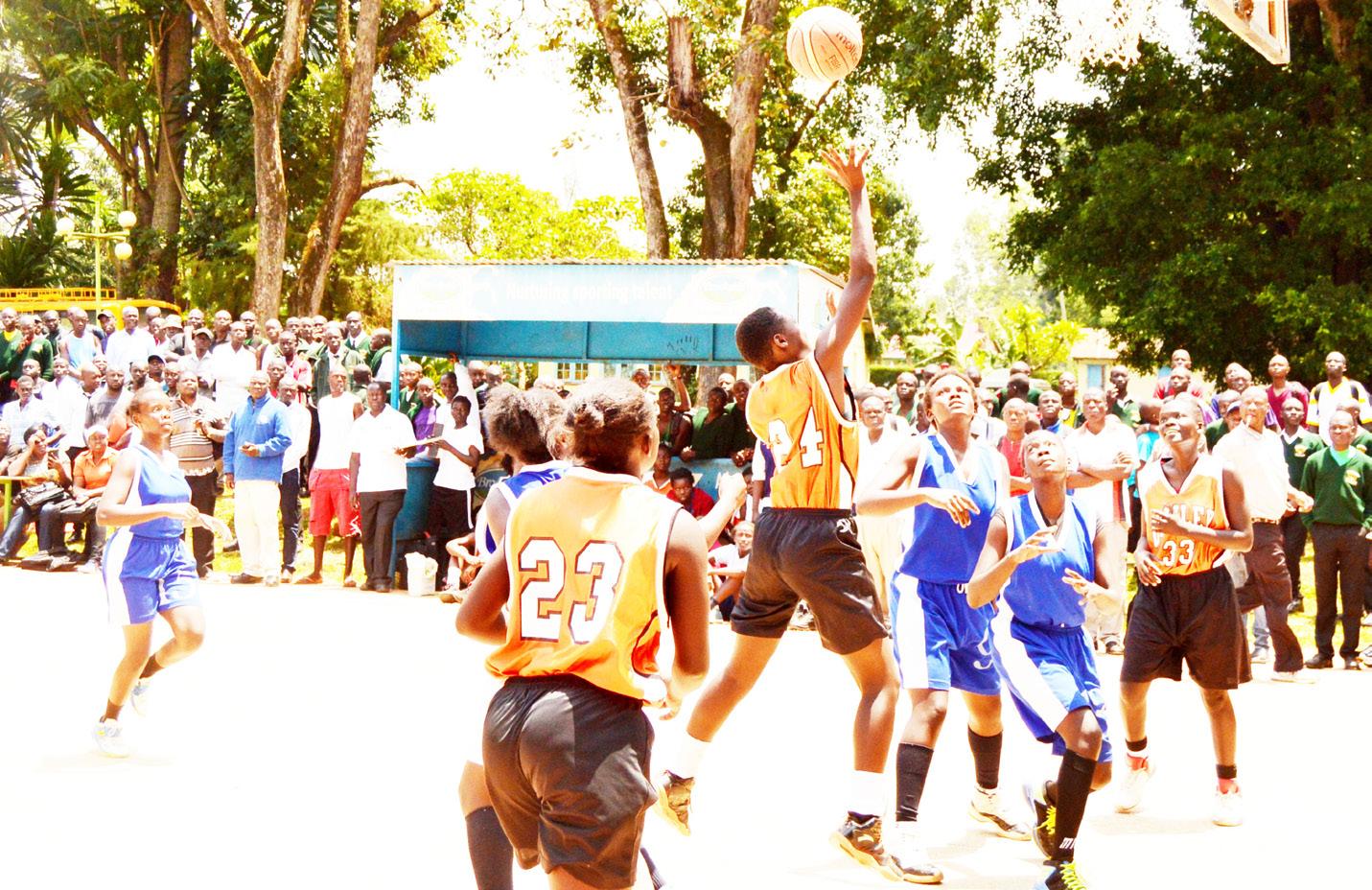
dents that we registered,” said Omondi.
The school registered 5 A plains, also highest in the county, 71 A minus, 128 B plus, 102 B plain, 87 B minus, 55 C plus, 16 C plain, 7 C minus, and 4 D plus grades which translated to 94.3 transition rate.
Omondi said the school managed to surpass the target they had set and assured parents that they will work hard to maintain the standards they have set.
By Shiichangi Richard
Butere Girls High School beat all schools to emerge top of the log in last year’s Kenya Certificate of Secondary Education (KCSE) exams in Kakamega County.
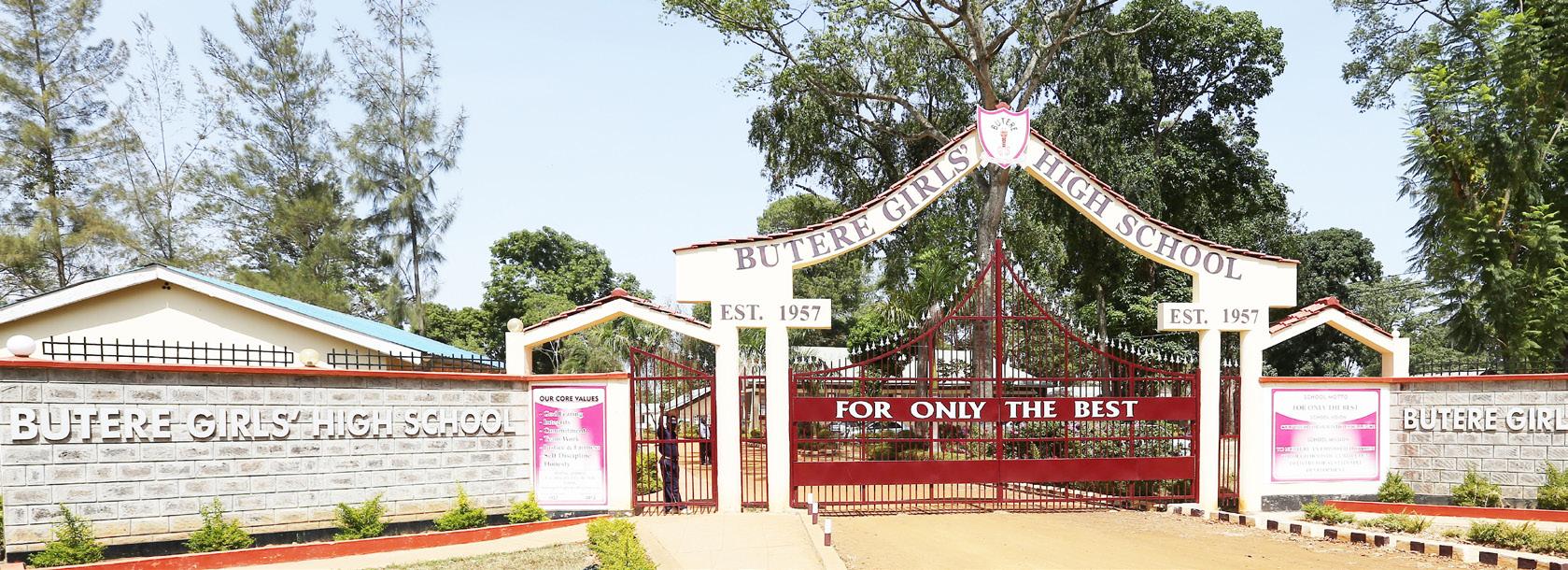
Chief Principal Jenifer Omondi said the school com-
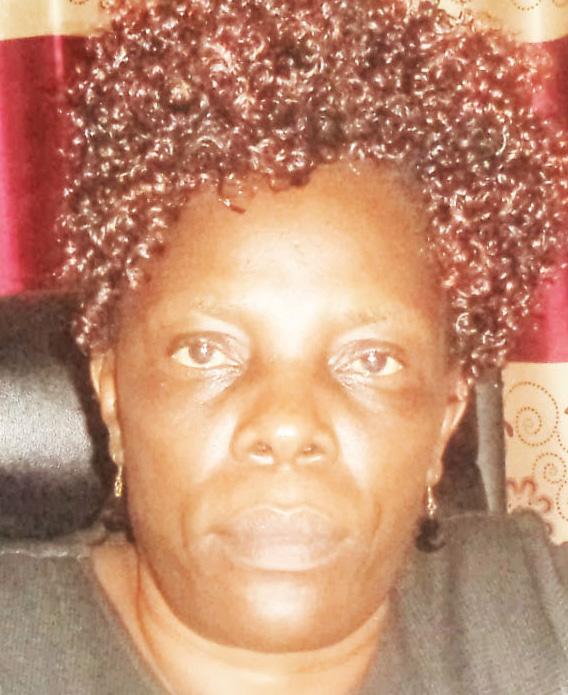
“I’m grateful to the teaching team which is a committed lot that are up to the task at hand led by my two deputies Mrs Serem in charge of administration and Mrs Everlyn Simango (Academic Affairs),” said Mrs. Omondi.
She also hailed the contribution of the school management team led by Board of Management (BOM) chairperson Grace Nyongesa in the success of the school.
The school was established in the early 1930s by Jane
country at large because Butere was credited with churning out girls that are well groomed for the next academic level.
According to Omondi it was the year 1957 that the school attained Secondary status and since then it has remained a force to reckon with in the academics and sporting worlds.
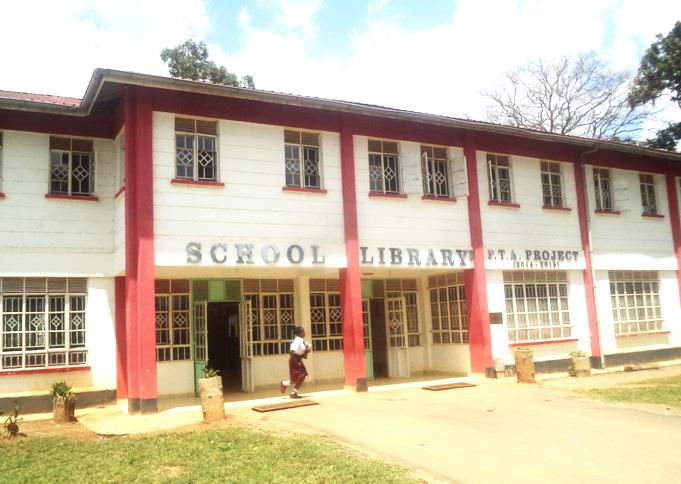
Commenting on the recently released KCSE results, the Prin-
The school registered 5 A plains, also highest in the county, 71 A minus, 128 B plus, 102 B plain, 87 B minus, 55 C plus, 16 C plain, 7 C minus, and 4 D plus grades which translated to 94.3 transition rate.
liam Ruto. They have helped the school change its infrastructure facilities and launched serious mentorship programmes for the girls besides having a scholarship kitty for vulnerable students.
The premier school has a student population of more than 2000 spread in 10 streams and is also constructing a new multipurpose hall estimated to host more than 2000 people at a time.
It also boasts of having tar-
macked walk ways which has enhanced girl’s cleanness.The school has also constructed a multi-million perimeter wall to improve the girls’ security.
The head noted that she has also managed to construct eight classrooms and put up modern ablution block for the teachers and she is currently constructing a tuition block that will host classrooms and departmental offices.
munity was proud of the results which improved from a mean score of 7.4 in 2019 to 9.2 last year.
“The number of university entry increased drastically with 447 getting grade C+ and above to qualify out of the 474 stu-
Elizabeth Chadwick an Anglican Missionary and became a place where girls gathered to learn how to read, write and do arithmetic besides acquiring religious education.
It became one of the most celebrated institutions not only in Kakamega but across the
cipal praised God for enabling them record sterling results which she attributed to the effort of all stakeholders.
The head observed that the school is also blessed with vibrant alumni body under the patronage of Rachel Ruto the wife of Deputy President Wil-
EDUCATION NEWS JUNE 1 - JUNE 14, 2021 46
Main gate to Butere Girls high school in Kakamega County.
School library.
GIRLS HIGH SCHOOL P.O.Box Private Bag, BUTERE - 50101, Tel: 0716 377733 Email:buteregirlshighschool@yahoo.com A 5 A - 71 B+ 128 B 102 B - 87 C+ 55 C 16 C - 7 D+ 4 D 0 D - 0 E 0 MEAN 9.002 % PASS 94.3 ENTRY 474 DIRECT UNIVERSITY ENTRY 447
Chief Principal Jennifer Omondi.
BUTERE
Basket ball teams Mukumu Girls VS Butere Girls during a previous Kakamega County Term one games. Butere Girls is a sporting powerhouse.
Emmanuel Namunyu Memorial High School posts best KCSE results among private schools
way back in 2013 is a centre of excellence for many focused students from the whole of Western region and beyond. The school whose motto is: Use God's Knowledge posted the best performance among private schools.
Speaking to Education News his office, Wesley Wanjala Namunyu, the director of the institution said that the school has a population of 250 students all enrolled as boarding students.
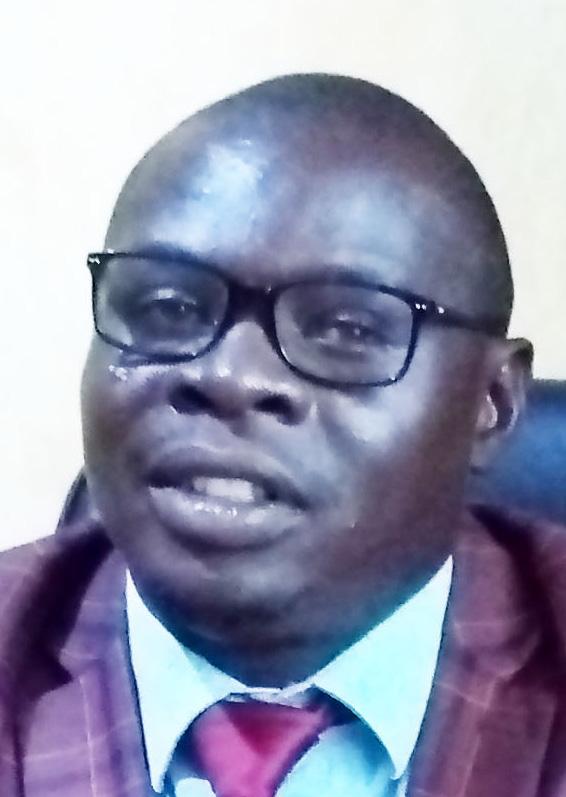 By Tony Wafula
By Tony Wafula
Emmanuel Namunyu
Memorial High School in Kabuchai constituency Bungoma County that was started

In 2020 Kenya Certificate of Secondary Education (KCSE) the school posted stellar results with a mean score of 5.63.
He said the school targets a higher mean in this year’s national exam.
“We have put strategies in
place among them early syllabus coverage to ensure that we outshine other schools,” he said.
He said in 2019 the school was able to send 16 students directly to university, but due to the raging pandemic the number dropped to 14 in 2020.
"Covid-19 affected the economy of our country as well as the education sector, we were aiming to take more students to universities," he said.
He said that the school has been doing well since it was opened by his late father Emmanuel Namunyu. It admits students with 250 marks and above. He, however, lauded the area MP for continuous support of needy families and


potential learners.
He affirmed that the school guided by strong faith and tenets of Church of Hope and Light Ministries. The church provides the school with spiritual nourishment.
“It has scheduled masses on Wednesdays in the evening and Sunday in morning. In the church students are guided on good morals and also encouraged to seek spiritual nourishment," he added.
He said has spacious dormitories to accommodate students, adding that the school has employed enough security guards who secure the place.
The institution is supplied with clean water and students with medical conditions are provided with special diets.
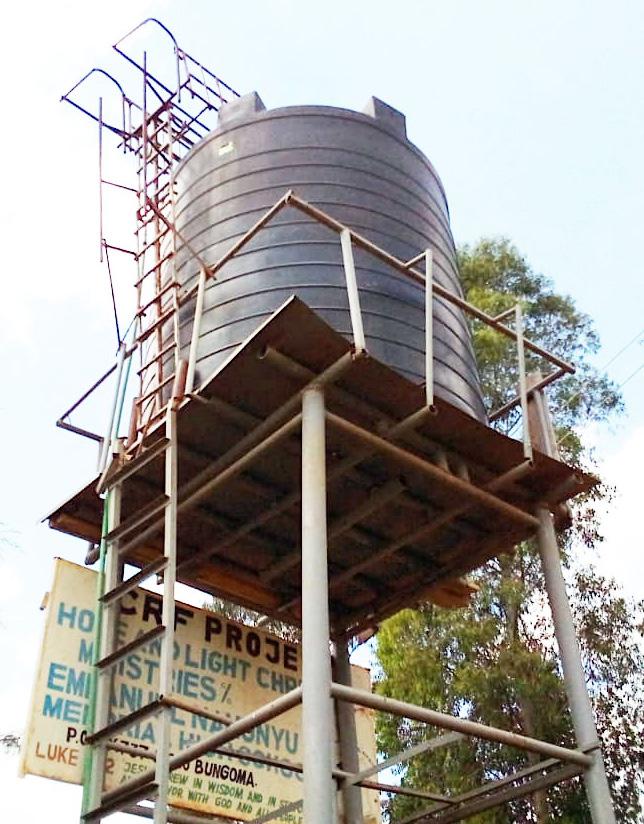
He urged parents to pay fees in time to give the management easier time in running the institution. He said that the school has enough teachers who ensure that students are utilizing their time
well.
The school is supplied with a strong and fast network with digital computers that give computer teachers easy time in handling students and has enough books for the students.
On her part, the School Principal Clare Bitali affirmed that the school is determined to continuously post good results.
“For those who come from far the school provides them with free accommodation during admission day,”she added.
Lwanda Secondary celebrates best KCSE results
By Shichangi Richard
Lwanda Secondary School students, teachers and parents burst into song in celebration after the release of this year Kenya Certificate of Secondary Education when the school realized that one of their own had attained the coveted A plain mean grade.
The little known Lwanda secondary in Kakamega East sub county surprised many academic heavyweights in the county by recording one A plain grade out of ten that were registered in the county.

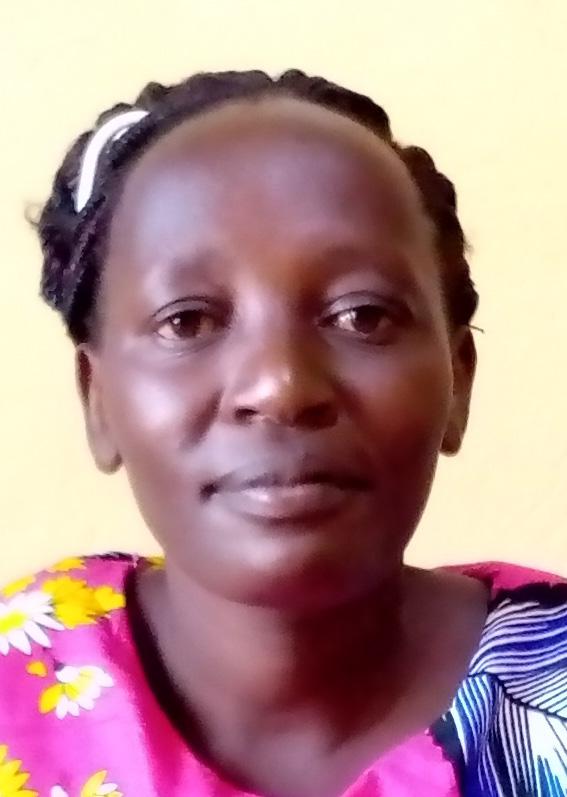
The School Principal, Mr Ferdinand Mbiti was full of praise for the candidates and the teachers for work well done. “I thank the Almighty God for having enabled the school record its first A plain grade since inception of 8-4-4 system,” he said. He also commended Master Robinson Makenzia, the candidate who scored the grade for making the school proud.
The three streamed school with a student population of 655 had an entry of 127 candidates sitting the exams and posted a mean score of 4.74 with 16 students making it directly
to university. It had 1 A plain 5 B minus and 9 C+ to become a centre of attraction that drew the attention of many people after it recorded an A plain grade. The School Principal said they are strategizing to work towards achieving their set target of 5.5 mean score this year while improving on their quality grades.
Mr Mbiti added that this year they are going to work tirelessly to see that they have cut down on the tail low grade so as to improve their mean score and compete with other notable schools in county
The head said he is optimistic that
with the goodwill they are enjoying from the parents, political wing and the Ministry of Education they are destined to great this things and urged teachers to add more effort as proof that it was not by chance that they attained the desired grade. Mbiti further urged students to remain focussed on the studies and observe discipline so as to realize their academic dreams
The head hinted that with support from the board chair Elphas Munhambe, the sponsor Quakers and his deputy Jane Mulinde and DOS Mr Fredrick Olwenya whom he termed as very instrumental, the school will keep on churning out quality grades.
He attributed the success also to the localization of principal which, he said, gave the head opportunity to concentrate on the students’ academic affairs away from their rural home.
The head, however noted that the school has got its share of challenges, saying it has few TSC teachers, who are less by 8. The school also needs more classrooms and requires modern laboratories and a library of 200 capacity so as to keep the fire of academic excellence at the school burning. More computers are also

needed.
The head further revealed that he managed to construct a 24 toilet door ablution facility for the boys. “I did the completion of the dinning hall and installation of CCTV cameras at the school and also bought 300 lockers and chairs for the students,” he added.
The head said that Lwanda secondary school although mixed and
day institution will remain a force to reckon with in academic performance not only in Kakamega County, but also at the national level. The school is, however, planning to introduce boarding facility to improve the contact hours of teachers to students for effective learning. The school recorded the only A plain in the sub county.
EDUCATION NEWS 47 JUNE 1 - JUNE 14, 2021
P.O. Box 737-50200, Bungoma. For more info - Email: evwwanjala@yahoo.com Tel: 0723667582
Wesley Wanjala, Director.
Clare Bitali, School Principal.
Students during an English Lesson.
Some of the classrooms.
Tuition block.
Water tank.
School Principal, Mr Ferdinand Mbiti.
FOCUS ON TOP SCHOOLS
Principal Ferdinand Mbiti congratulates the best KCSE student, Robinson Makenzia.
School resilient amid persistent flooding
Teachers demand release of Sh32bn in new CBA
By Osborne Ben
Kenya National Union of Teachers (KNUT) Secretary General Wilson Sossion has asked the National Treasury to release Sh32 billion Collective Bargaining Agreement (CBA) funds recommended by the Salaries and Remuneration Commission (SRC).
Speaking in Kitale, Sossion said the government has to end its habit of disrespecting CBAs and court orders on matters affecting the trade union which fights for teachers’ welfare.
“We want National Treasury to dispatch the money as agreed since it is our right. We are committed to ensuring the welfare of teachers is taken care of,” he said during a Rift Valley KNUT Council meeting and elections.
He accused the government of stifling the union which has led teachers to desert it thus crippling it financially.
He, however, promised that the union will soldier on despite the harsh economic times.
“We are going to come out stronger than ever as a union. TSC should not treat us as a militia group
National Treasury to
since we are a professional body and our mandate is in line with the International Labour Rights,” he said.
Sossion accused Teacher Service Commission (TSC) Chief Executive Officer Nancy Macharia of

undermining the union and going against the Constitution which protects the existence of trade unions and the freedom to champion the interests of their members.
The secretary general also exuded confidence that the union will soon have its Annual Delegates Conference and elections, dismissing calls to have the voting exercise done virtually in line with Covid-19 health protocols.
“The union will not undertake virtual national delegates conference but is preparing for well co-ordinated National election guidelines while observing Covid-19 protocols where voting will be in person,” noted Sossion.
He said he is confident of retaining his seat following his massive support across the country, dismissing alleged plans by certain individuals at the TSC who want to influence the outcome of the elections.
“I have no doubt in my mind that the teachers will re-elect me as the secretary general of this great union when the elections will be held. We want to re-organise and come back stronger than ever,” he said.
The union will convene its Annual Delegate’s Conference (ADC) next month upon expiry of the 60day notice given by the secretary general on April 22.
The delegates have not met for two years, a situation that is blamed on lack of funds.
The cash-strapped union will now hold the mandatory elections with teachers keen on how the sour relations with their employer, the Teachers Service Commission (TSC) will be resolved.
Sossion was accompanied by Assistant National secretary Edwin Binge.
His opponents accuse him of fuelling the deteriorating relations with TSC, which has seen members miss out on promotions and pay rises since July 2019 on the basis of a contentious court ruling.
Branch officials and employees have also gone without pay for months as income from members’ contributions continues to dwindle.
At its strongest moment in June 2019, the union had 187,471 members who contributed Sh144 million monthly to run its affairs.
In January, the union received only Sh15 million from 23,000 members.
During the elections, Musere John from Trans Mara was elected as region chairman, Arusei Kipchumba from Eldoret as secretary, John Cheberi from Chepkoilel, Treasurer. Betty Lang’at and Grace Keter as Women Representatives.
By Roy Hezron
Former University Academic
Staff Union (UASU) National Chairman and long serving UASU Masinde Muliro University of Science and Technology (MMUST) Chapter
Prof. Sammy Kubasu is making a re turn in the union’s na tional leader ship by eying the Secretary General seat.
Prof. Kuba su, who has now changed his name to Prof. Kubasu Kwashe seeks to oust the current sitting Secretary General Dr. Constantine Wasonga in the union’s national elections slated for June 23, 2021 at Tom Mboya Labour College in Kisumu.
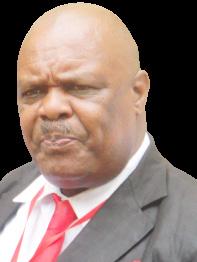

Speaking to Education News recently, Prof. Kubasu said he is going to make a follow-up on the 2013-2017 Collective Bargaining Agreement (CBA) to ensure its full implementation.
“When I was the National Chairman, all our CBAs which we negotiated and signed were implemented,
this one is not implemented. My team and I signed four (4) National CBAs and negotiated several Chapteral CBAs,” said Prof. Kubasu. He added that “The fifth (5th) National CBA 2013 – 2017 was ongoing in negotiations. Those CBAs have greatly changed the welfare, appearance and standing of the Don in society.”
Most recently, UASU Secretary General Dr. Wasonga accused varsity heads of exclusion and secrecy in the implementation of the Sh6.6 billion lecturers pay
of the union, it requires a person with good lobbying and negotiation skills which he already has, having achieved a lot while he was serving as the national chairman since 2005 to 2017.
“That office requires somebody who is foresighted, properly connected with lobbying skills which I have had in this union for nearly 15 years and I am thinking that Iam wasted when I am not in that level of negotiations. Lobbying skills, massive and diverse networks are what UASU needs to move to the
to Saccos.
Kubasu,
to battle for UASU top seat
deal, which the government offered as part of the 2017-2021 CBA which is supposed to benefit about 32,000 staff in 39 public universities.
Under the CBA, university staff are expected to get a salary increment of between 5.75 to 6.27 per cent annually for the period of 2017-2021, with basic salary structure which covers a four-year period and is aligned with implementation of job evaluation results for public universities.
Prof. Kubasu added further that since the Office of Secretary General is major office of implementing various policies and activities
next level. I think the responsibility of UASU dwindled when I left,” he added.
Prof. Kubasu stated that he will basically embrace dialogue, lobbying and negotiations for university managements to pay pending statutory deductions, and remit the same regularly and timely to among others Saccos, KRA, and Pension; and pressurize universities to pay salaries promptly in order to allow members of staff to plan well.
According to Sacco Societies Regulatory Authority (Sasra) report 2019, public universities and other tertiary institutions were accused of failing to remit members’ deductions
As per the report, the highest proportion of total non-remitted deductions are owed by public universities and tertiary colleges, and since there are five deposit-taking Sacco societies whose membership are directly drawn from the public universities and tertiary colleges, it severely impair the ability of these SACCOs to
within various parliamentary committees notably for education and research and Justice and Legal Affairs Committee (JLAC), he will submit UASU memorandum suggesting the amendment to the current University Act 2012 that will allow VCs to be subjected to vetting.
“My team and I negotiated for competitive sourcing of Vice Chancellors and College Principals in public universities. If elected NSG, I will vouch for vetting of holders of these offices,” stated Prof. Kubasu.
Prof. Kubasu served for 13 elective years as UASU national Chairman and is the longest serving UASU MMUST Chapter since 2009 to date, and he is remembered as one who formulated the Union motto “Education Liberates.”
meet their financial obligations to members, as well as their financial stability.

“The highest proportion of the total non-remitted deductions amounting to Sh2.86 billion, representing 74.03 per cent of the total non-remitted deductions was owed by the public universities and tertiary colleges,” affirms Sasra in its report.
In resolving troubles associated in the appointment of the Public universities Vice-chancellors Prof. Kubasu said using his connection
In addition, in collaboration with the team during his reign he negotiated the inclusion of Graduate Assistants as a Job Grade 10, complete with salary and house allowance, and formed working linkages and networking partnerships both locally and internationally through forming affiliations to the Trade Union Congress of Kenya (TUC-K) in which he was one of the three elected National Trustees, the Education International (EI), American Labour Solidarity and the International Labour Organization (ILO).
In 2019, Prof. Kubasu chaired a National Executive appointed committee which worked out a policy proposal on criteria for employment and promotion of academic members of staff which was later presented to Commission for University Education (CUE).
Education News is published fortnightly by SHREND PUBLISHERS & SUPPLIES LTD. Head Office: Osiligi Building, Second Floor, Ongata Rongai, P.O. Box 1234-00511 Ongata Rongai TEL: 020 6001006 / 0737 965259 / 0722 883143 / 0734 515902 E-mail: news@educationnews.co.ke / editor@educationnews.co.ke Website: www.educationnews.co.ke Registered at the GPO as a Newspaper EDUCATION NEWS APRIL 3 - 16, 2019 INSIDE Focus on 2014 top KCPE Schools - Pages EDUCATION The Bestselling Newspaper on Education www.educationnews.co.ke » Page 39 JUNE 1 - JUNE 14, 2021
KNUT Secretary General Wilson Sossion addressing the media in Kitale after Rift Valley Regional Union elections. Photo/ Osborne Ben
We want
dispatch the money as agreed since it is our right. We are committed to ensuring that the welfare of teachers is taken care of - Sossion
Wasonga
Dr Sammy Kubasu, MMUST UASU Chapter Chairman.
Dr Constantine Wasonga, UASU Secretary-General.






 By Kage Njoroge
By Kage Njoroge
















 By Erick Nyayiera
By Erick Nyayiera















































 By Domnic Maraga
By Domnic Maraga
 By Kamundia Muriithi
By Kamundia Muriithi













 By Tony Wafula
By Tony Wafula








 By Roy Hezron
By Roy Hezron

 By Leonard Angatia
By Leonard Angatia

















 By Ben Leshau
By Ben Leshau













 By Erick Nyayiera
By Erick Nyayiera







 By Andanje Wakhungu
By Andanje Wakhungu
 By Leonard Angatia
By Leonard Angatia


























 By Roy Hezron
By Roy Hezron

















 By Dennis Bett
By Dennis Bett












 By Tony Wafula
By Tony Wafula










